Serge-Olivier Rondeau
Contact
sorondeau@gmail.com
Resources
Film
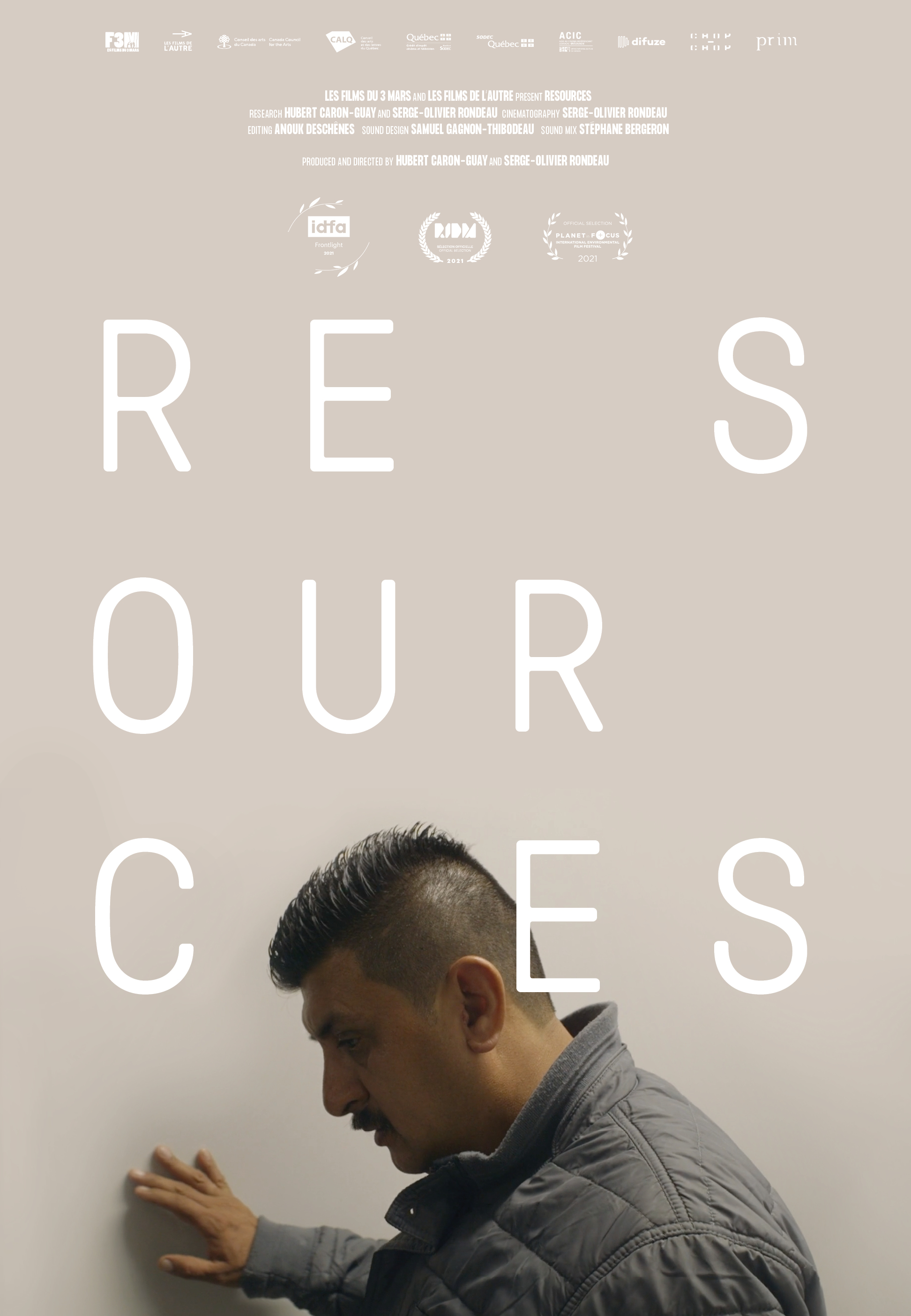



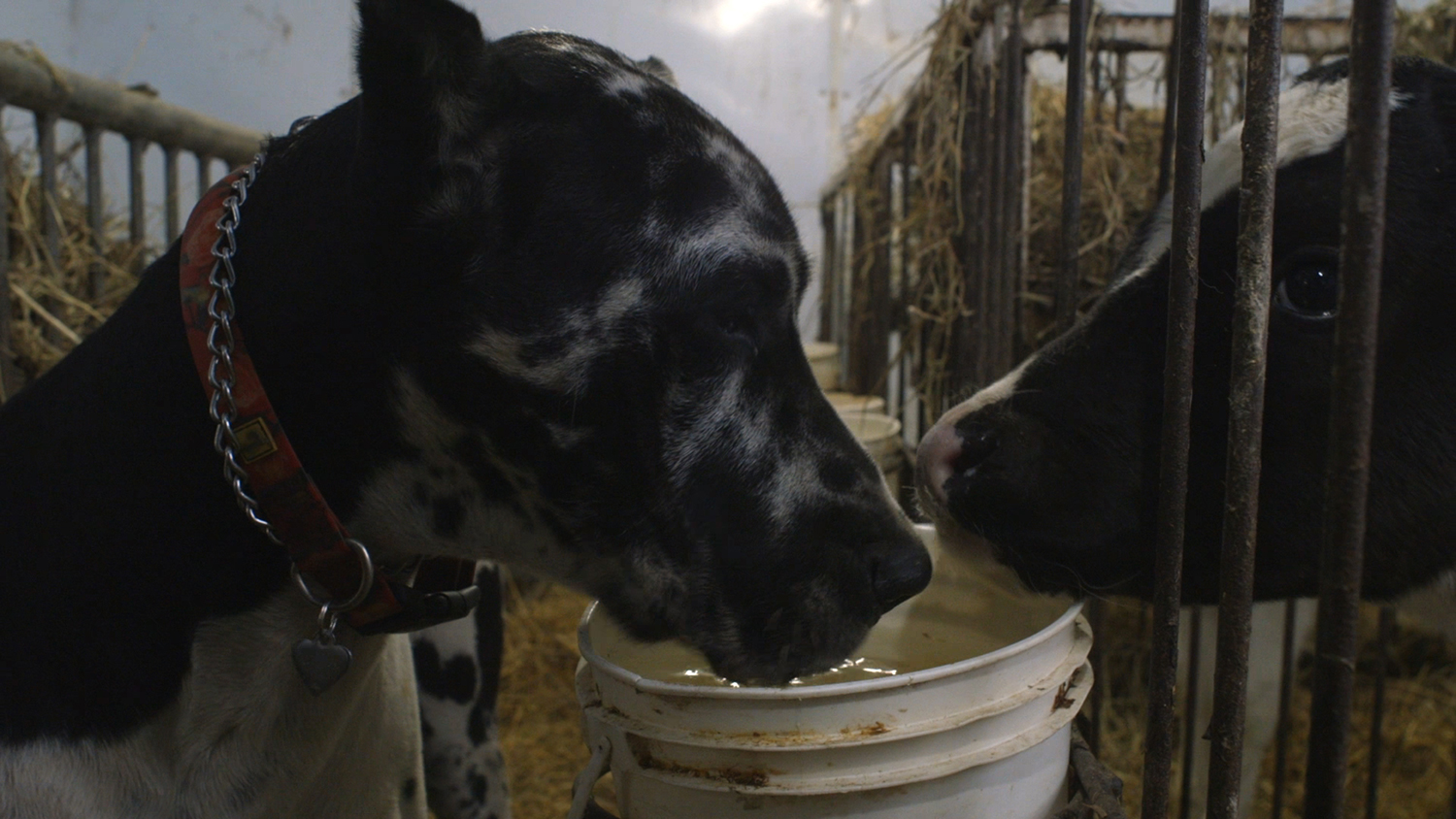
99 min., HD, 2021
The meat industry is booming in Quebec, Canada, where huge factories use standardized production methods to convert vast herds of livestock into meat. They hire asylum seekers, mainly from Latin America, so they can continue to produce at competitive rates.
This observational film splits its focus between the workers and the animals; between the parallel lives whose paths are destined to cross in the factories. We see new arrivals talking with a community organization that mediates between the workers and the factory, their stories and expectations intercut with scenes of overcrowded pigsties and cows milked day in, day out, and giving birth in chains. Directors Hubert Caron-Guay and Serge-Olivier Rondeau also point the lens at the parched and utterly depleted earth, where nothing but corn can grow. Everything that takes place here is in service to optimizing production.
At a calm pace, and without any direct comment, we are witness to the living conditions of humans, animals, and crops alike, in this subtle and critical look at a world driven by capitalism and the living links in the chain that make this possible. - IDFA
Codirected with Hubert Caron-Guay
Distribution by Les Films du 3 Mars
The meat industry is booming in Quebec, Canada, where huge factories use standardized production methods to convert vast herds of livestock into meat. They hire asylum seekers, mainly from Latin America, so they can continue to produce at competitive rates.
This observational film splits its focus between the workers and the animals; between the parallel lives whose paths are destined to cross in the factories. We see new arrivals talking with a community organization that mediates between the workers and the factory, their stories and expectations intercut with scenes of overcrowded pigsties and cows milked day in, day out, and giving birth in chains. Directors Hubert Caron-Guay and Serge-Olivier Rondeau also point the lens at the parched and utterly depleted earth, where nothing but corn can grow. Everything that takes place here is in service to optimizing production.
At a calm pace, and without any direct comment, we are witness to the living conditions of humans, animals, and crops alike, in this subtle and critical look at a world driven by capitalism and the living links in the chain that make this possible. - IDFA
Codirected with Hubert Caron-Guay
Distribution by Les Films du 3 Mars
Grand National
Film + Photobook


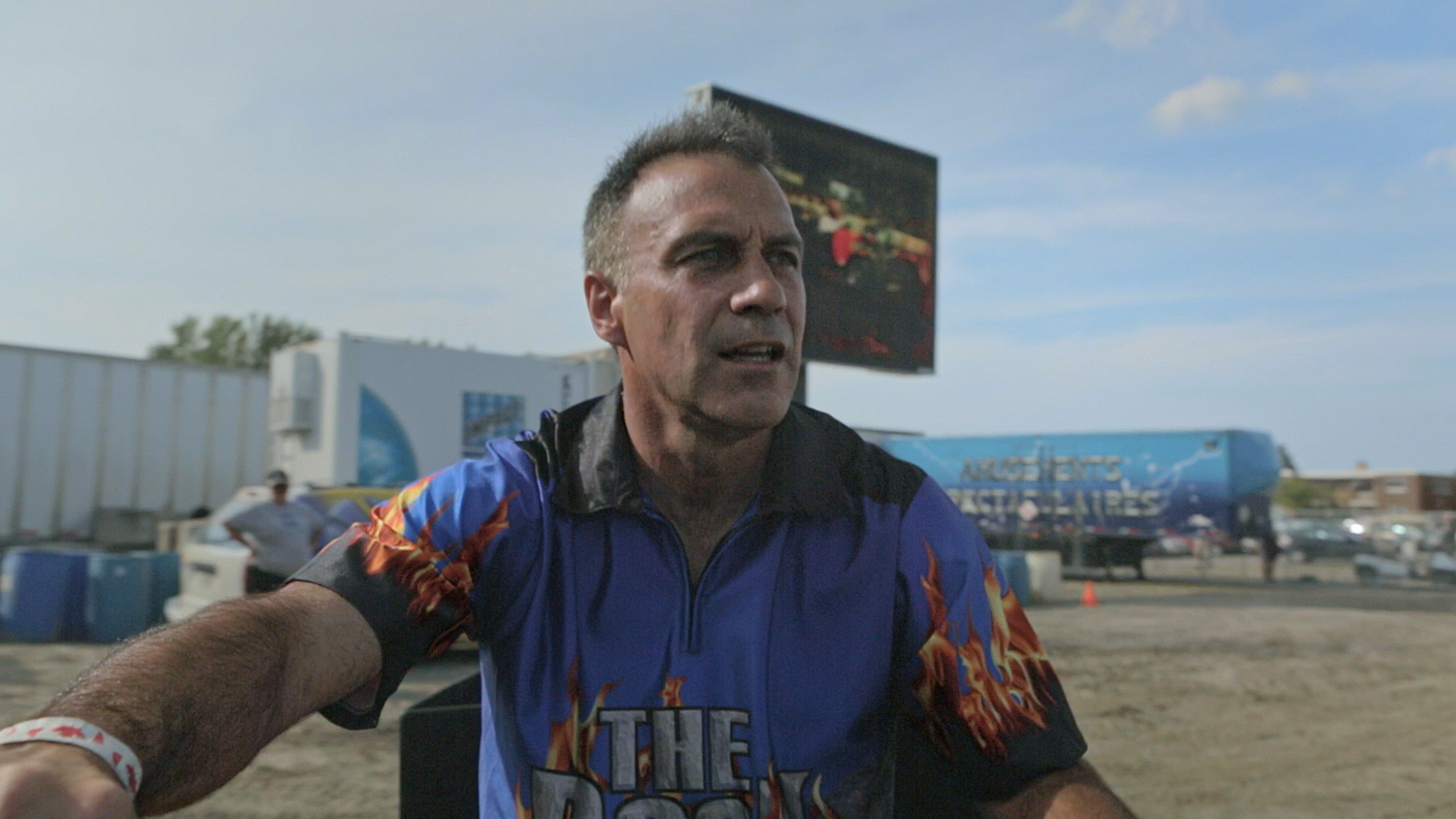



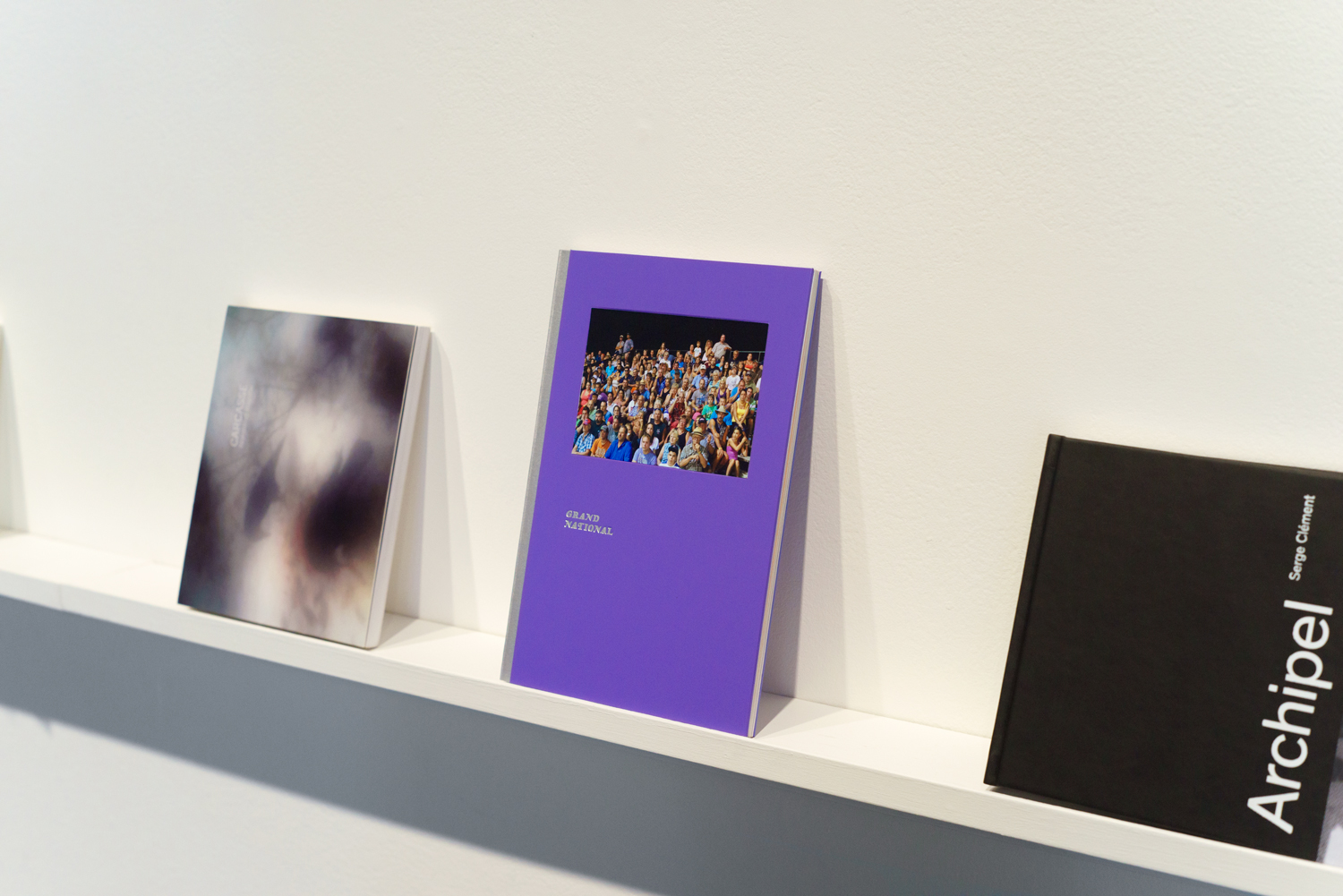











21:10, HD, 2021
The Grand National, held at the Saint-Hyacinthe agricultural fair, is the biggest truck and tractor pull event in Canada. Over the course of three days, to an audience of 20,000, more than sixty competitors come from all over North America with little to win but the applause of the crowd. Originally developed by farmers to test the strength of their horses, pulling challenges are historically tied to the reality of rural labour and to the working classes, which form the majority of its audience. Following the mechanization of agriculture, the contenders’ profound understanding of animals was replaced by an intricate knowledge of all things mechanical. This expertise is brought to bear in a competition where feats of strength and deafening noise meet the smell of diesel and the fruit fragrances added to the methanol fuel. The film Grand National follows one of the competitors at this major event of the North American agricultural world where we can observe the strong bonds that are formed between humans and machines.
The film is distributed by Spira
The book was made in collaboration with Stéfanie Vermeersch
The Grand National, held at the Saint-Hyacinthe agricultural fair, is the biggest truck and tractor pull event in Canada. Over the course of three days, to an audience of 20,000, more than sixty competitors come from all over North America with little to win but the applause of the crowd. Originally developed by farmers to test the strength of their horses, pulling challenges are historically tied to the reality of rural labour and to the working classes, which form the majority of its audience. Following the mechanization of agriculture, the contenders’ profound understanding of animals was replaced by an intricate knowledge of all things mechanical. This expertise is brought to bear in a competition where feats of strength and deafening noise meet the smell of diesel and the fruit fragrances added to the methanol fuel. The film Grand National follows one of the competitors at this major event of the North American agricultural world where we can observe the strong bonds that are formed between humans and machines.
The film is distributed by Spira
The book was made in collaboration with Stéfanie Vermeersch
In loving memory <3
Video installation (9 channels)




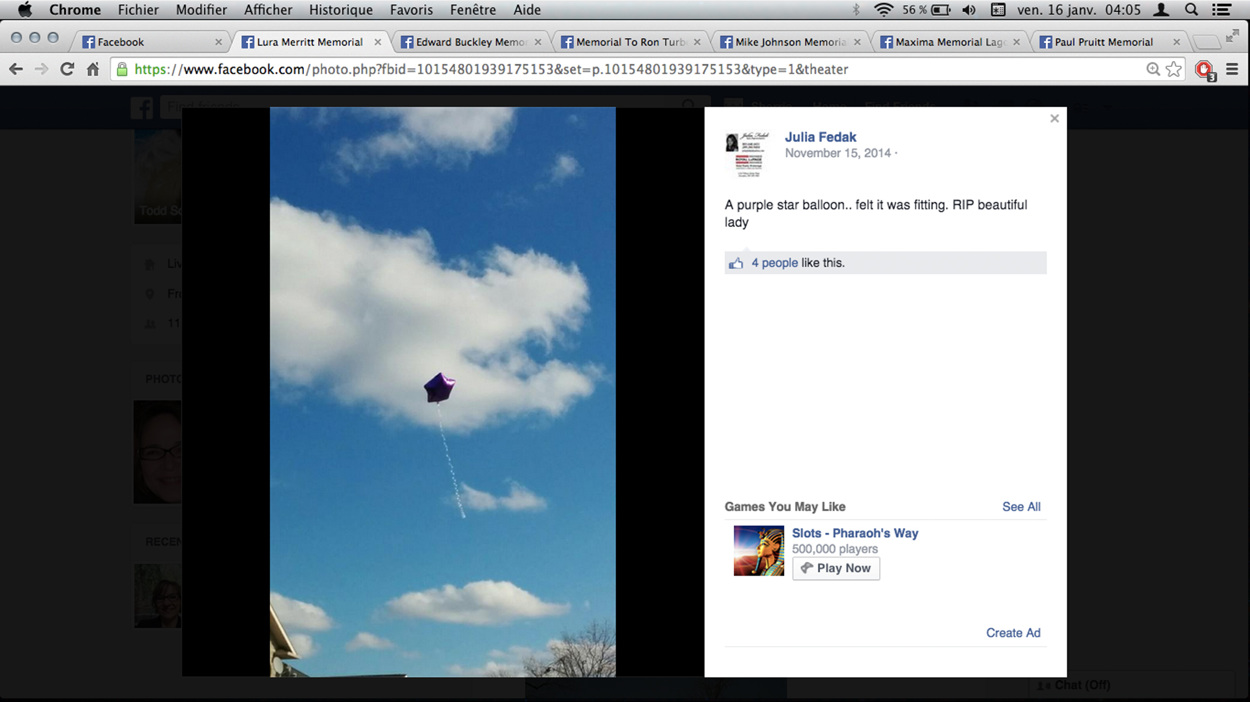
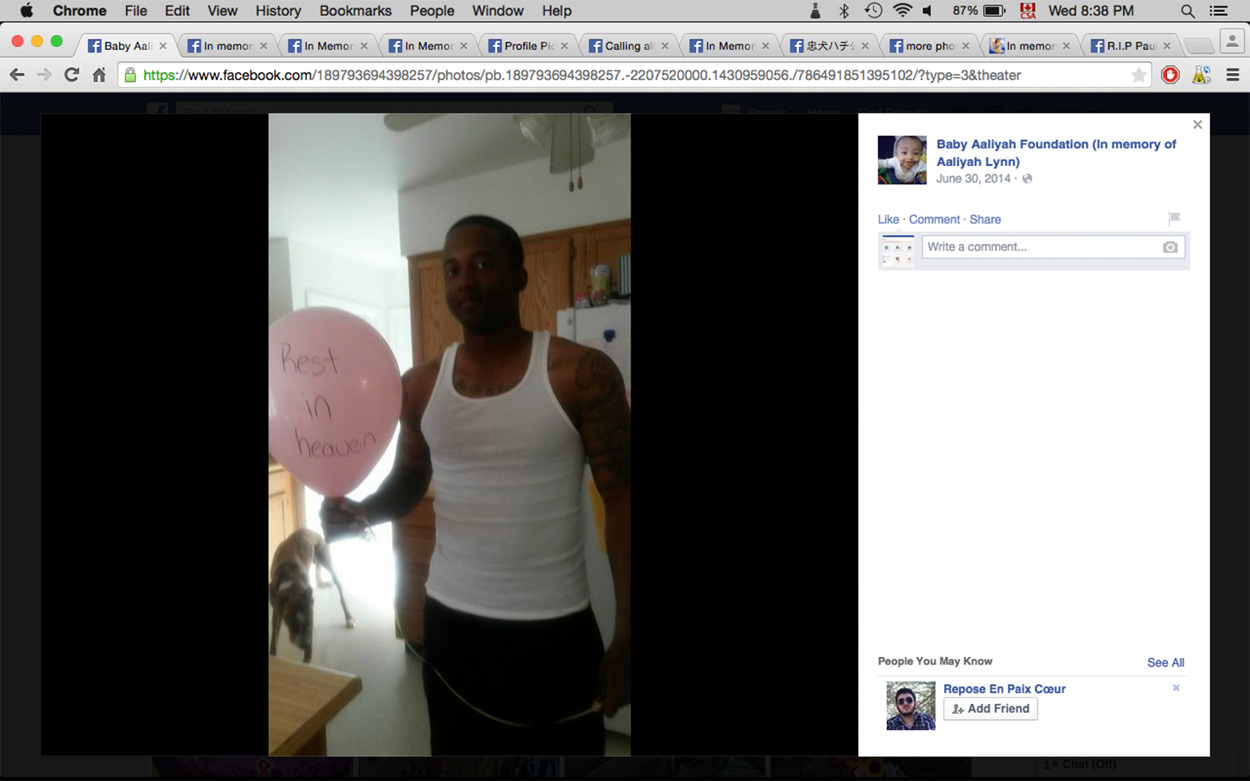

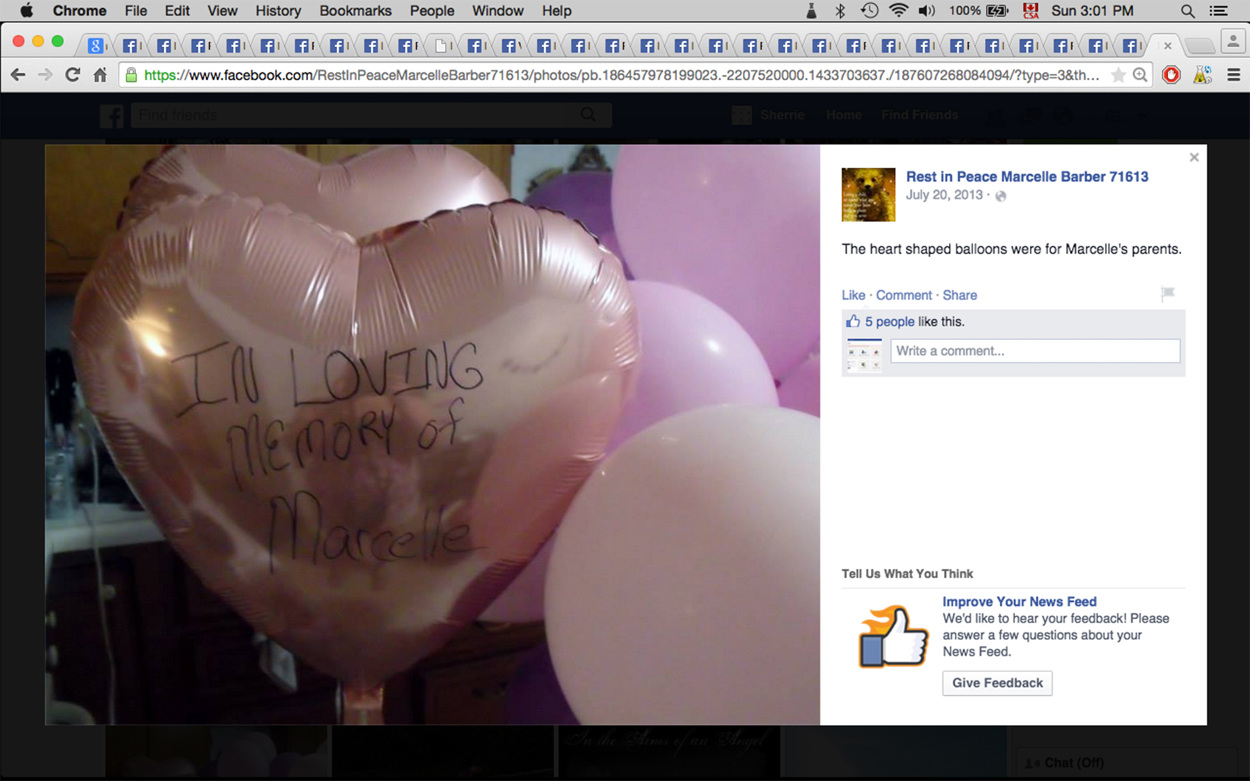

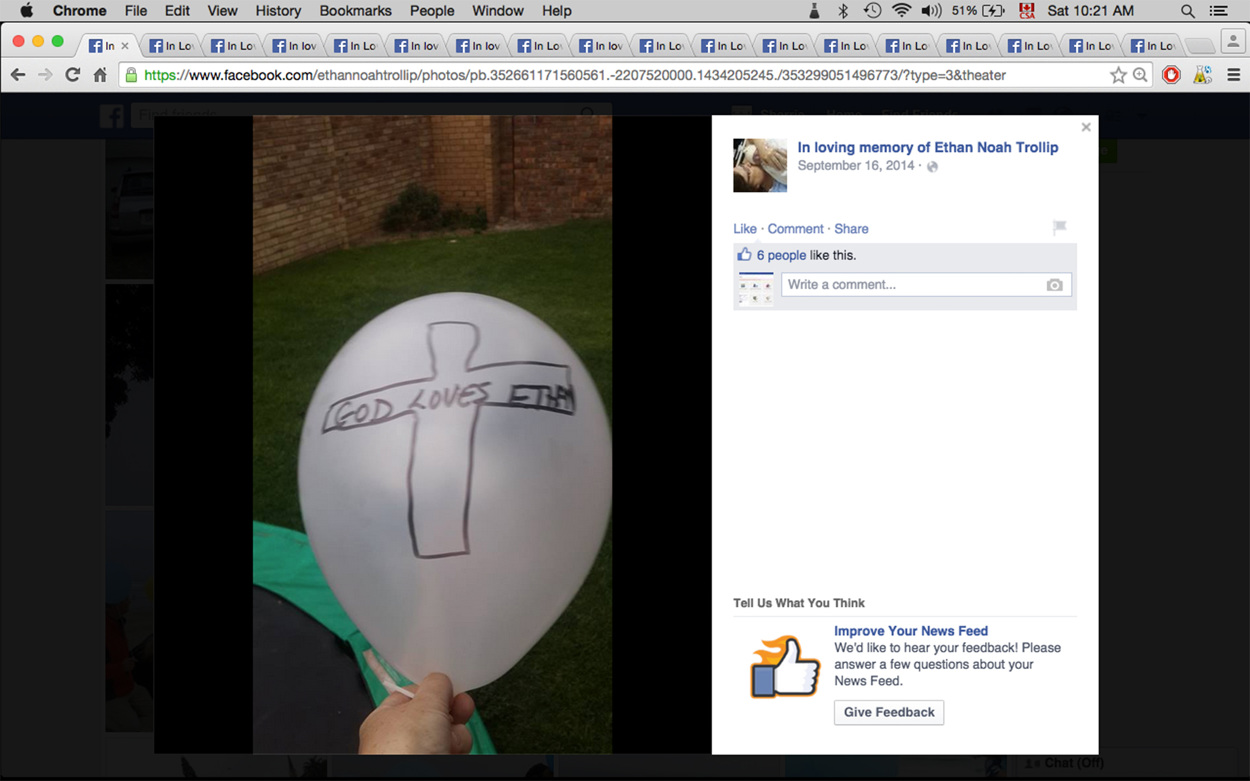
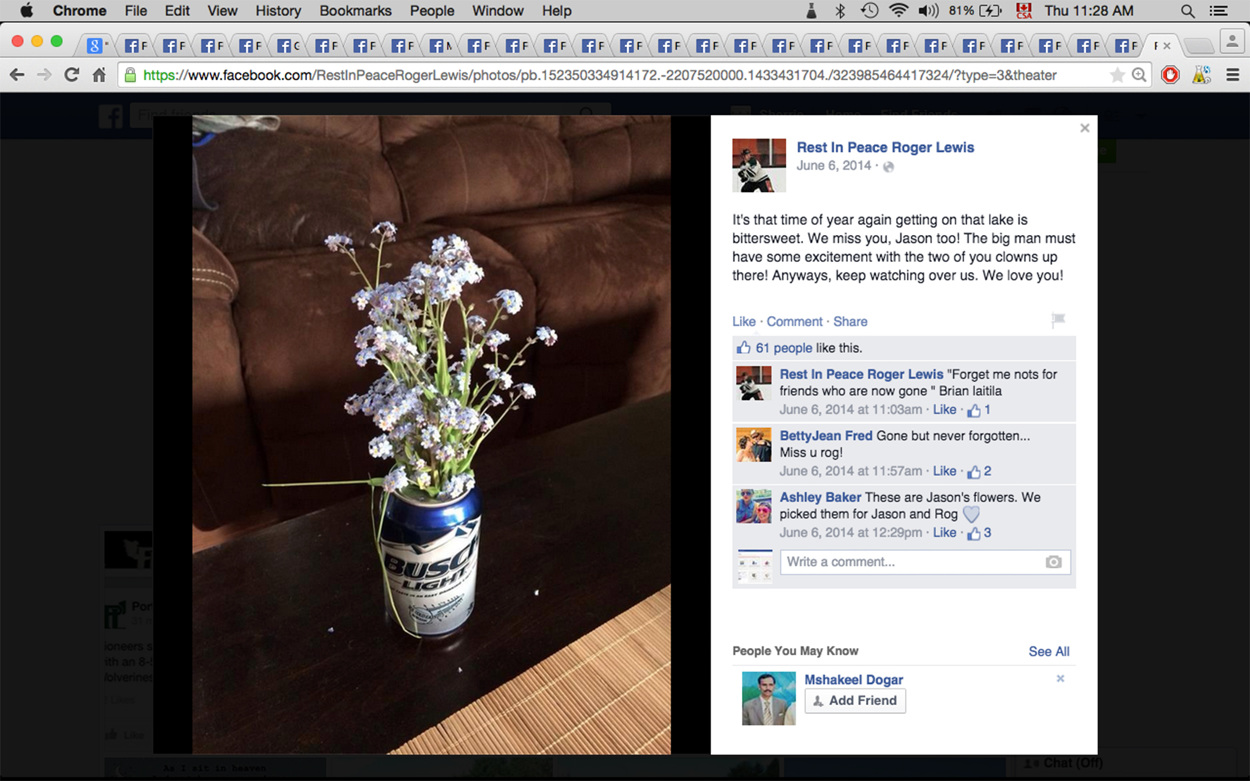
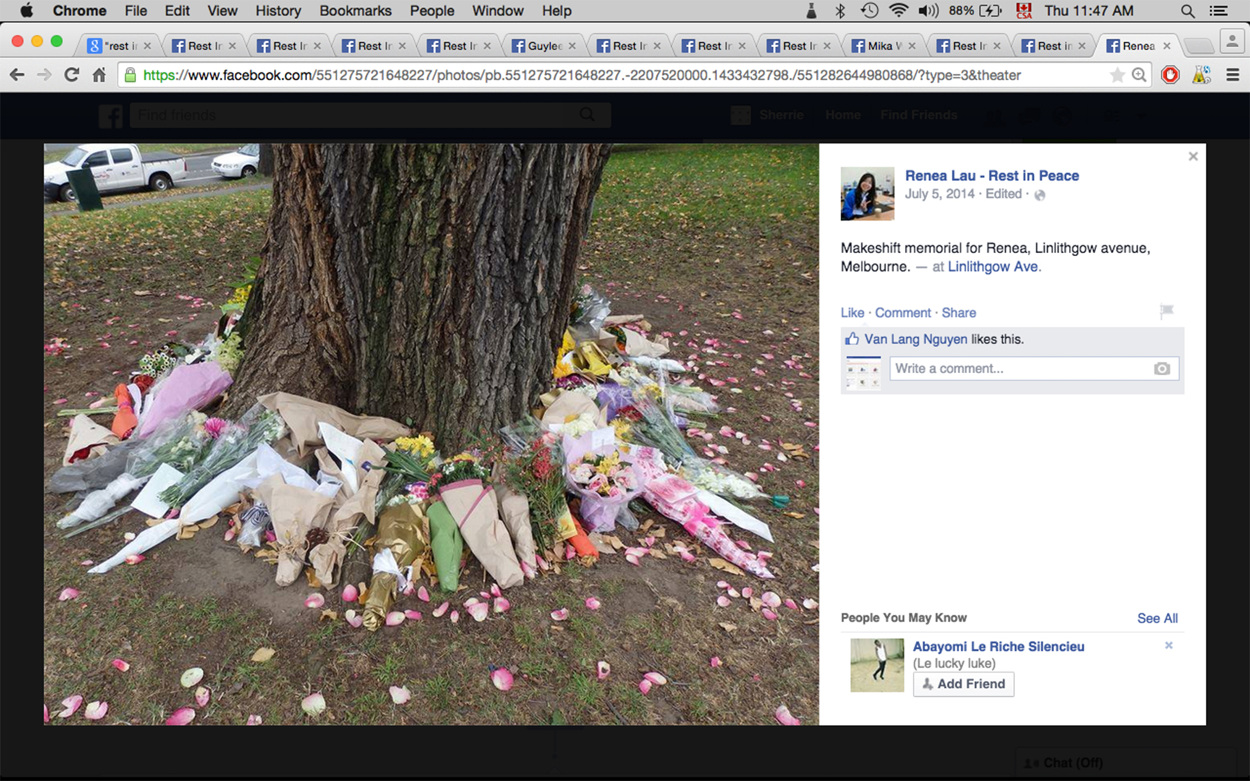
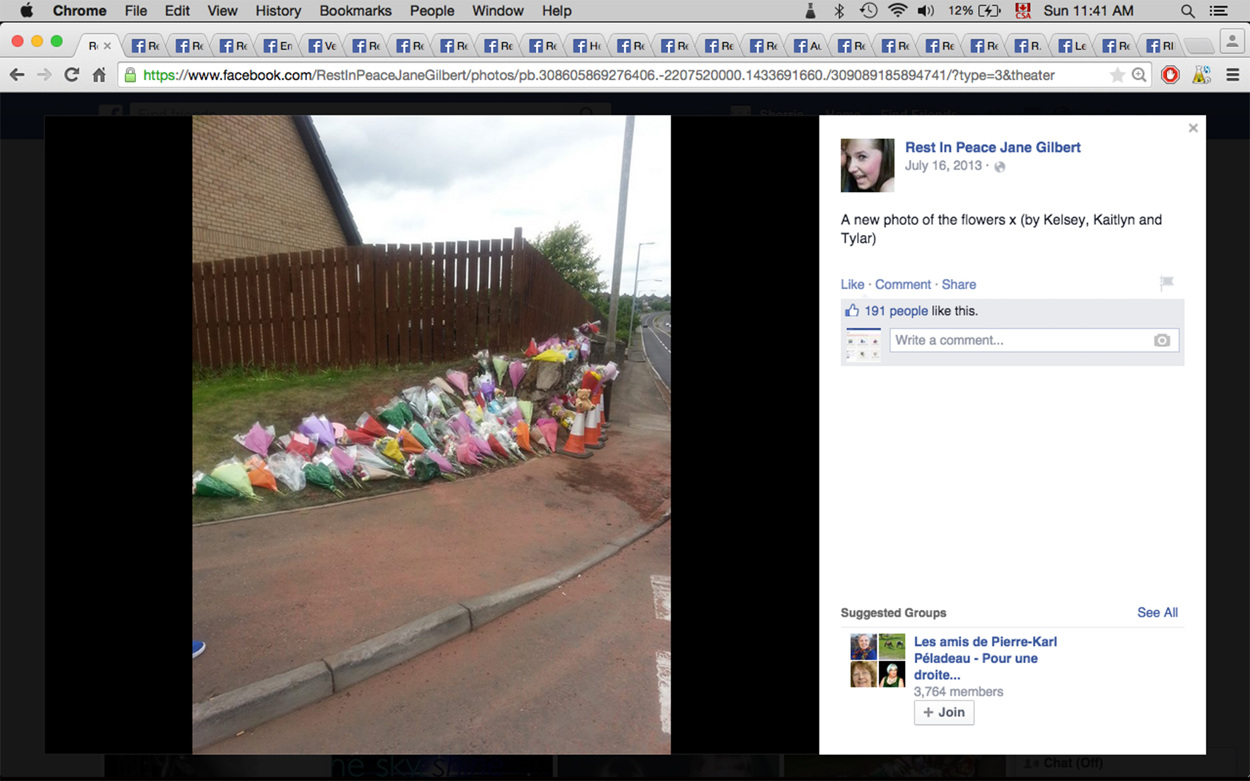
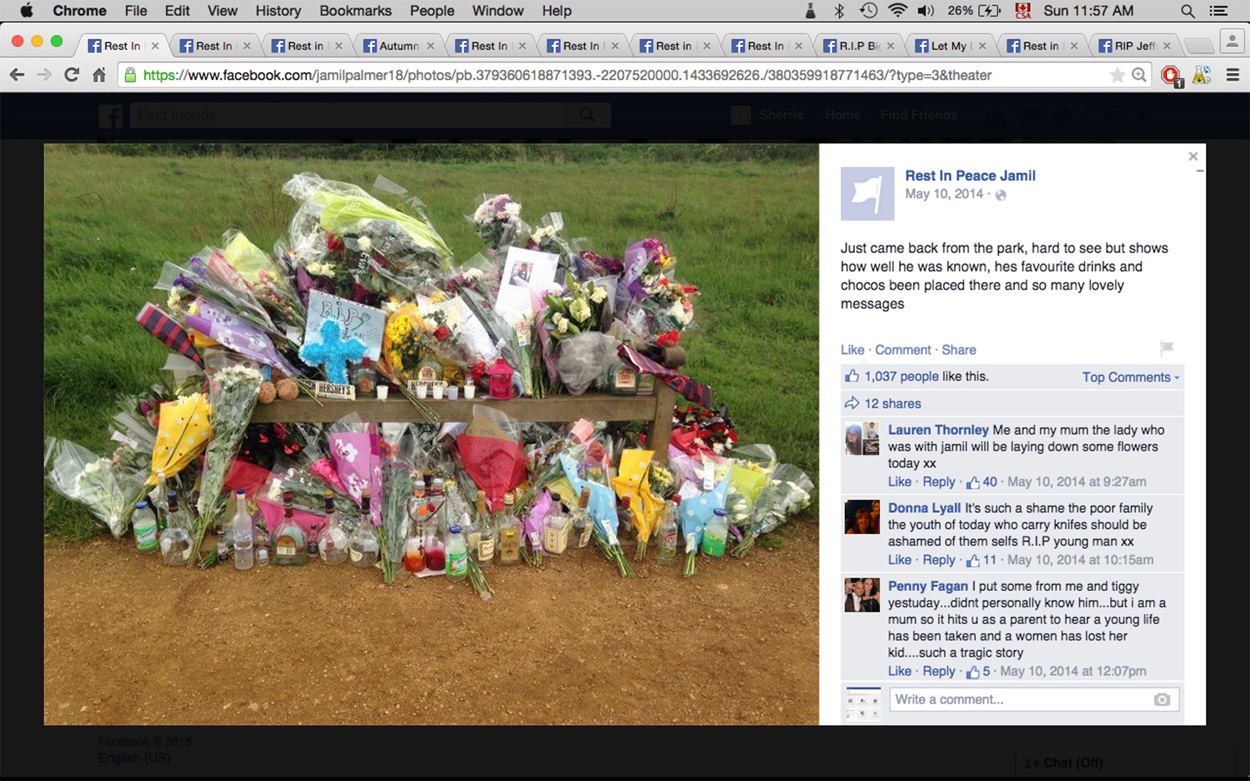
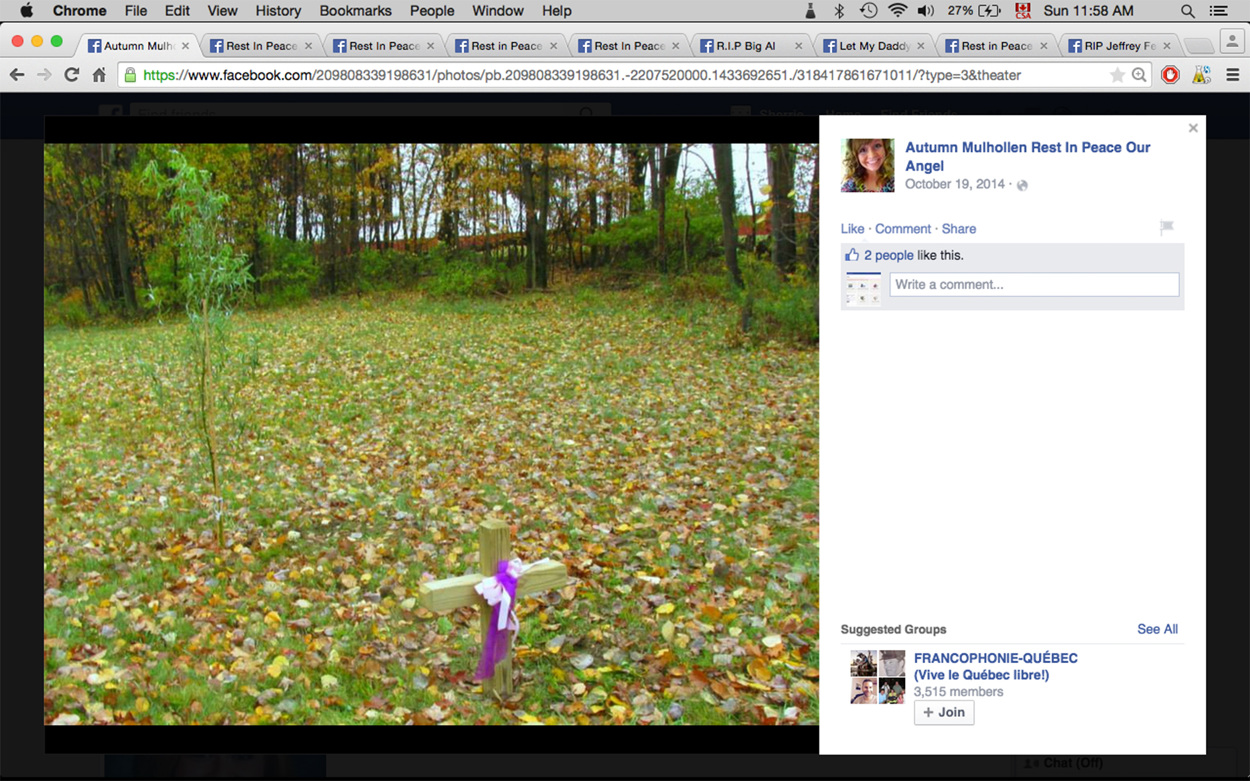
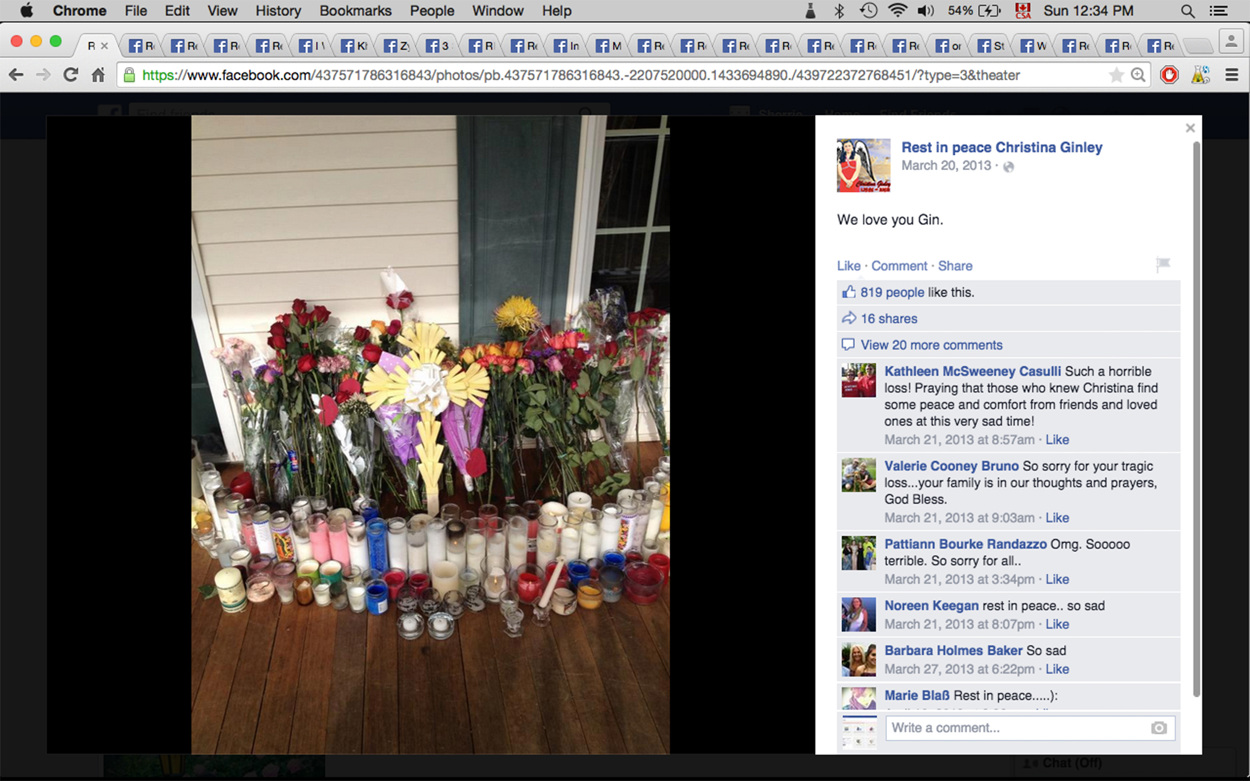
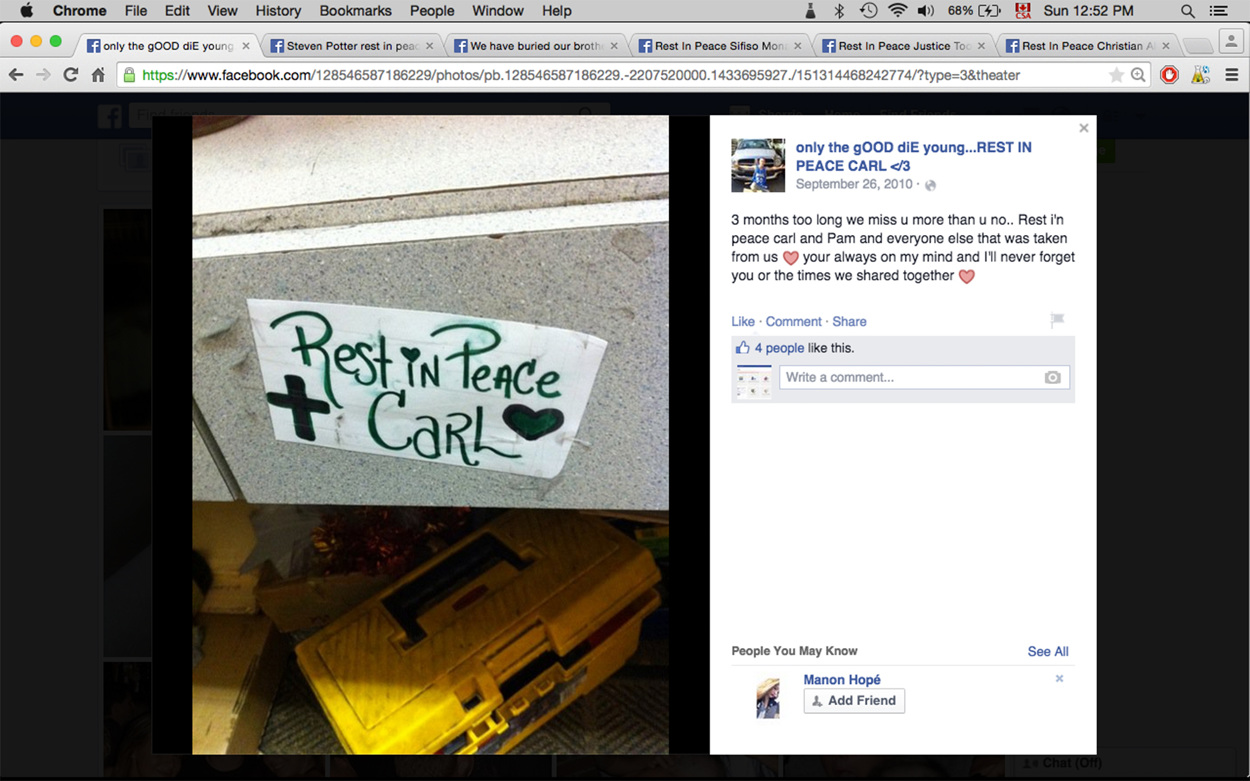
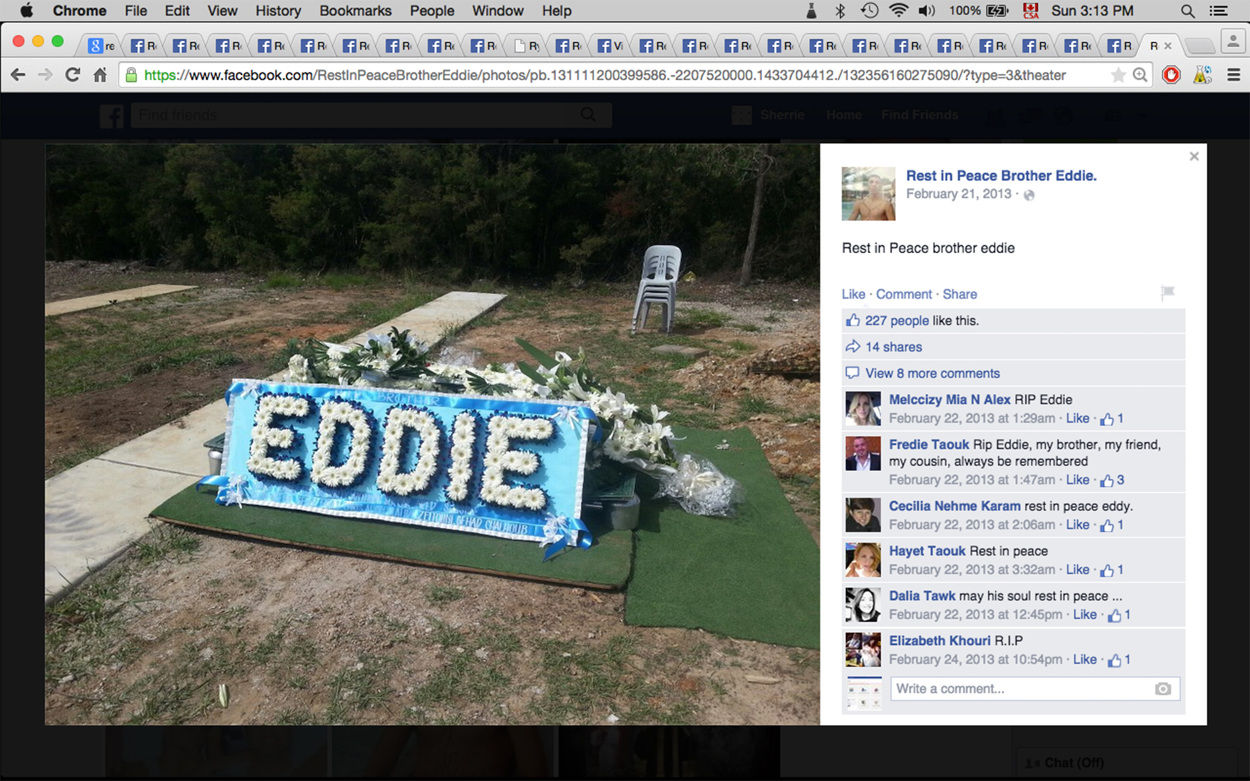
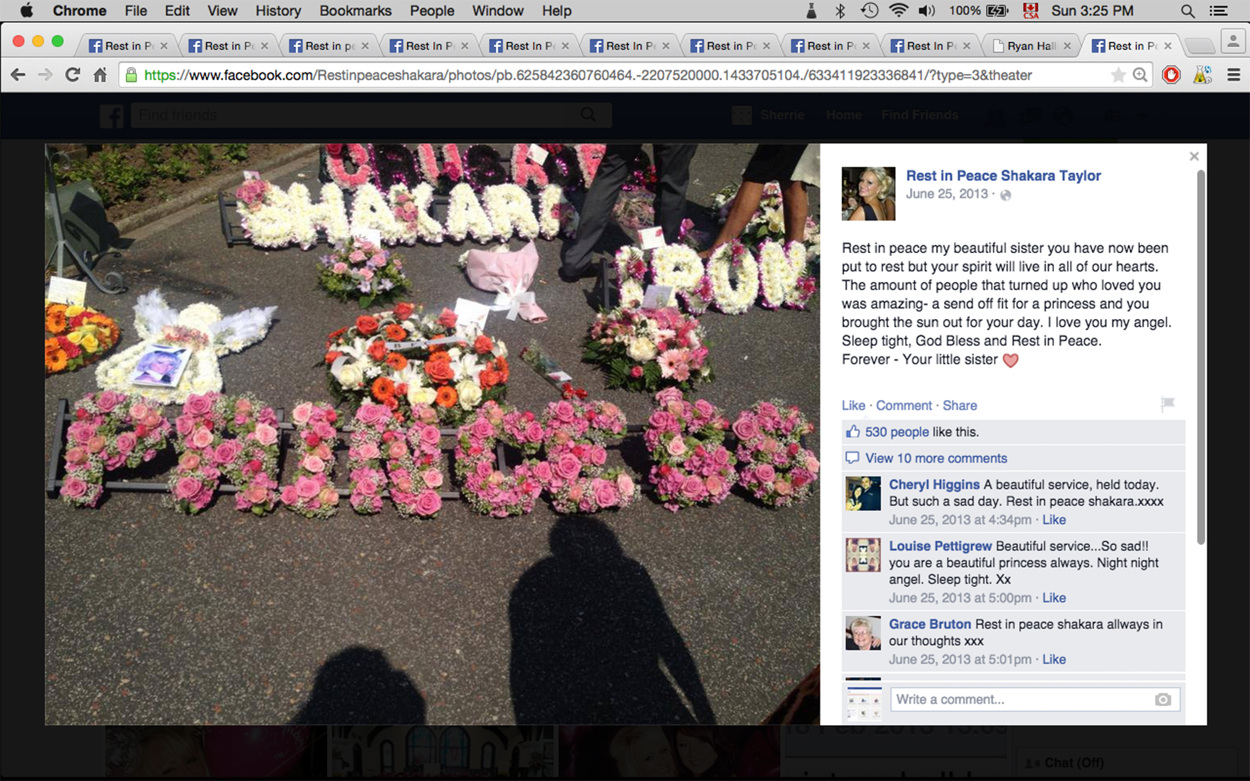
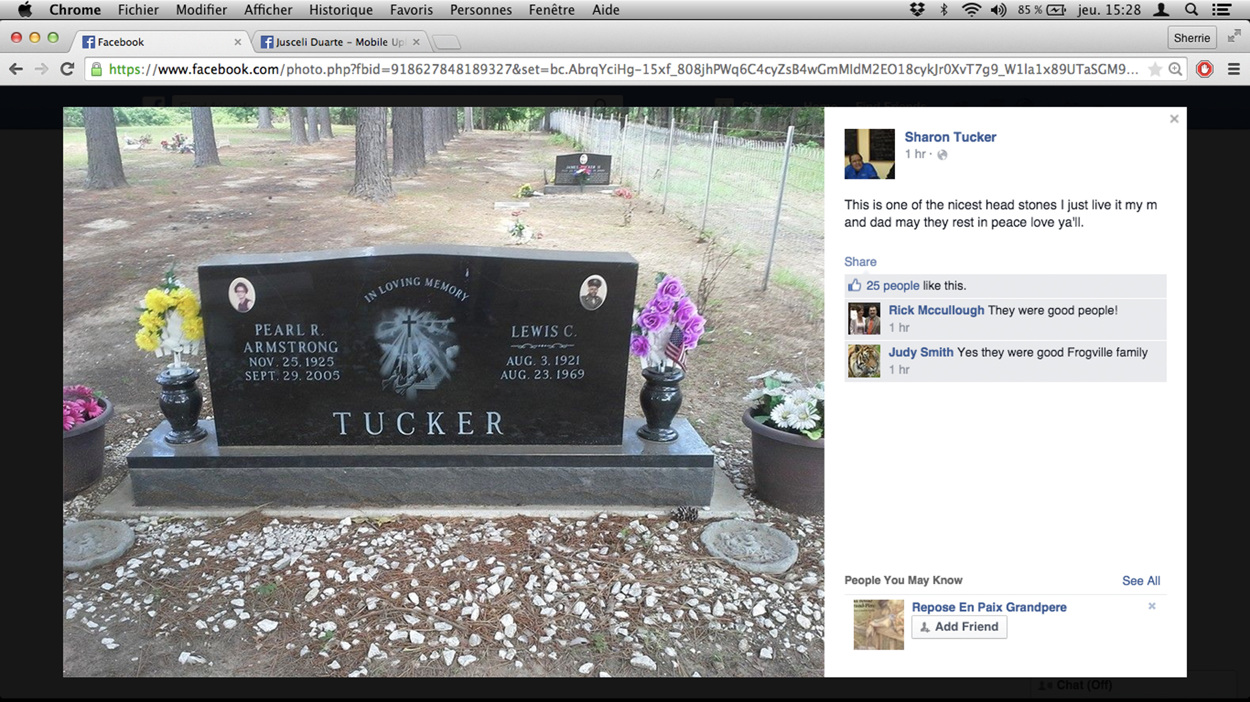
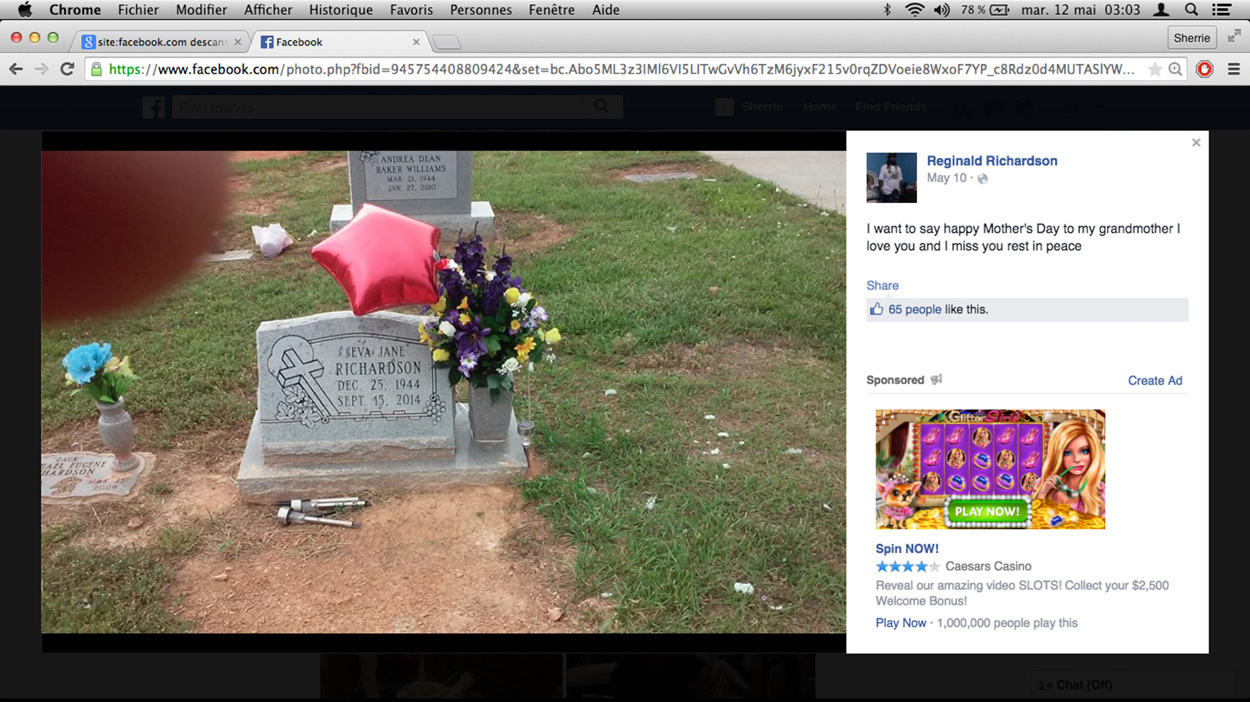
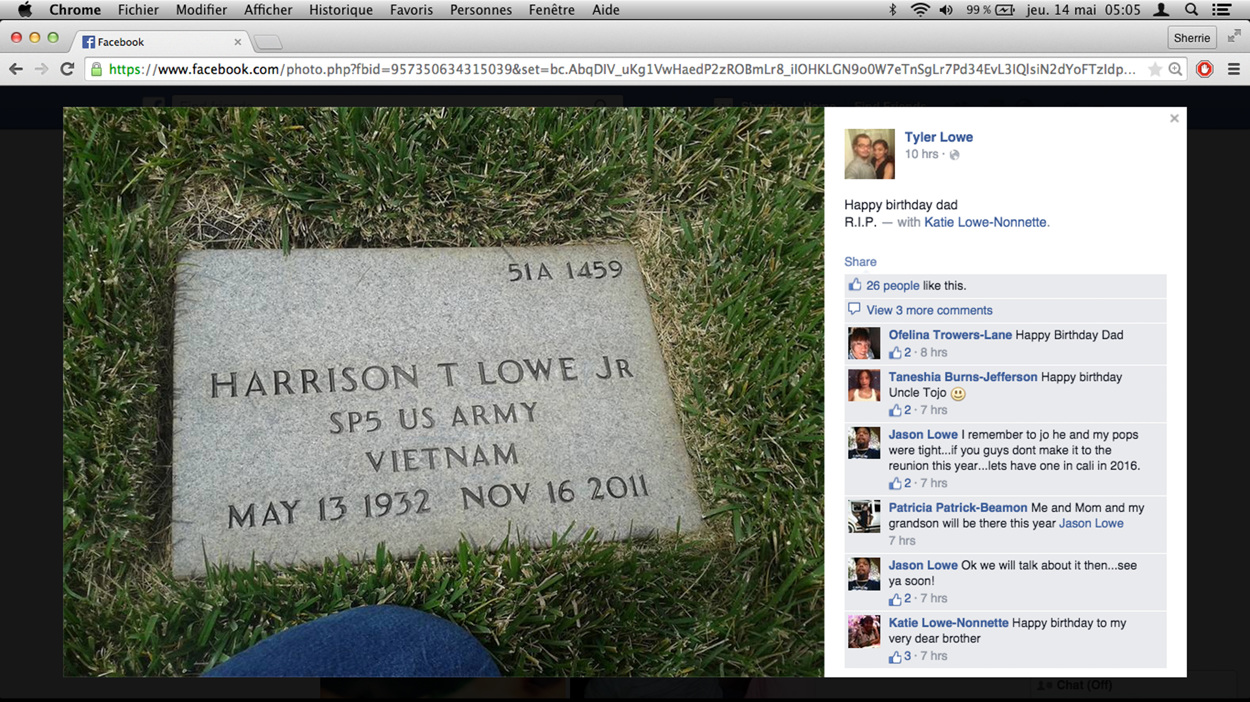
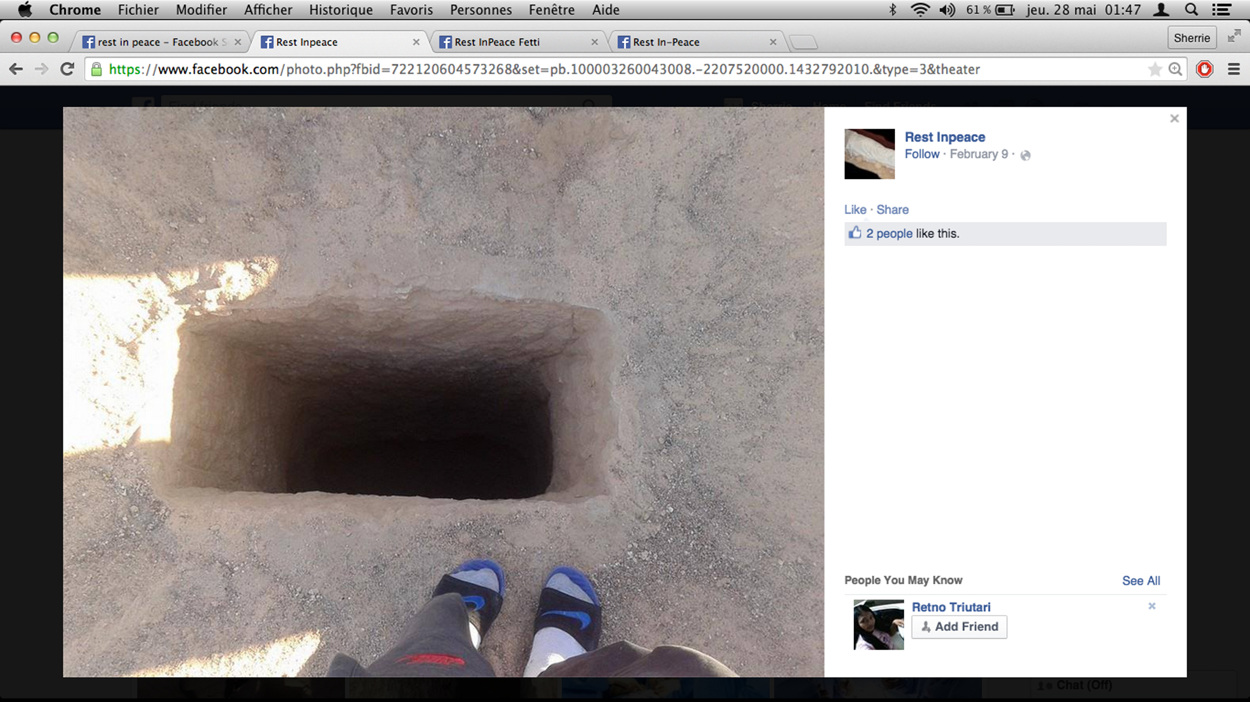
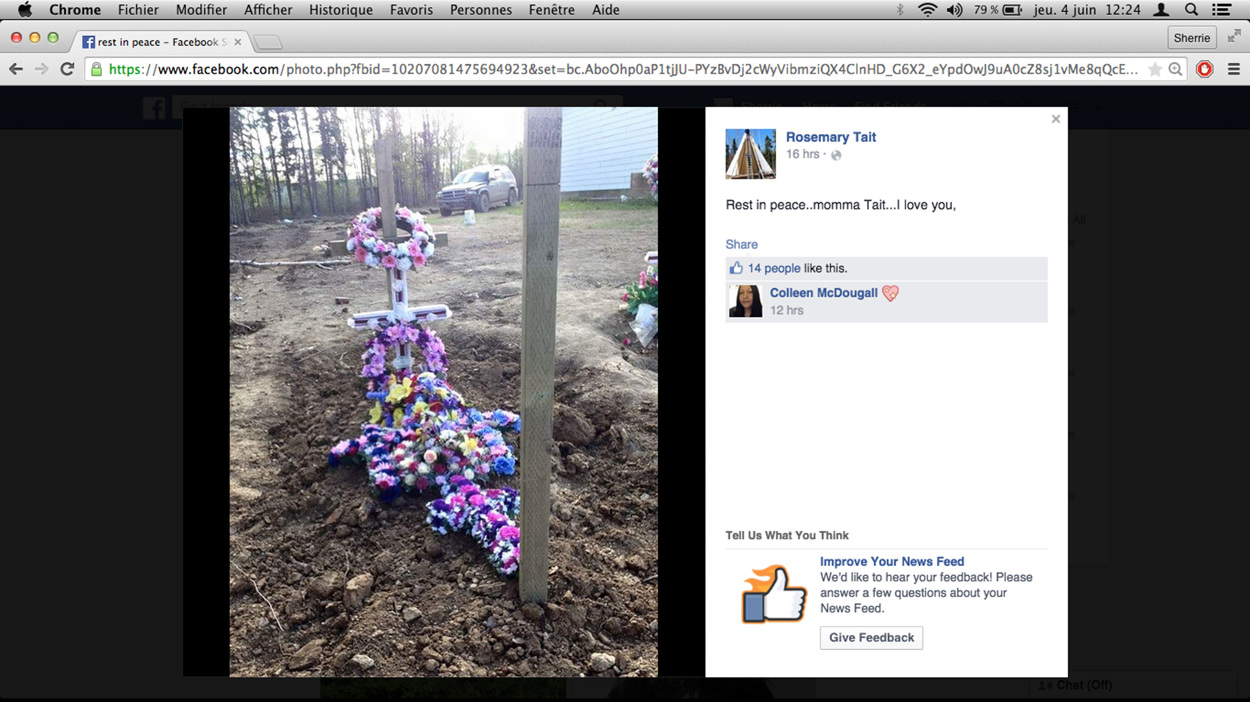
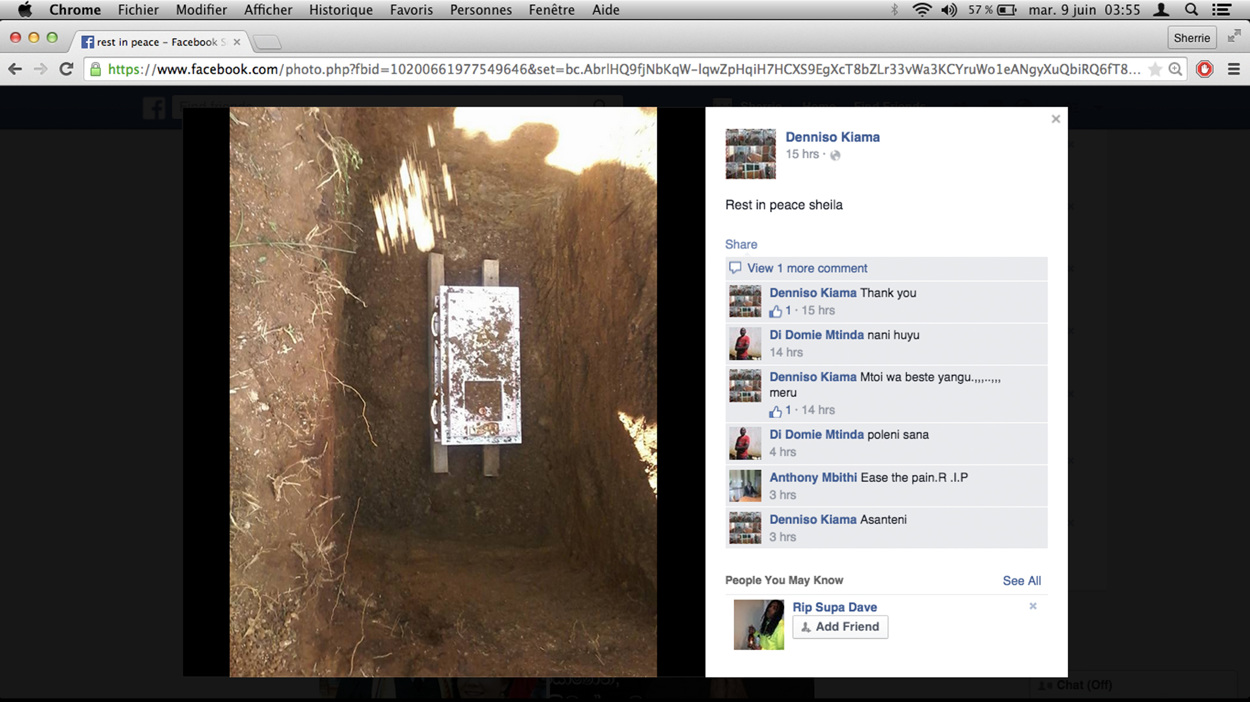
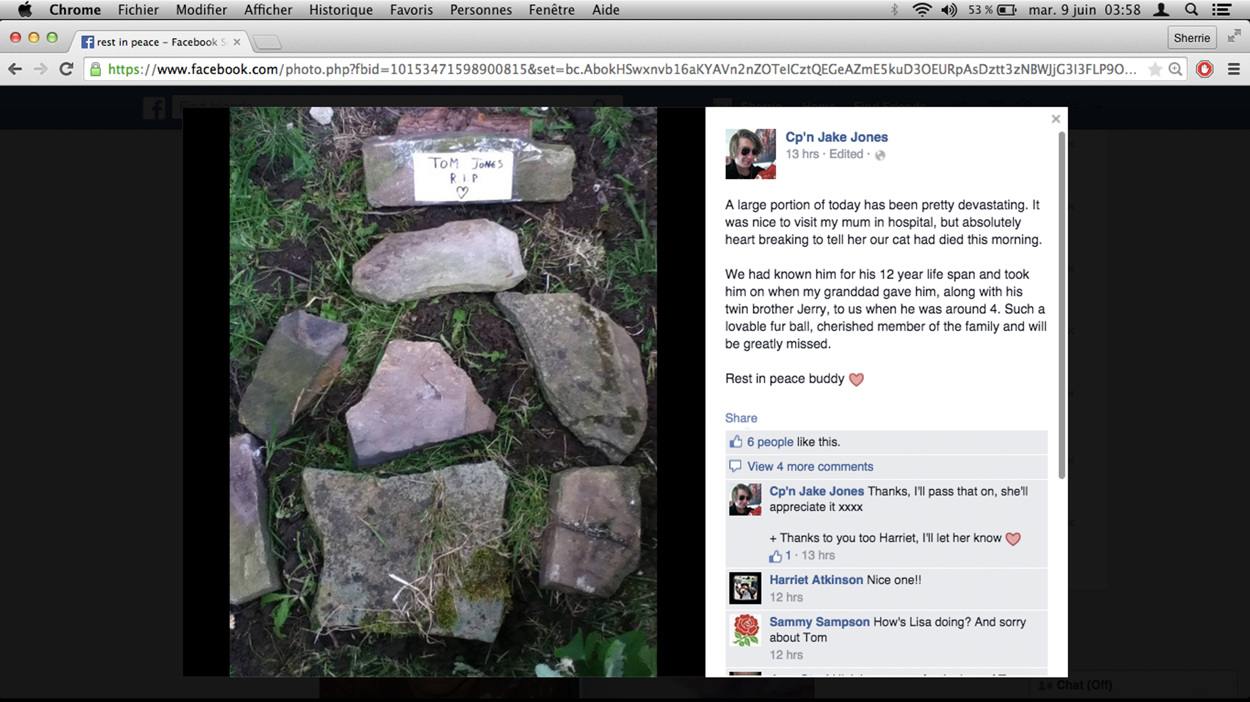
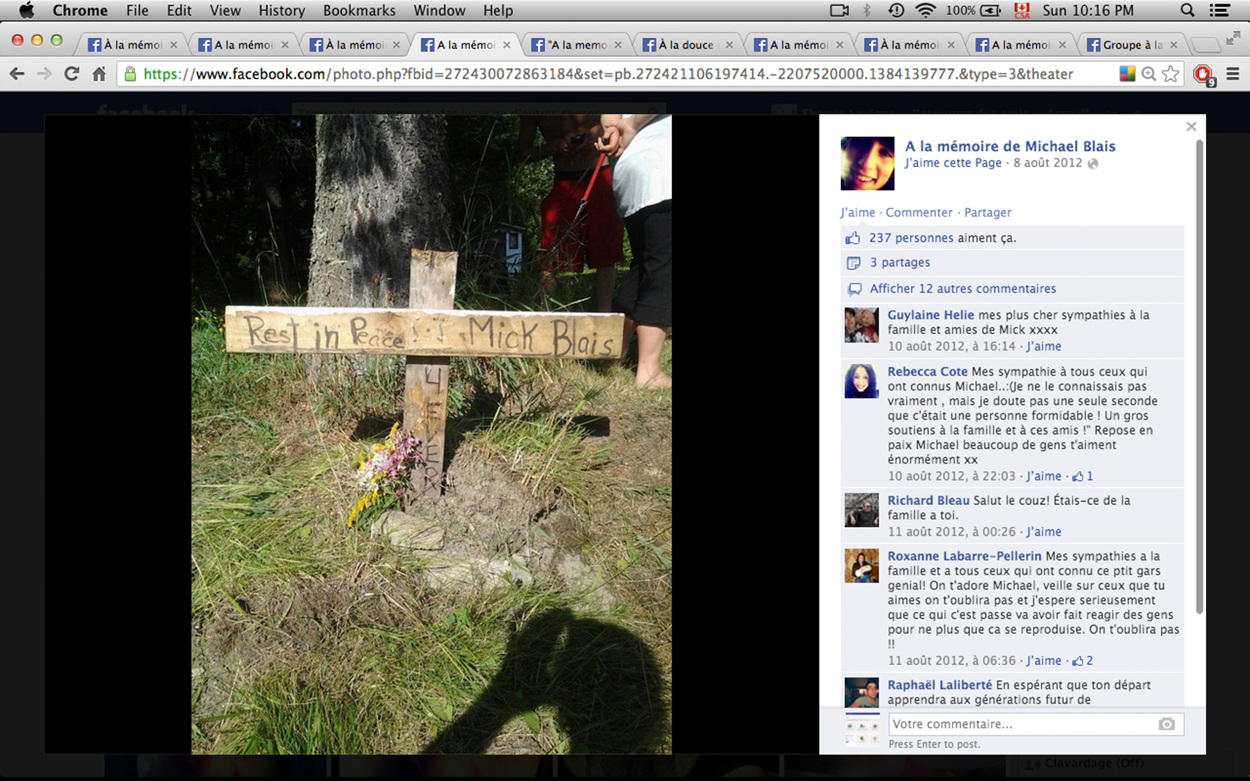
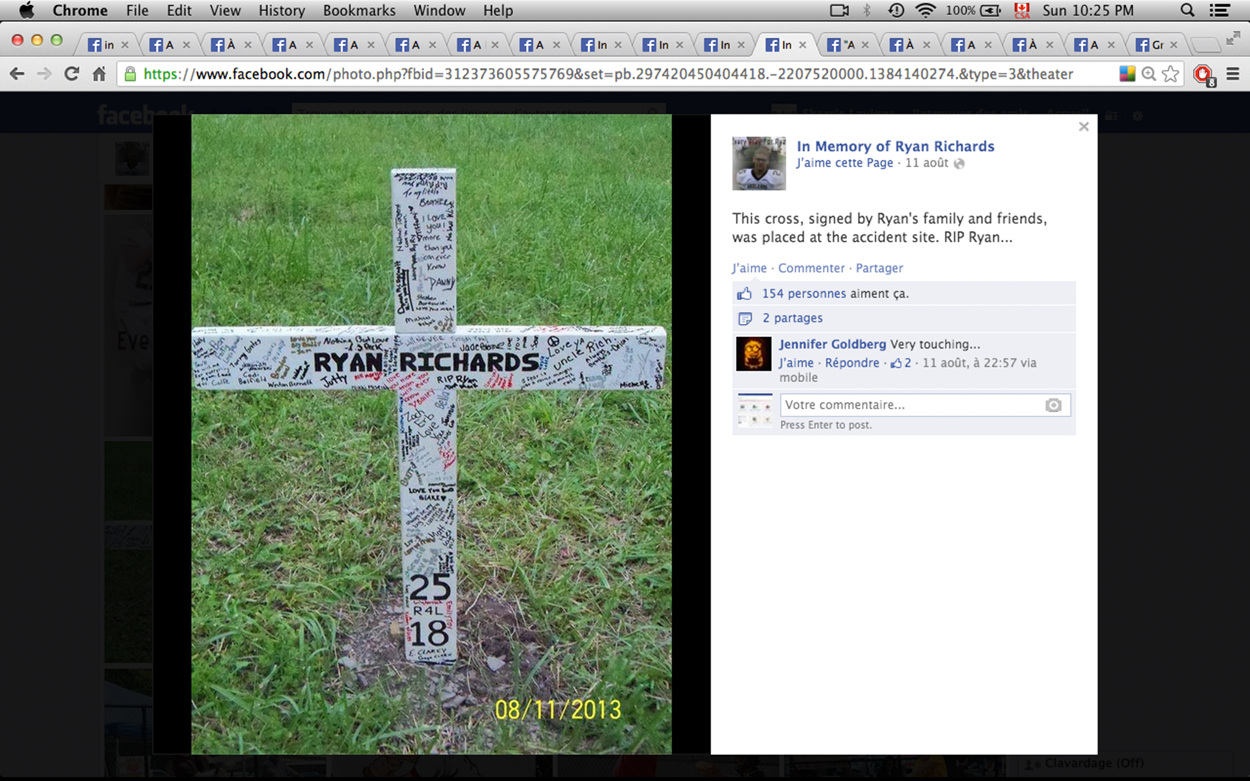
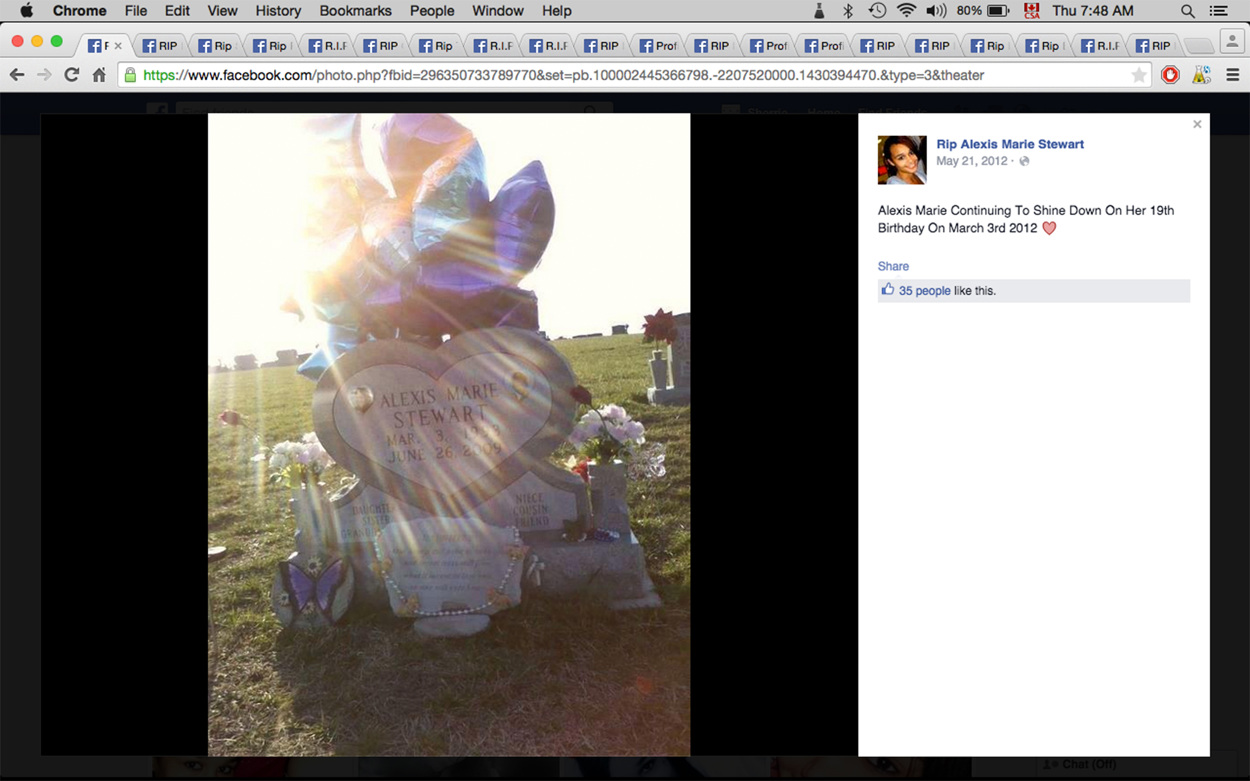
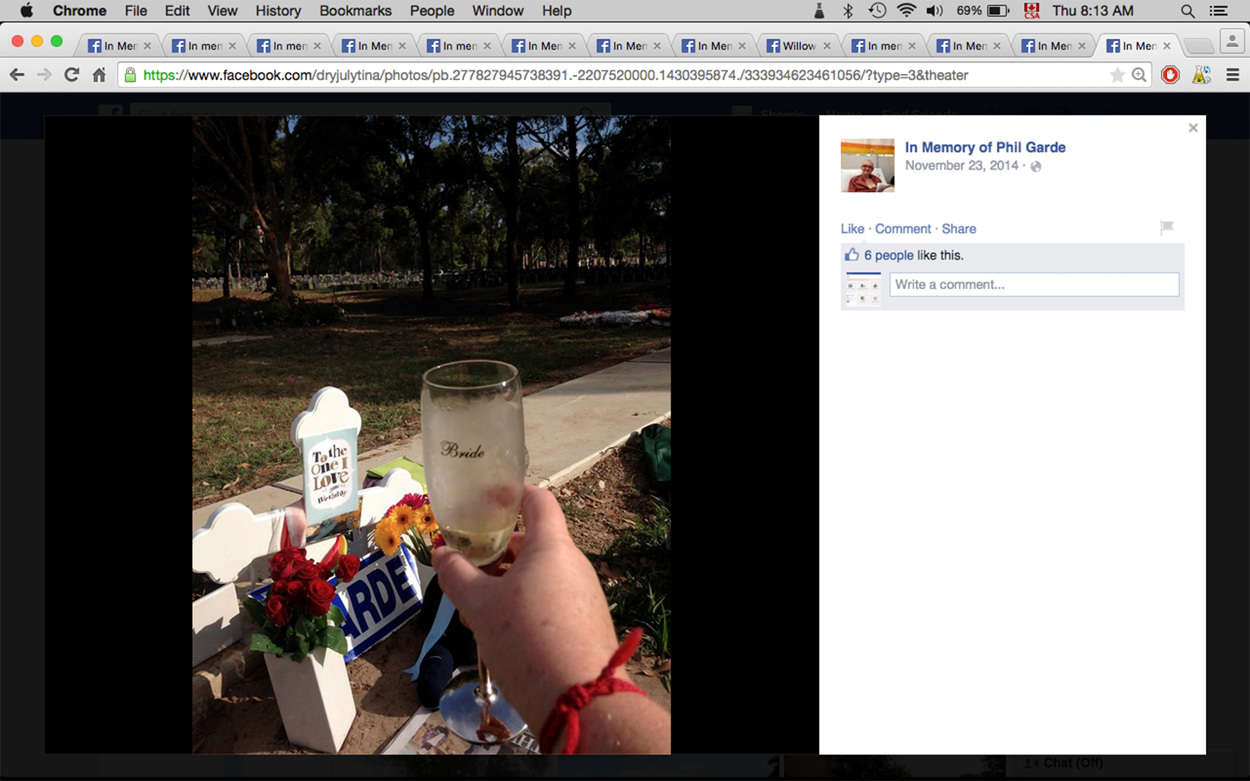
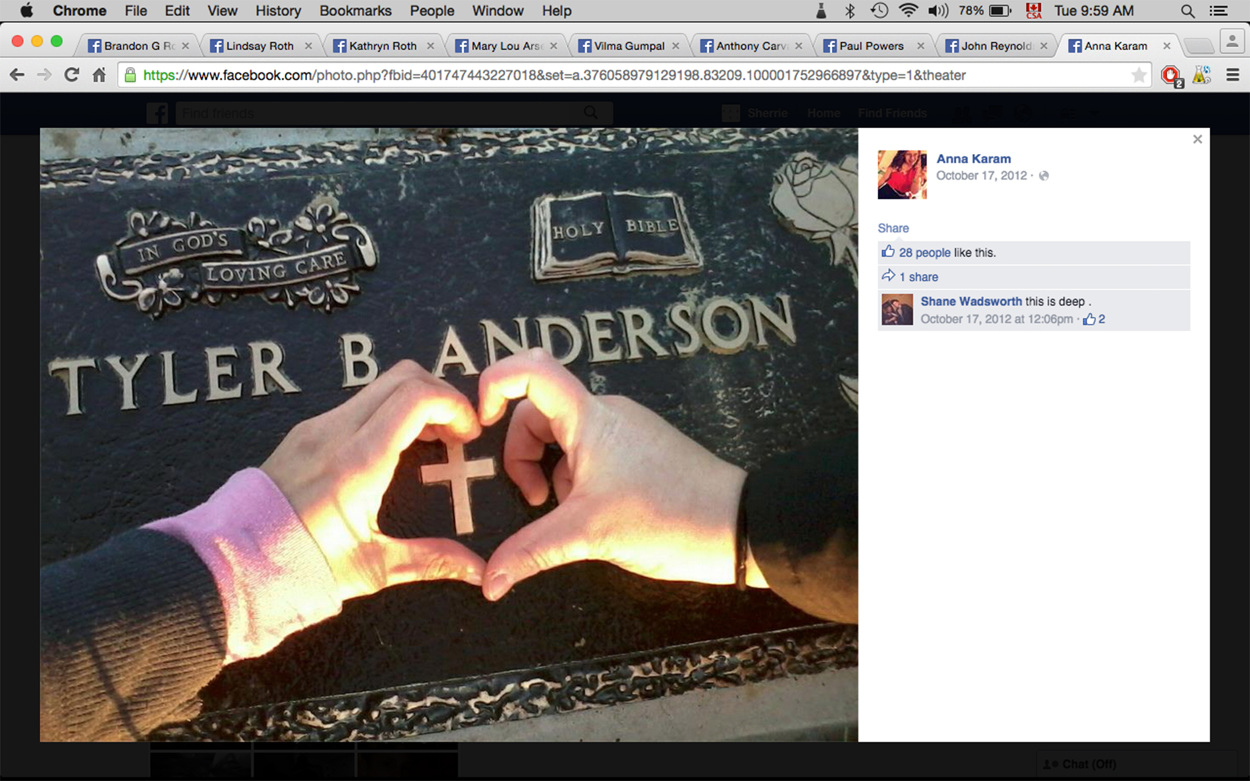
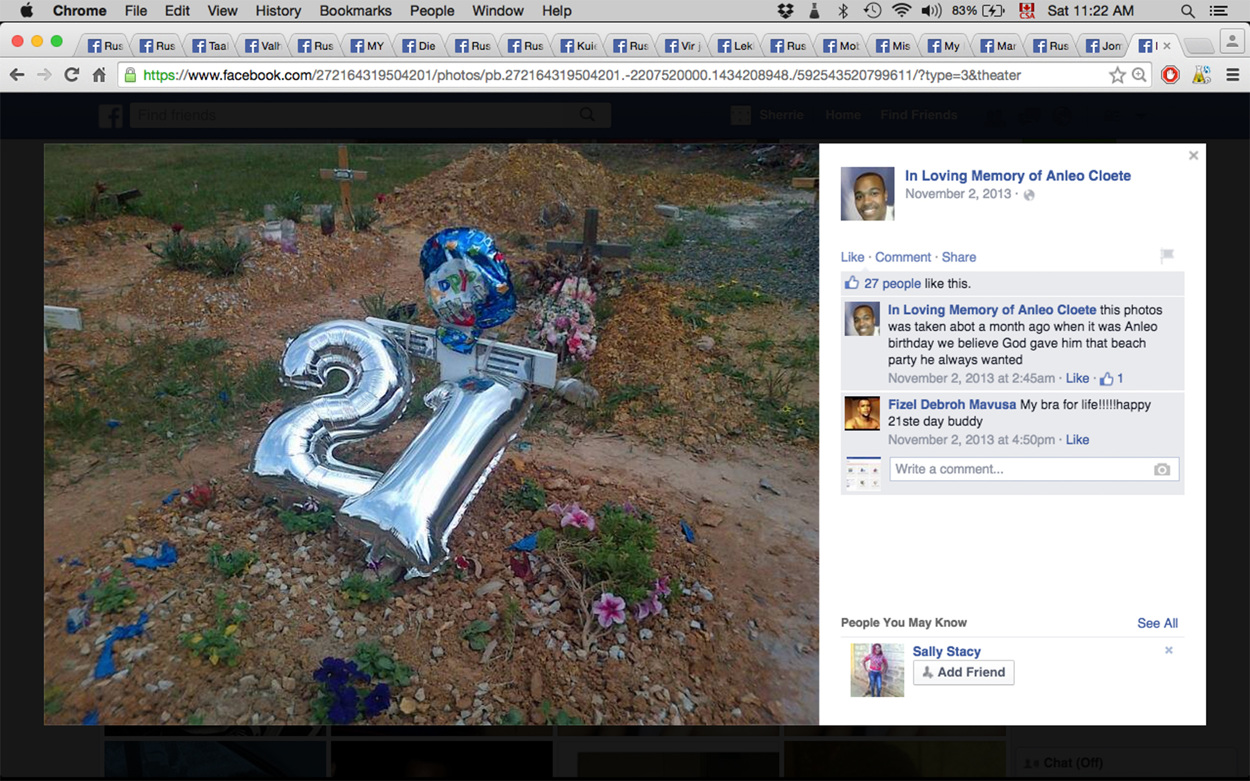
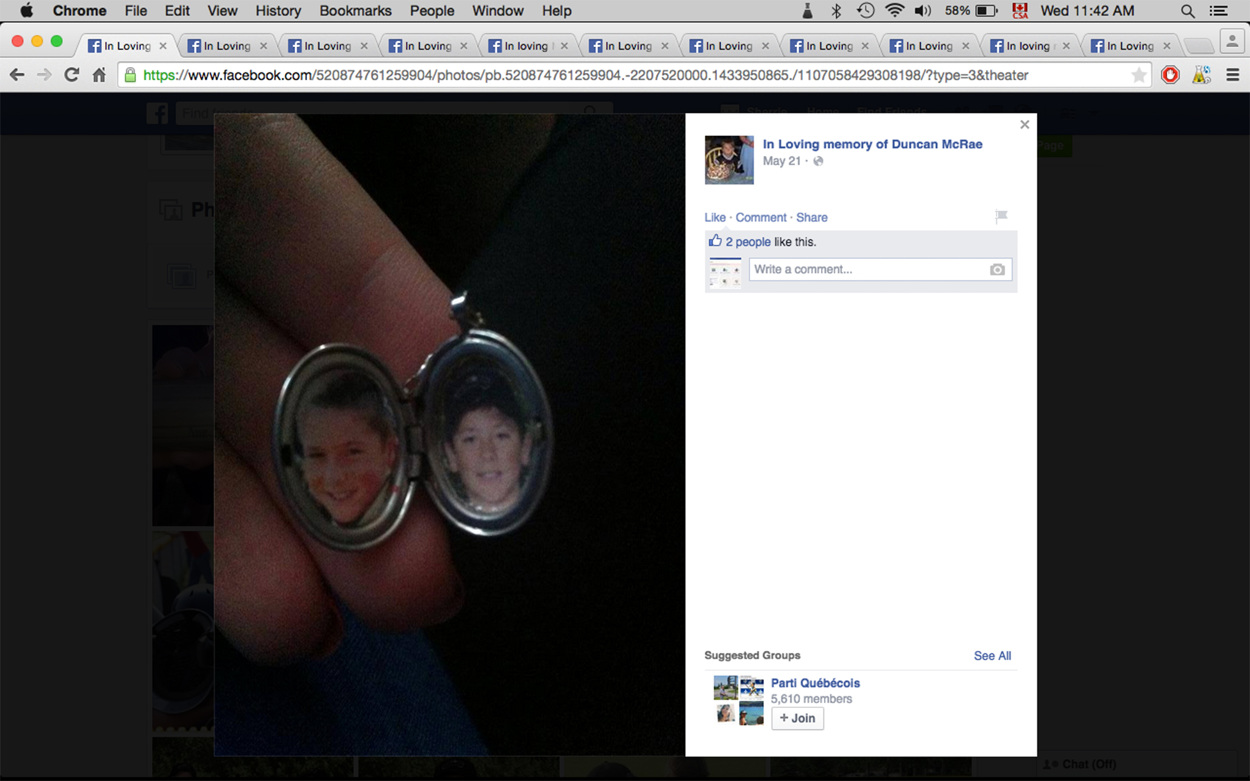
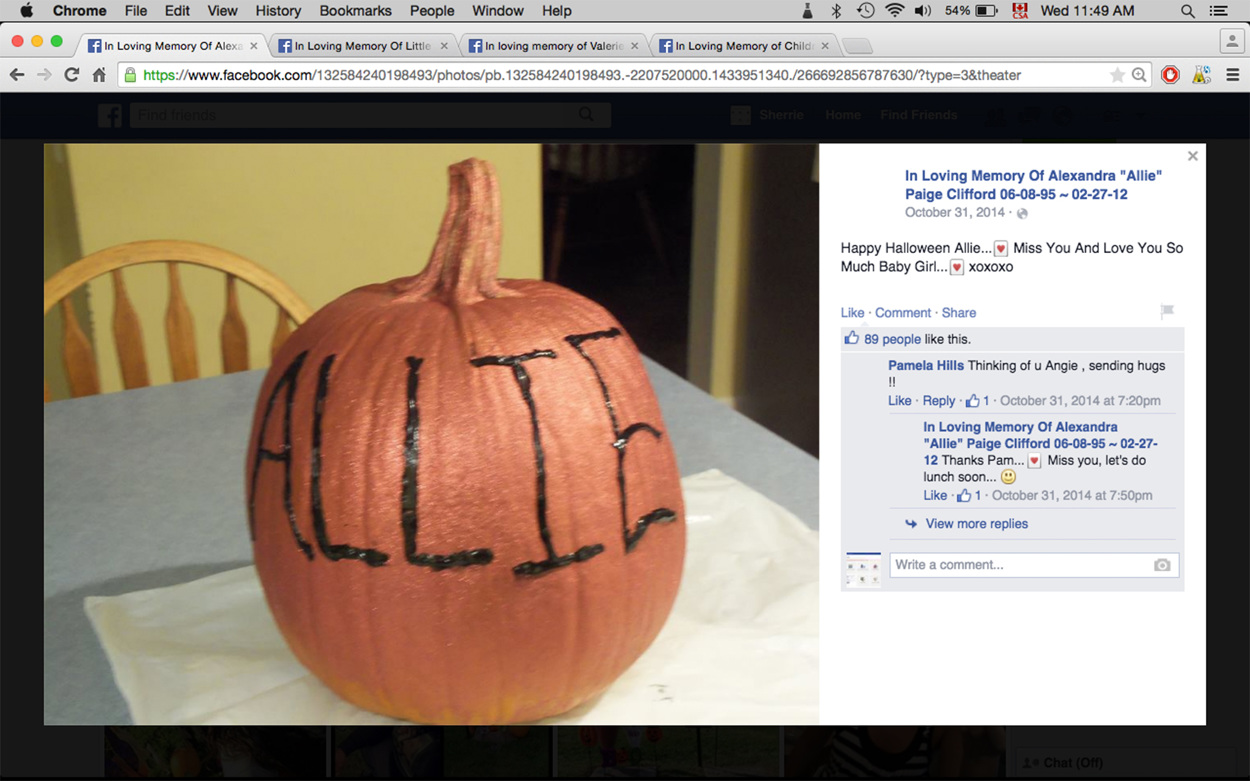
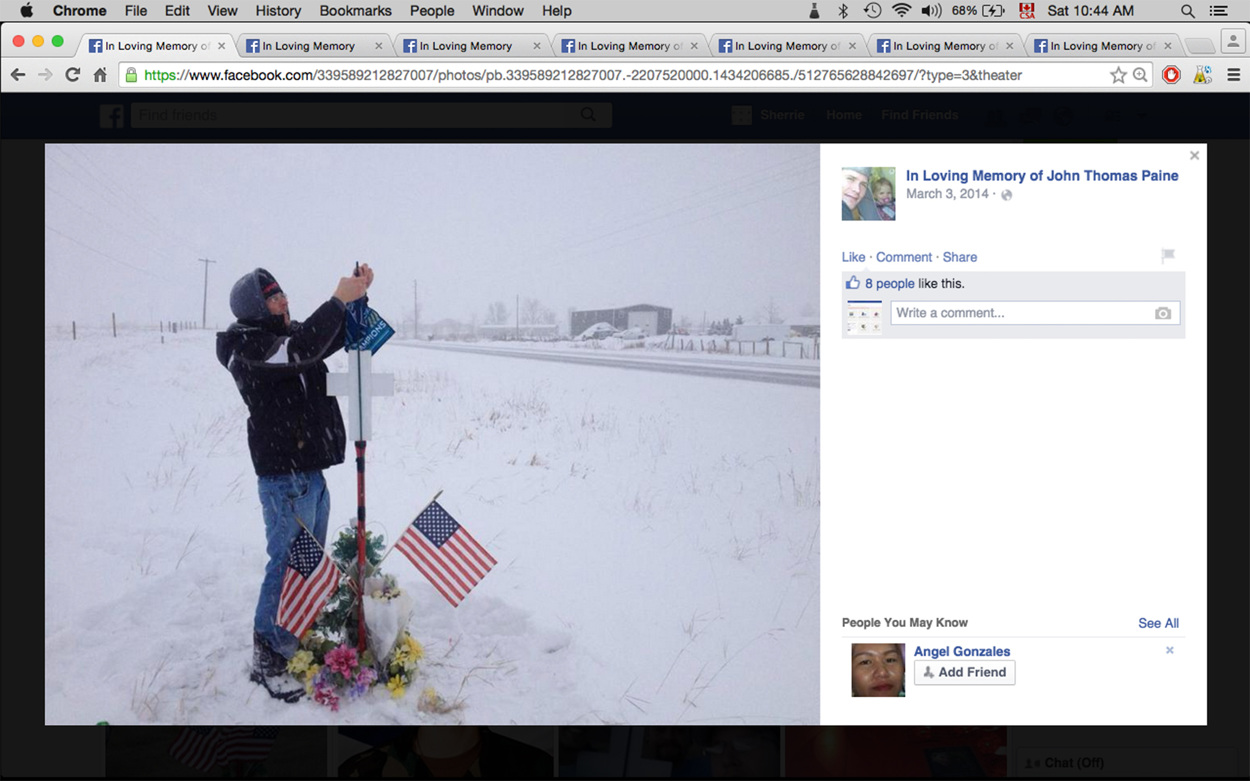

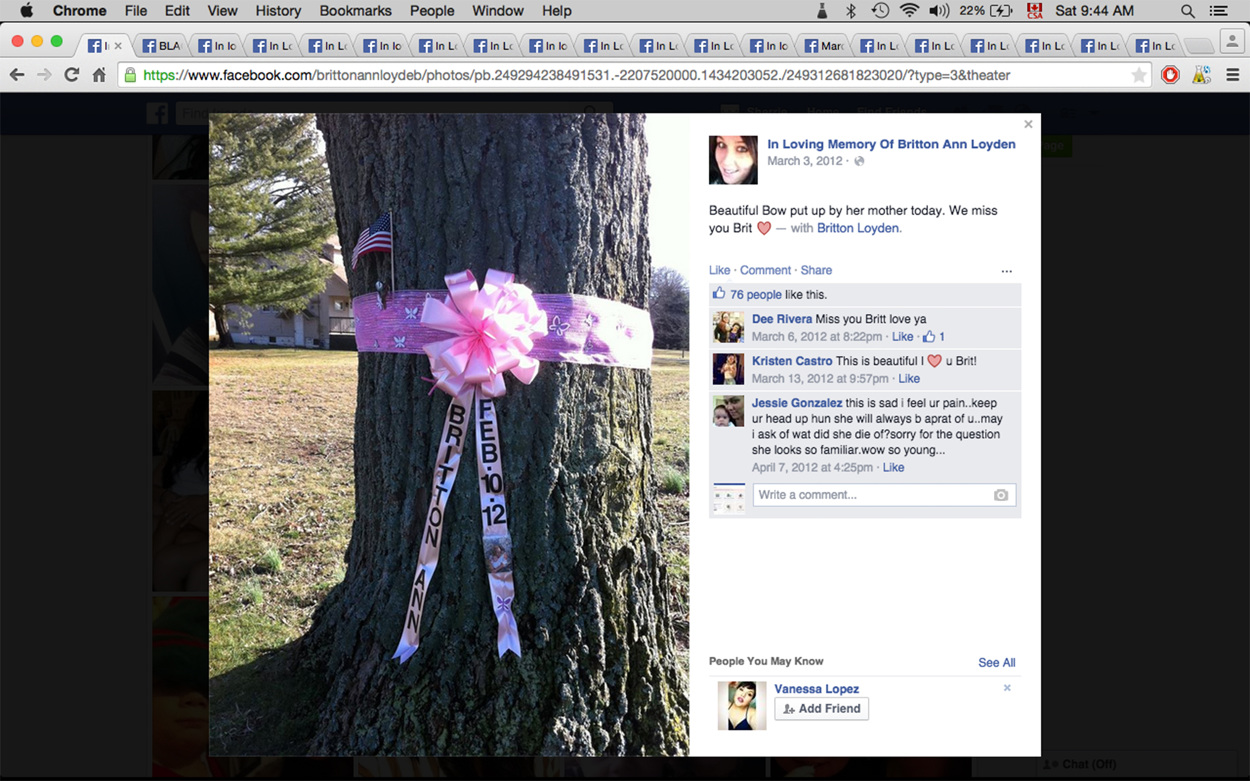
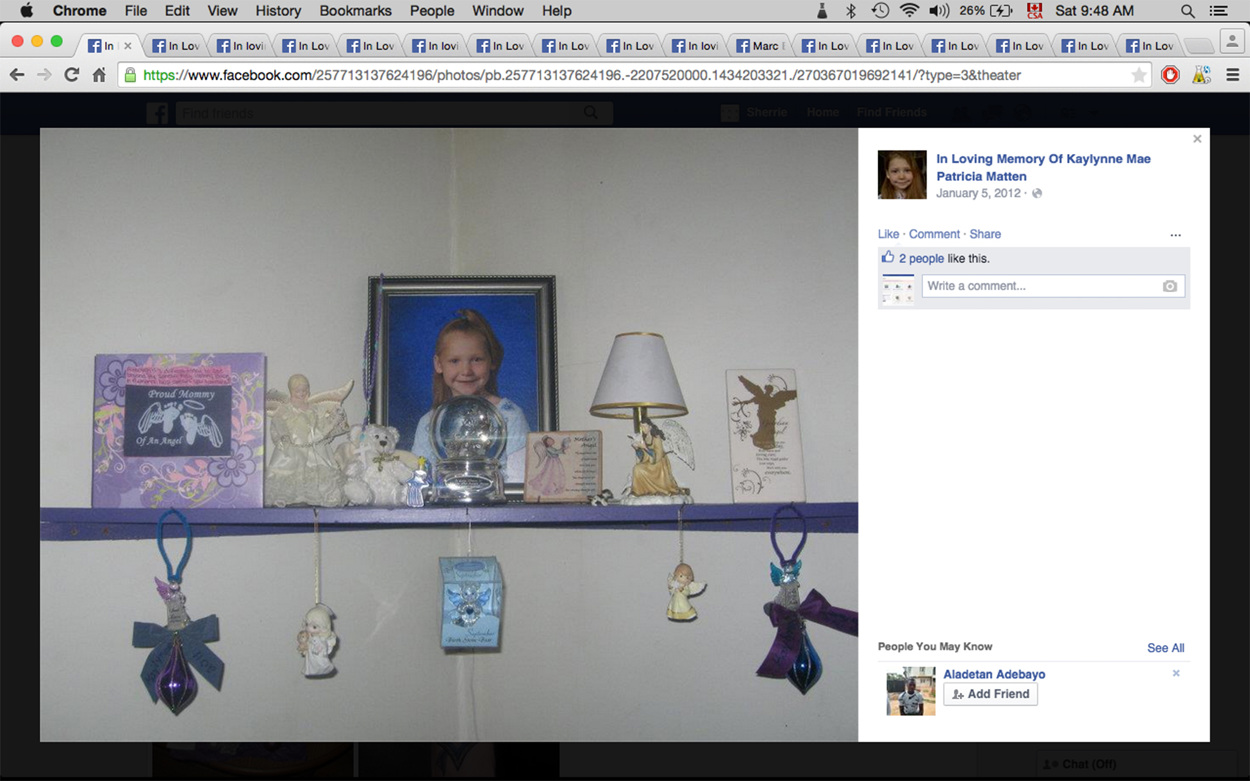
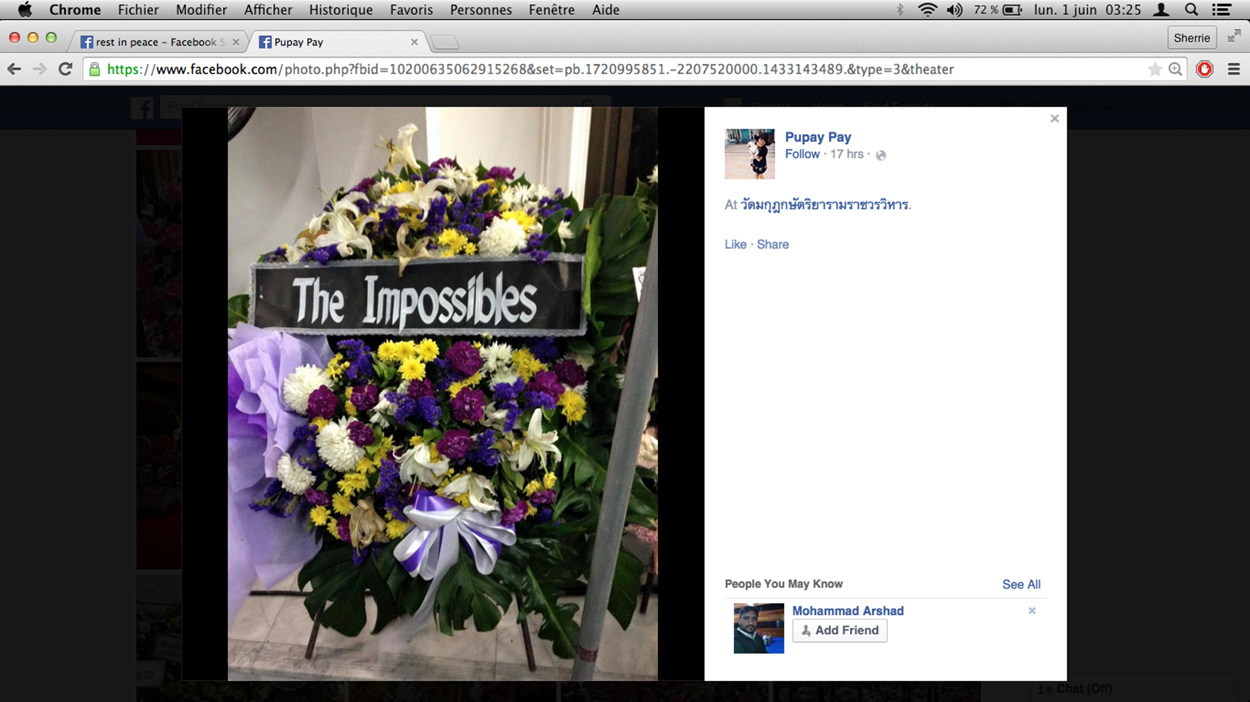

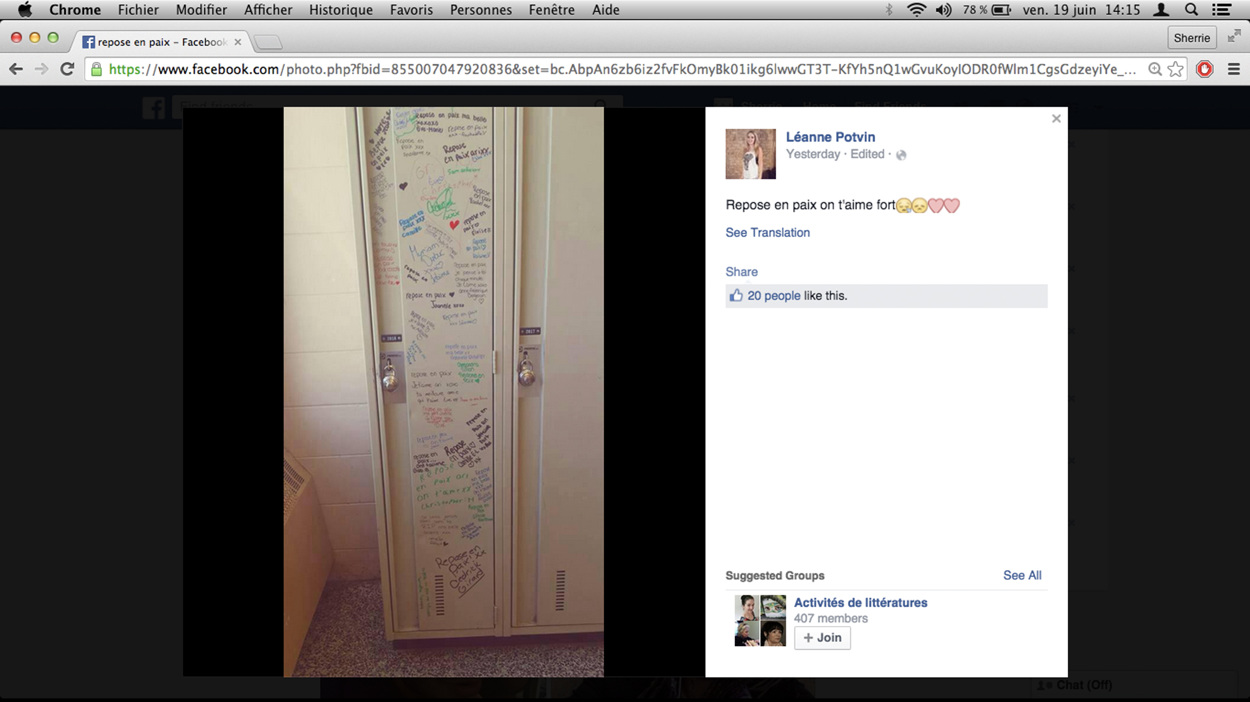
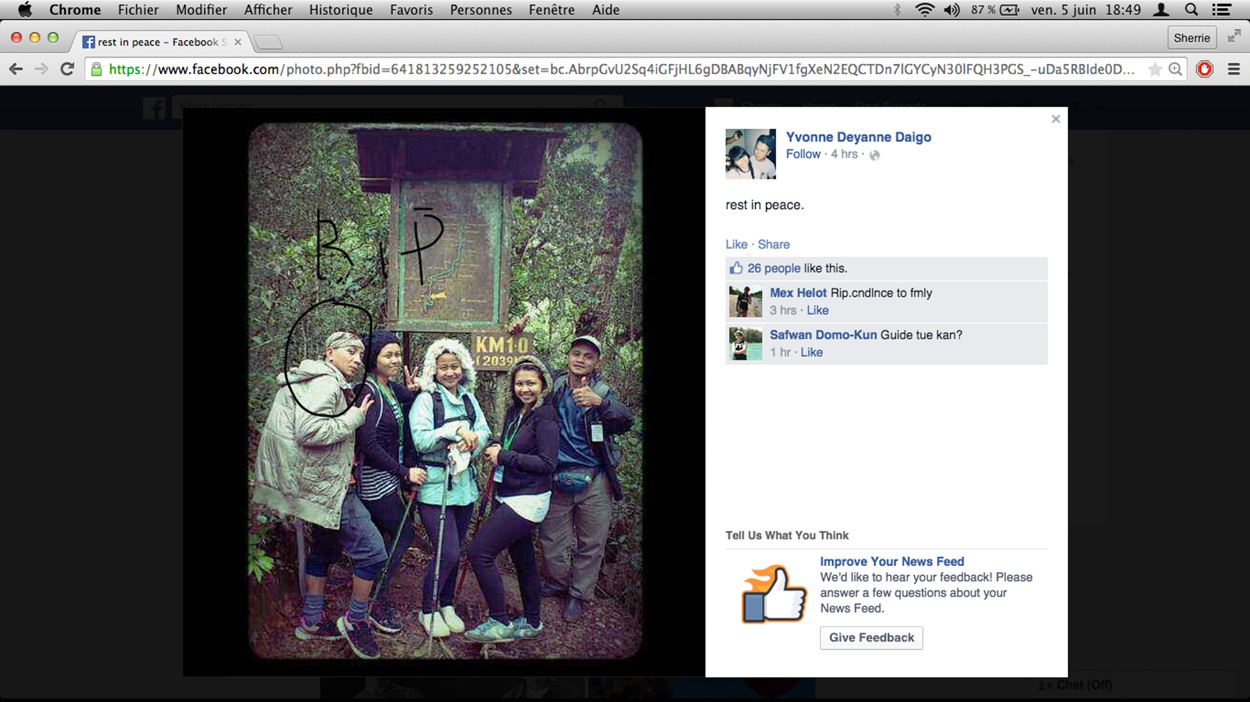
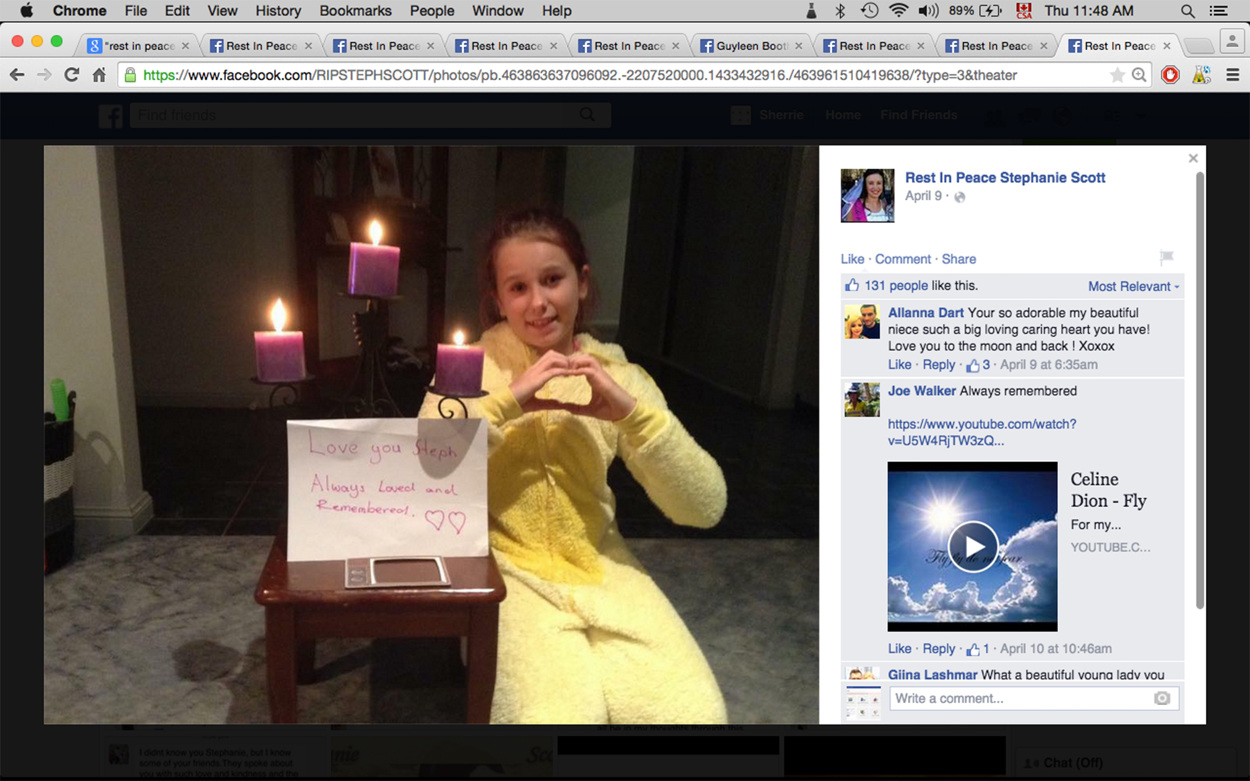

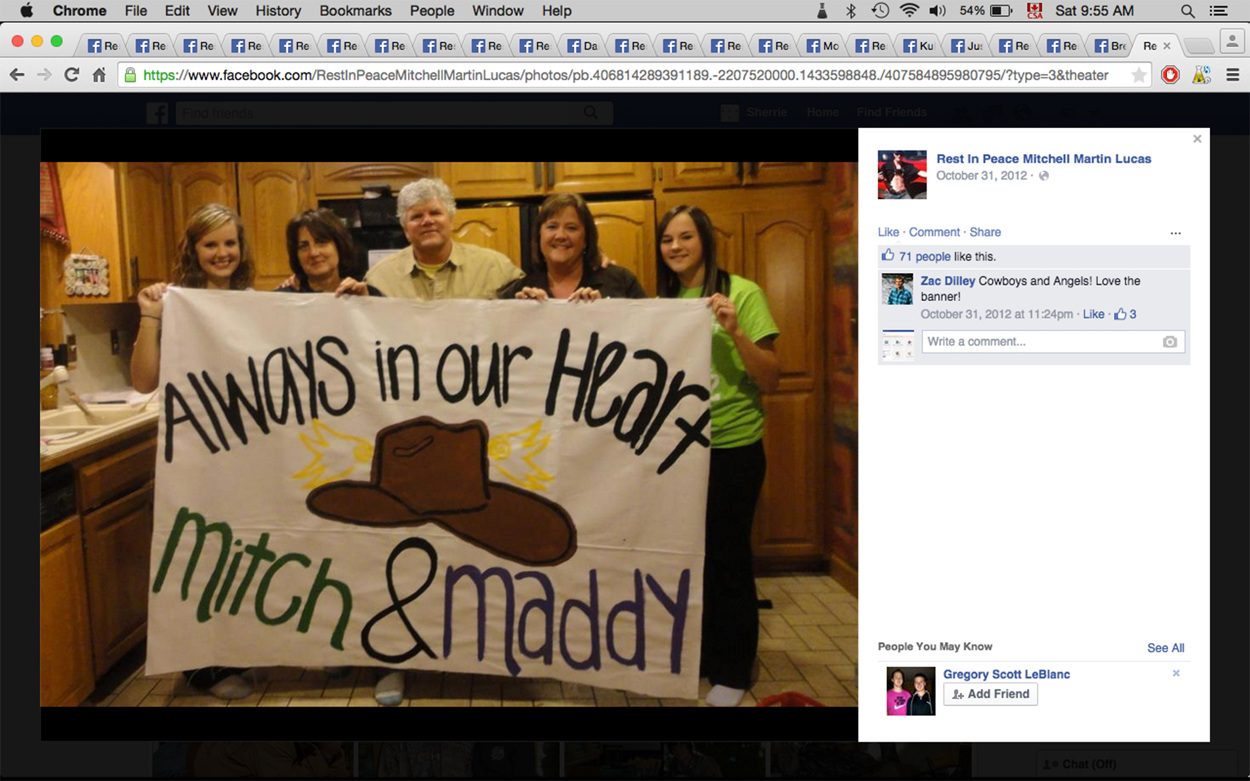
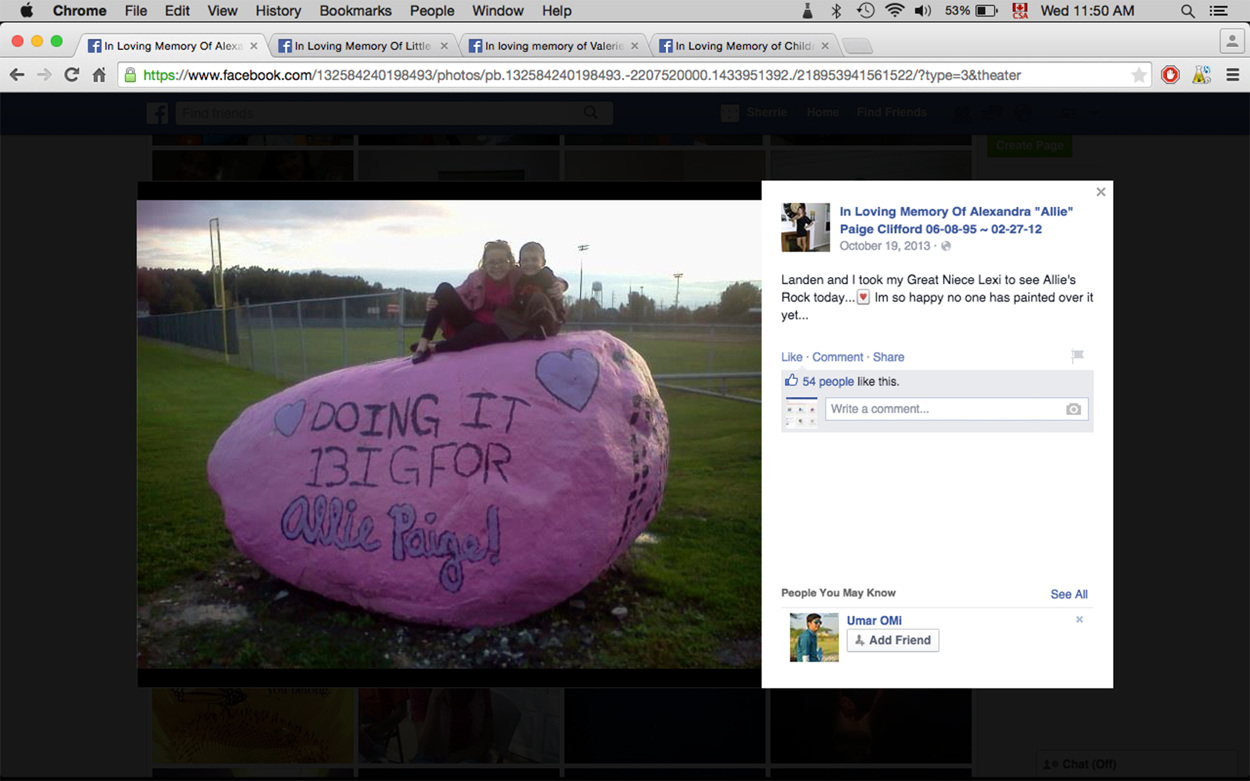
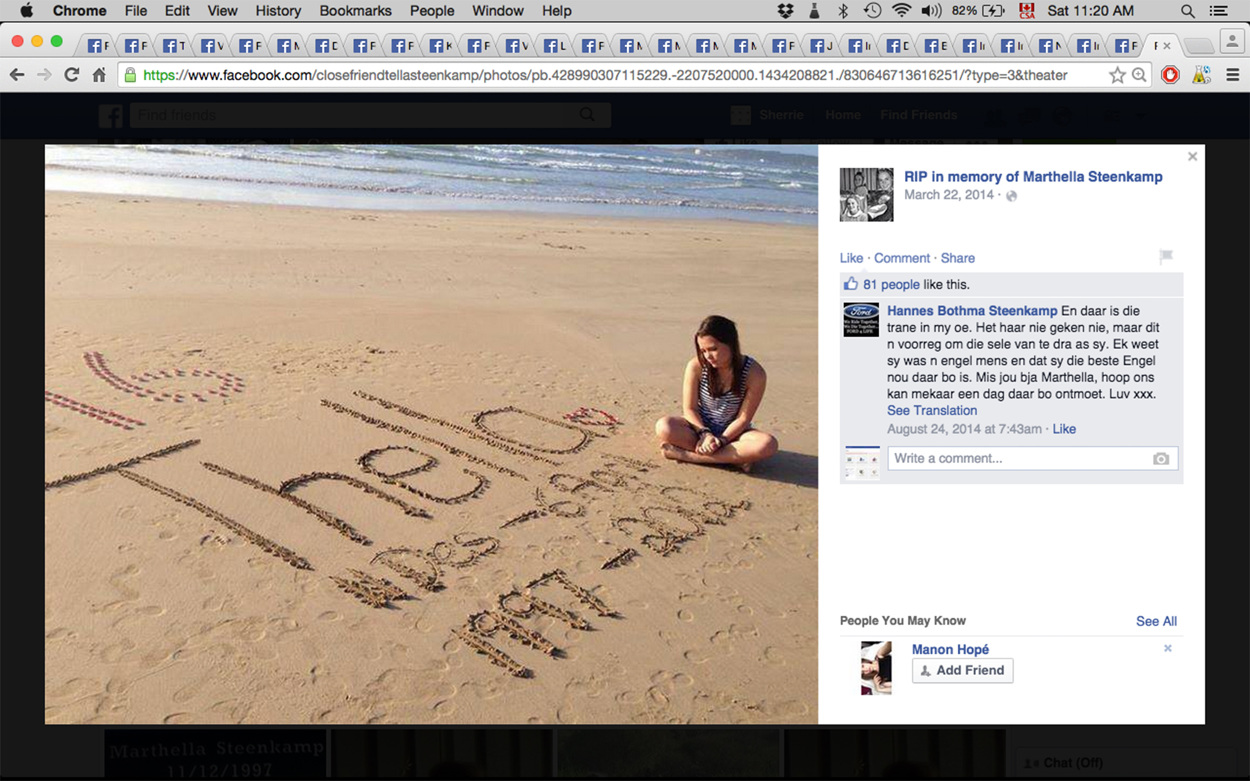
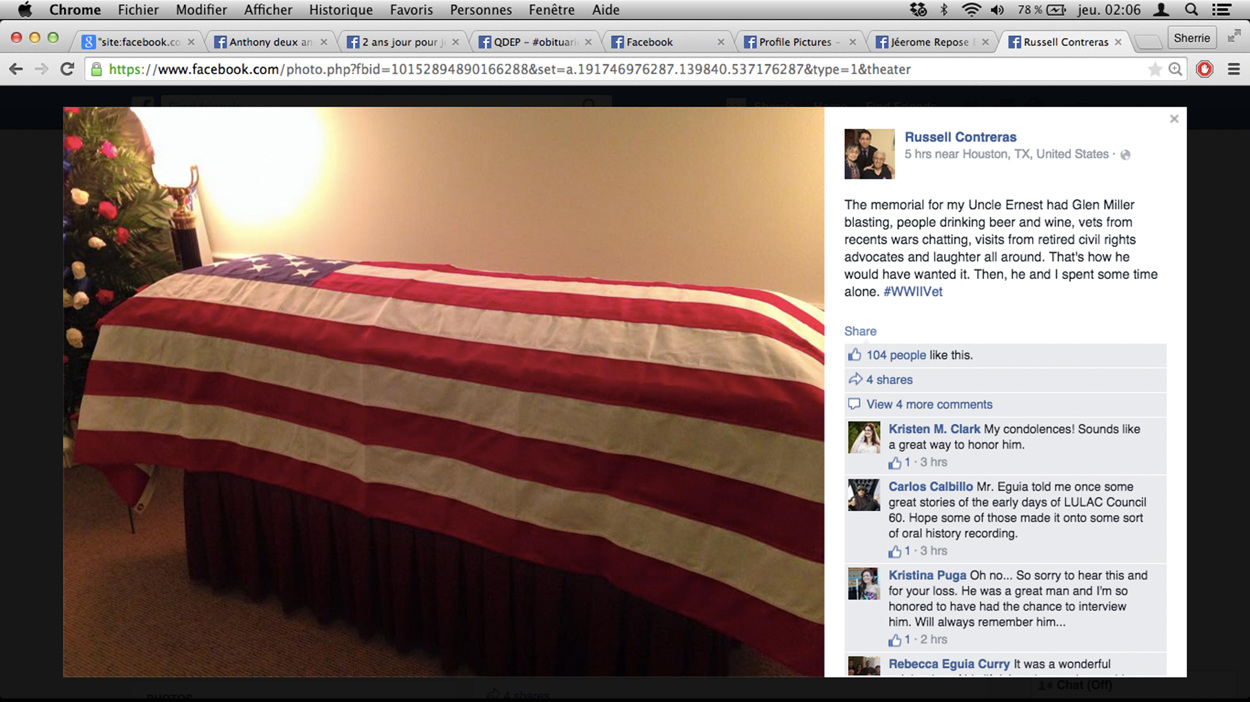

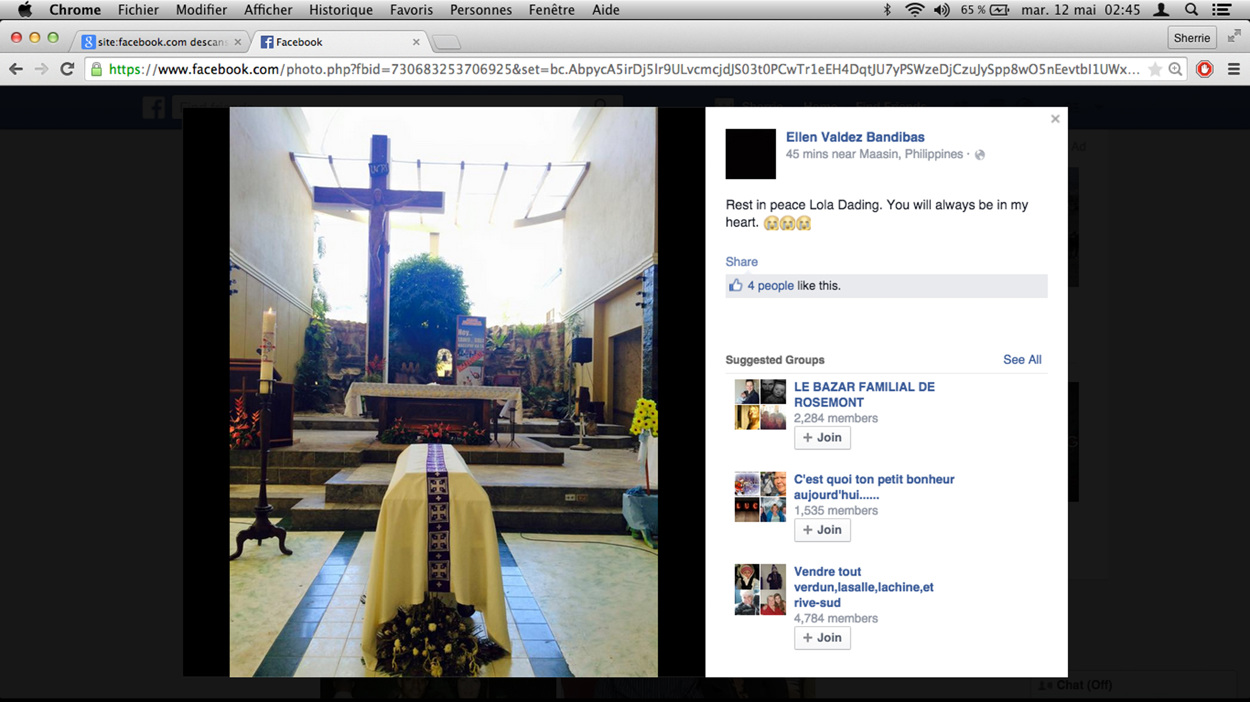

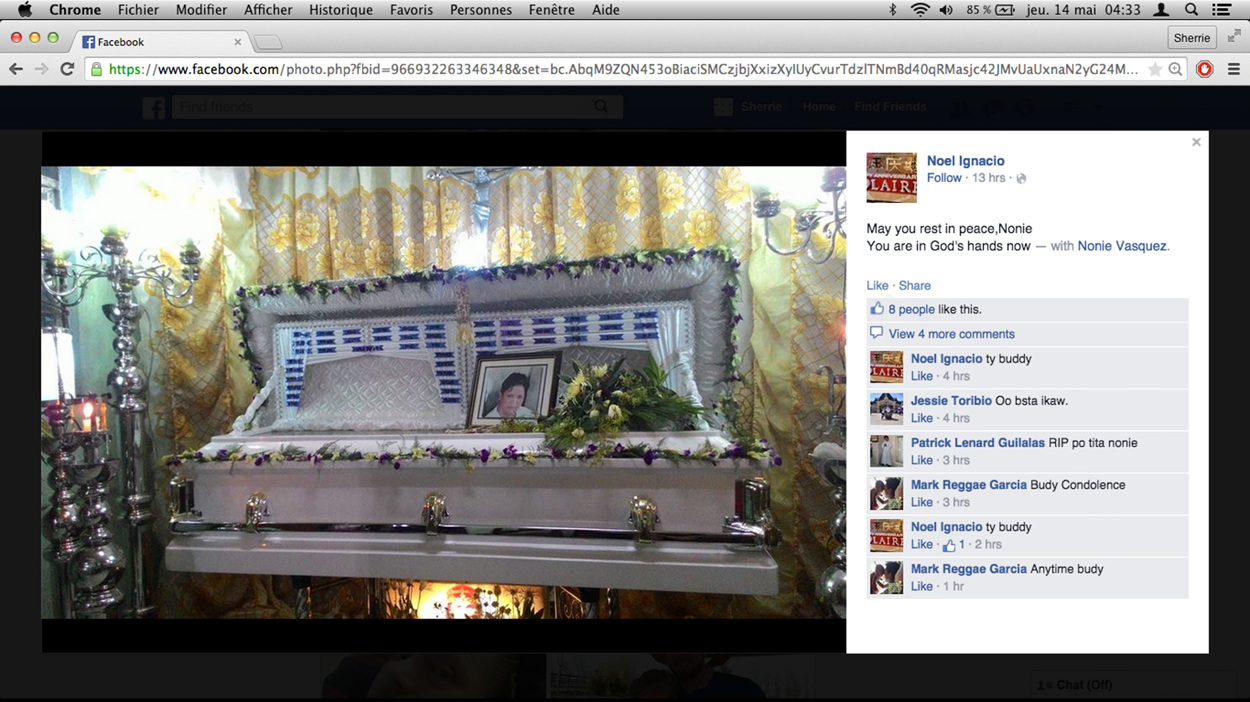
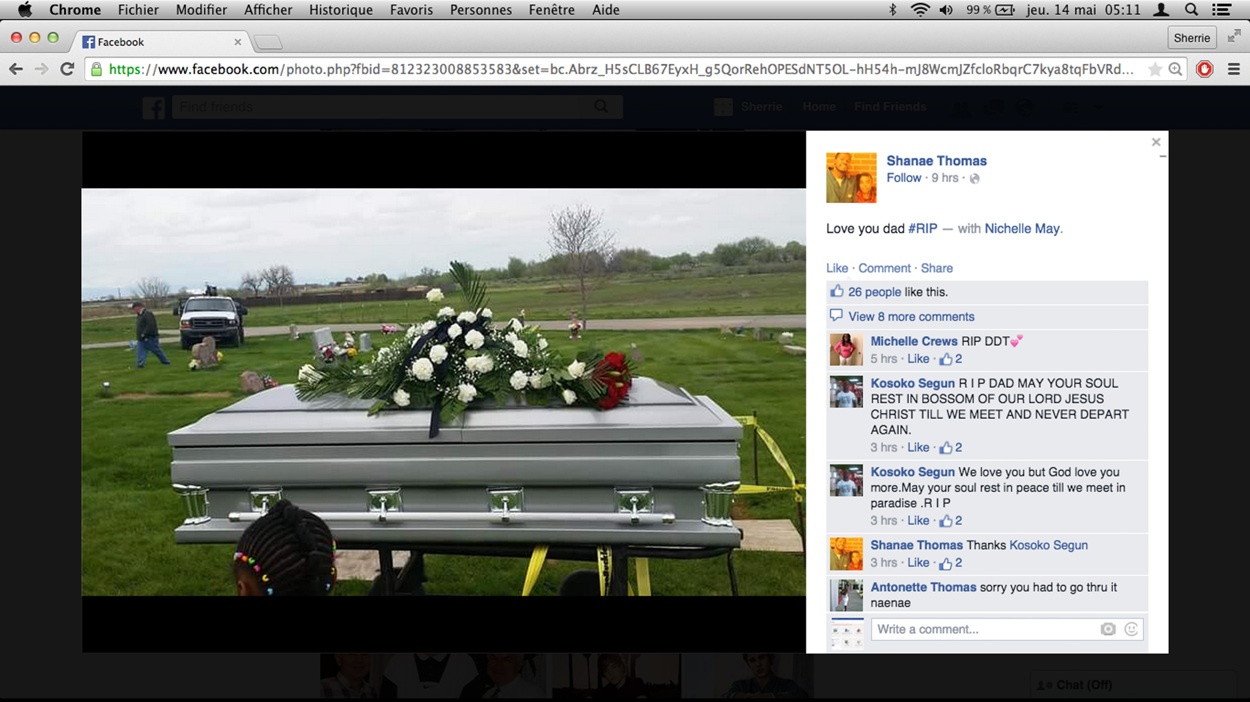
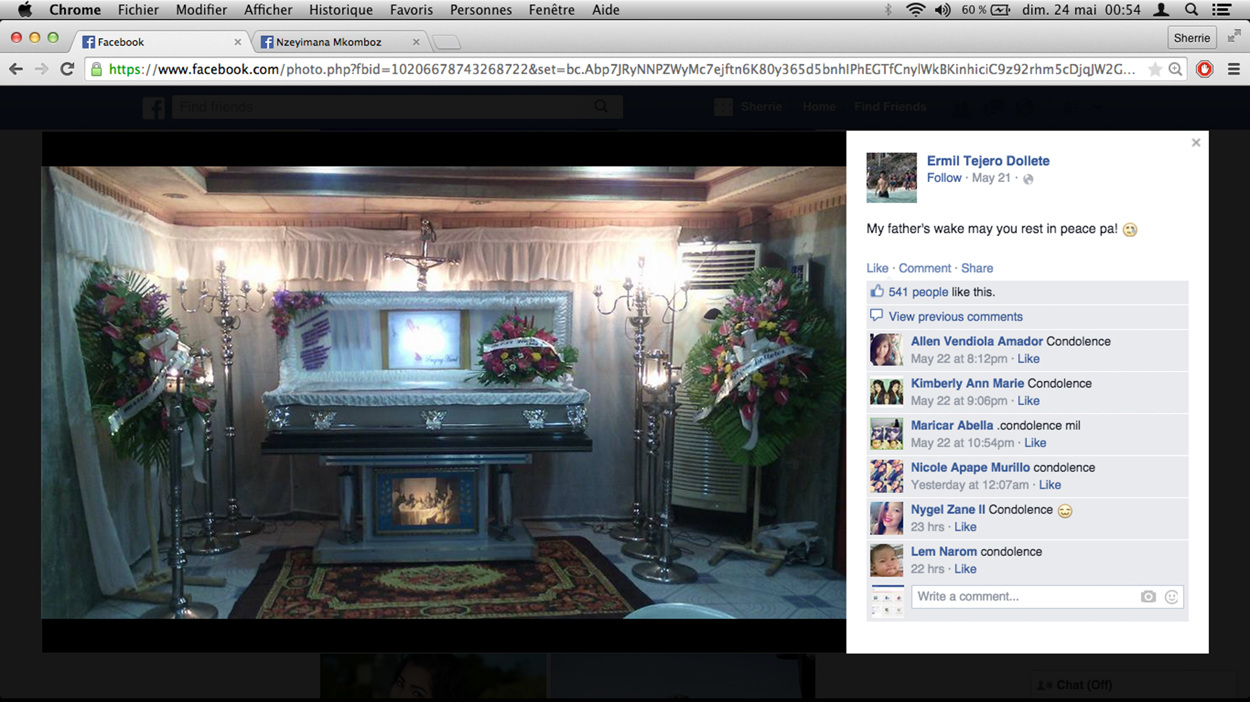
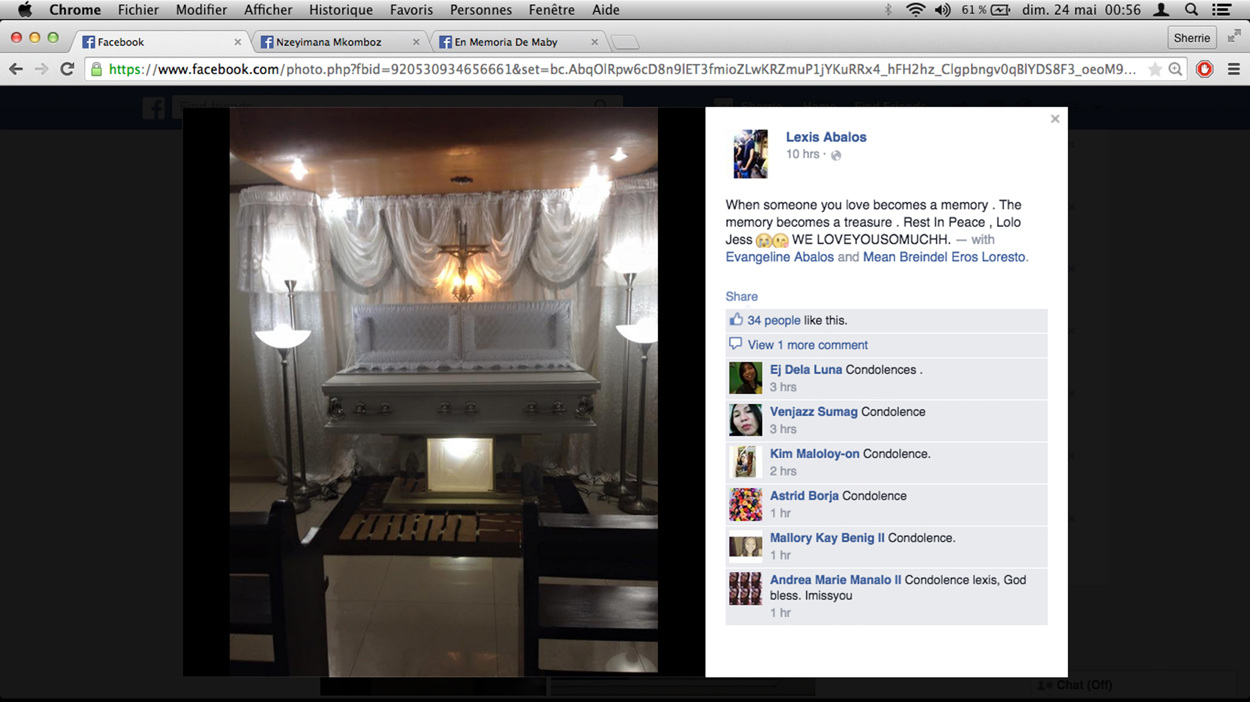
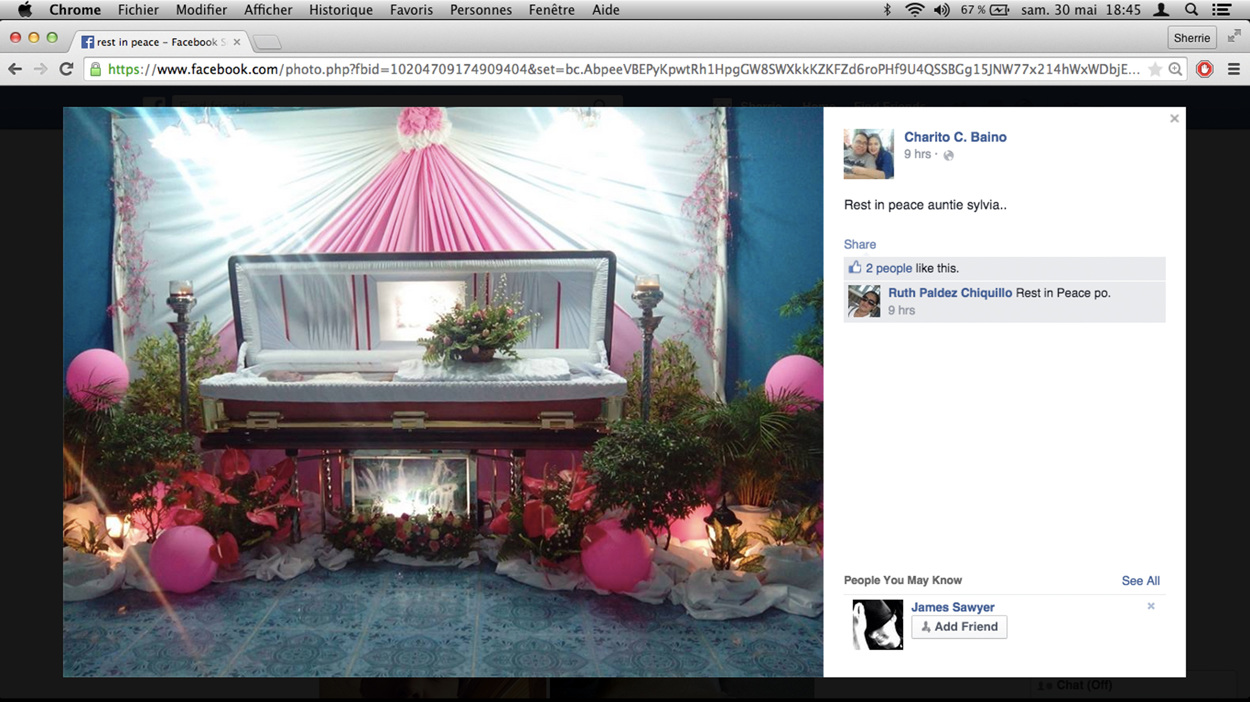
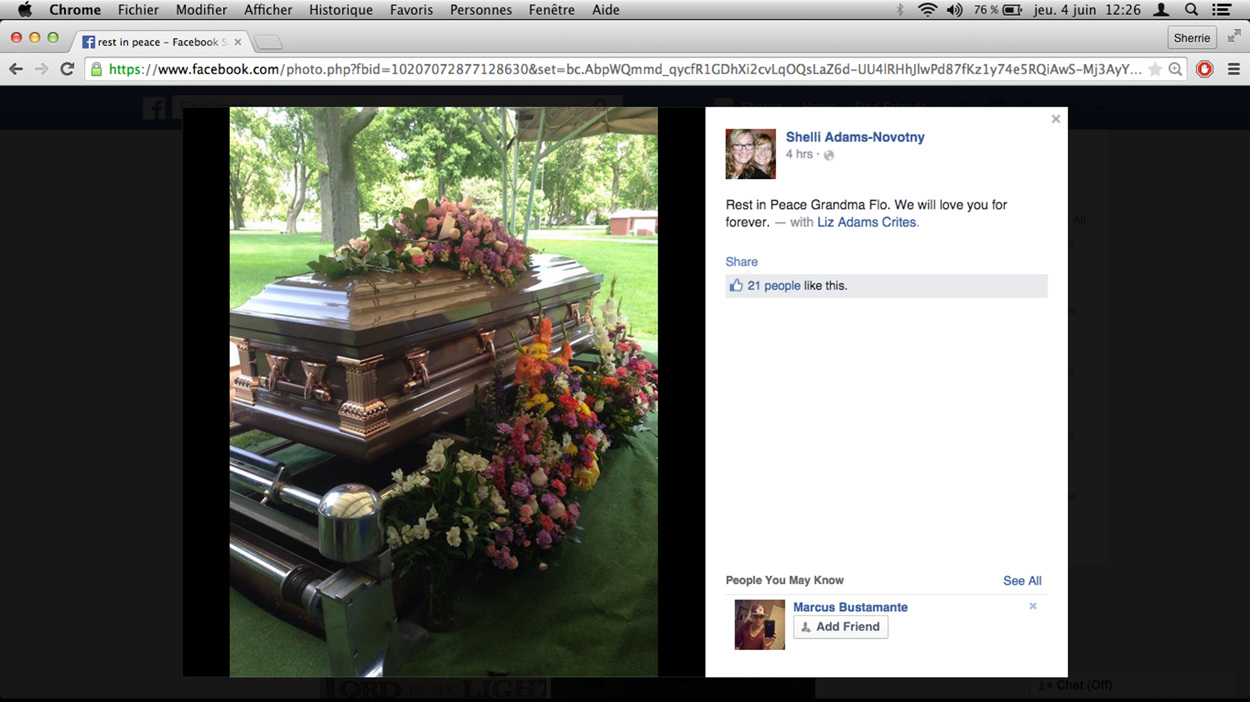


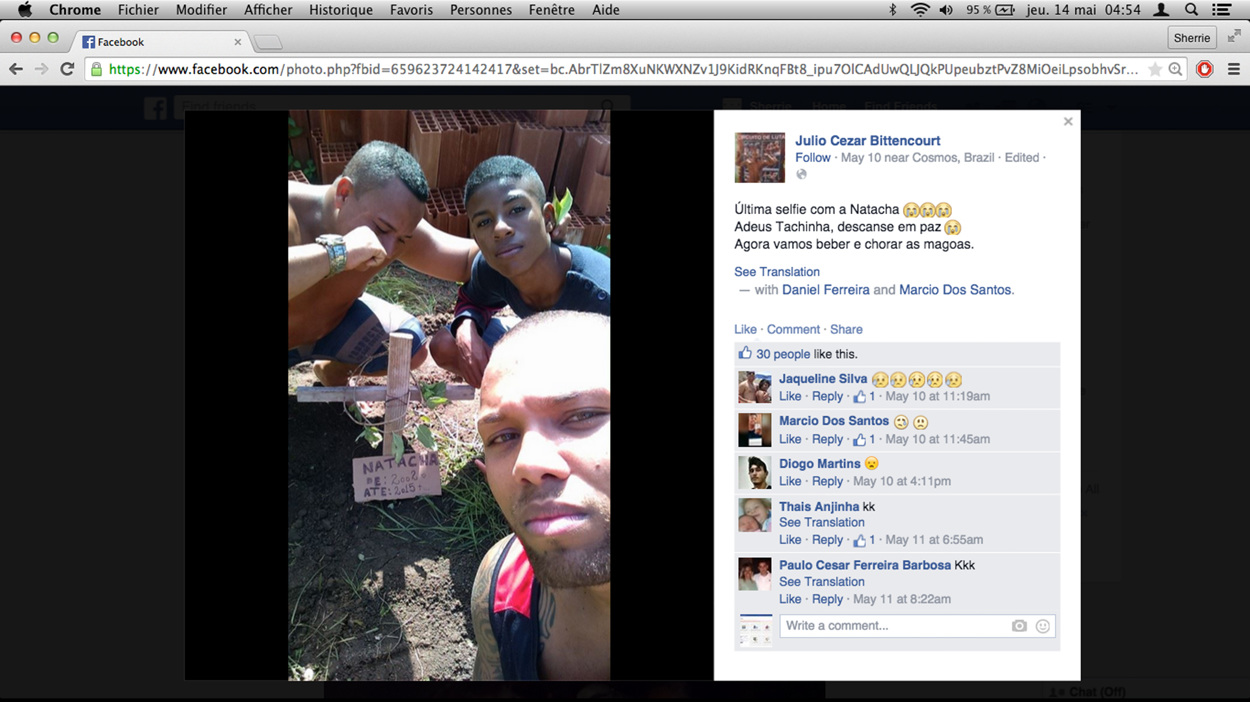
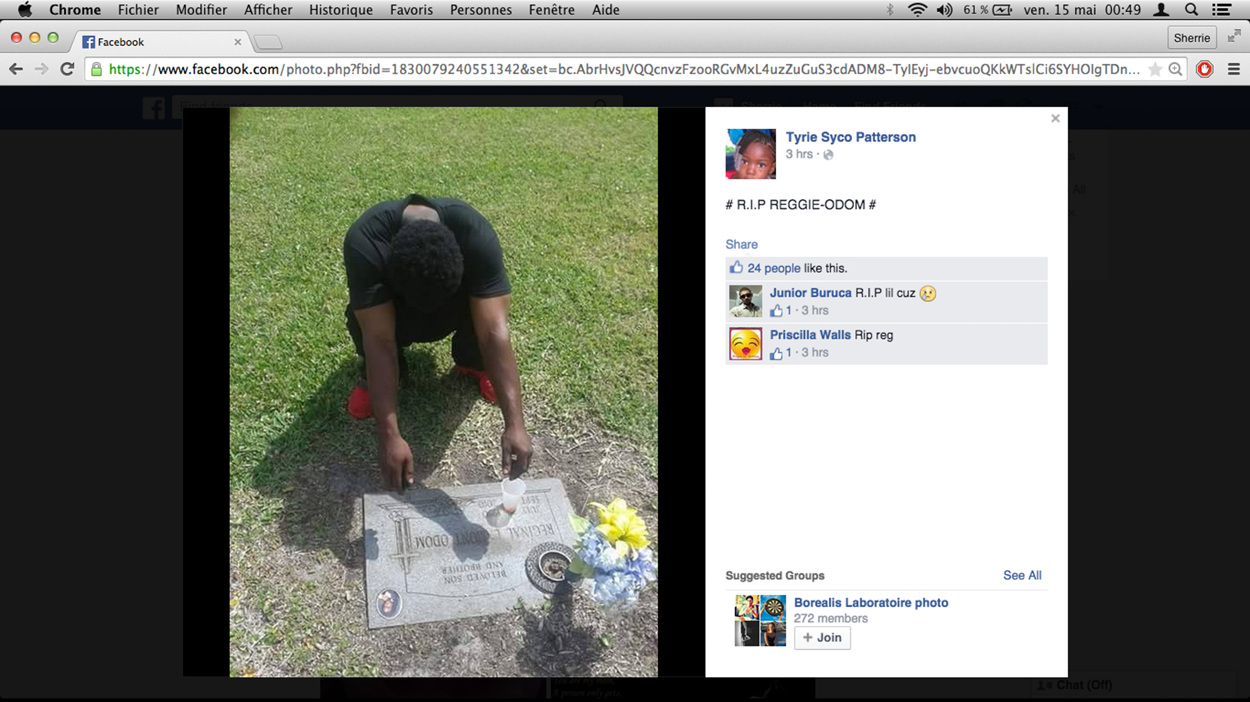
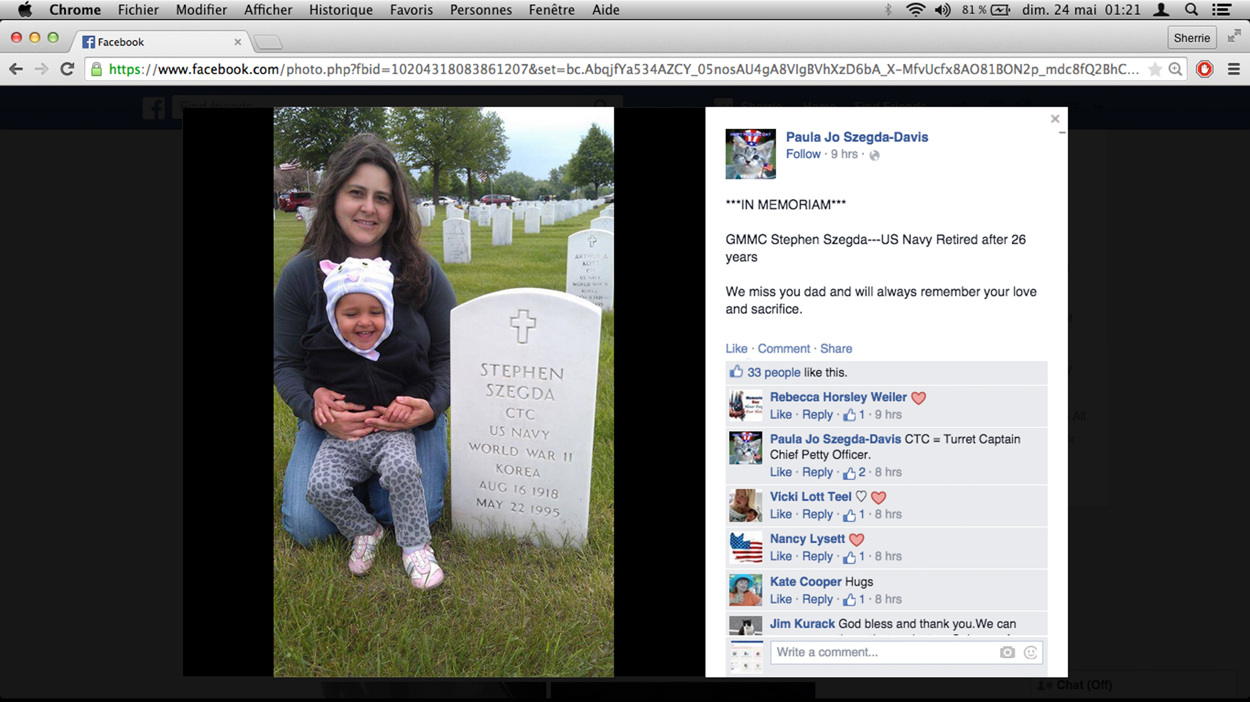
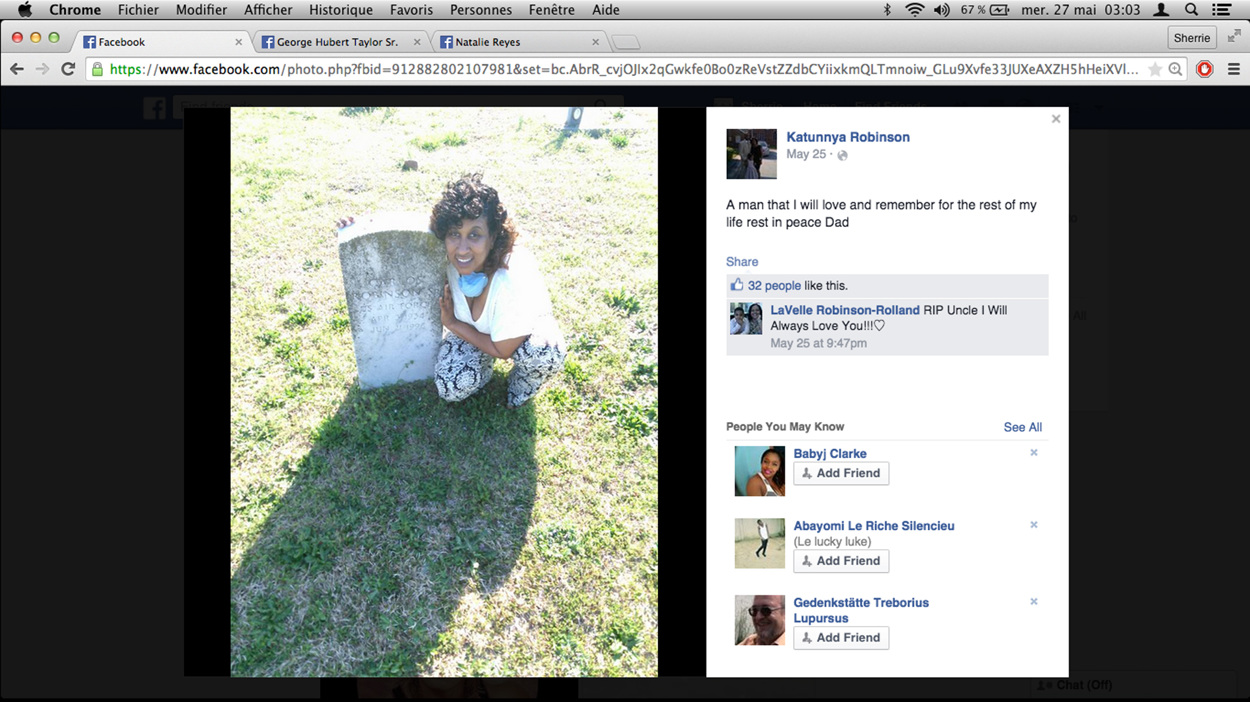


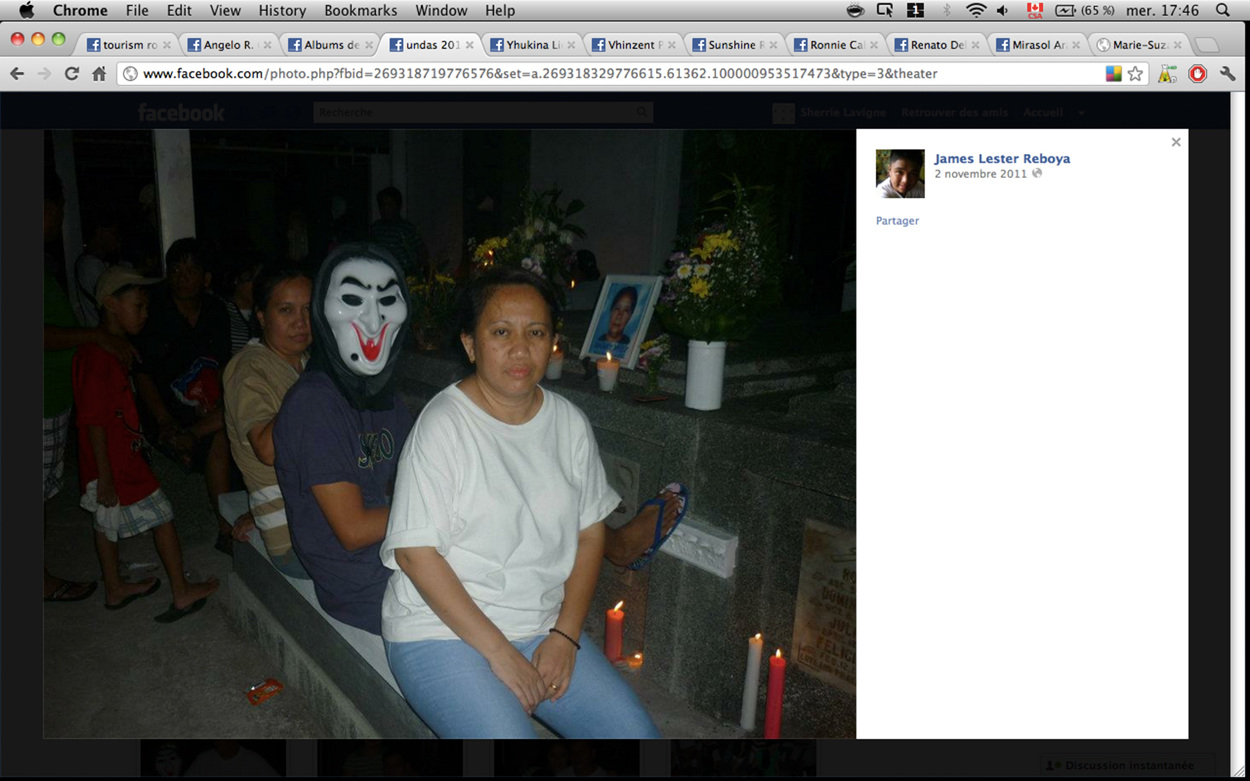

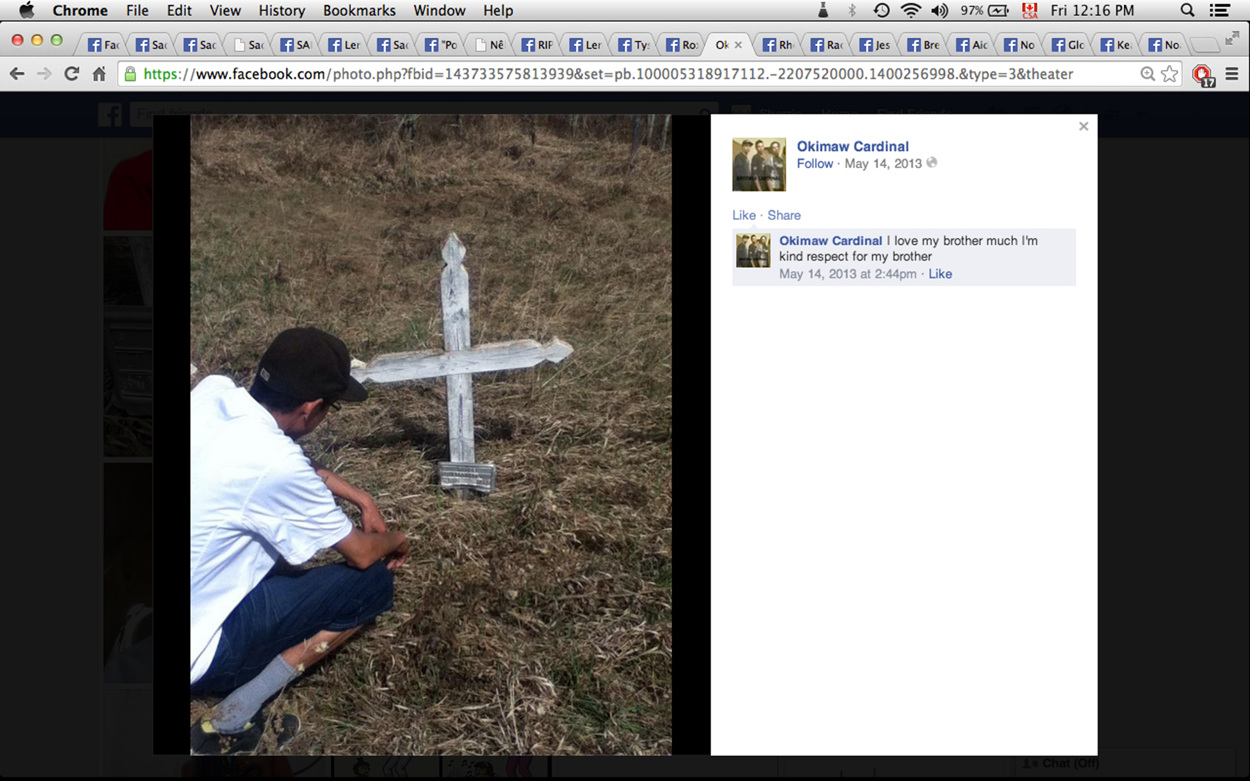
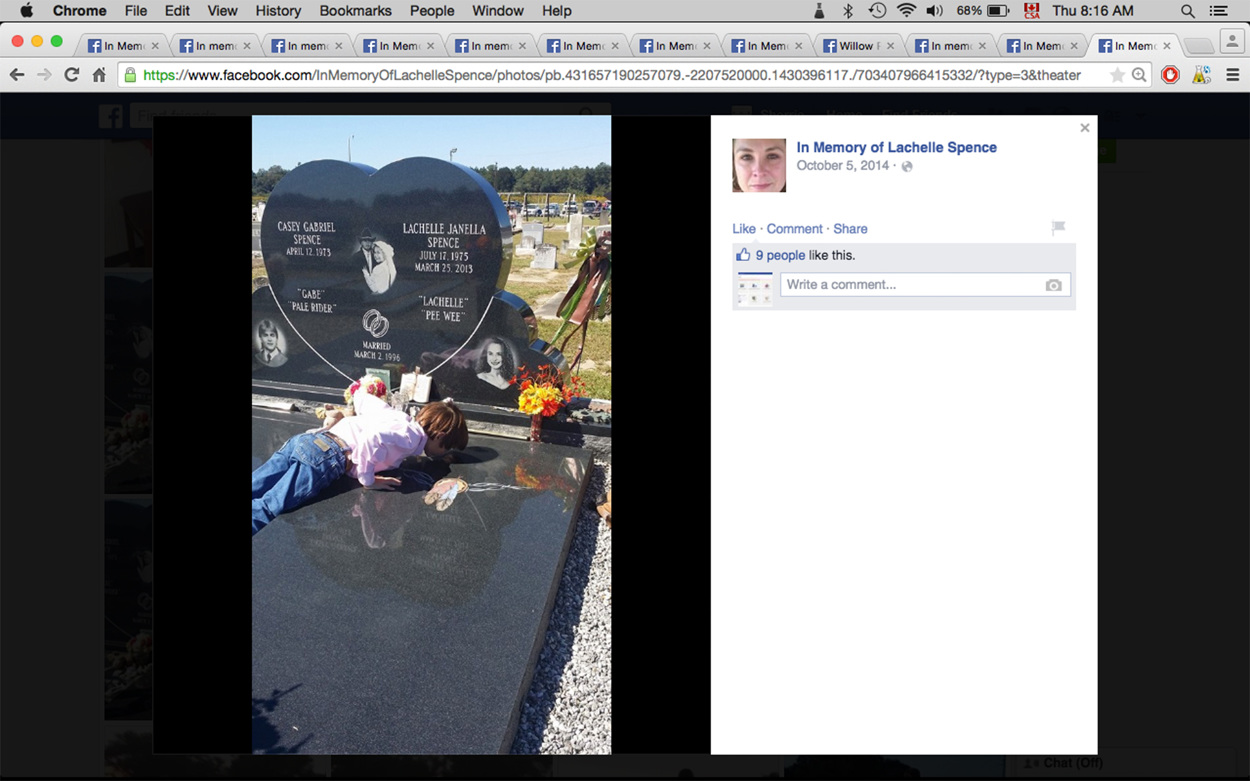
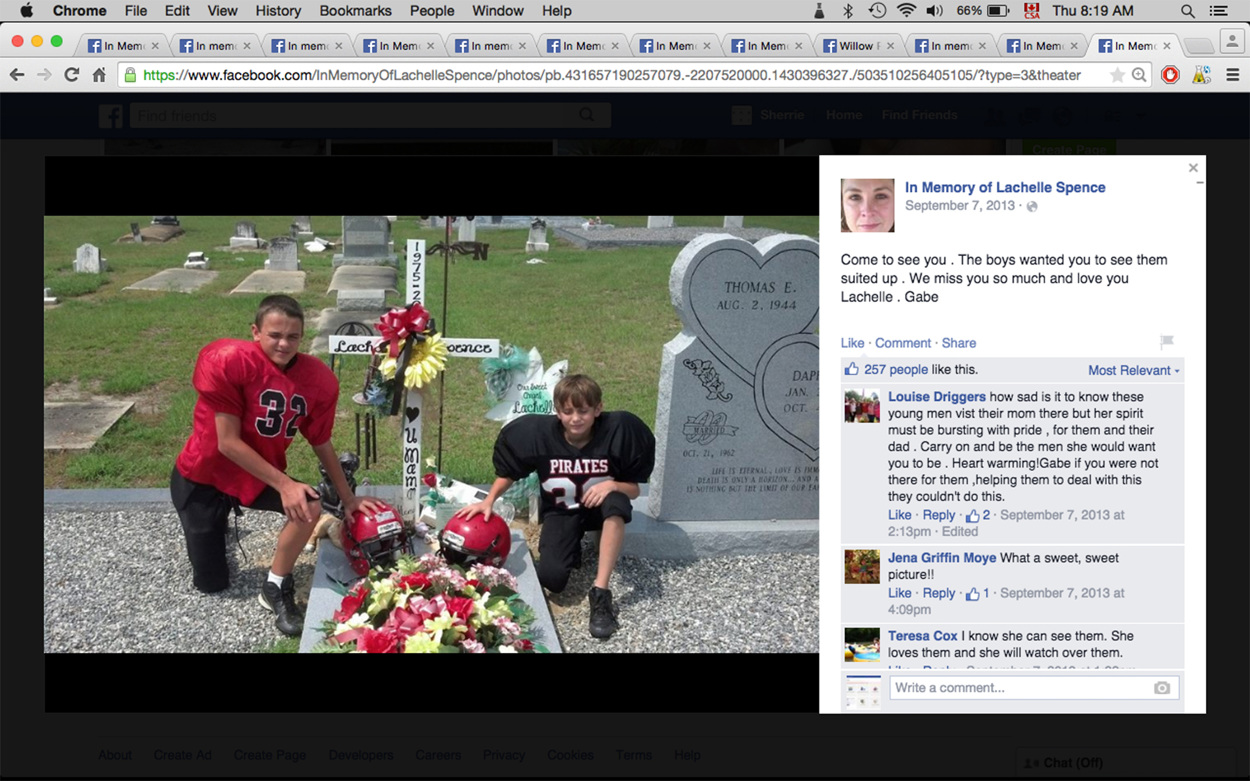
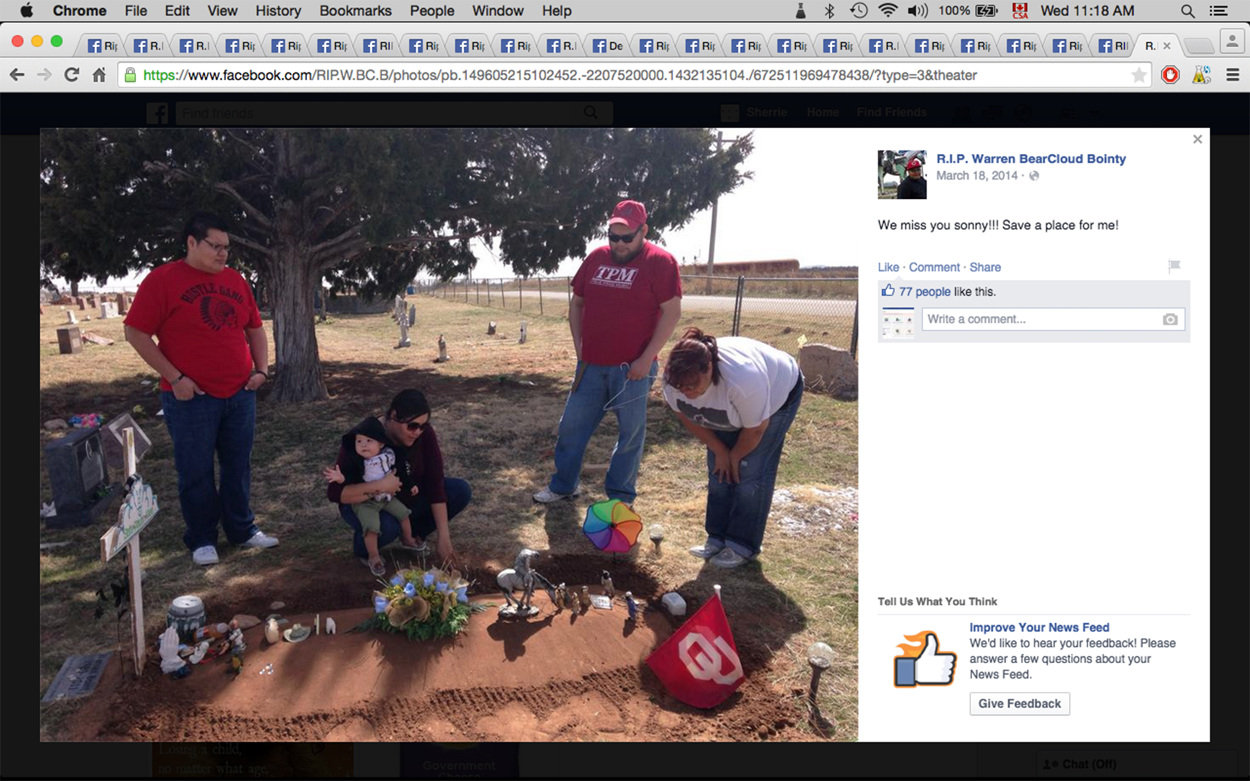
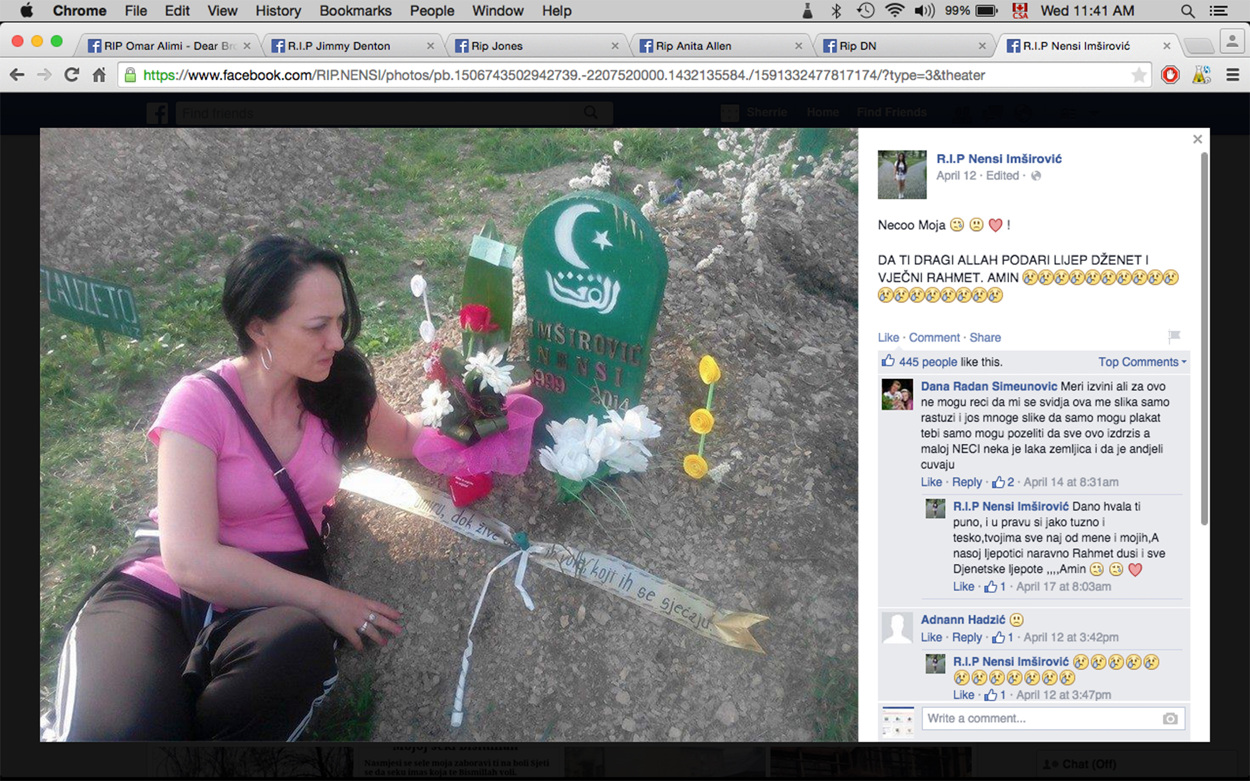

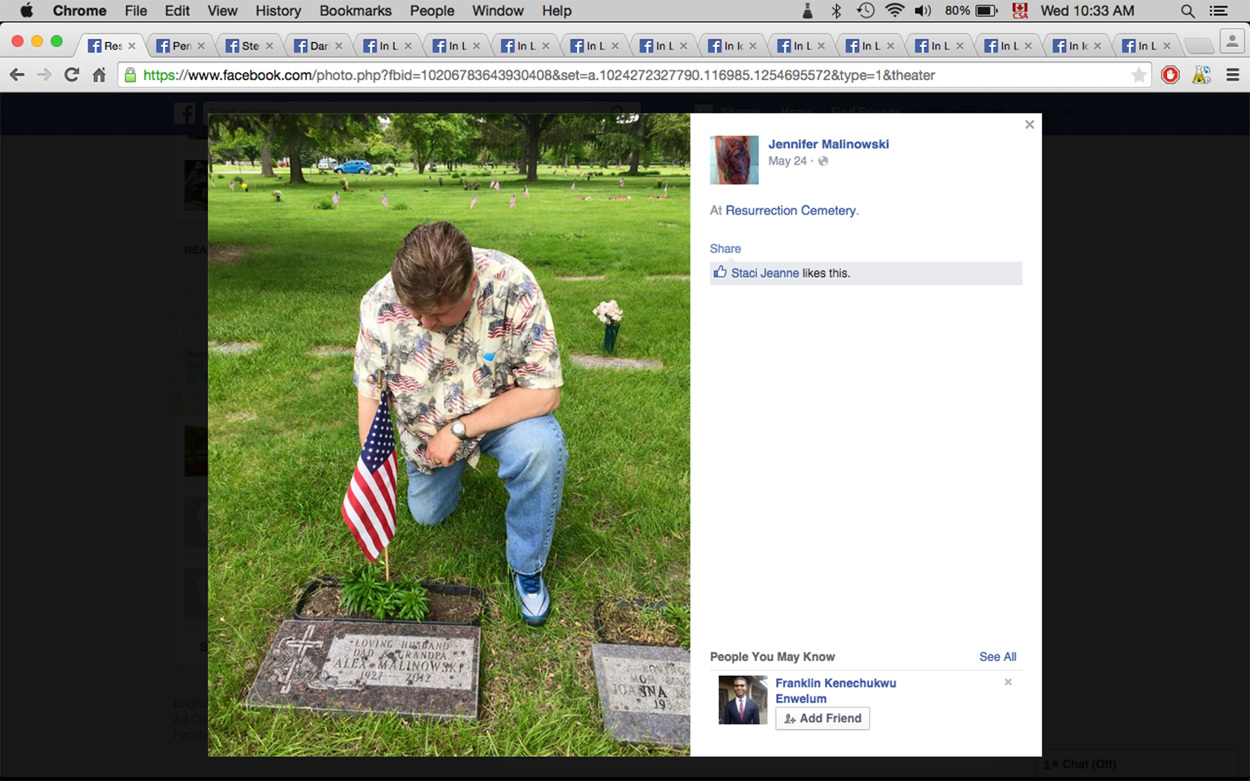
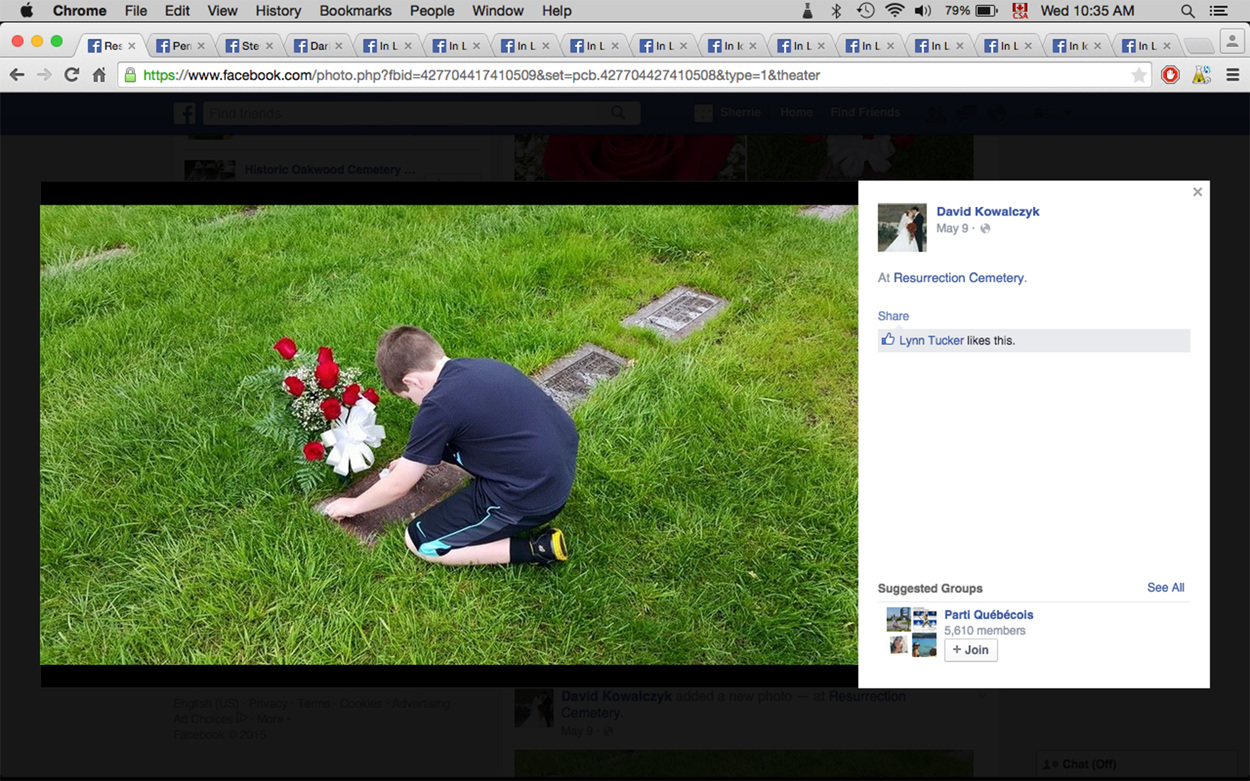
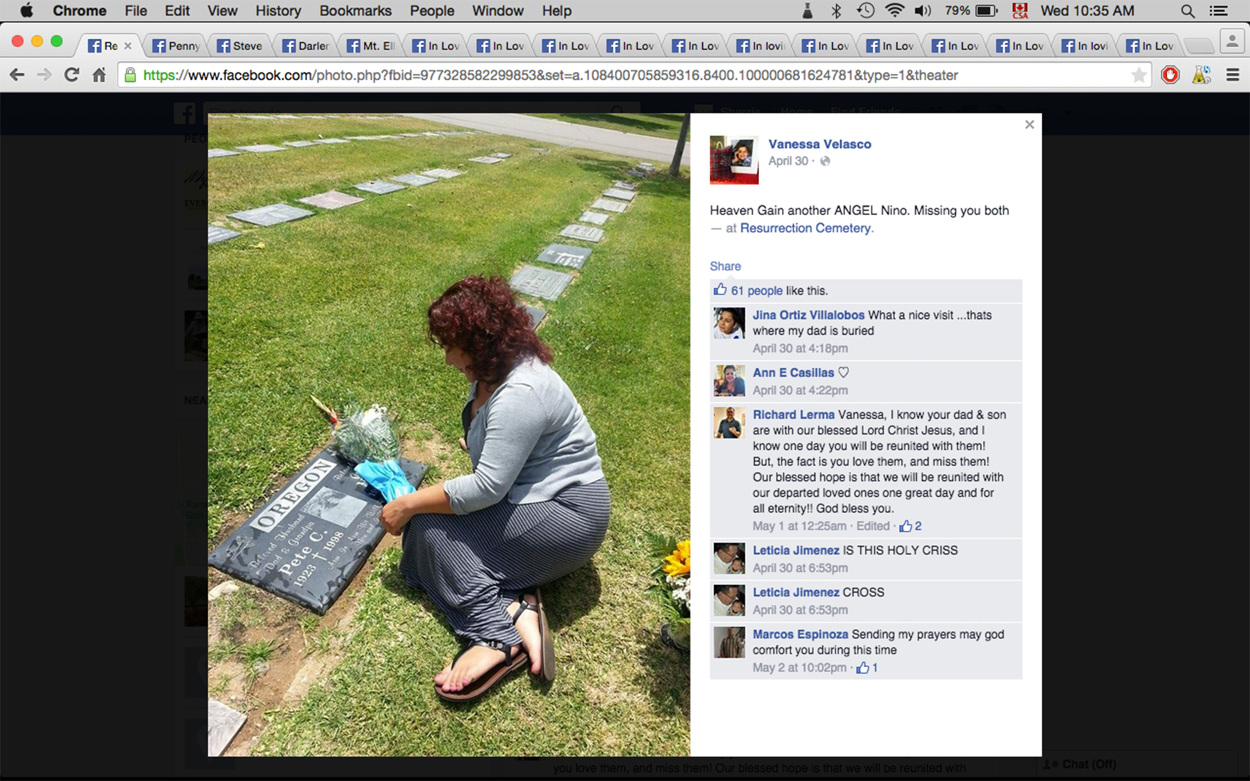
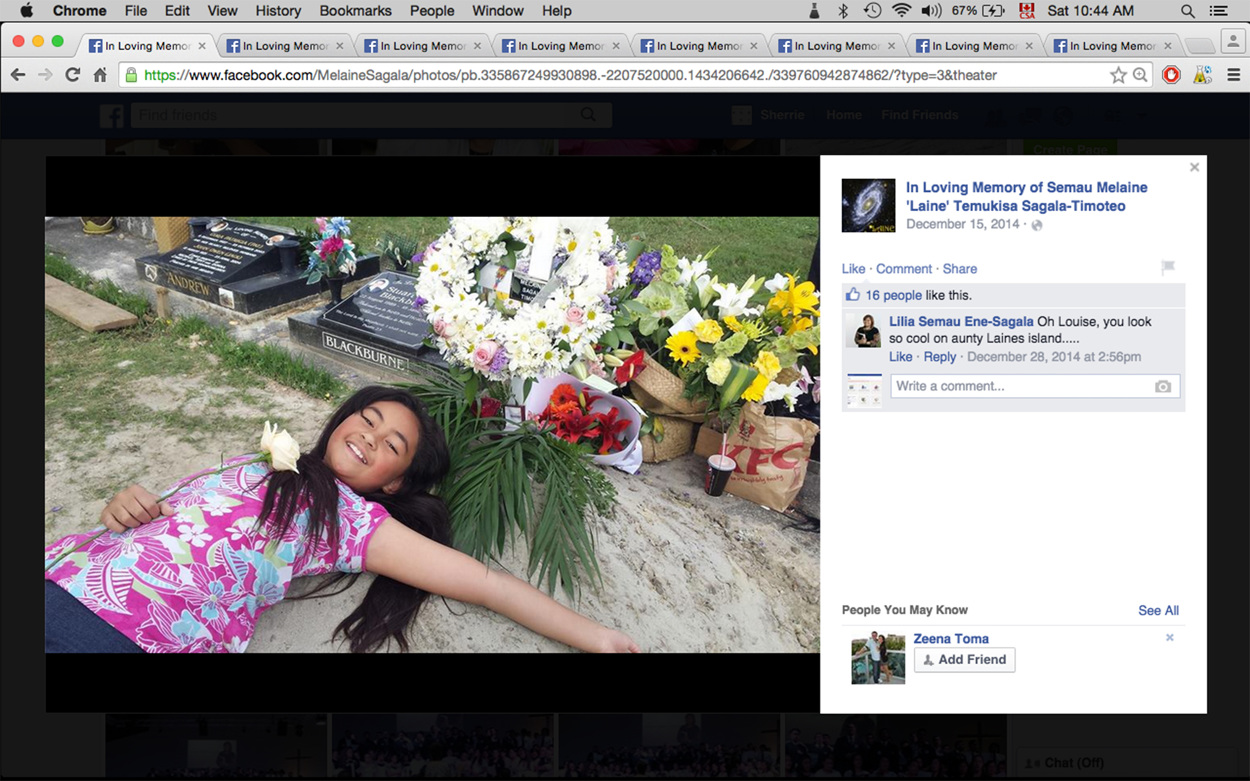
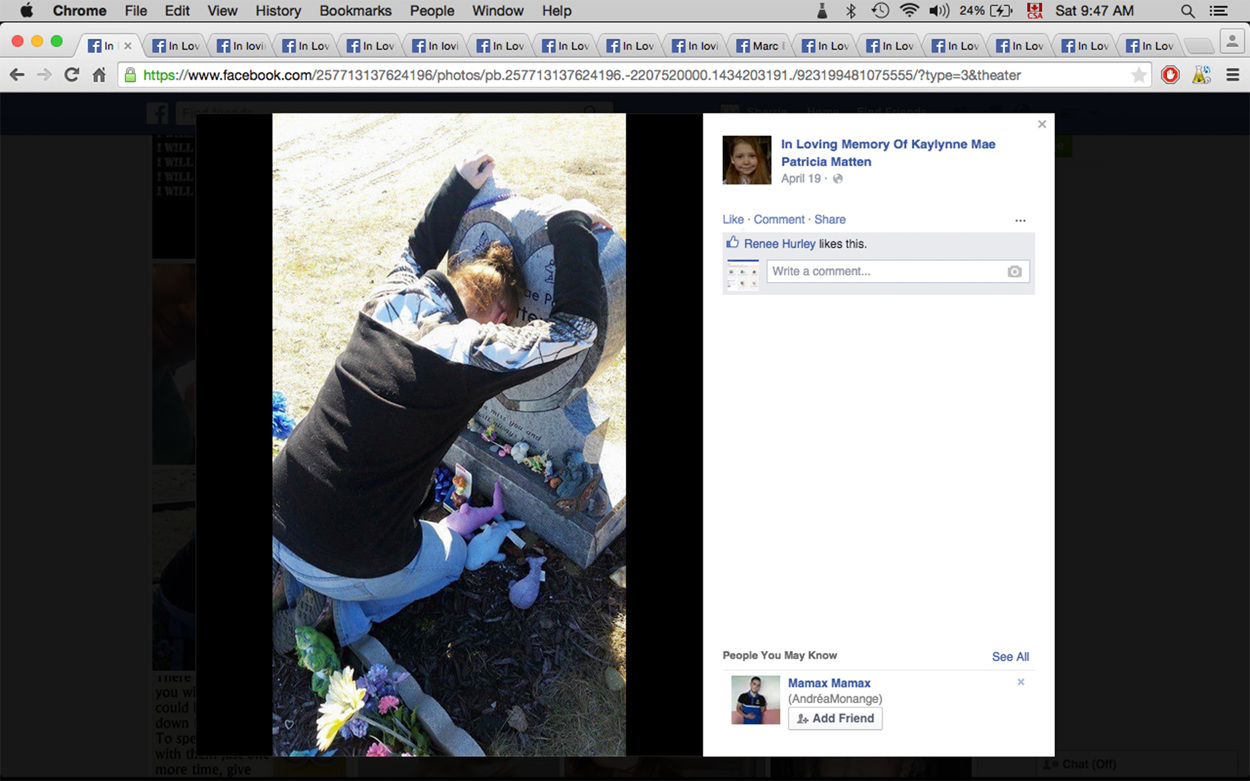
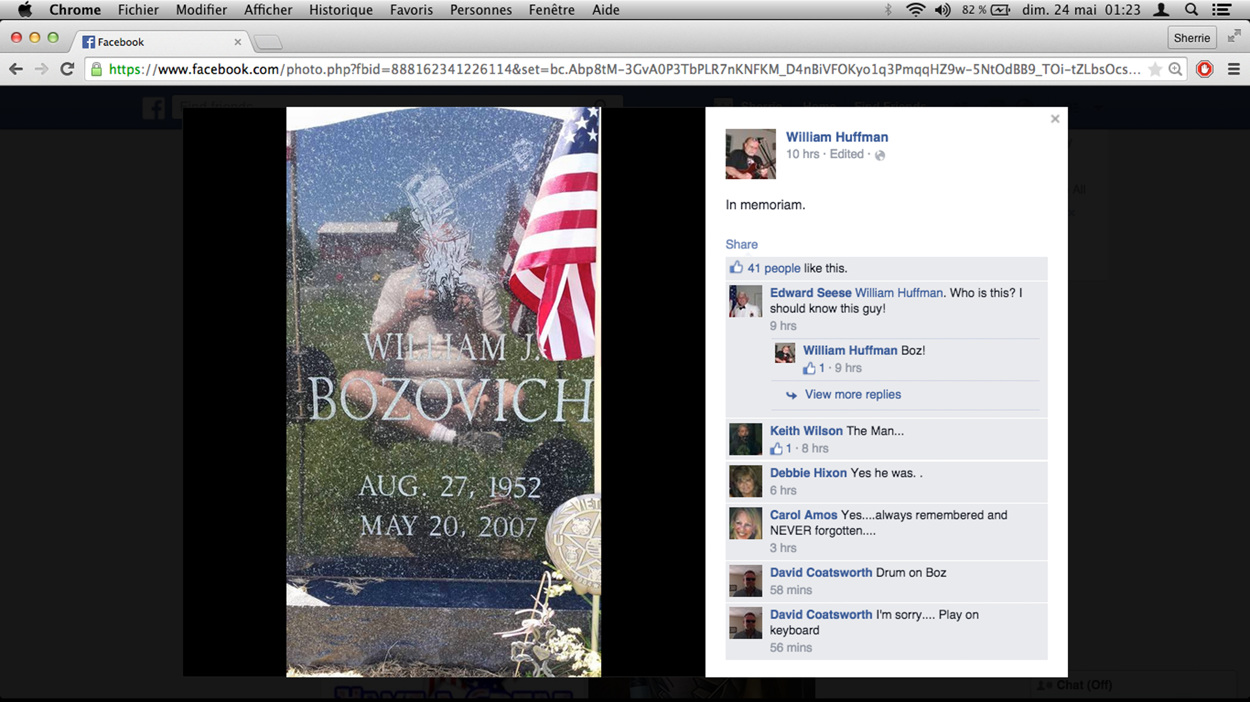
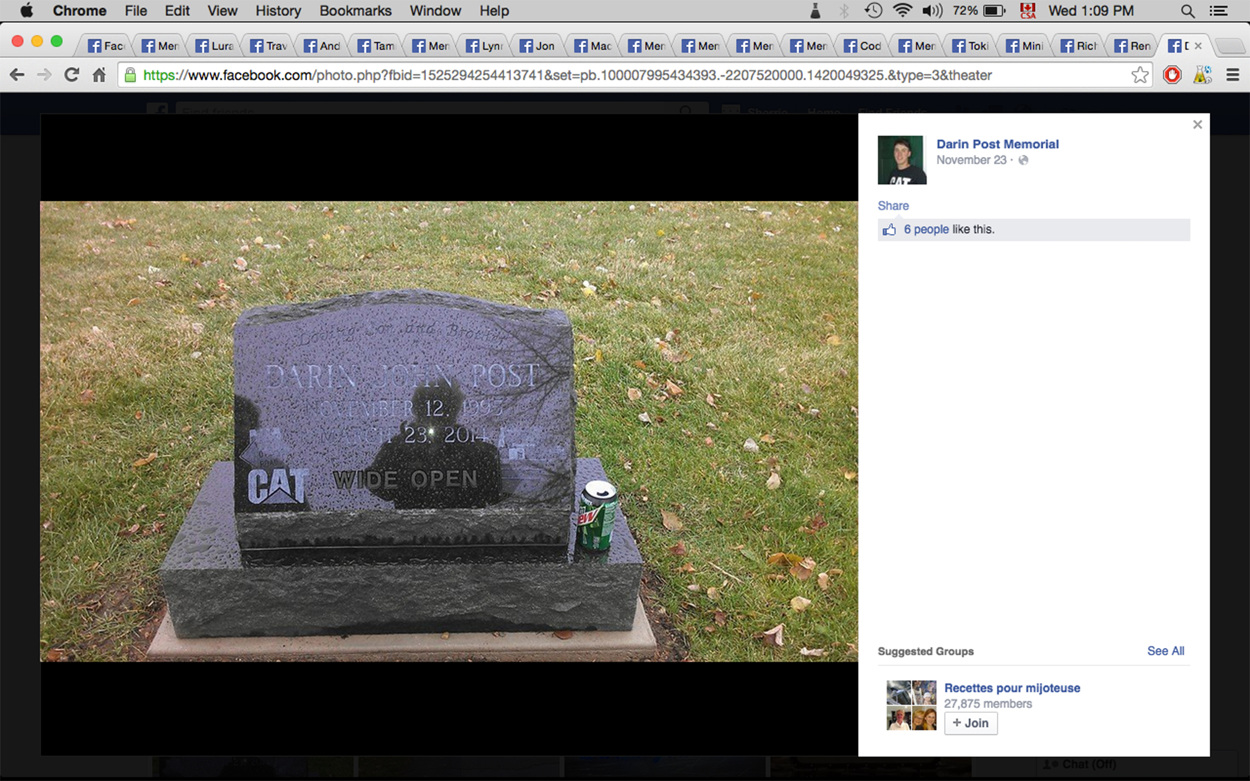
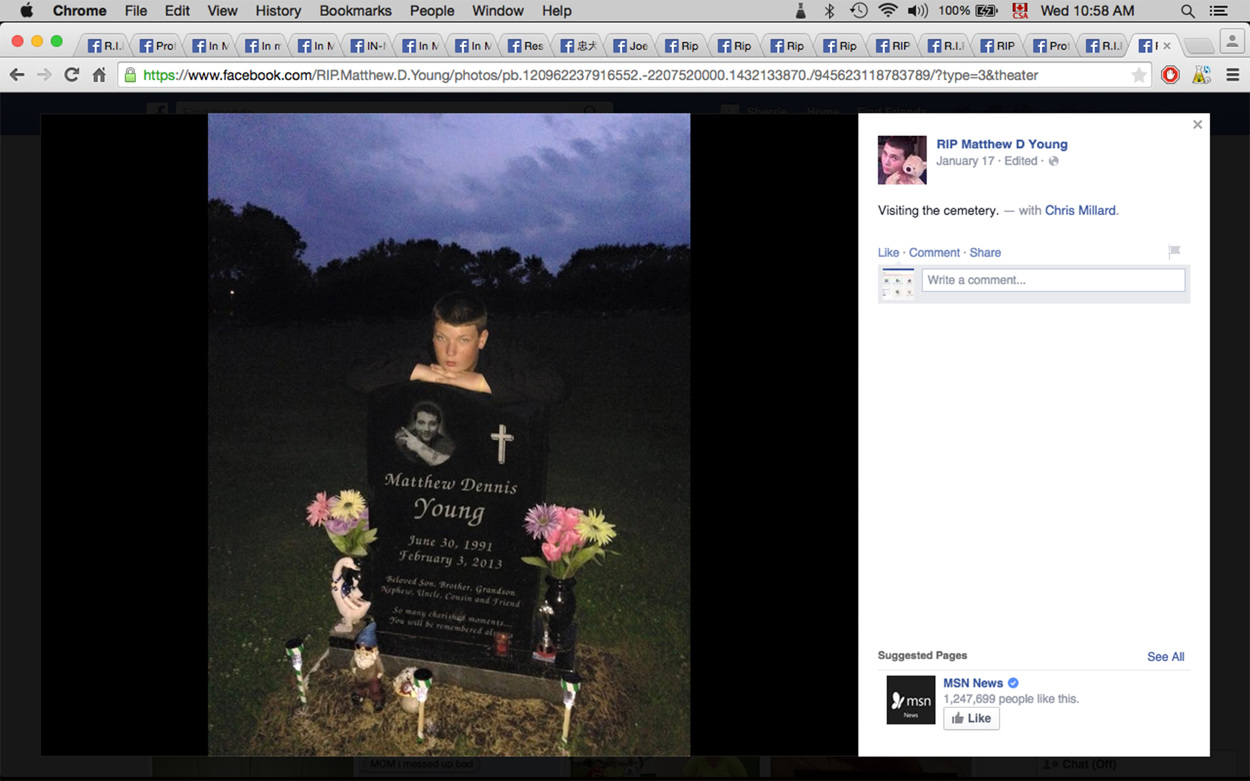
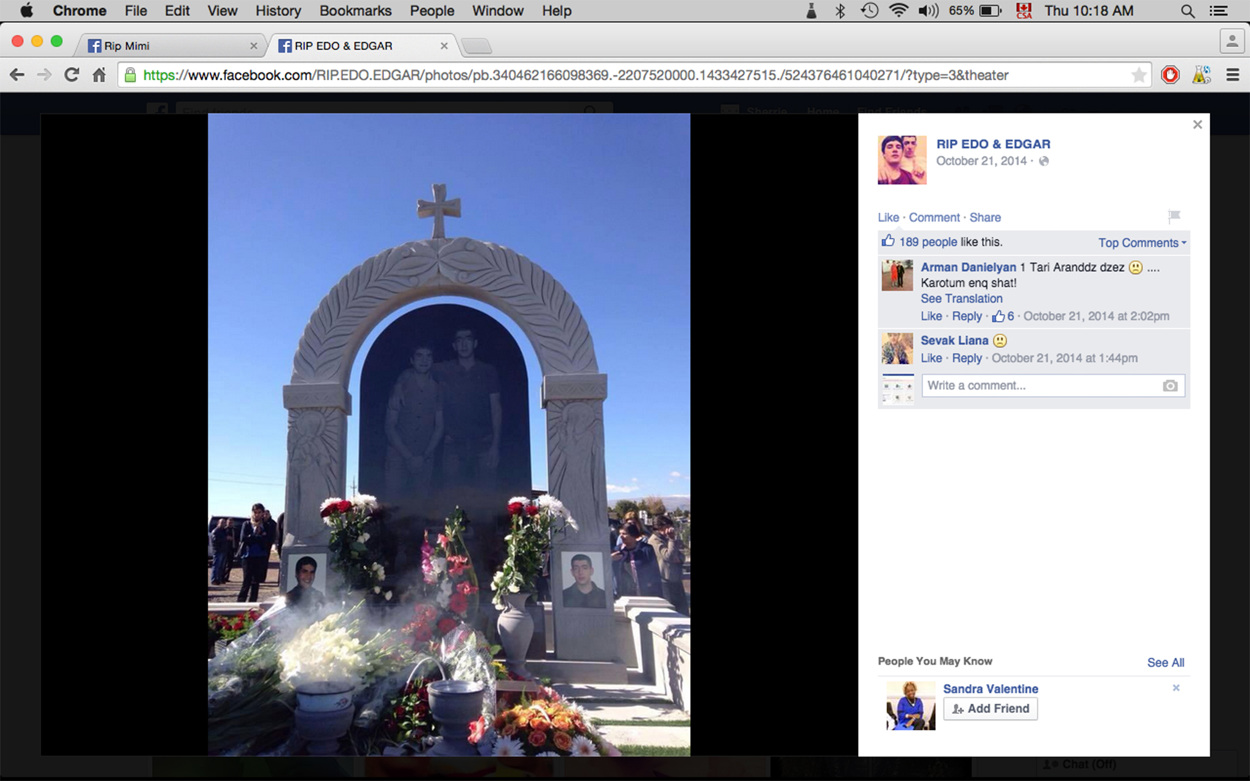
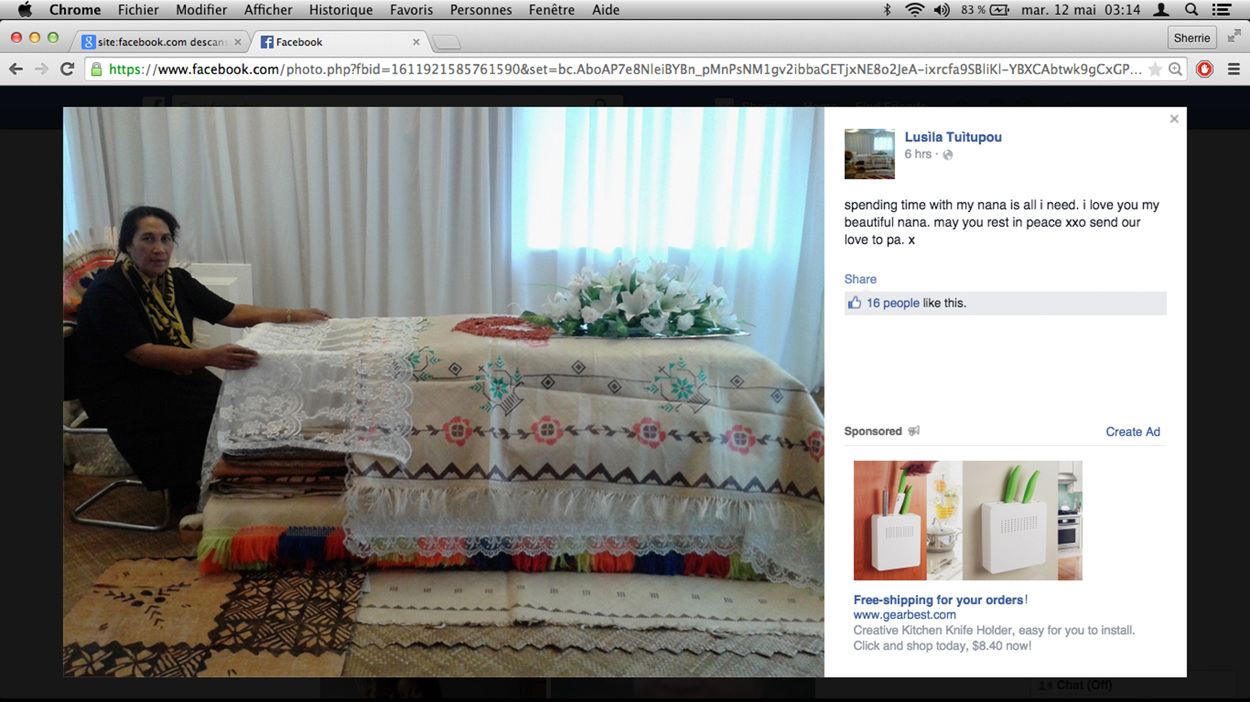
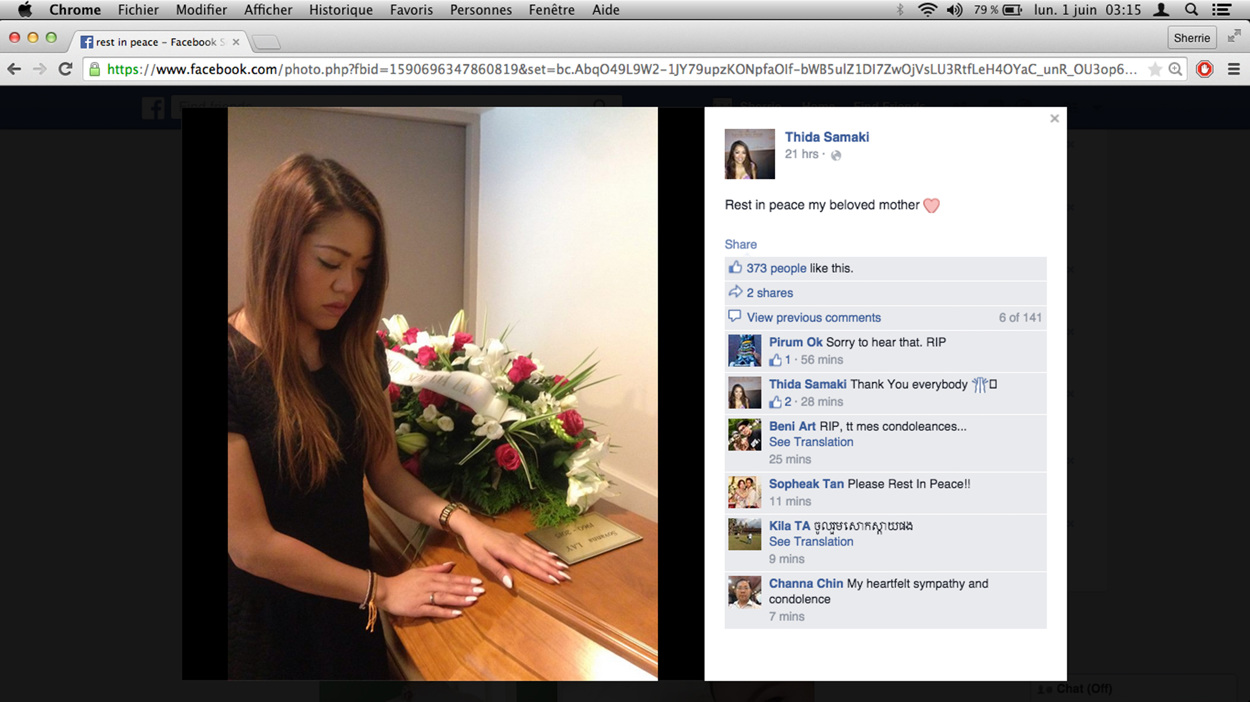


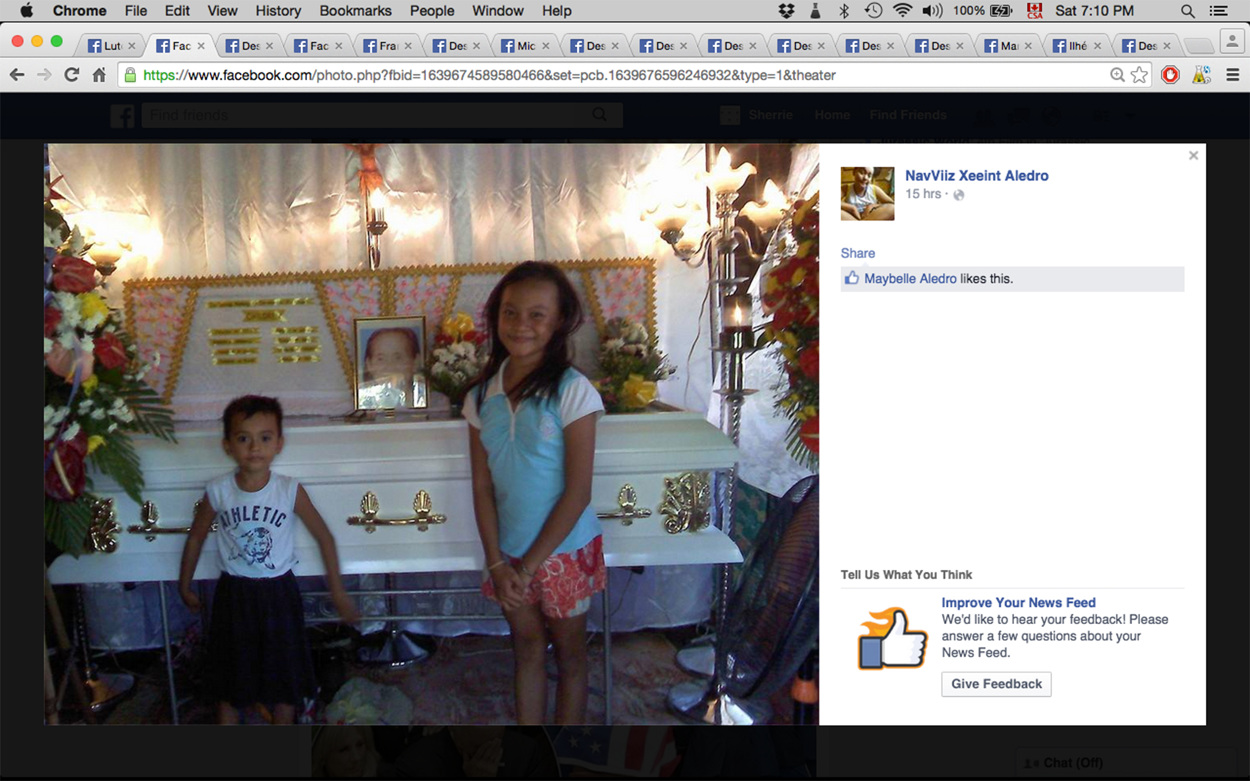
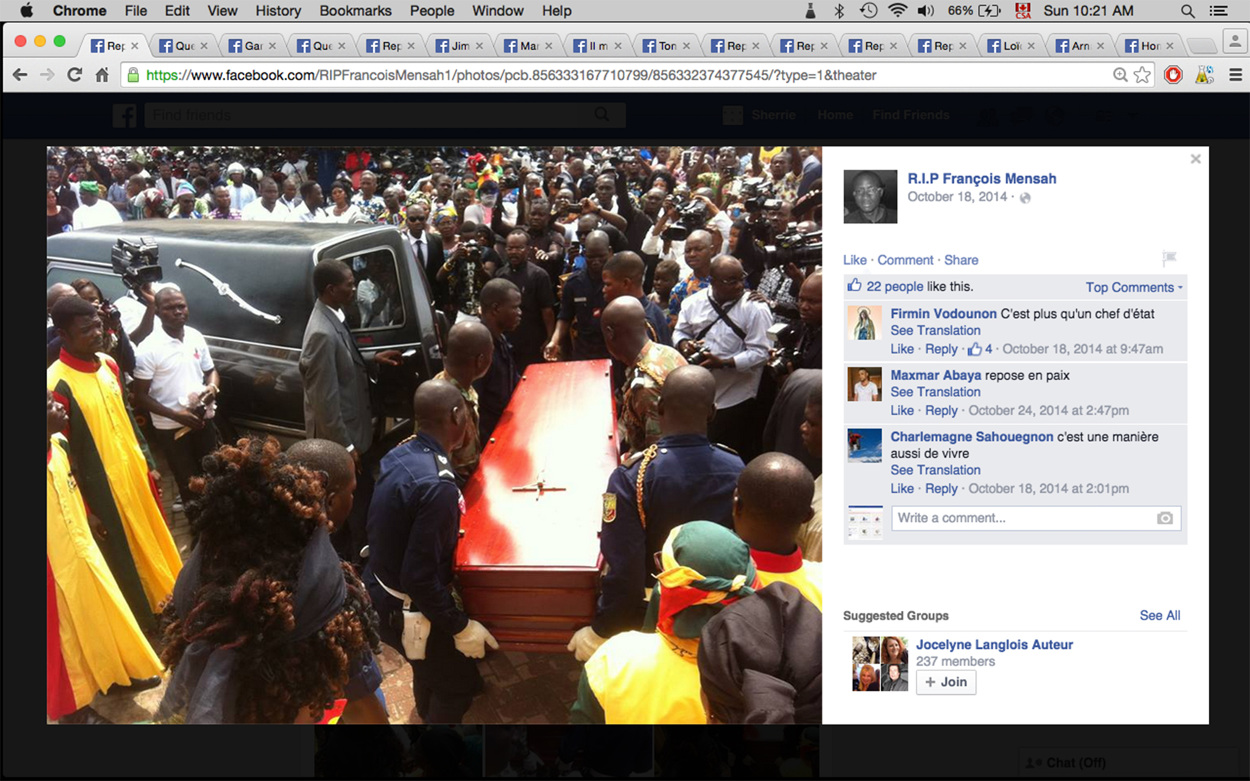
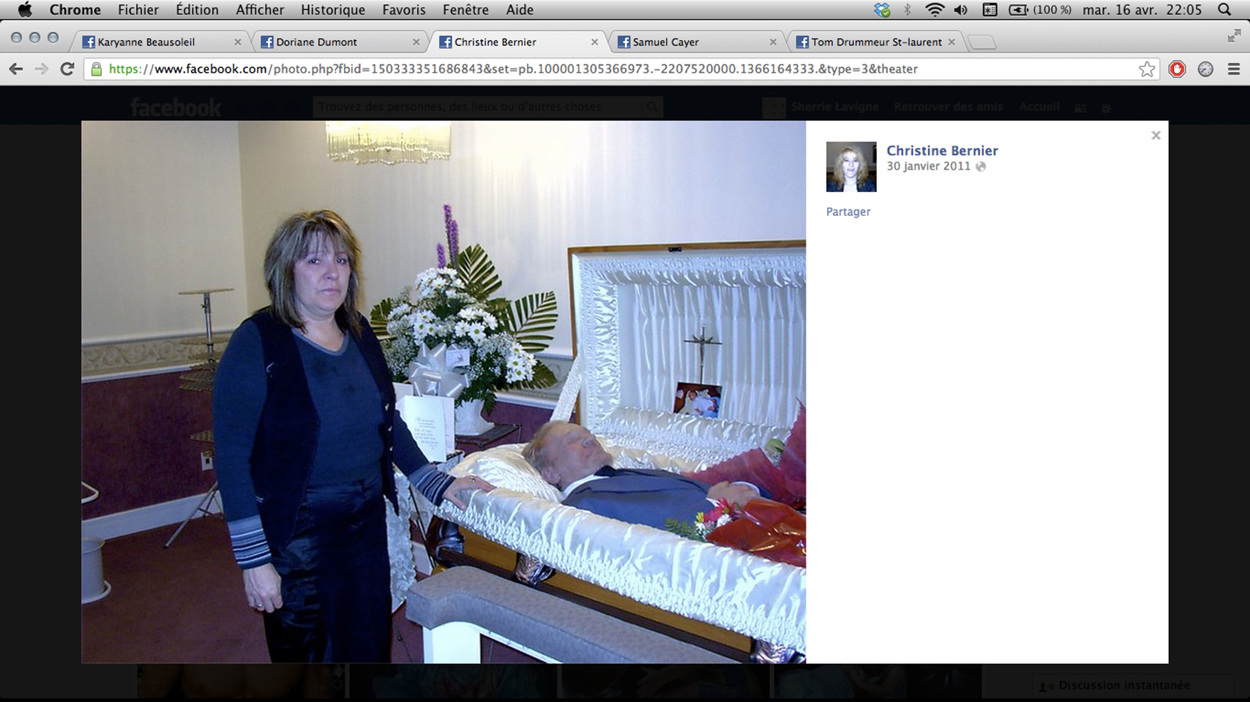
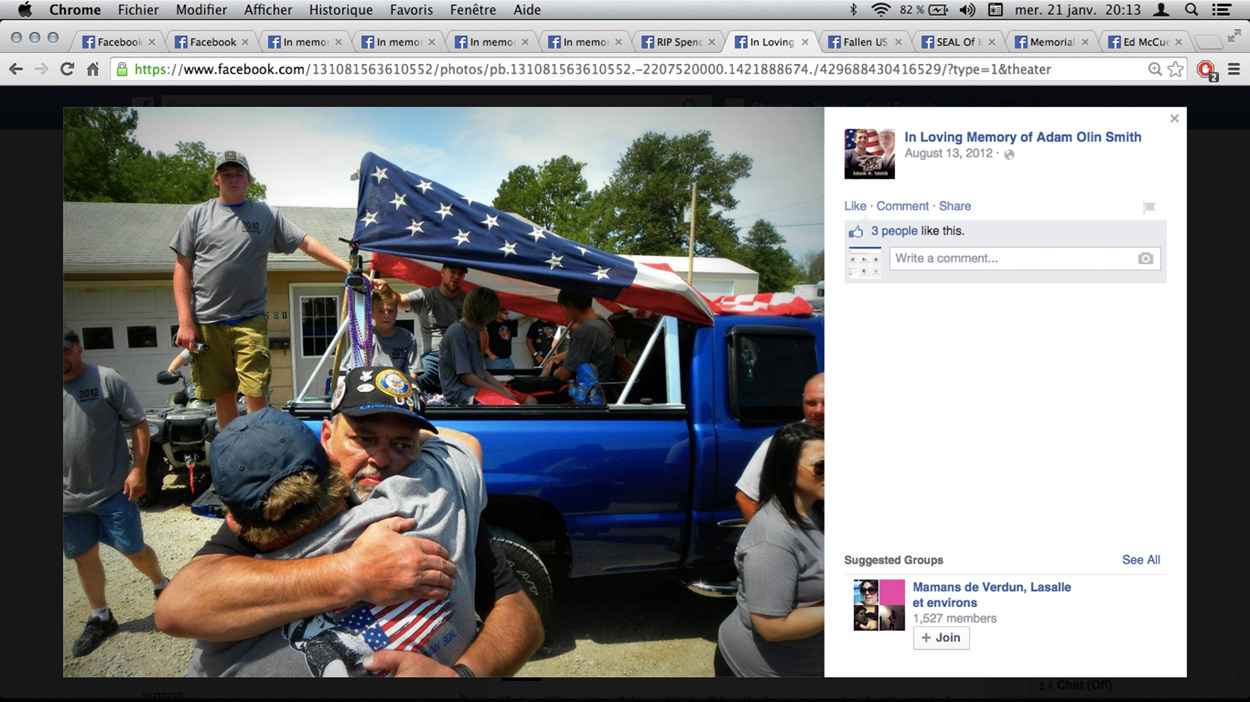
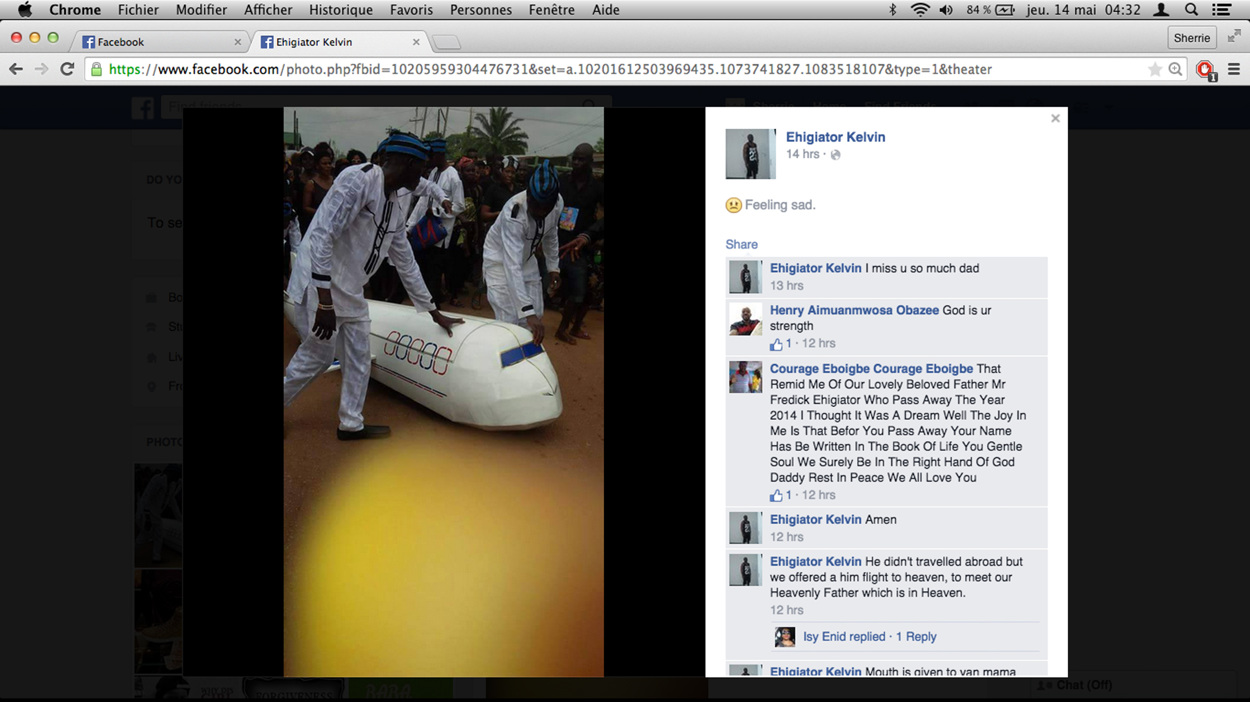
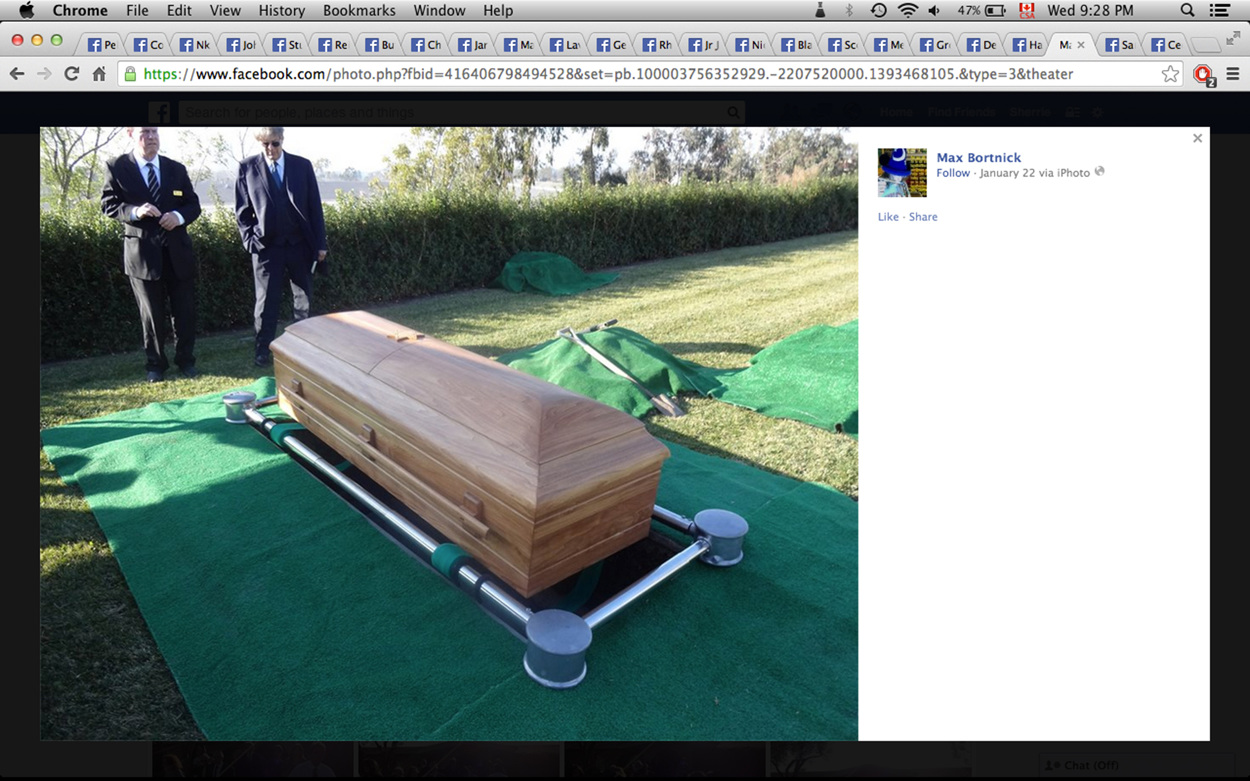
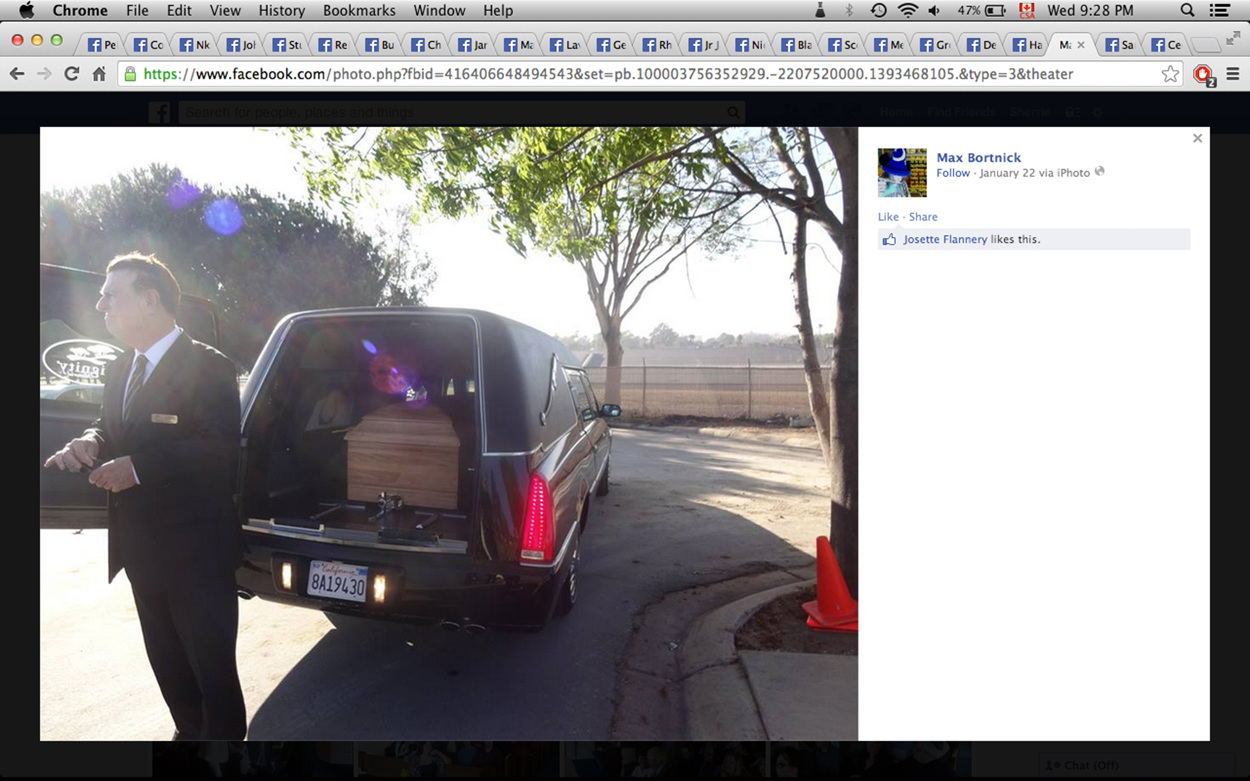
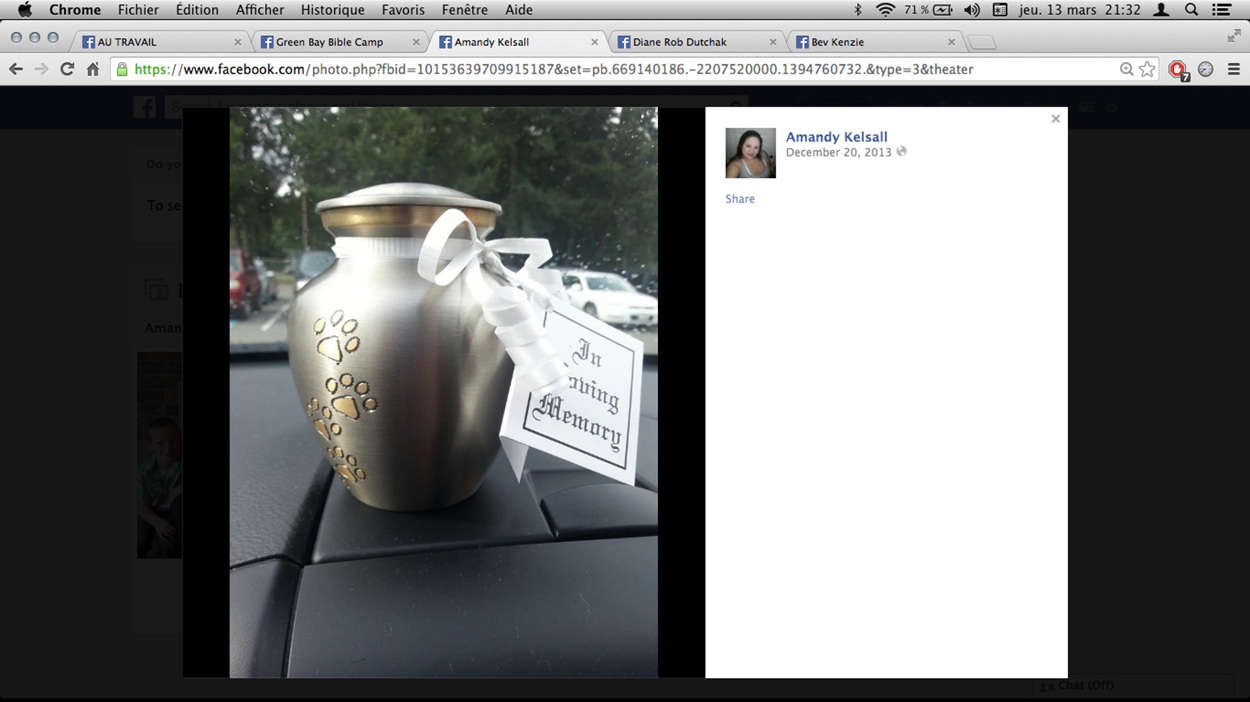
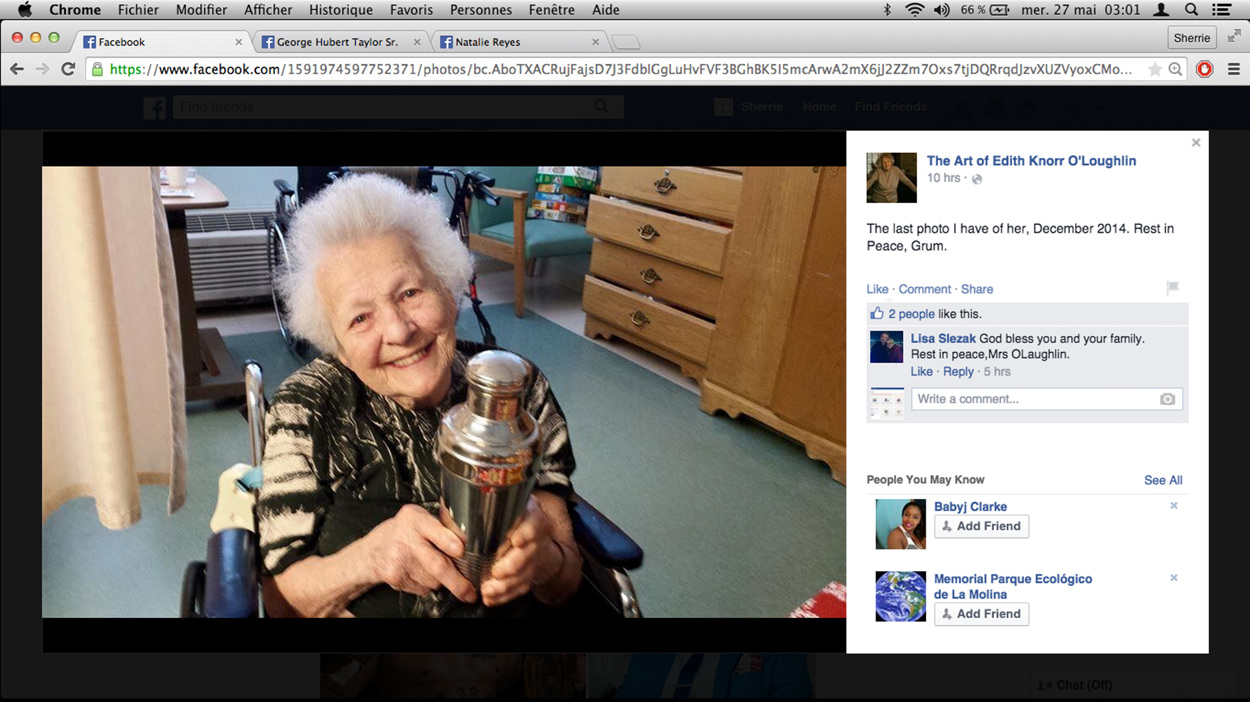
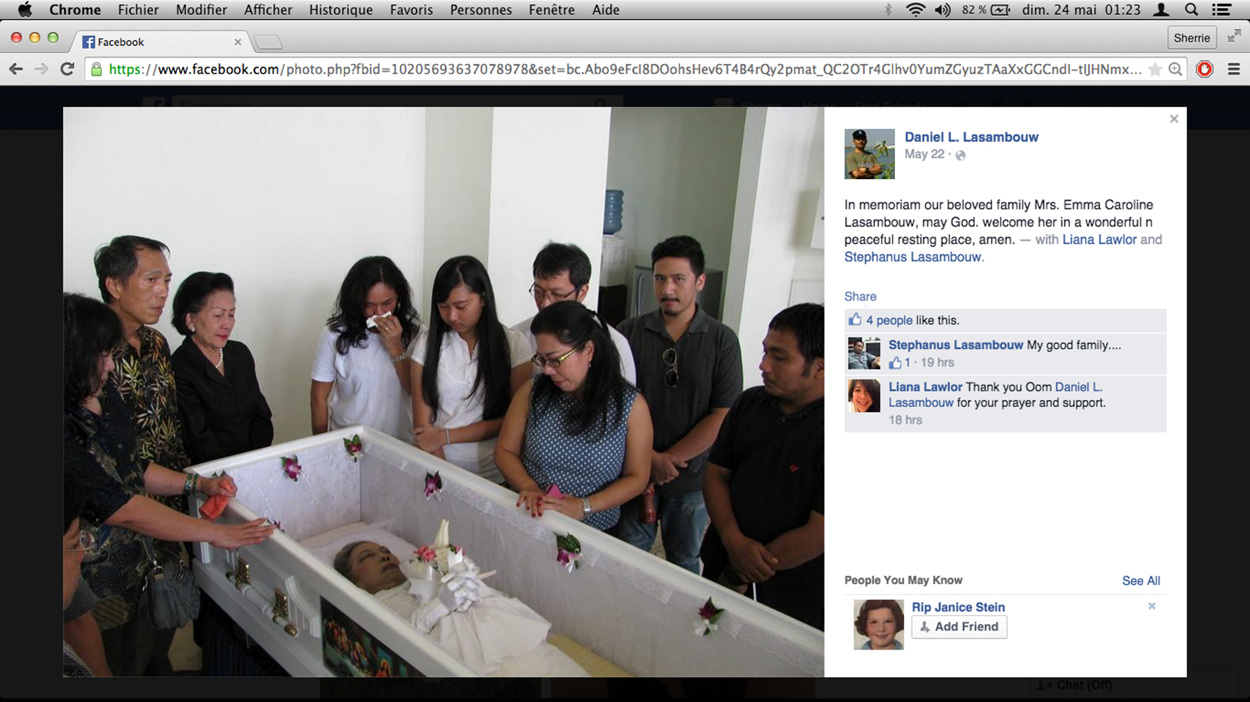
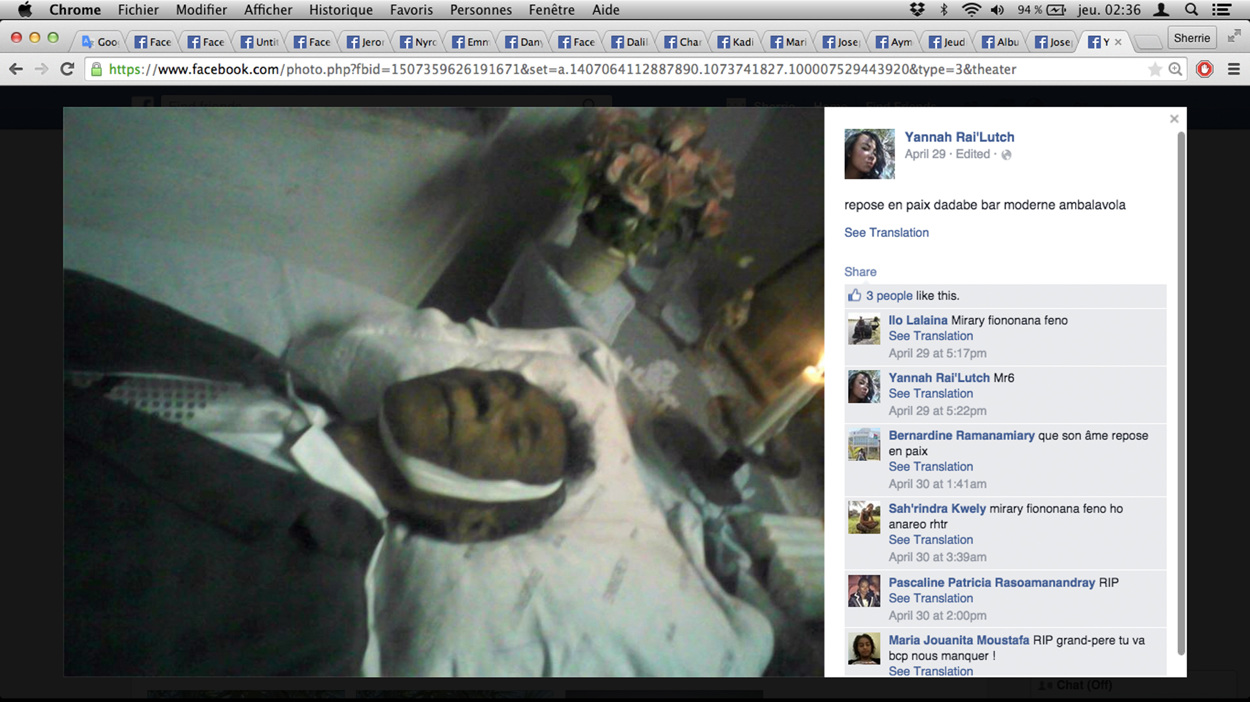
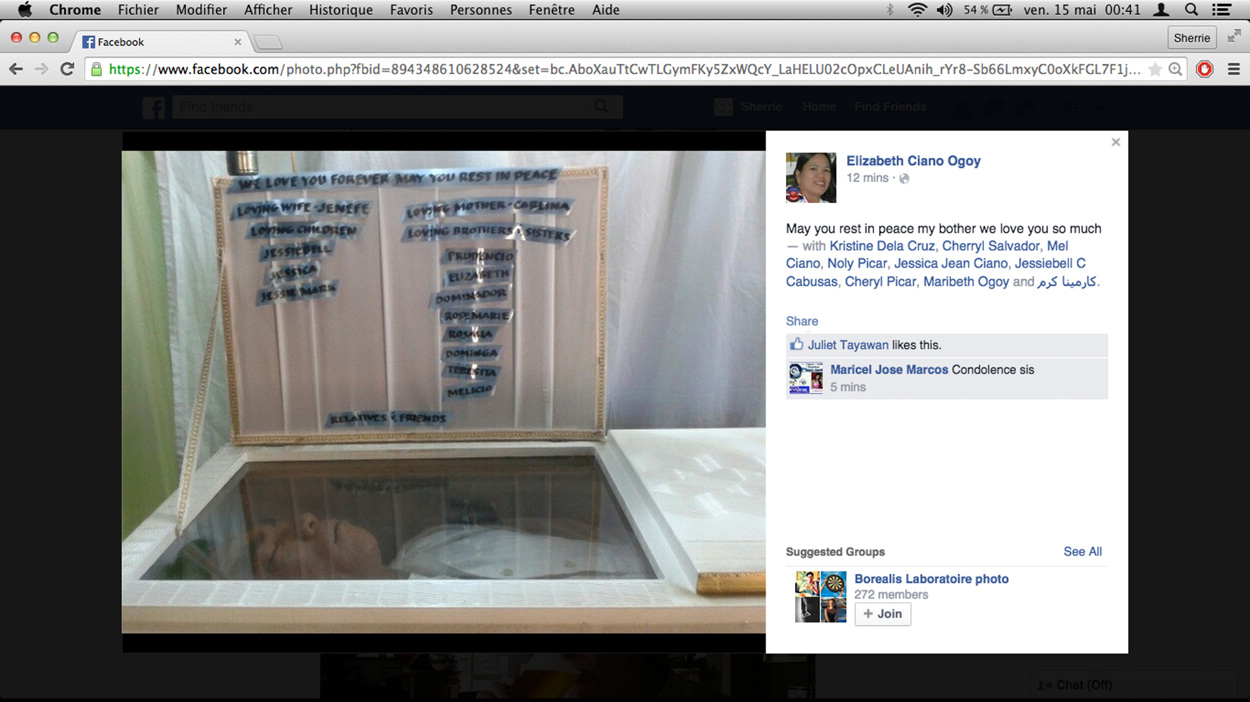
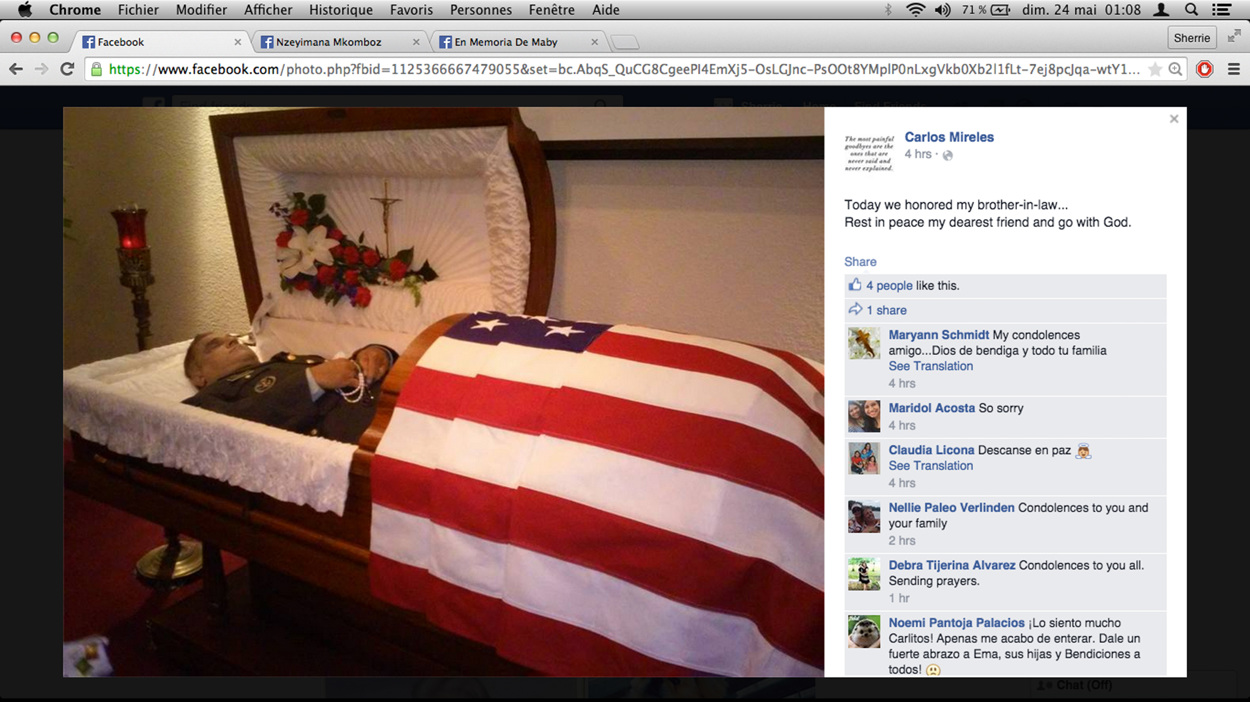
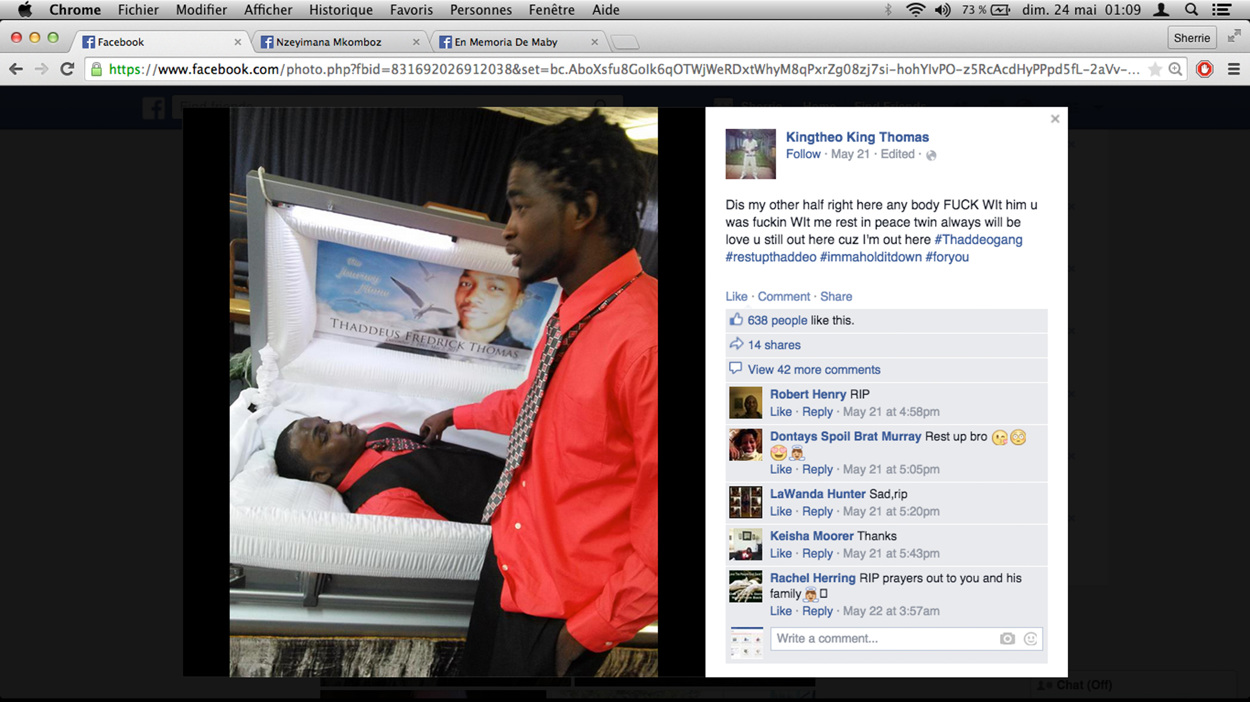
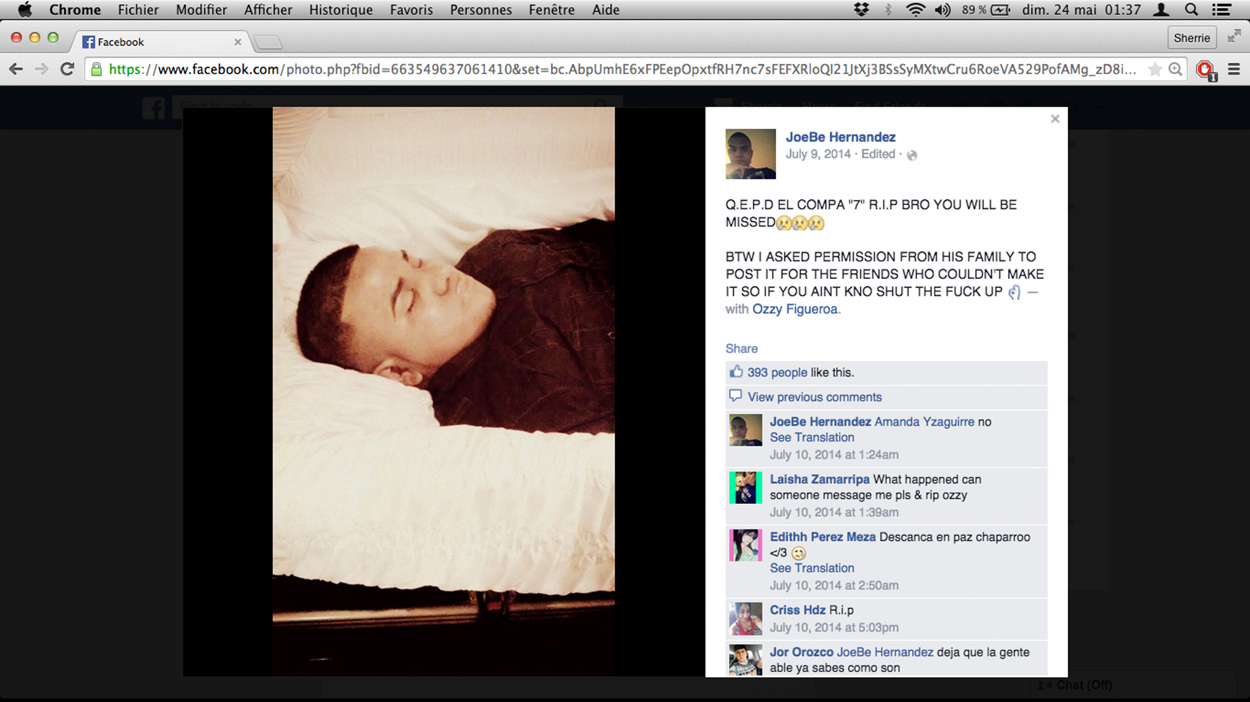
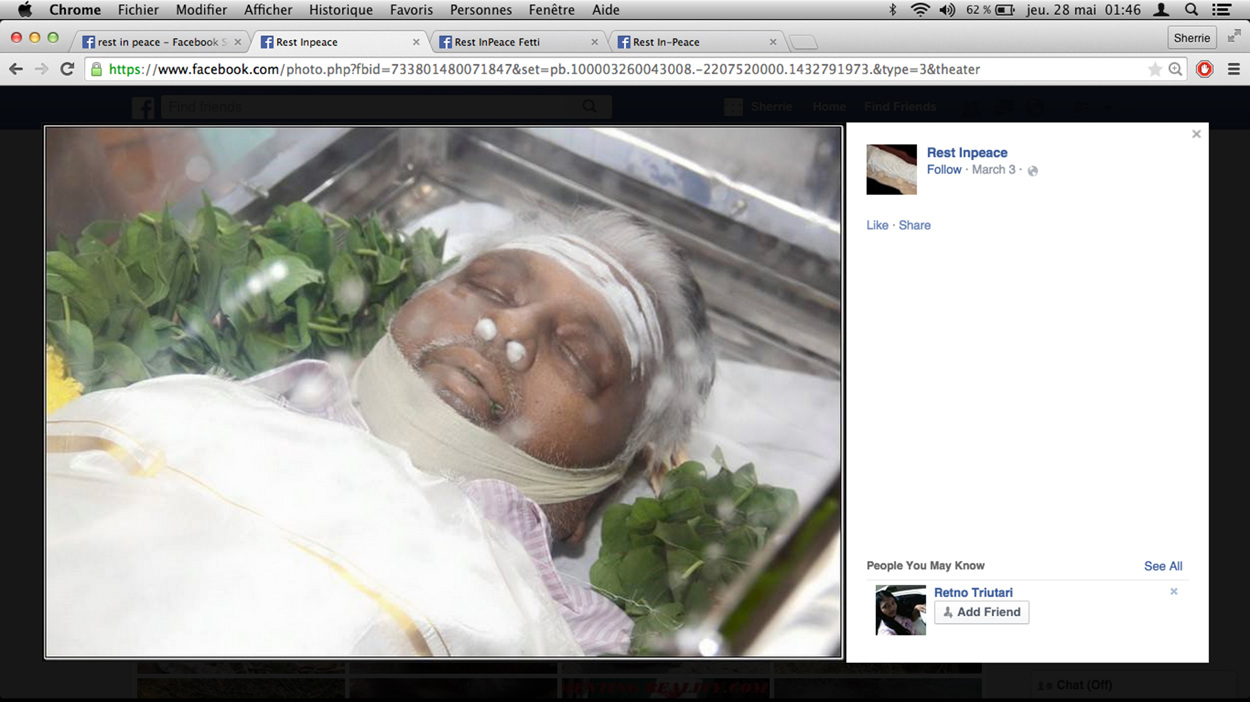
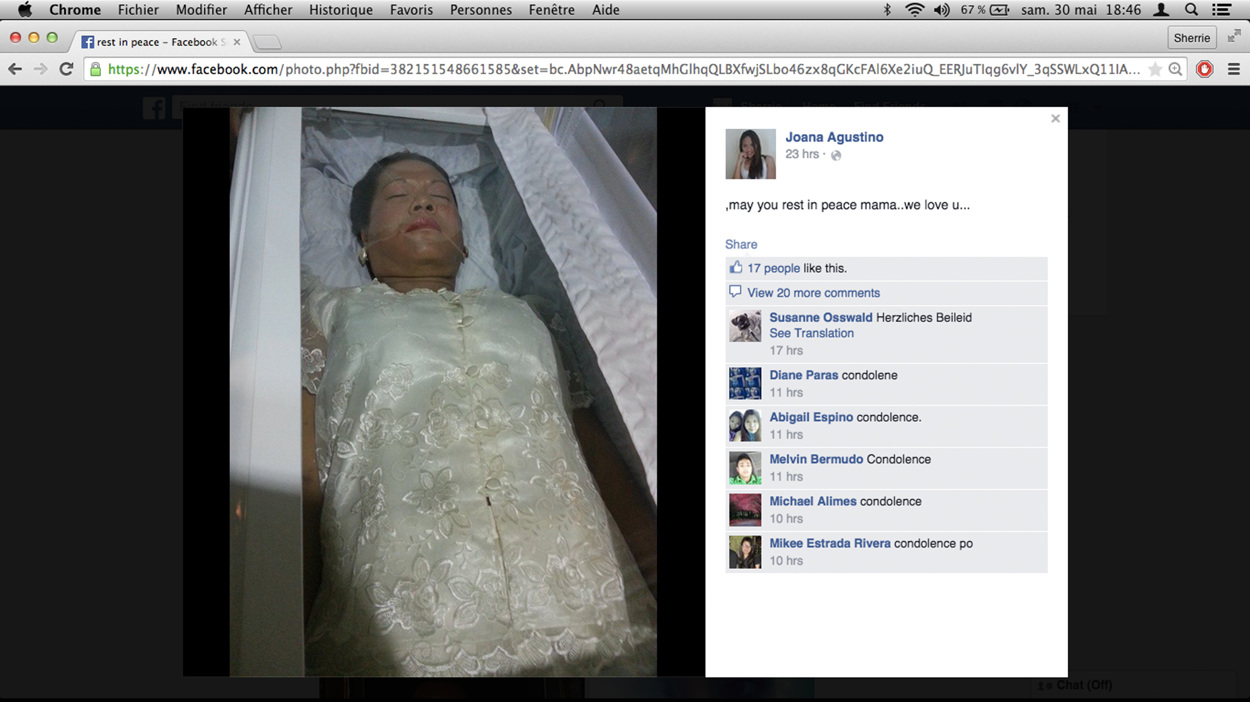
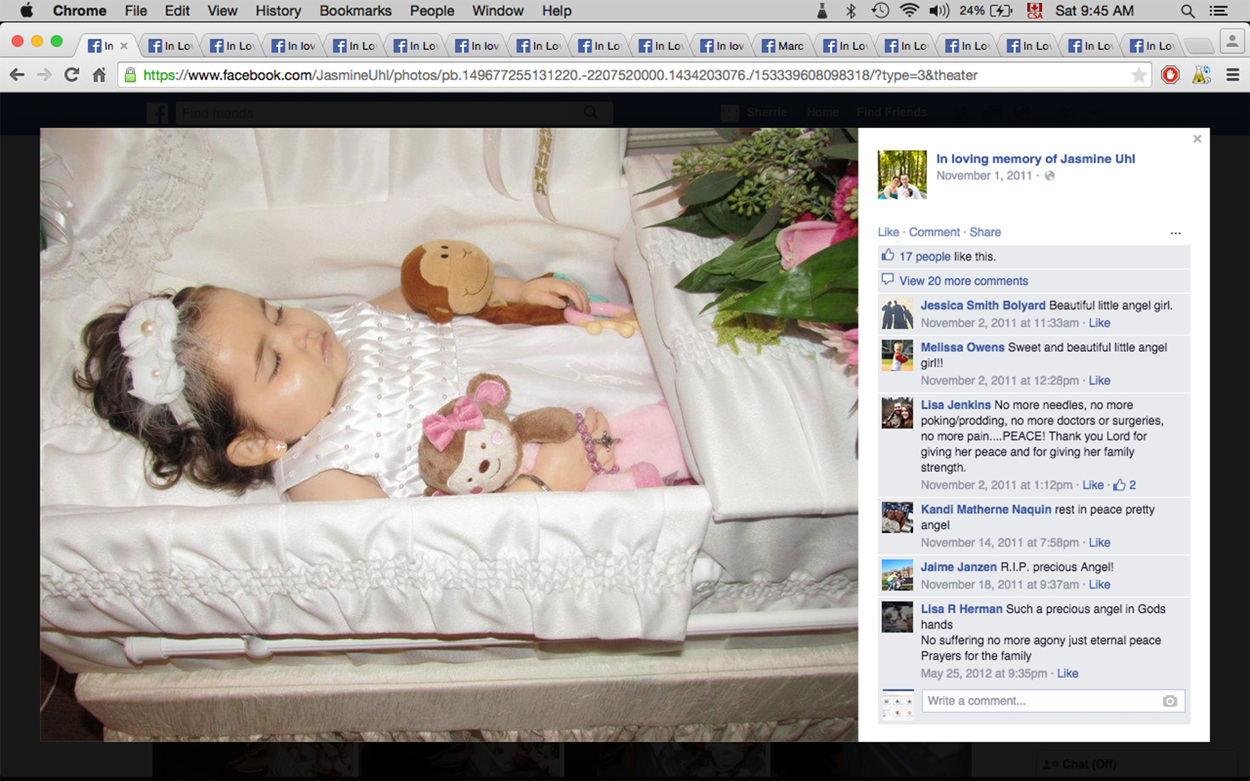

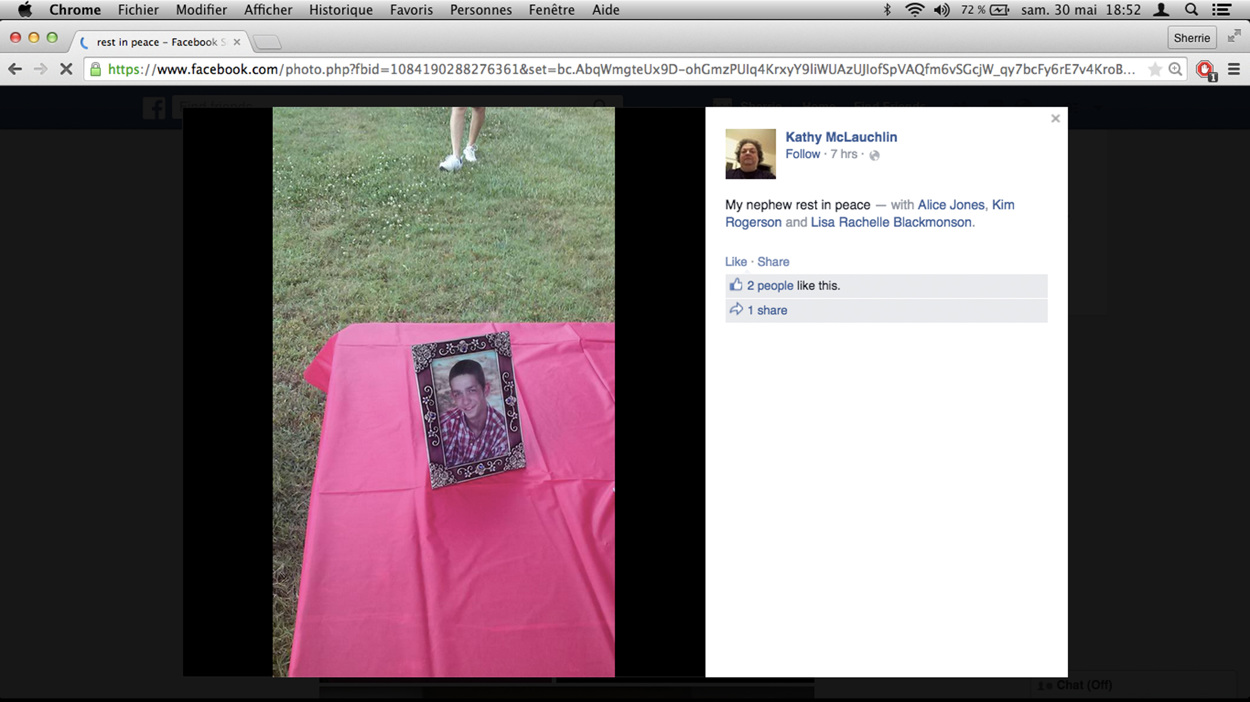

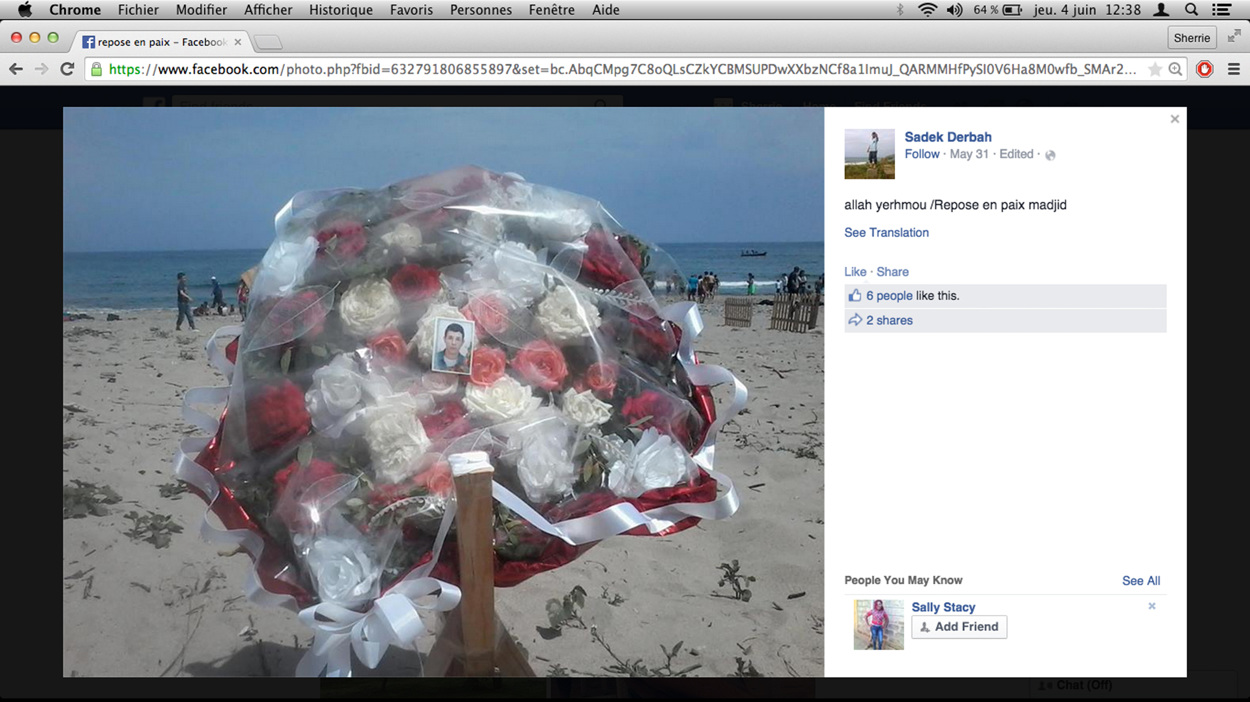
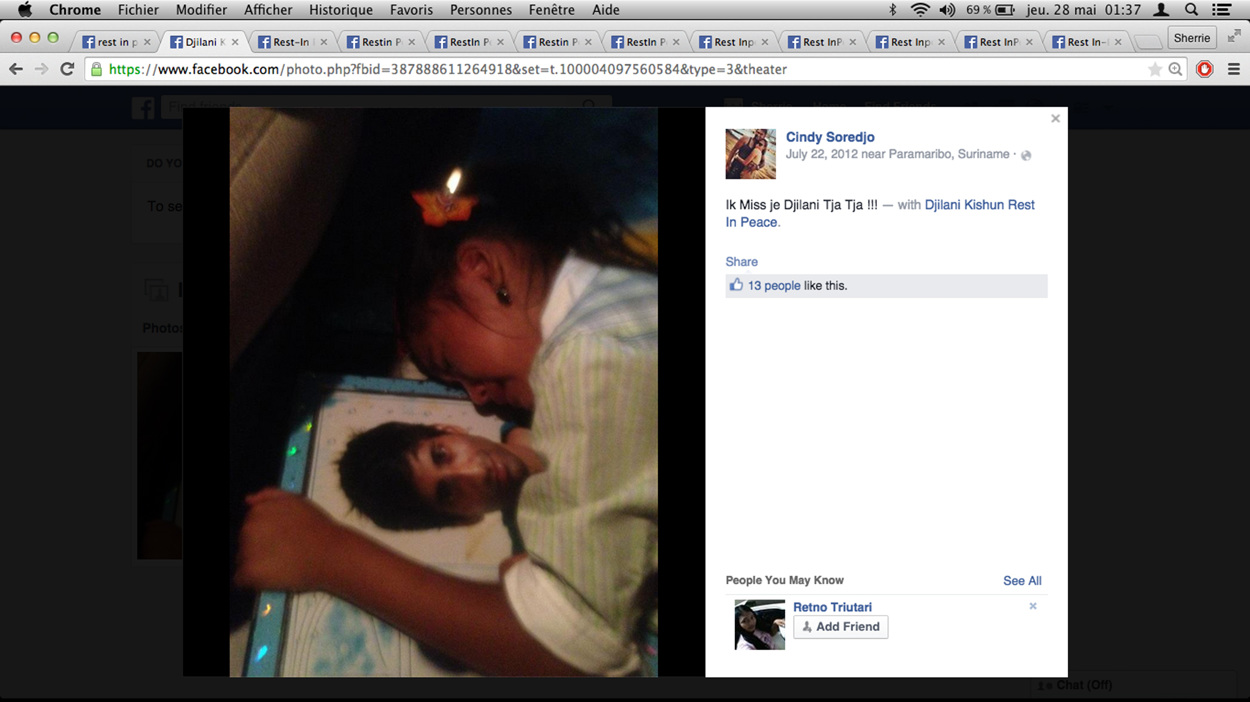
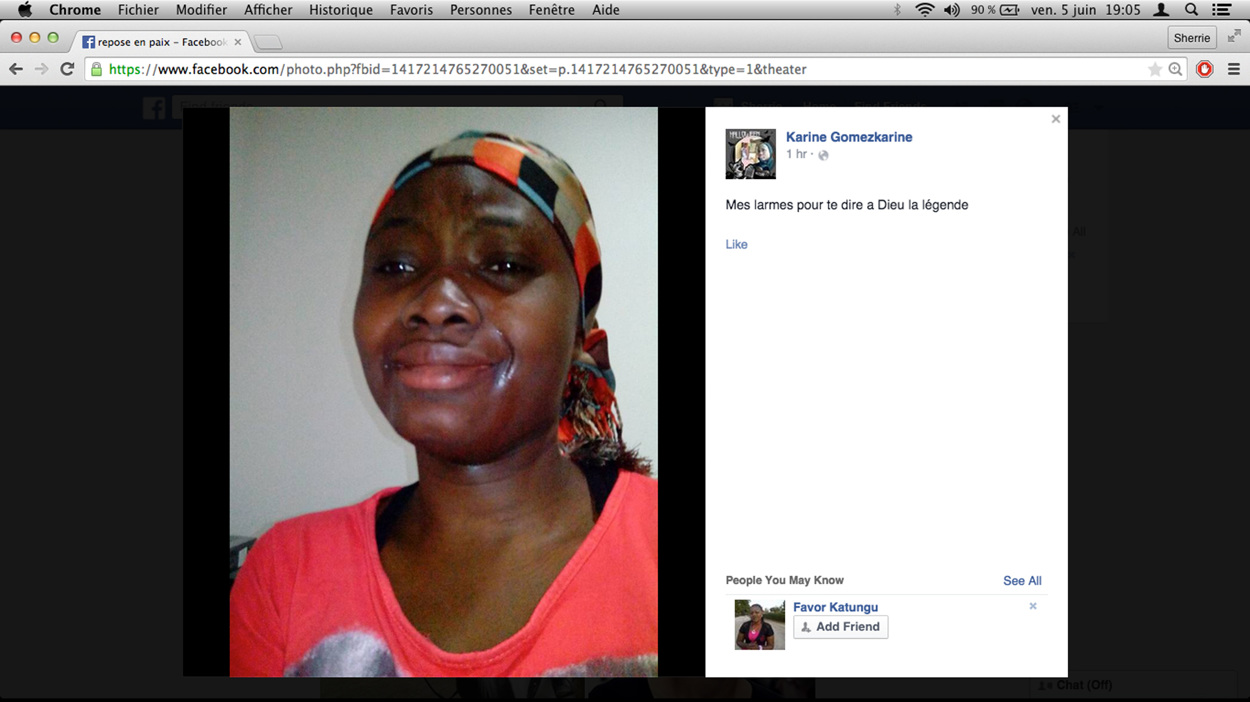

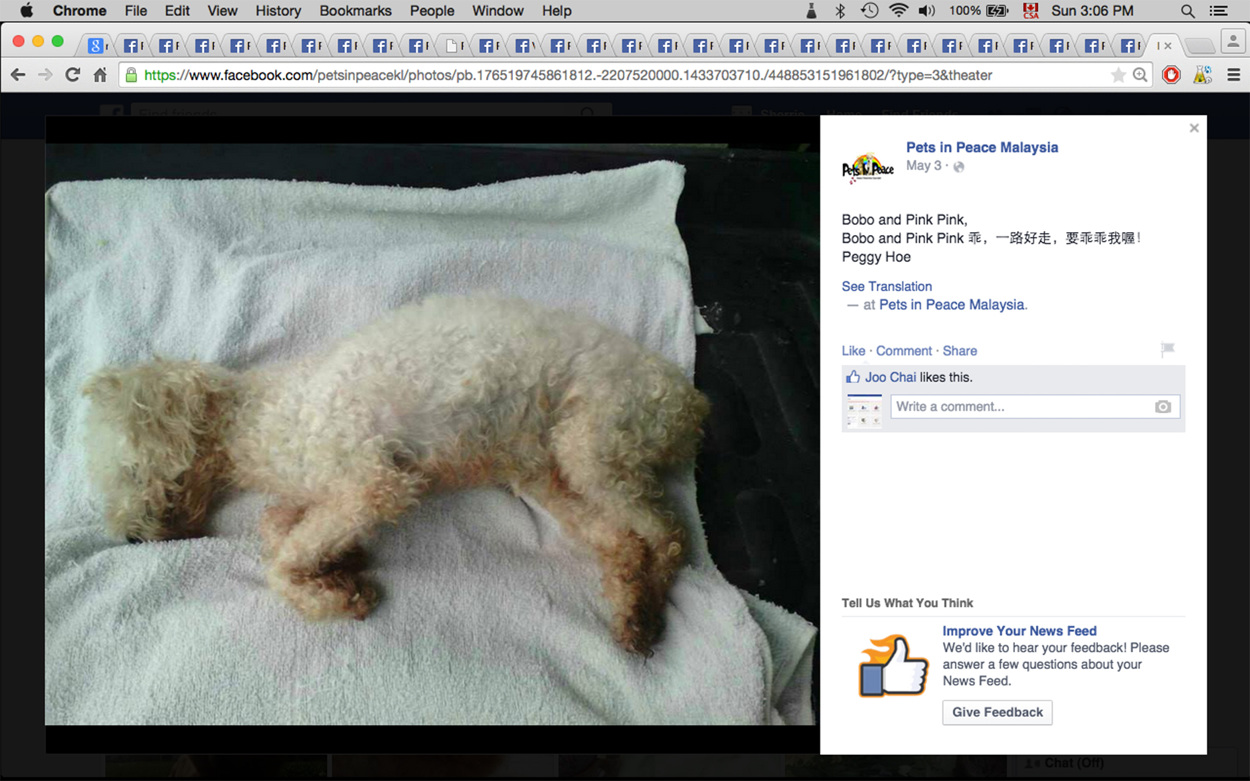
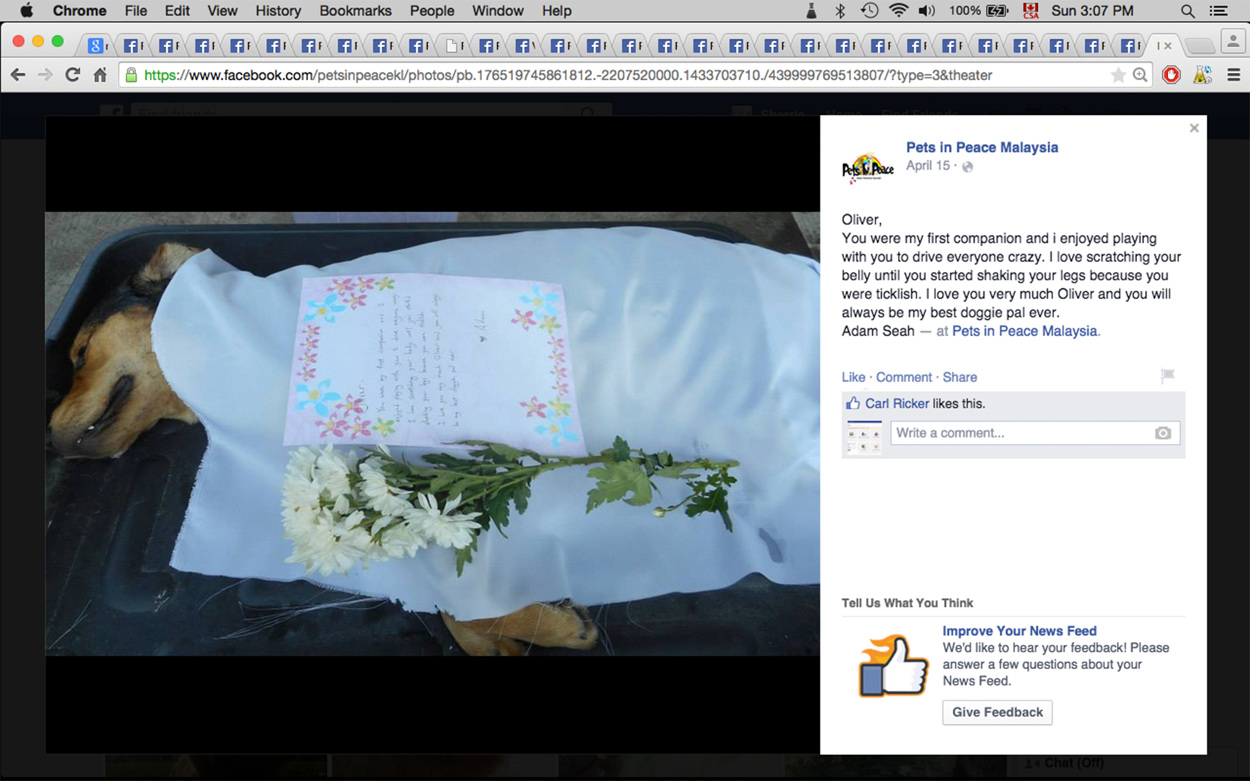
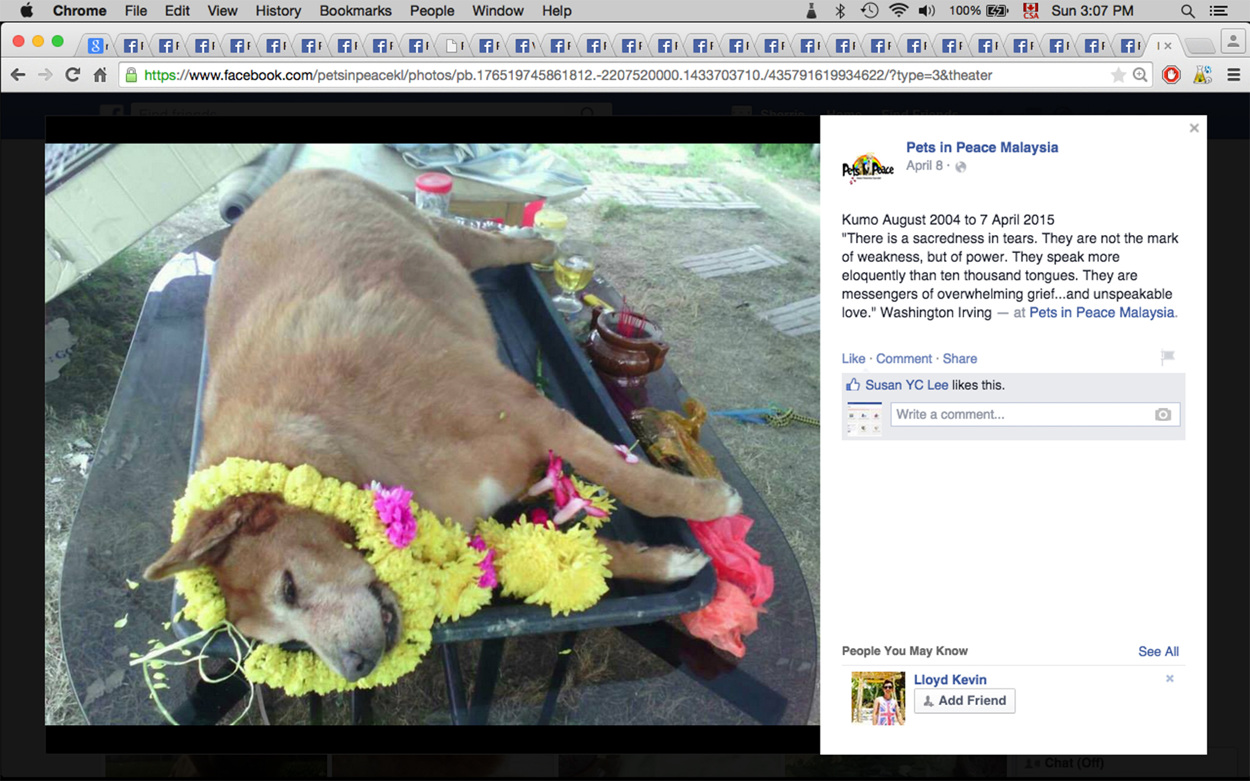

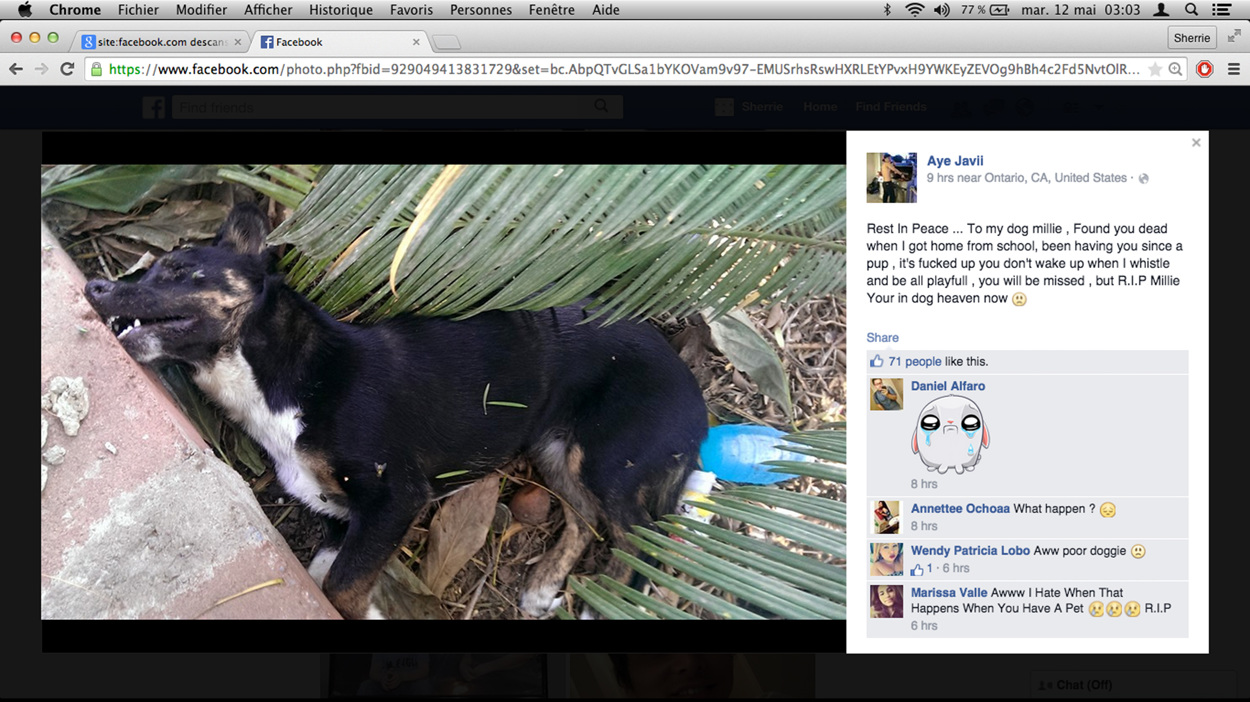
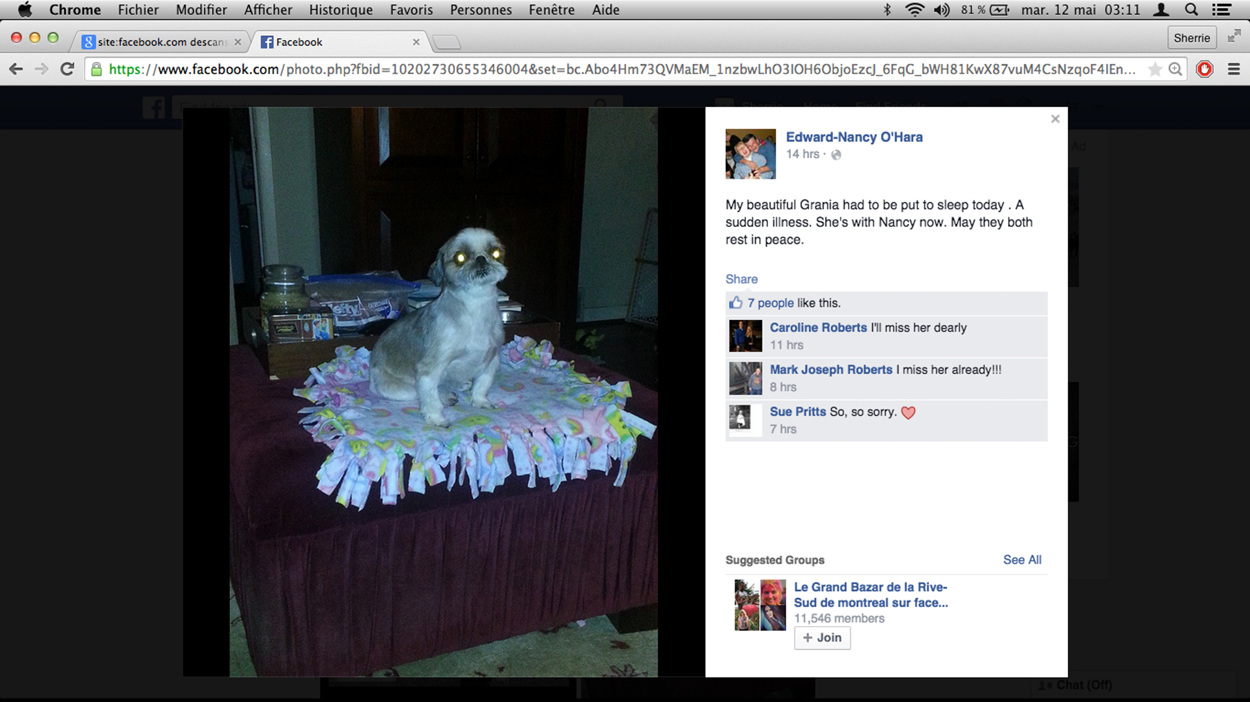
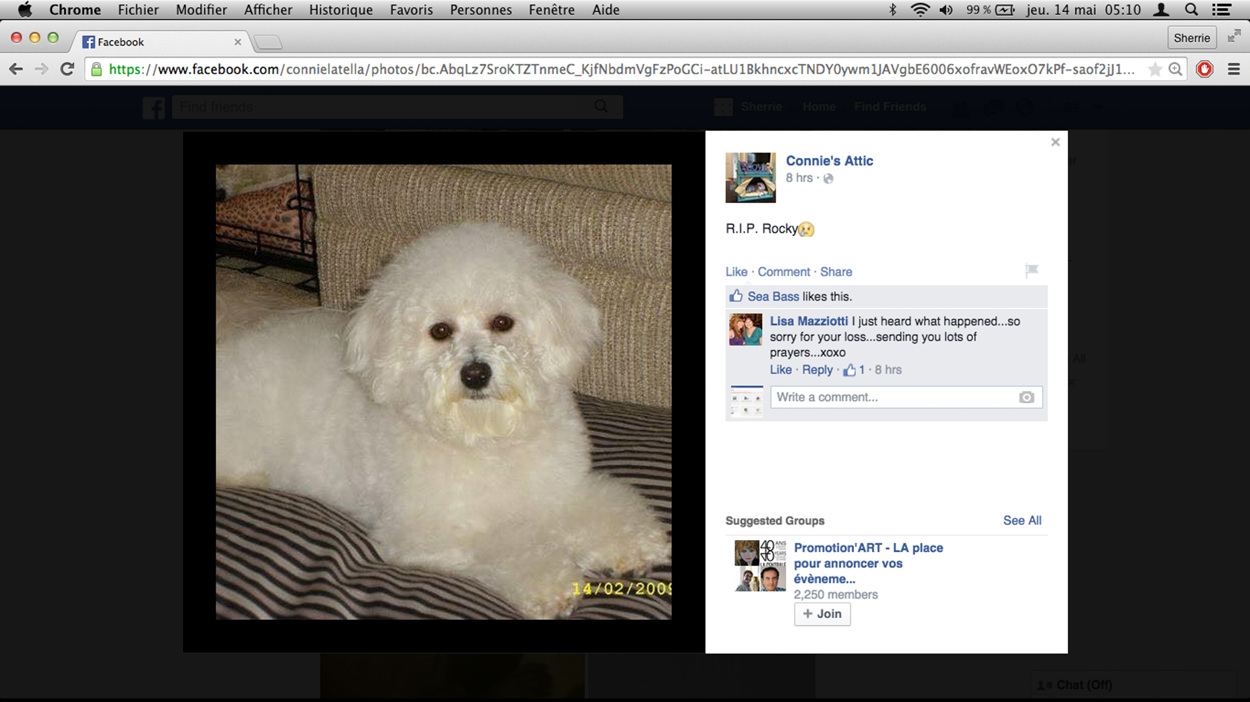
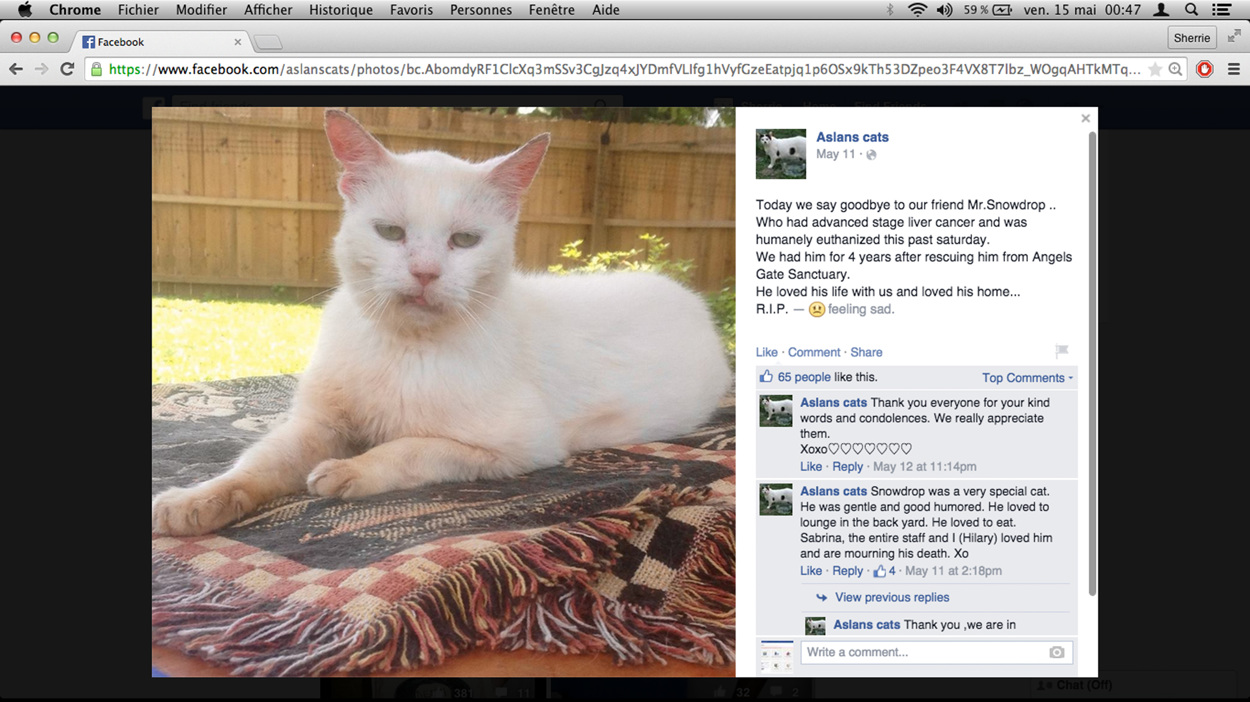

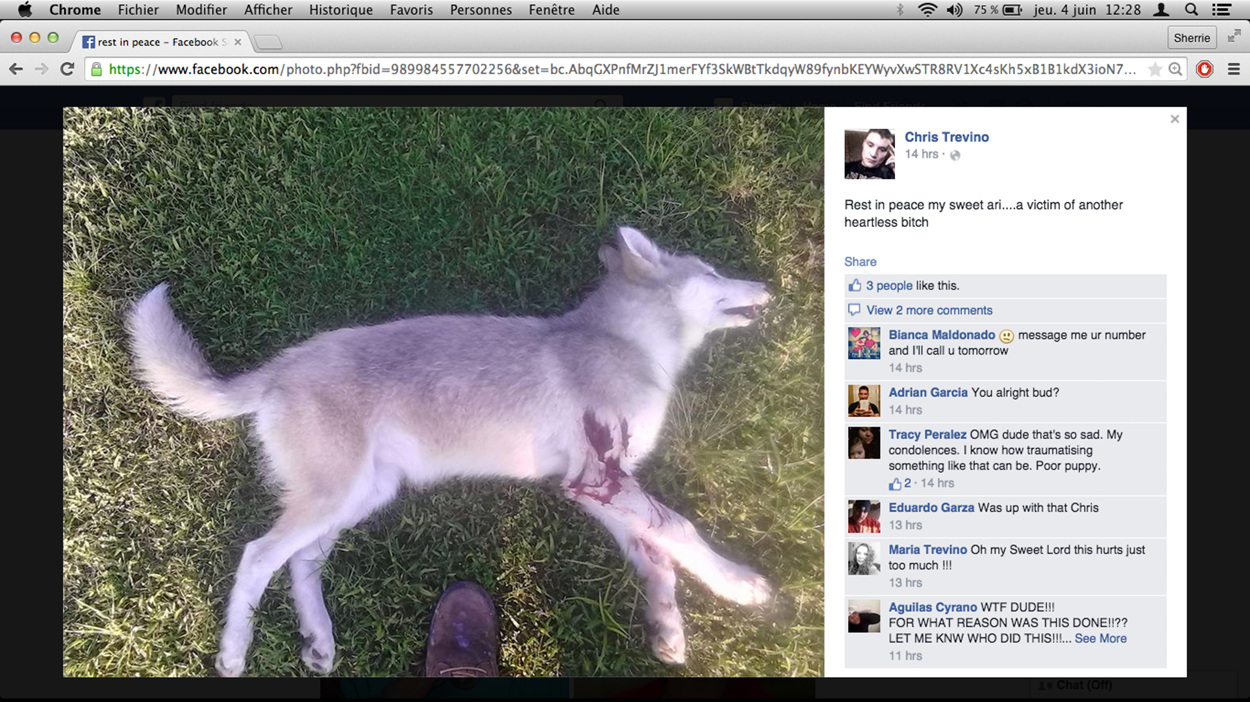
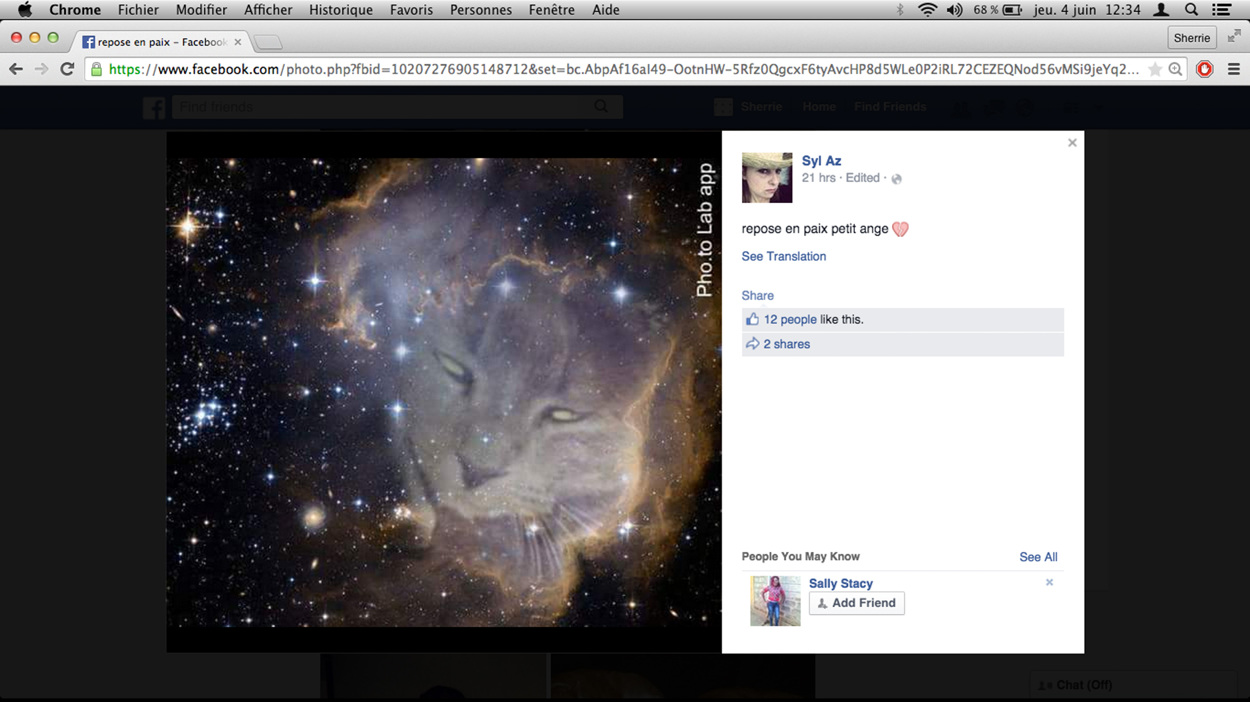
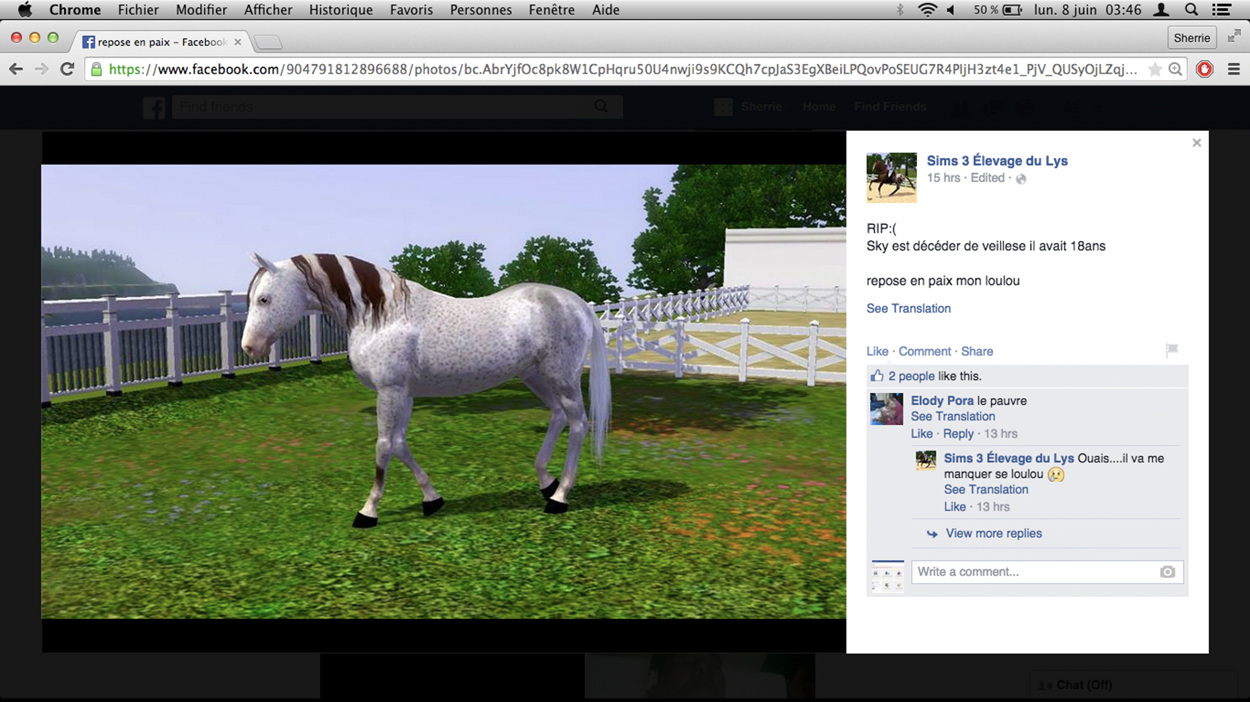
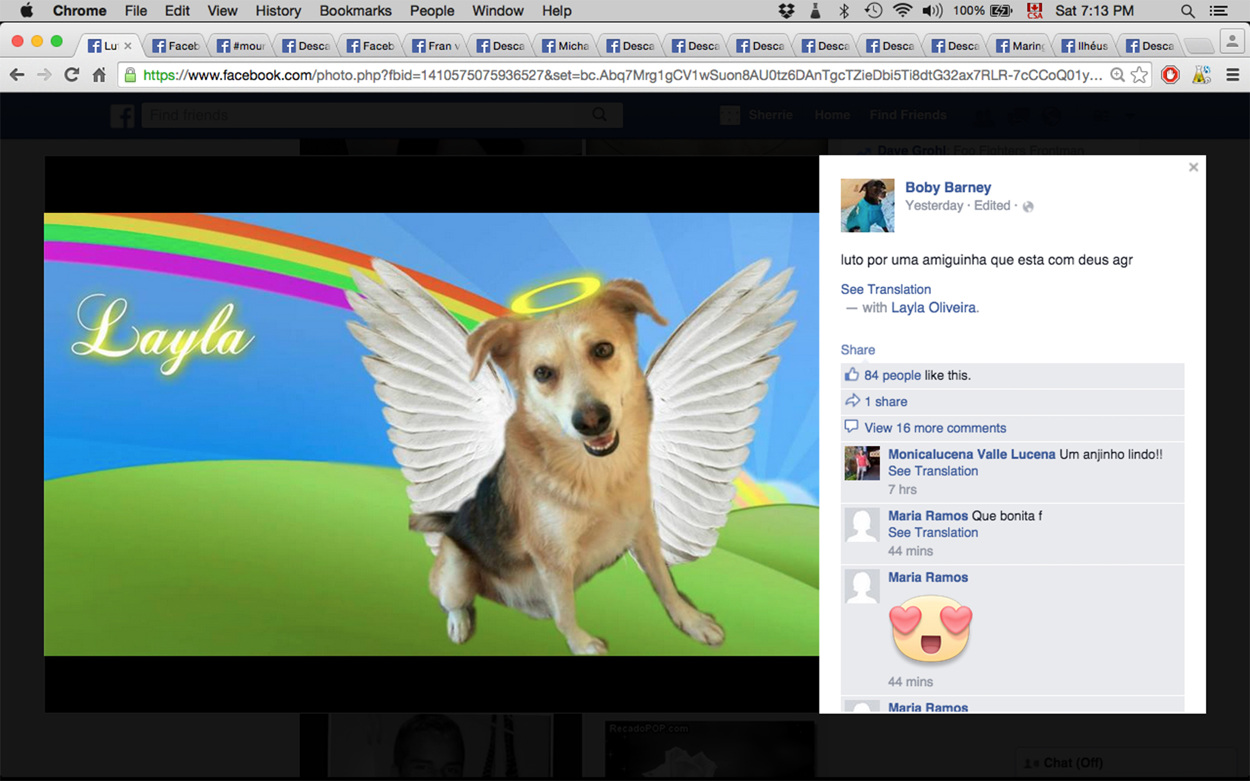
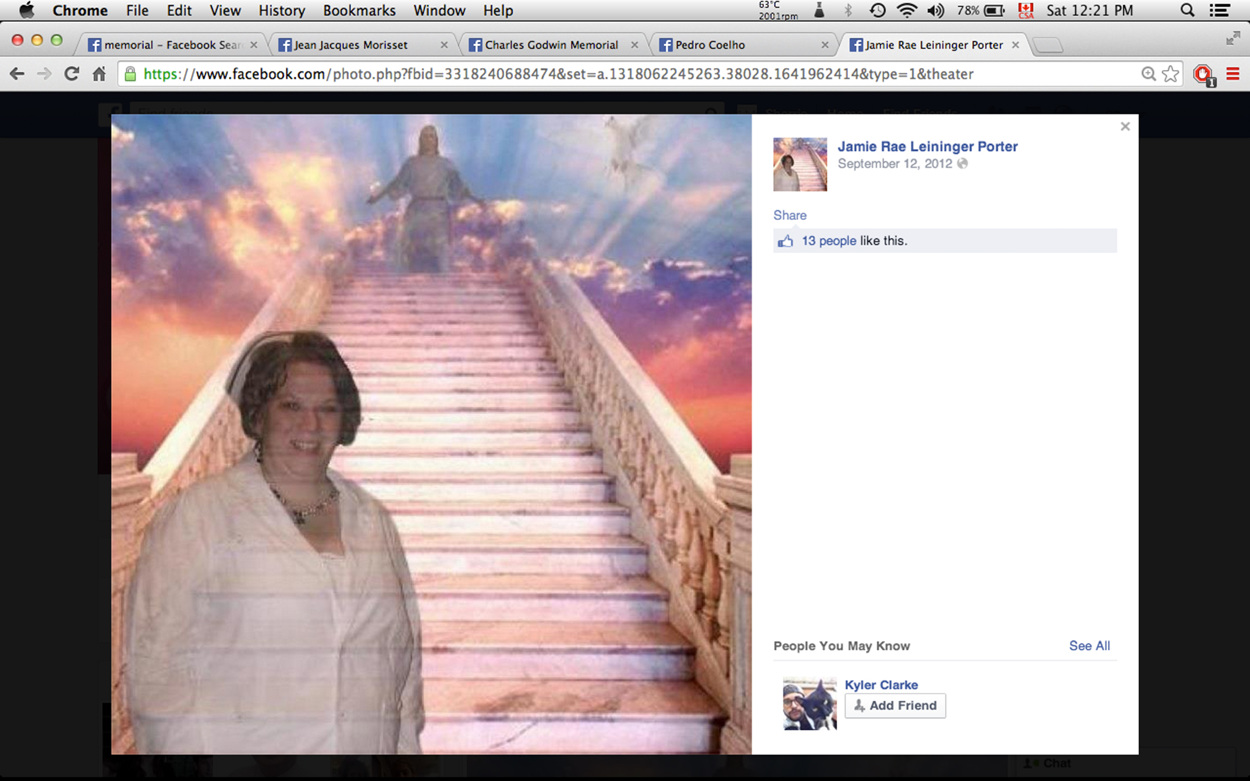
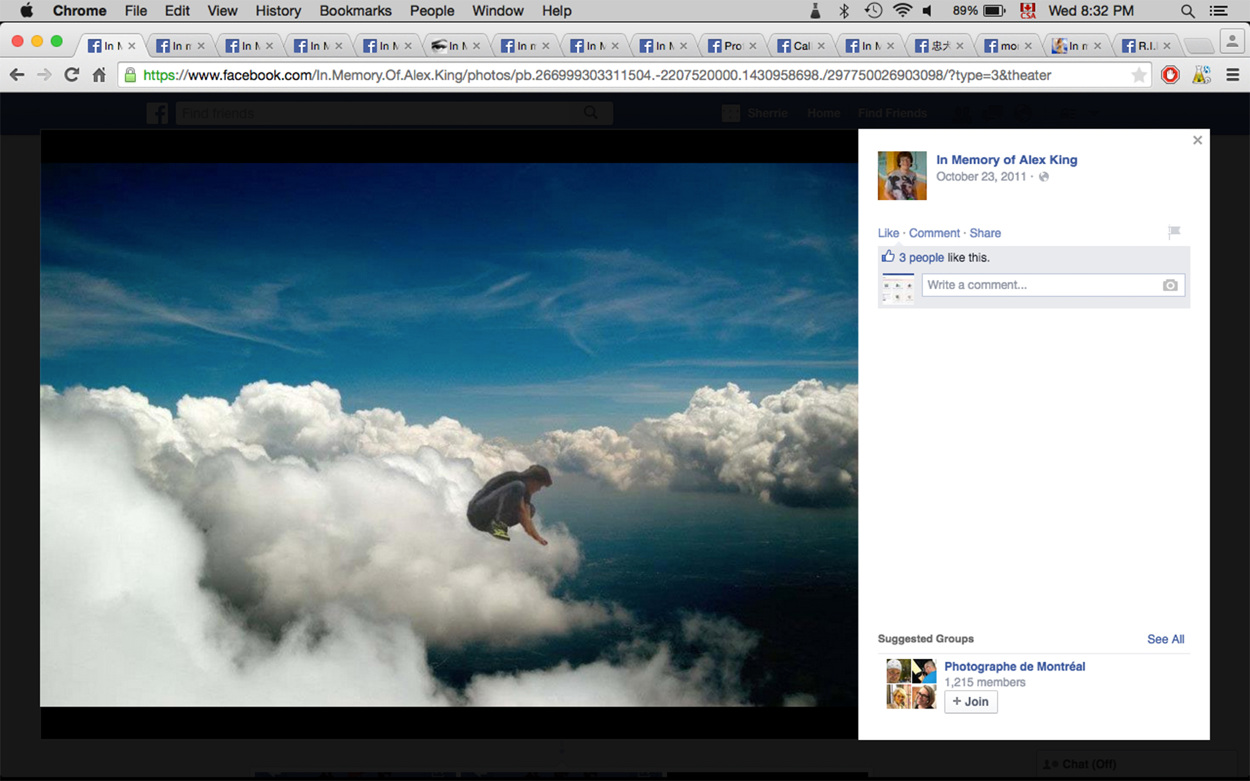

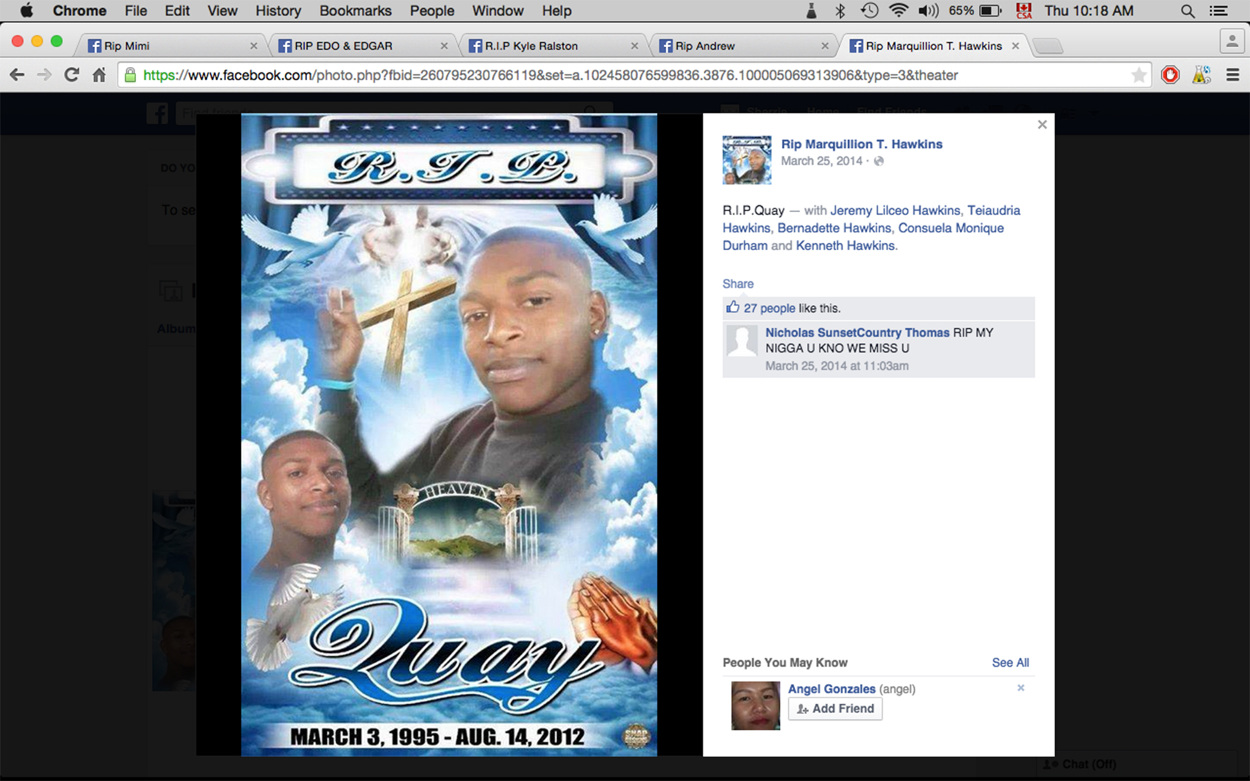
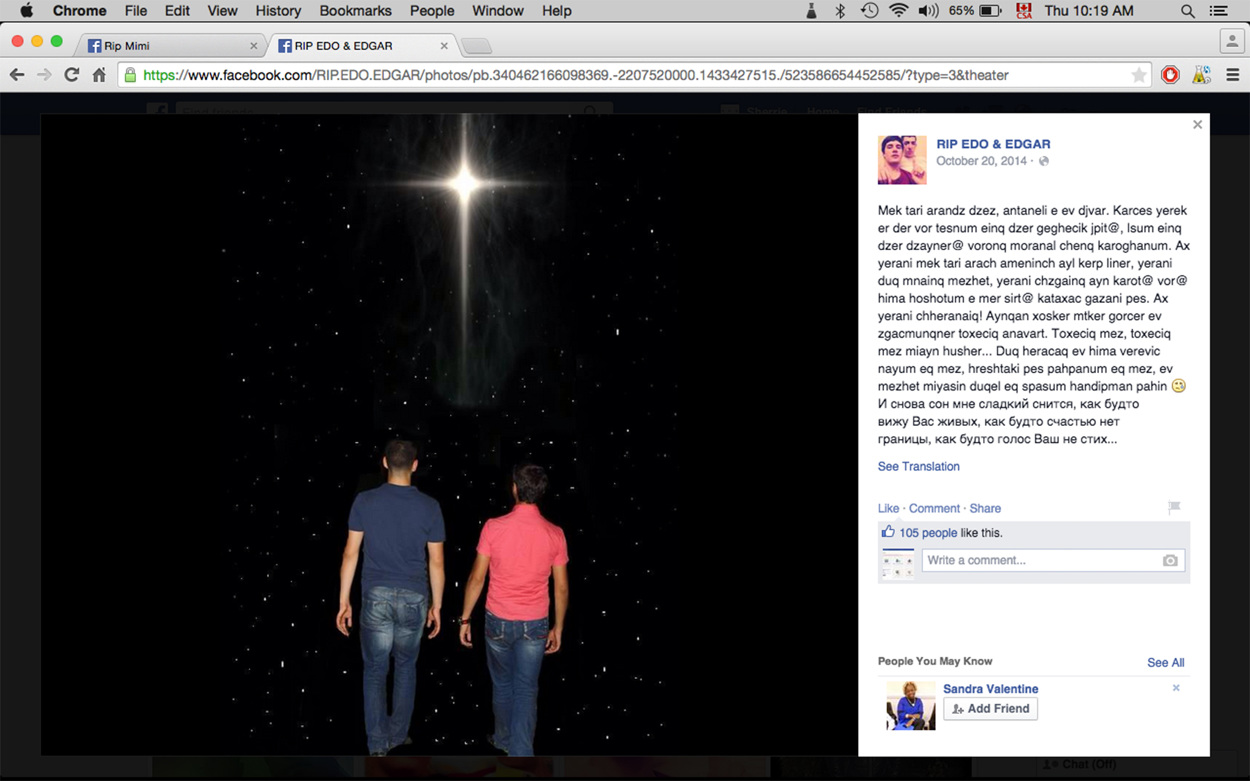
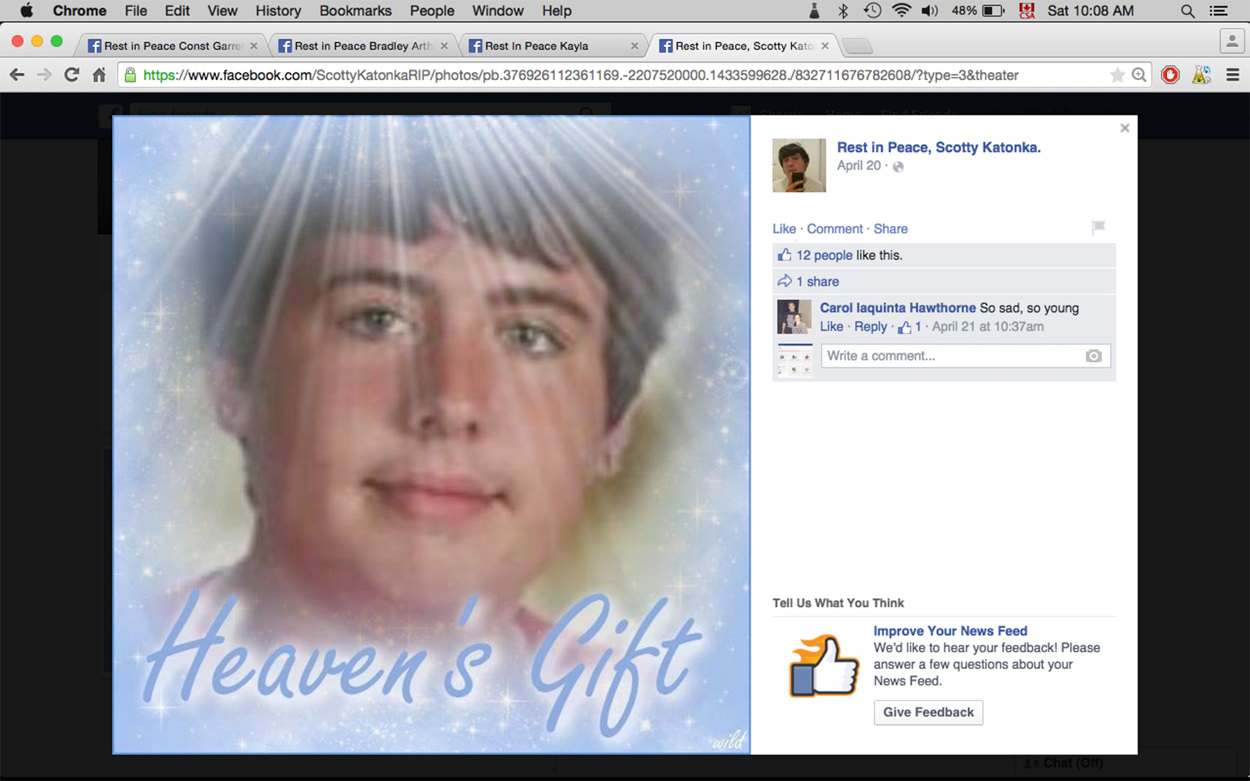



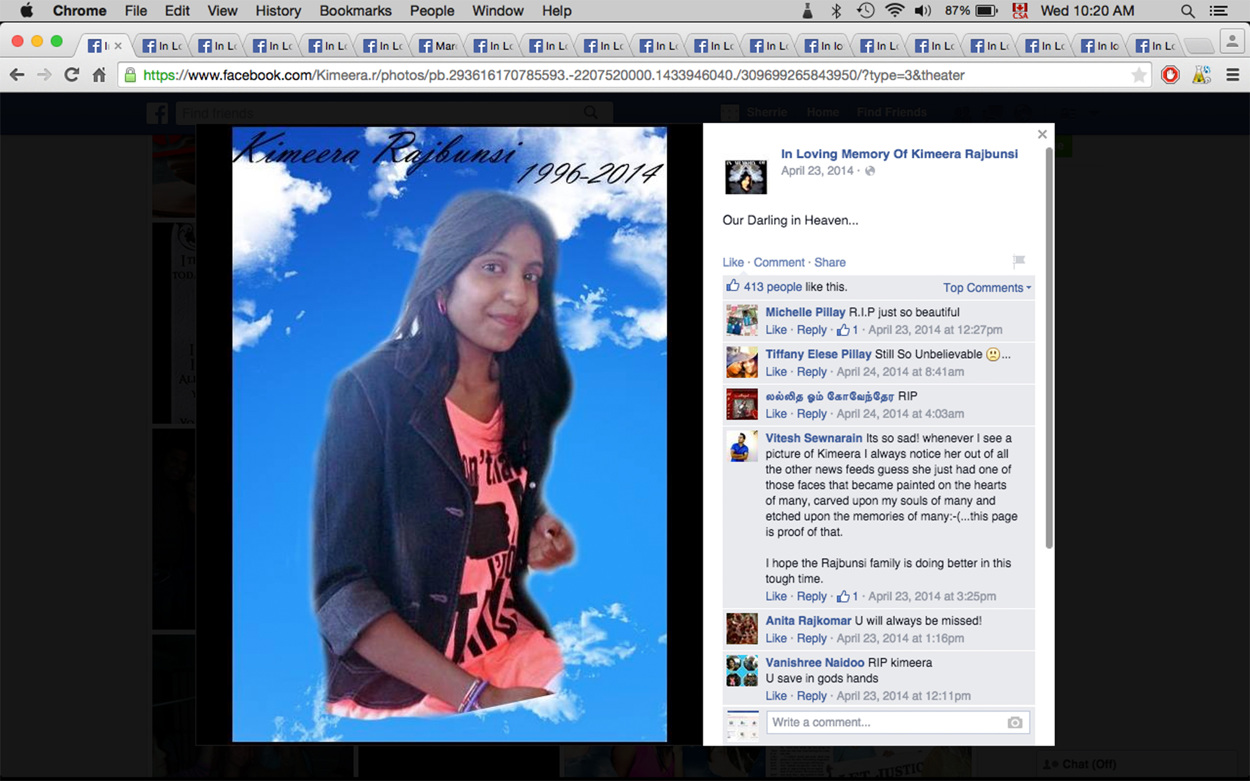
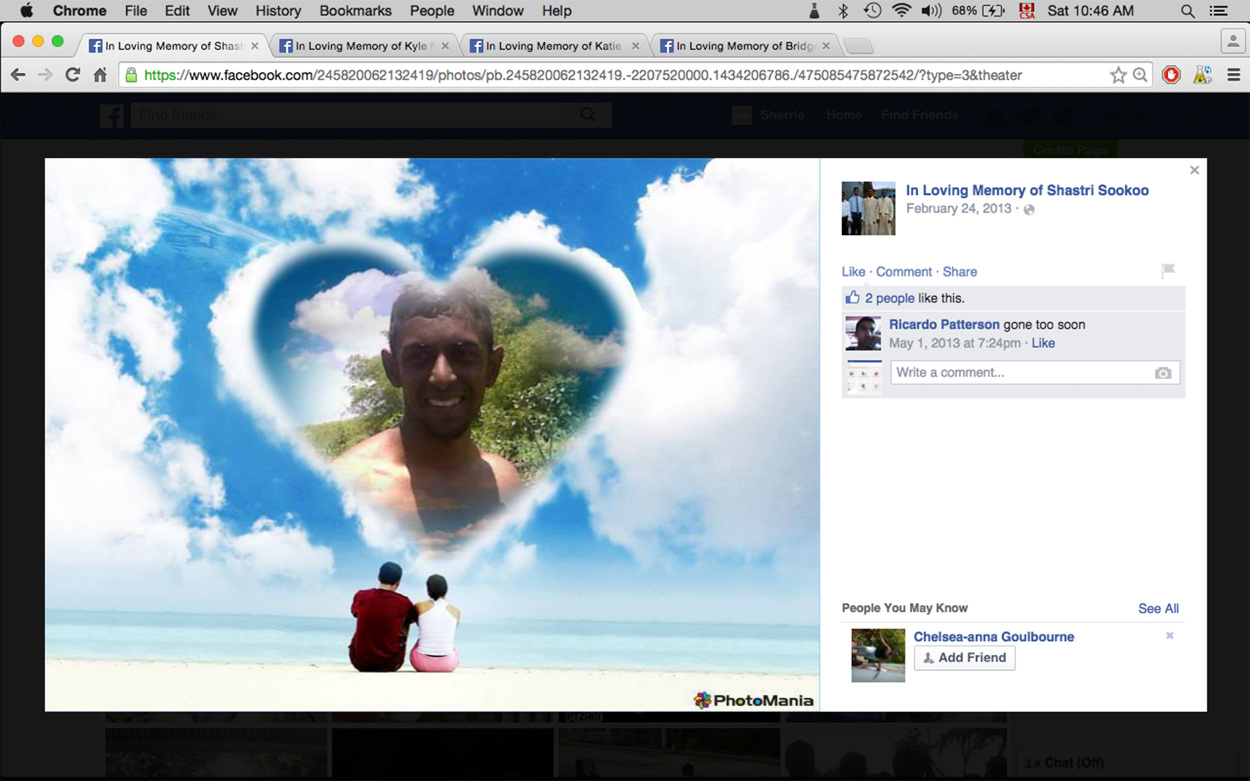
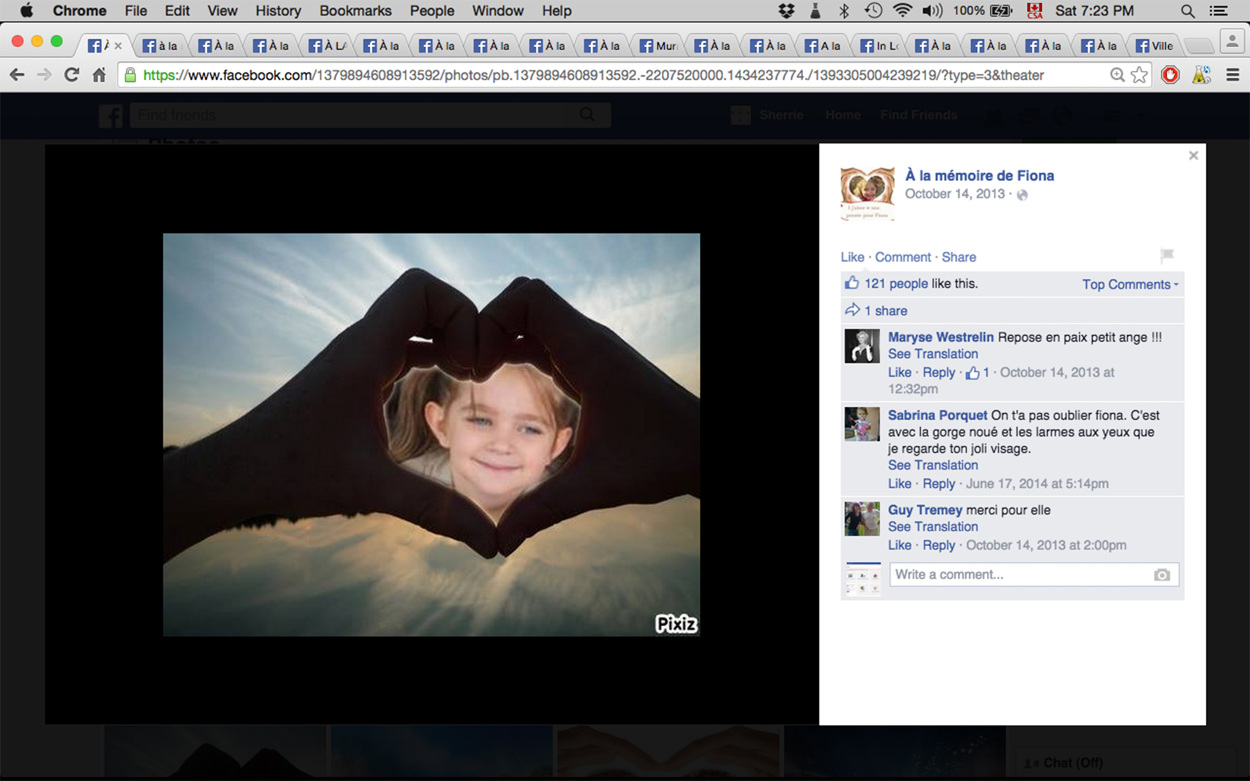
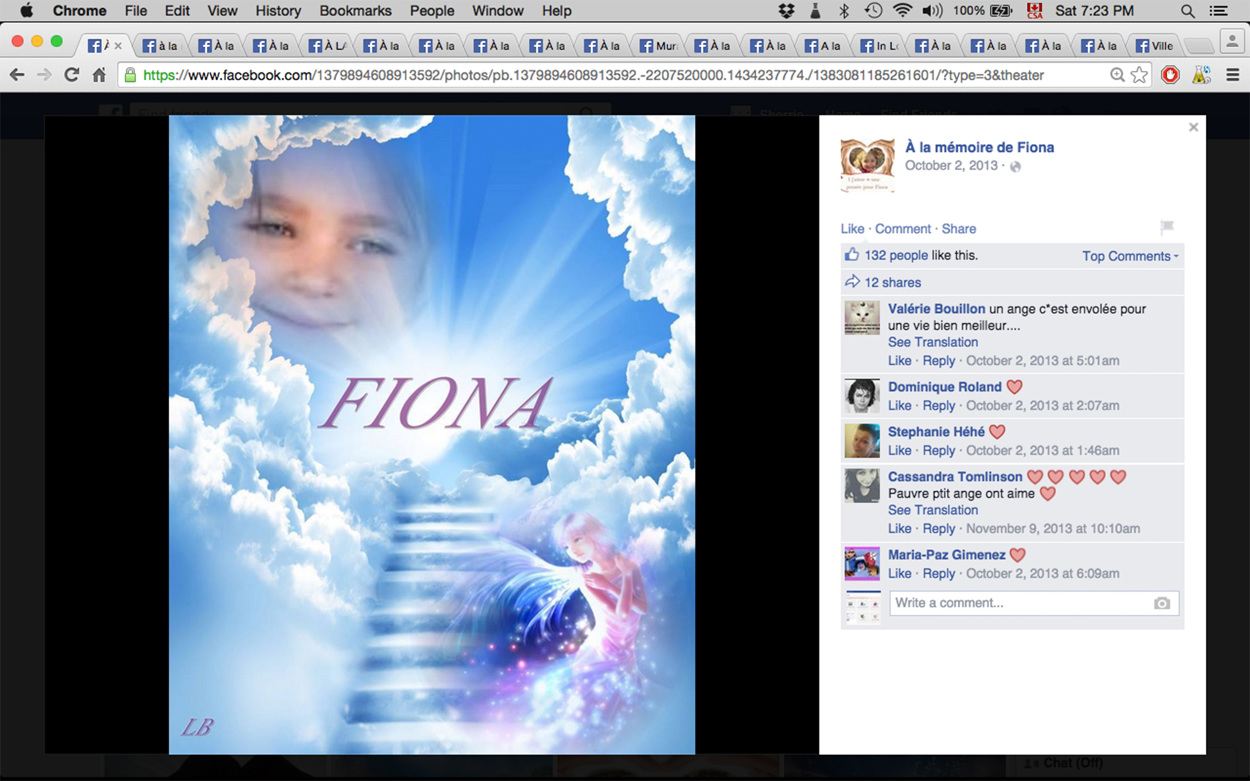
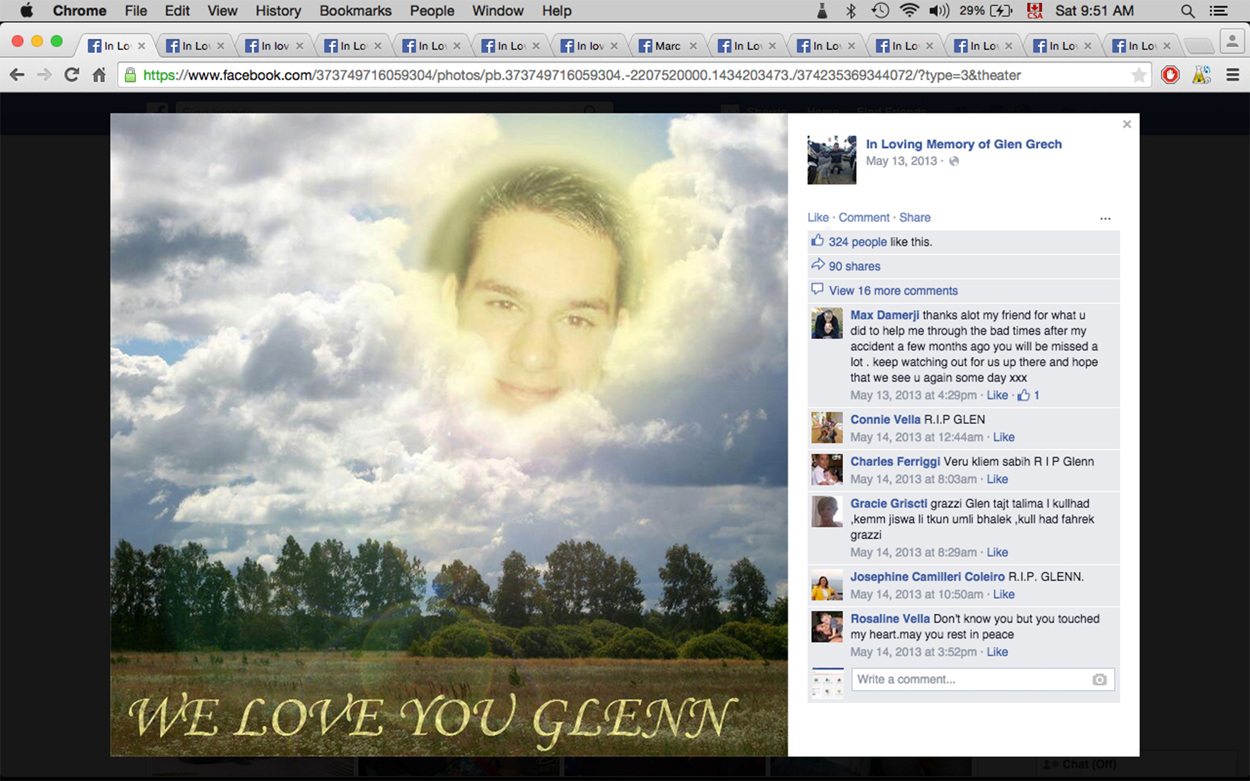
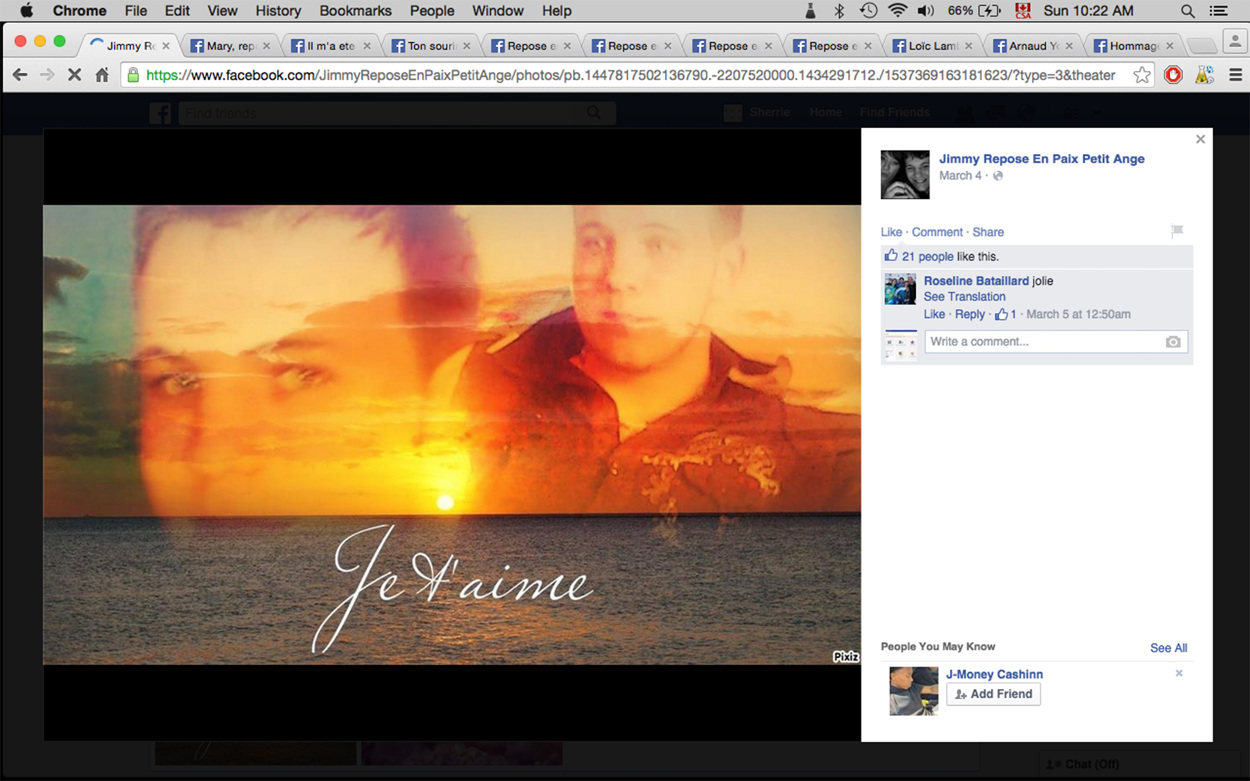
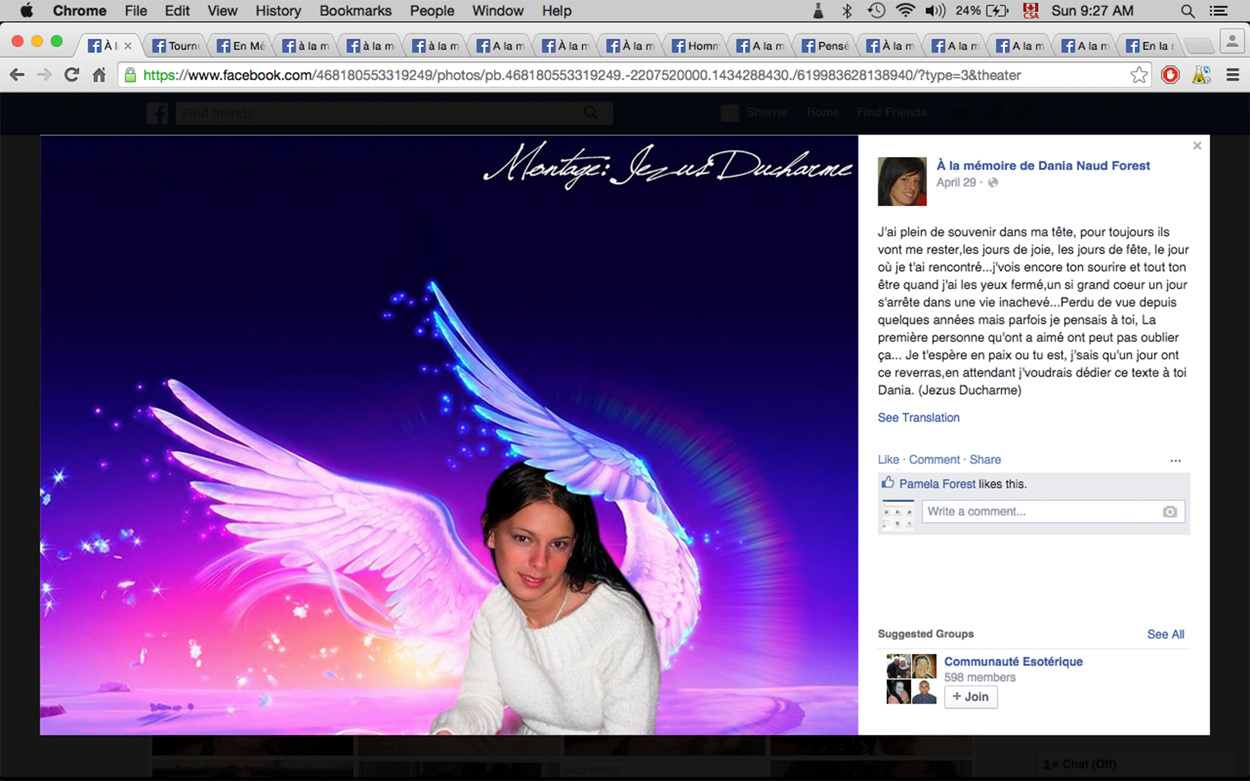
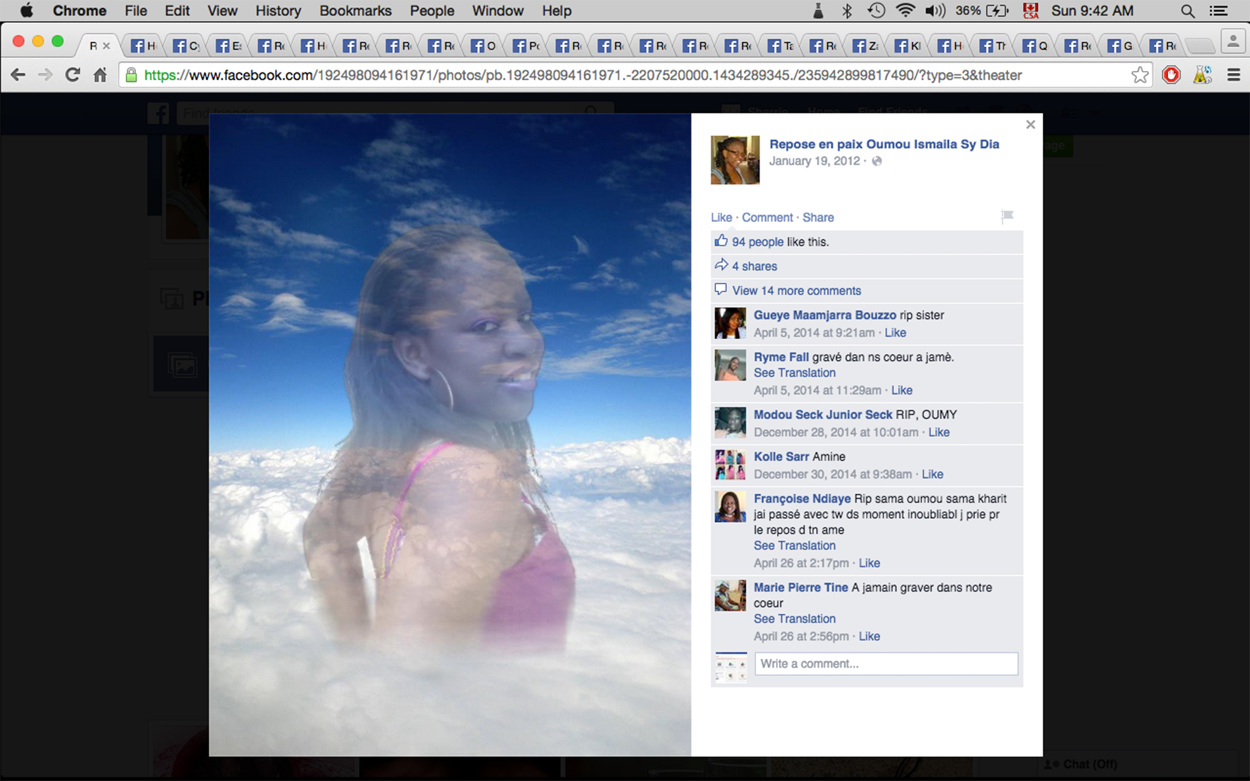
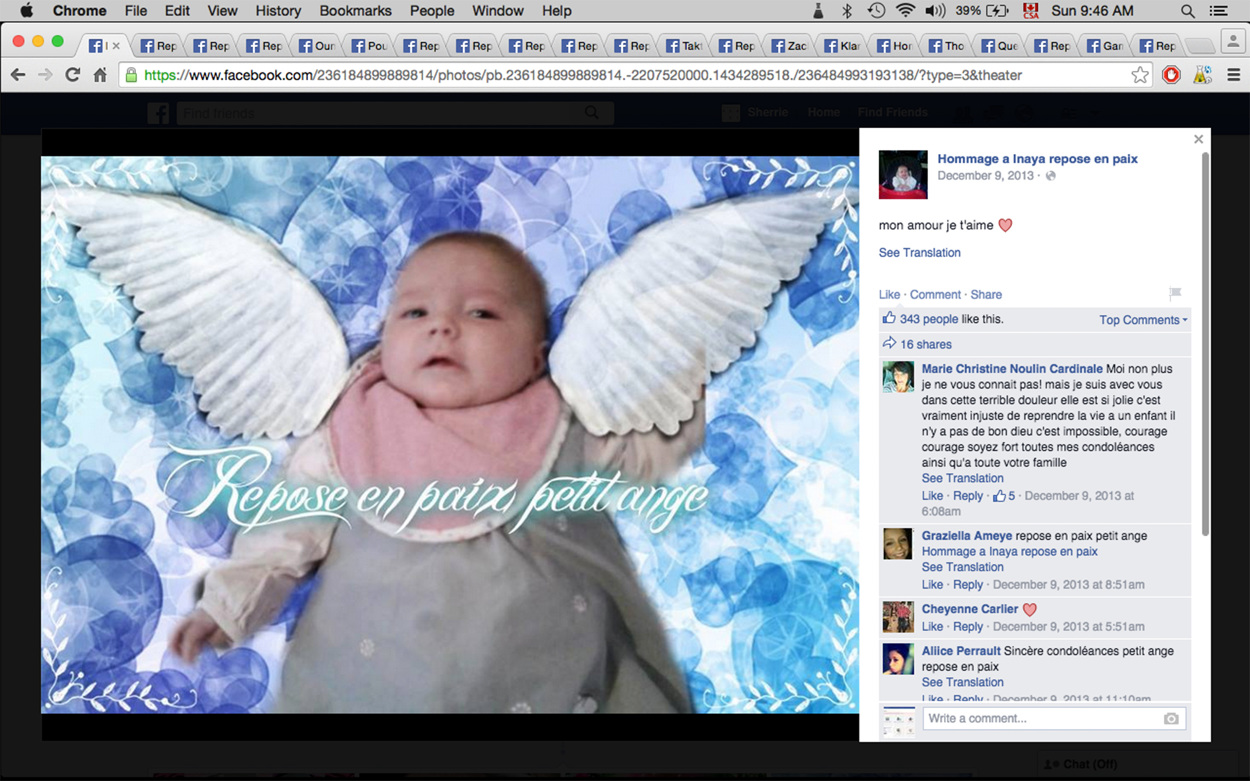
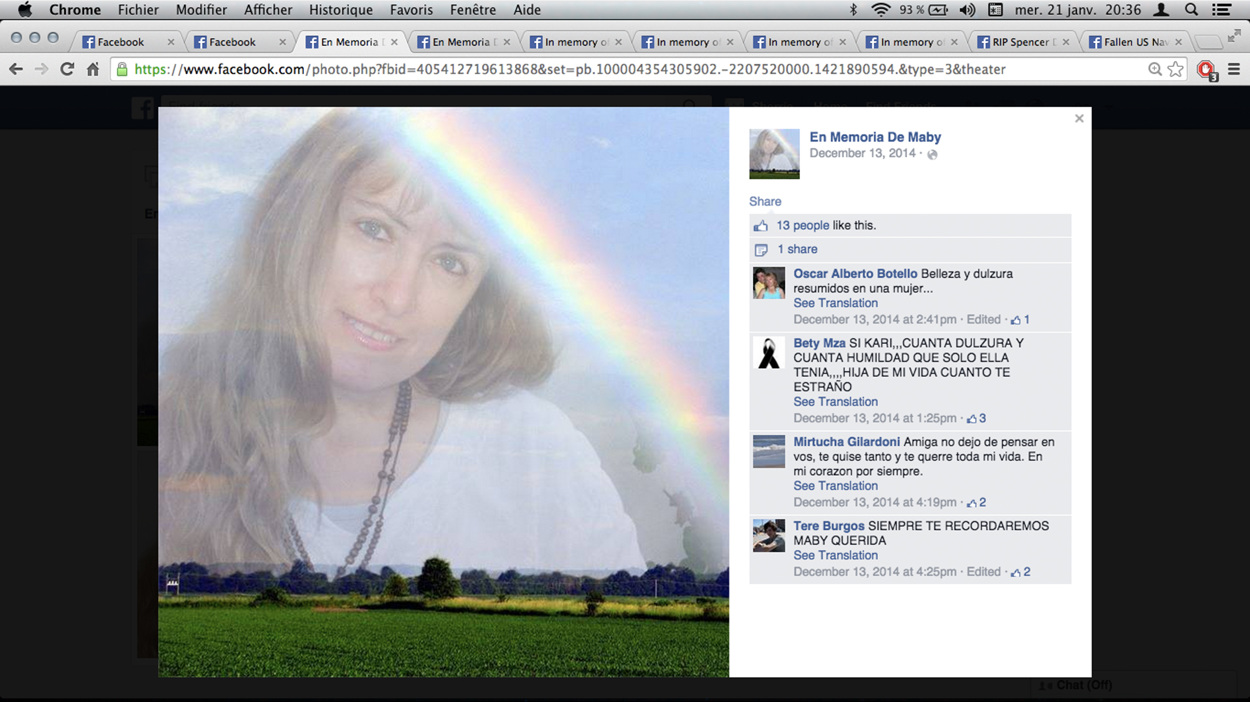
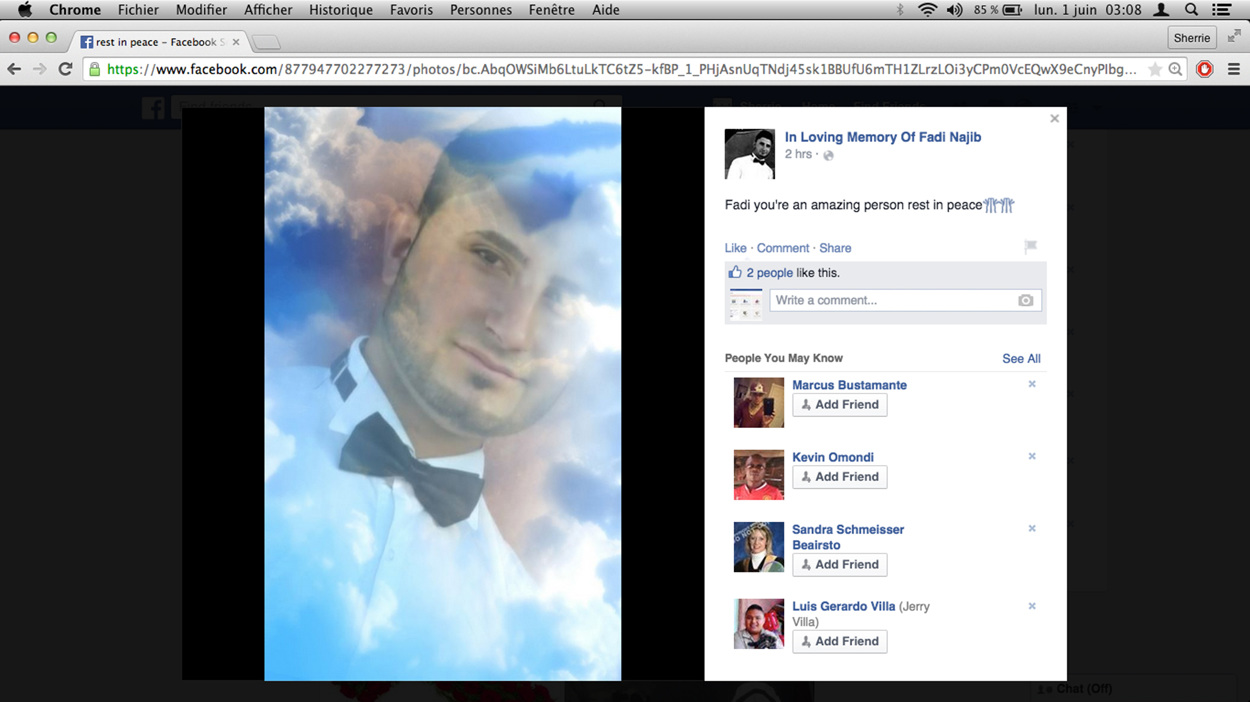
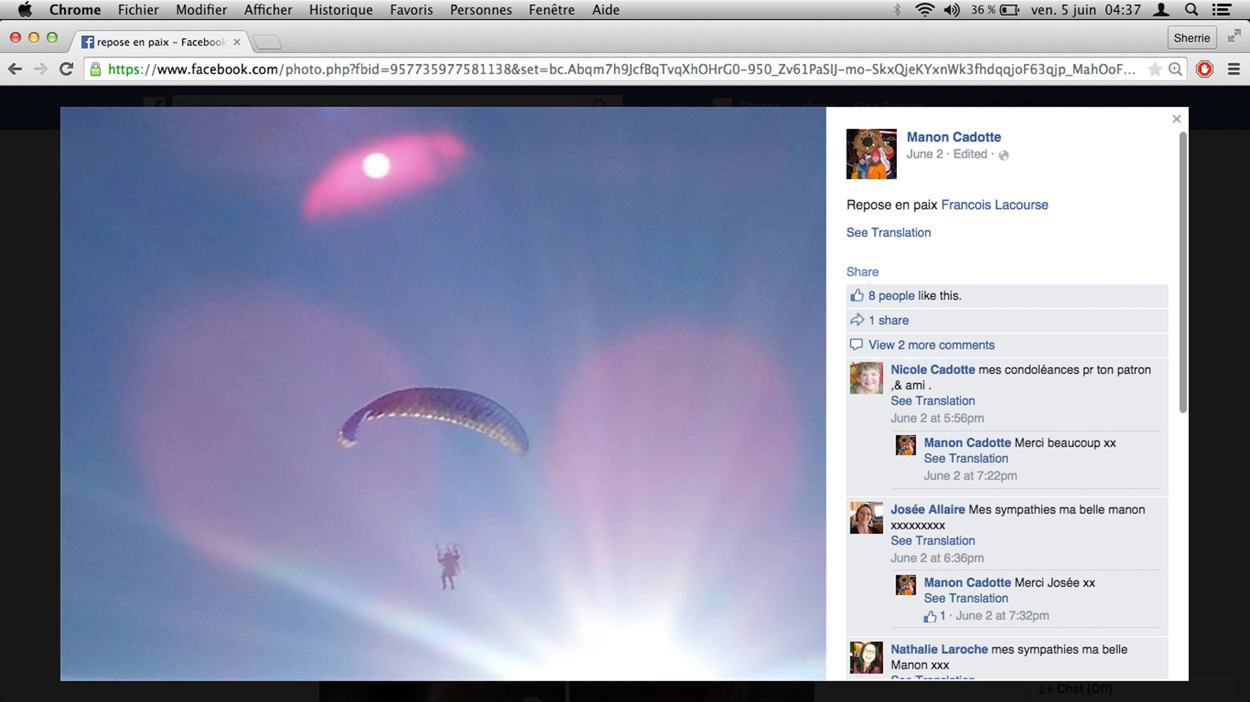
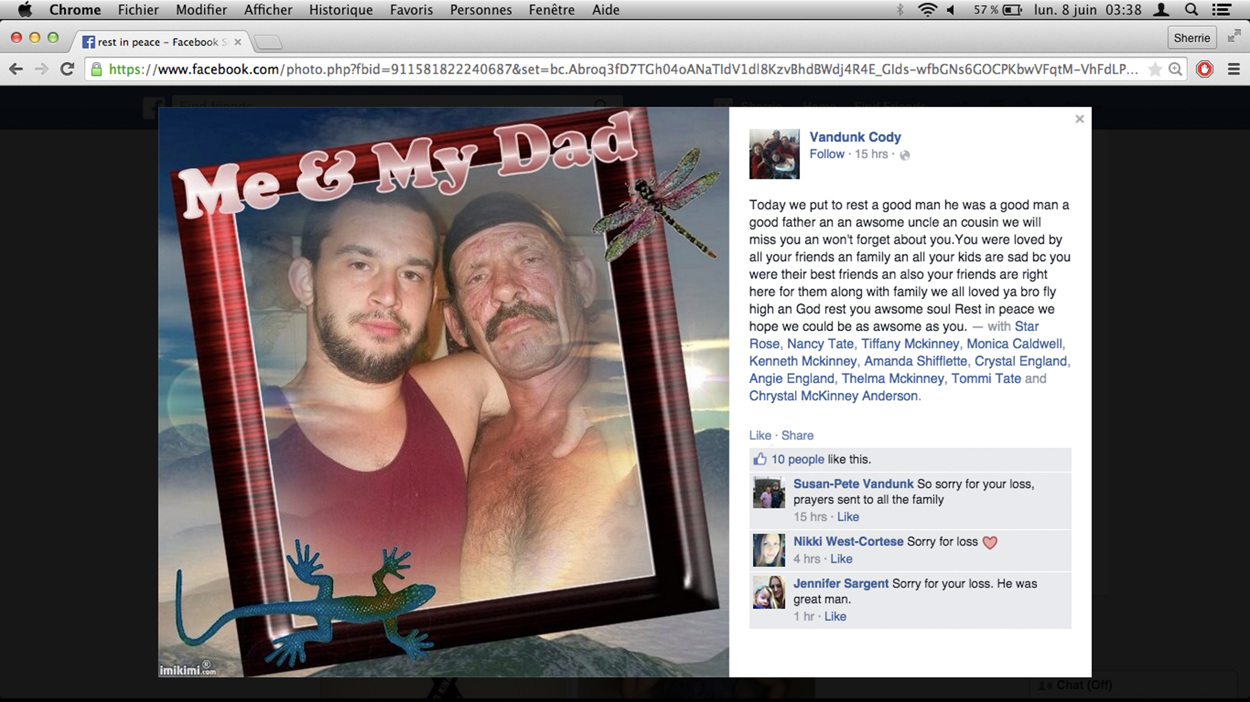
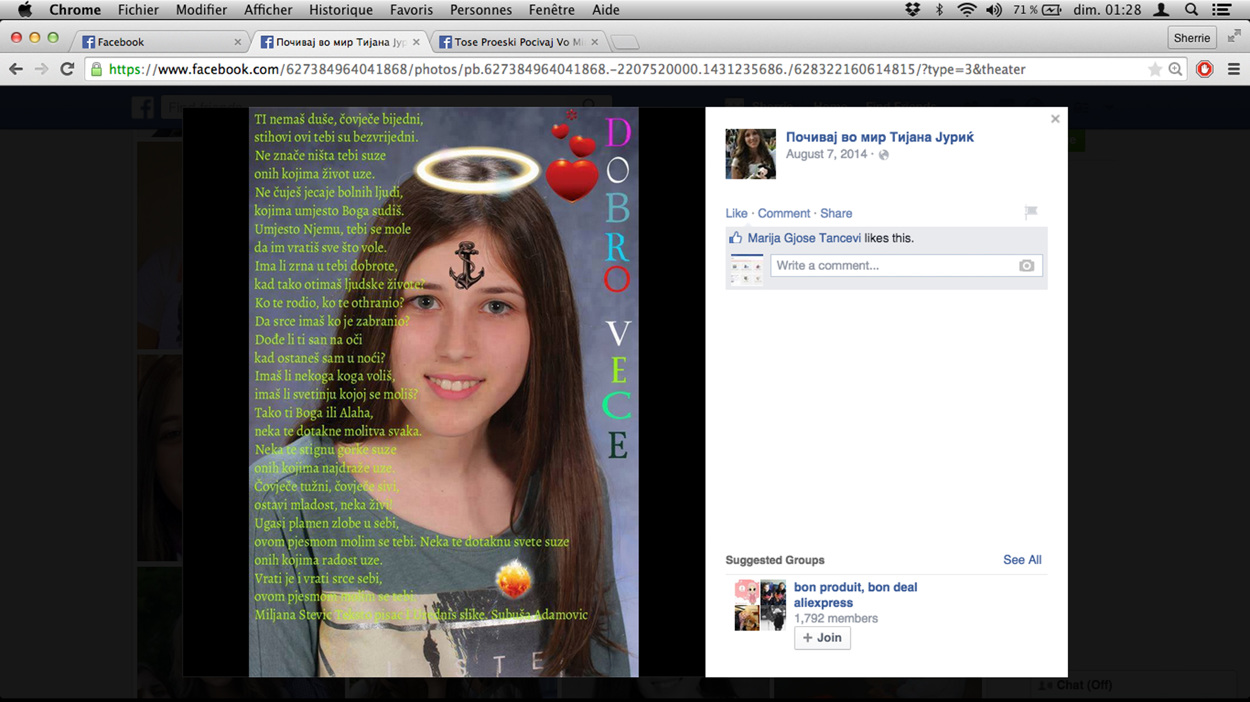
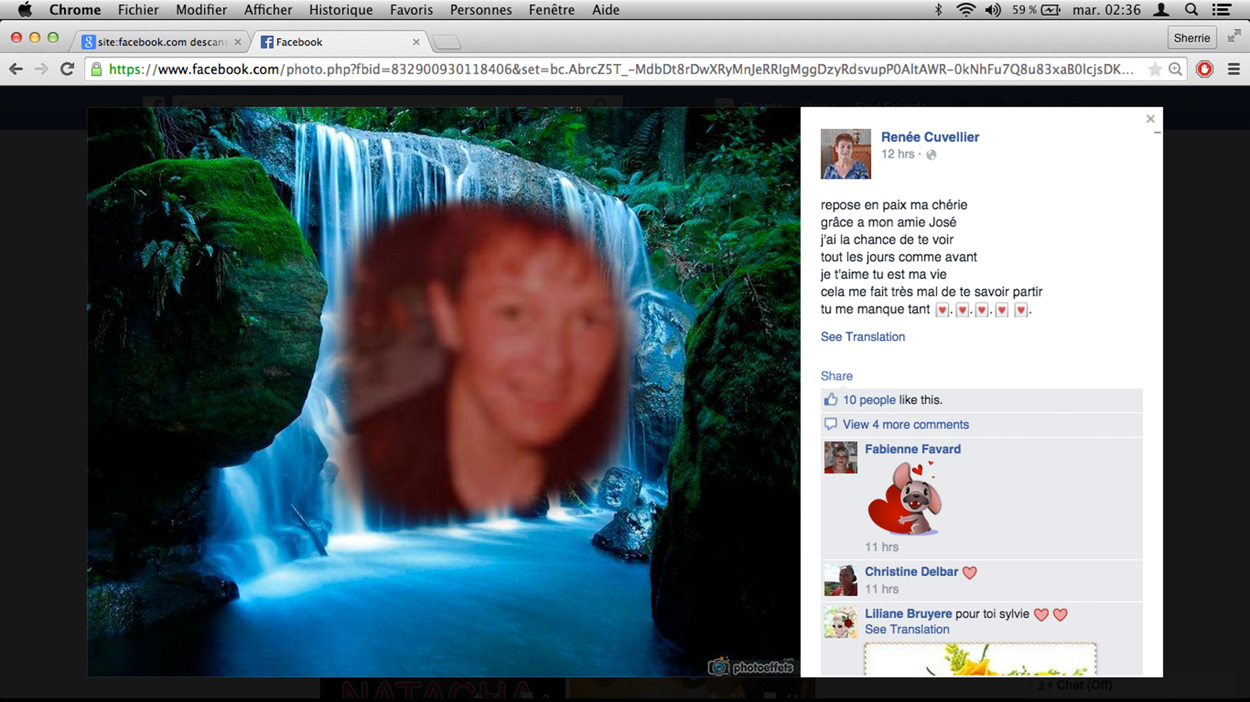
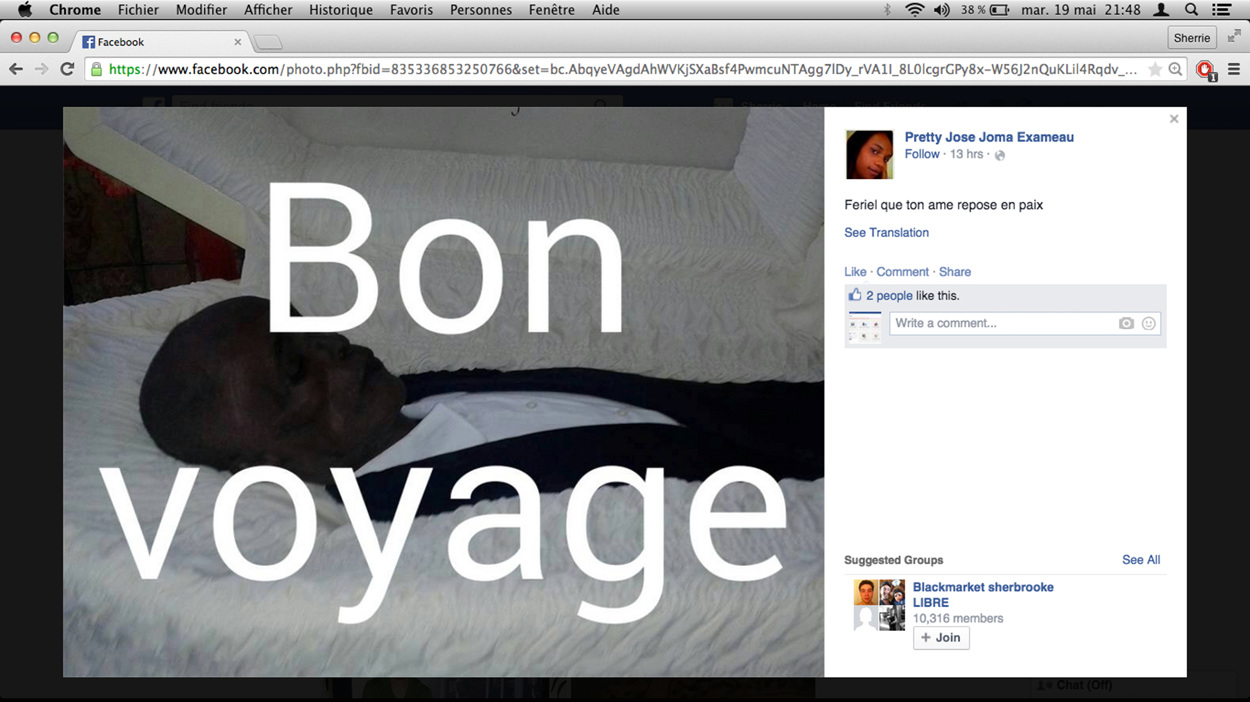
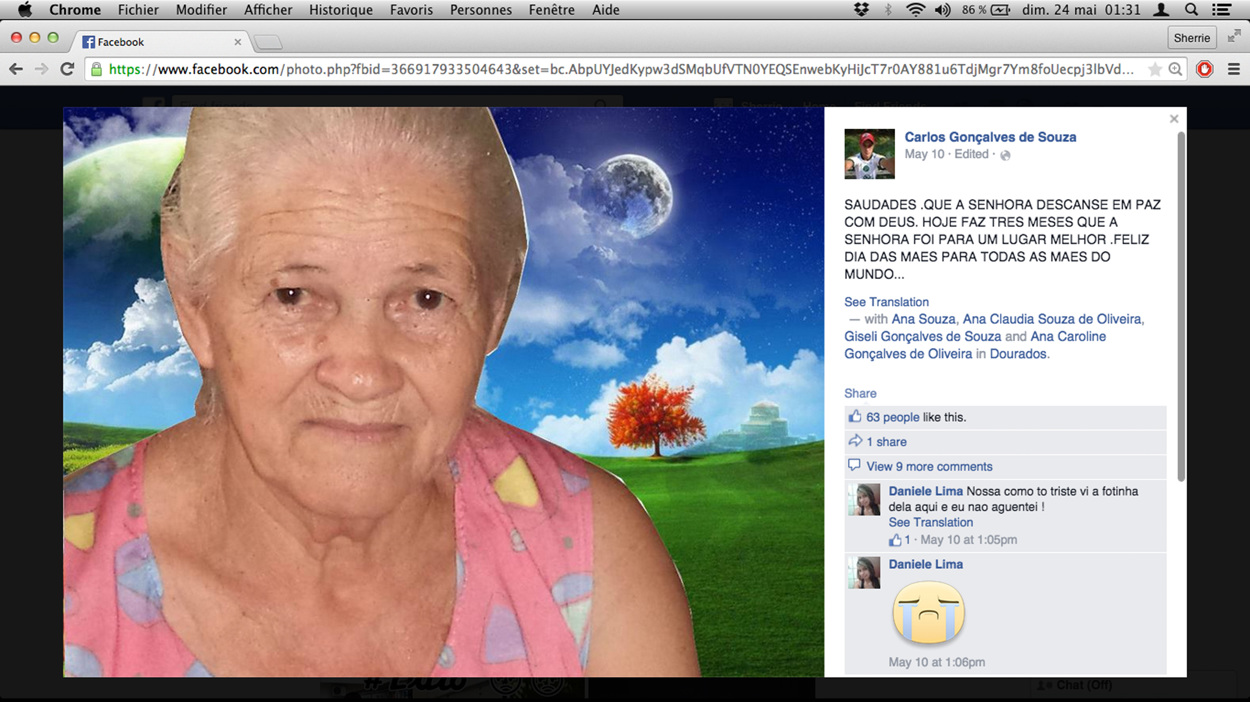
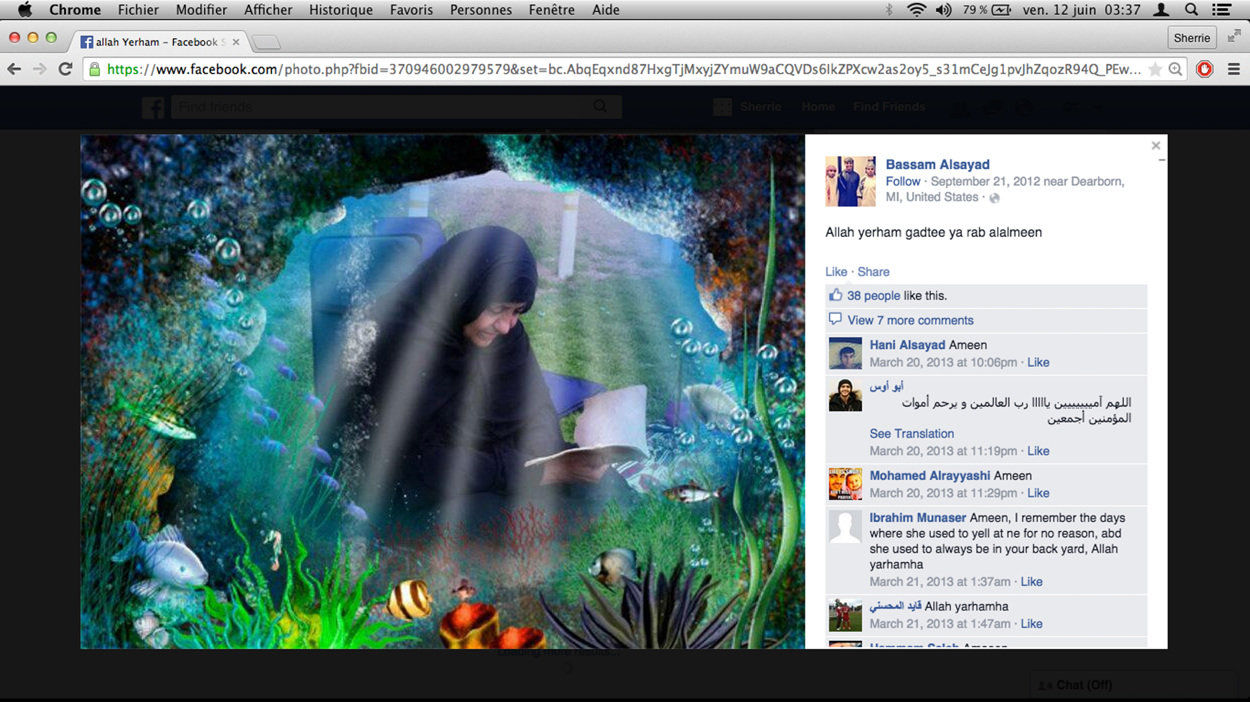
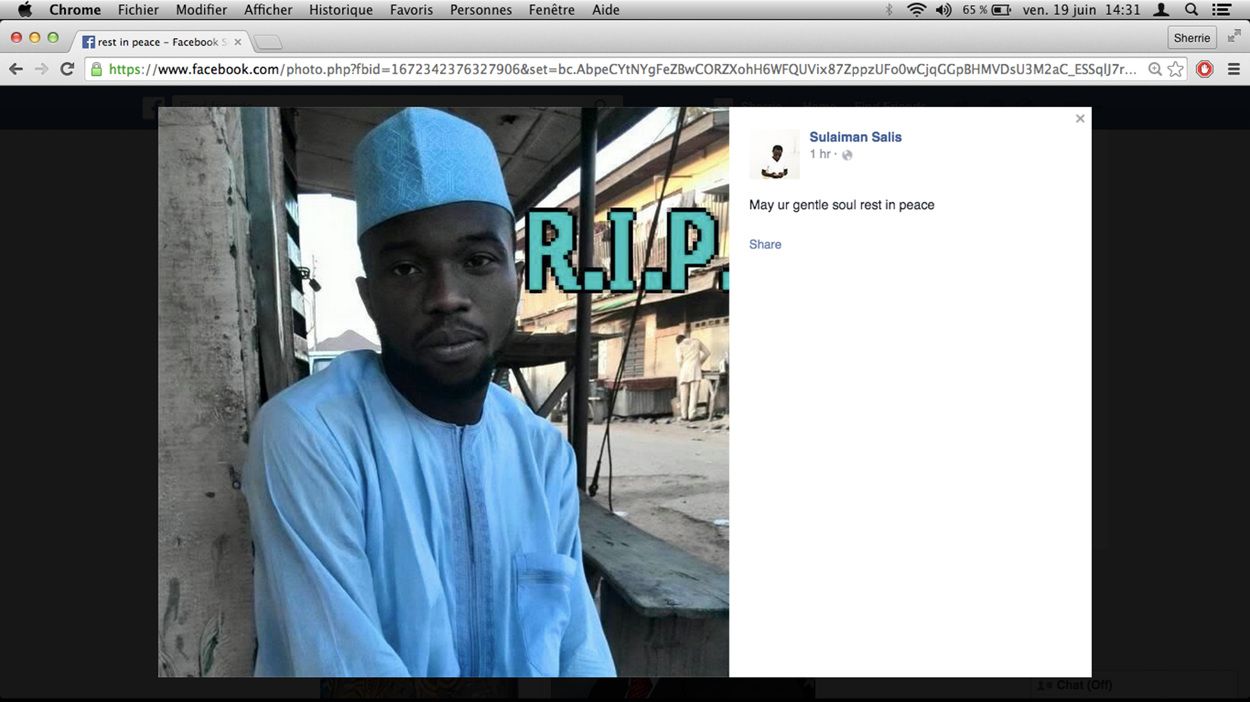
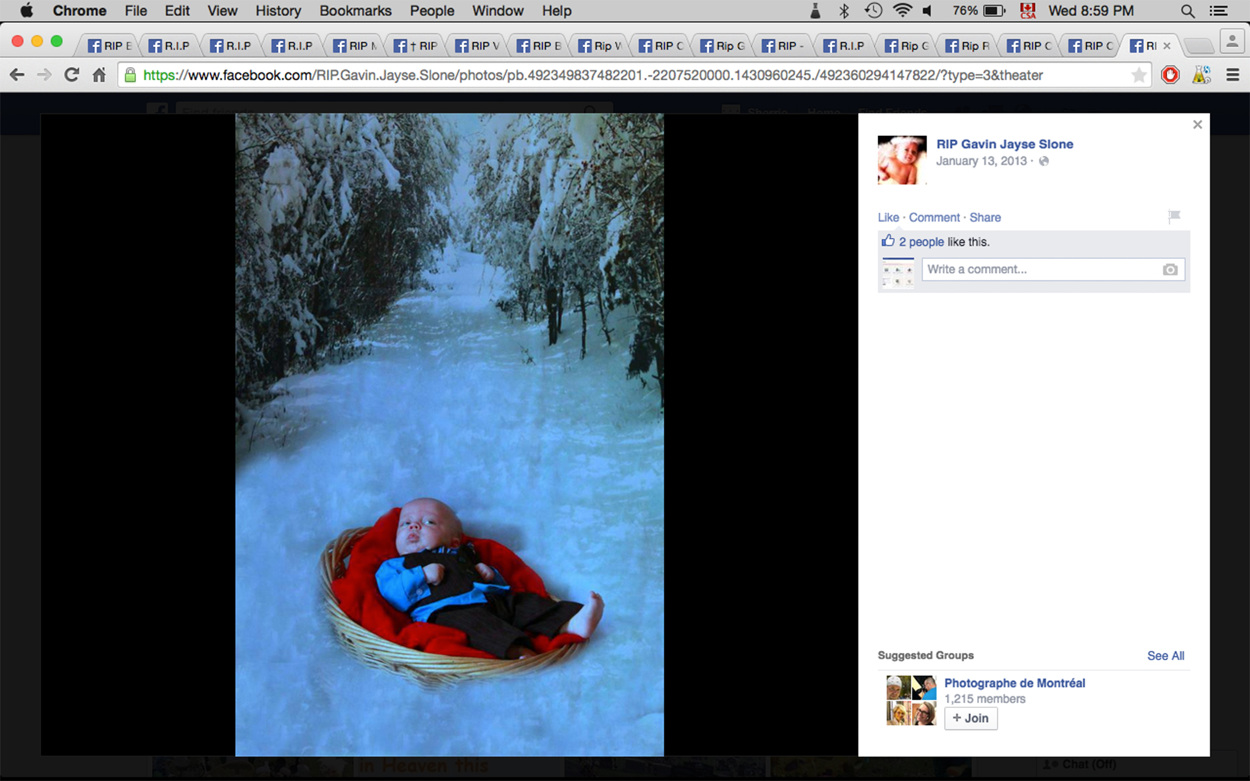

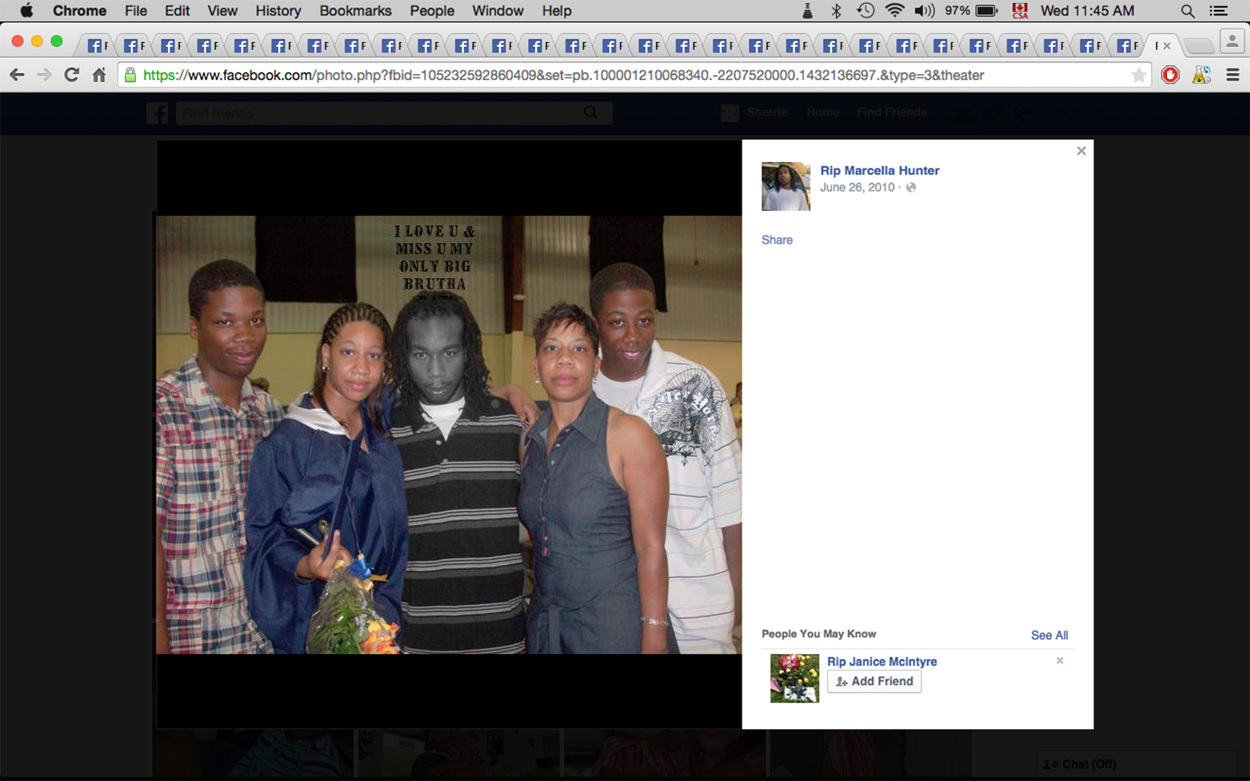
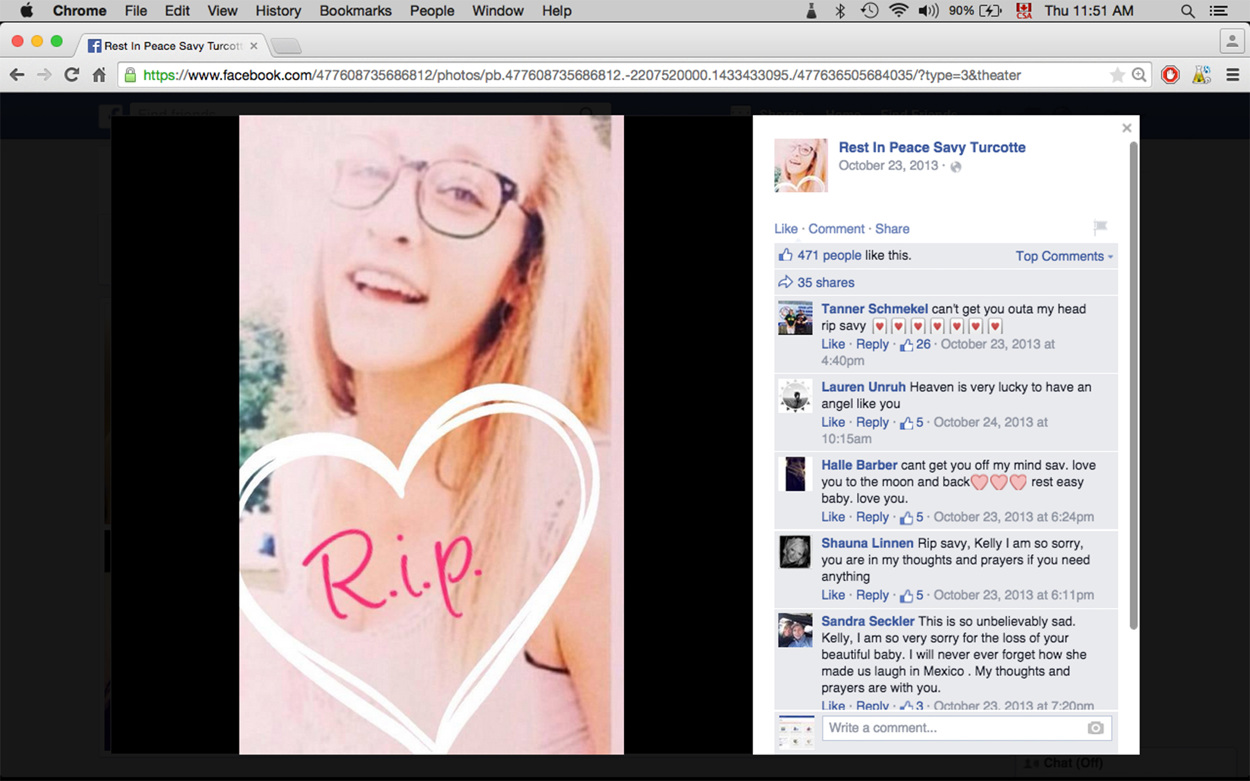
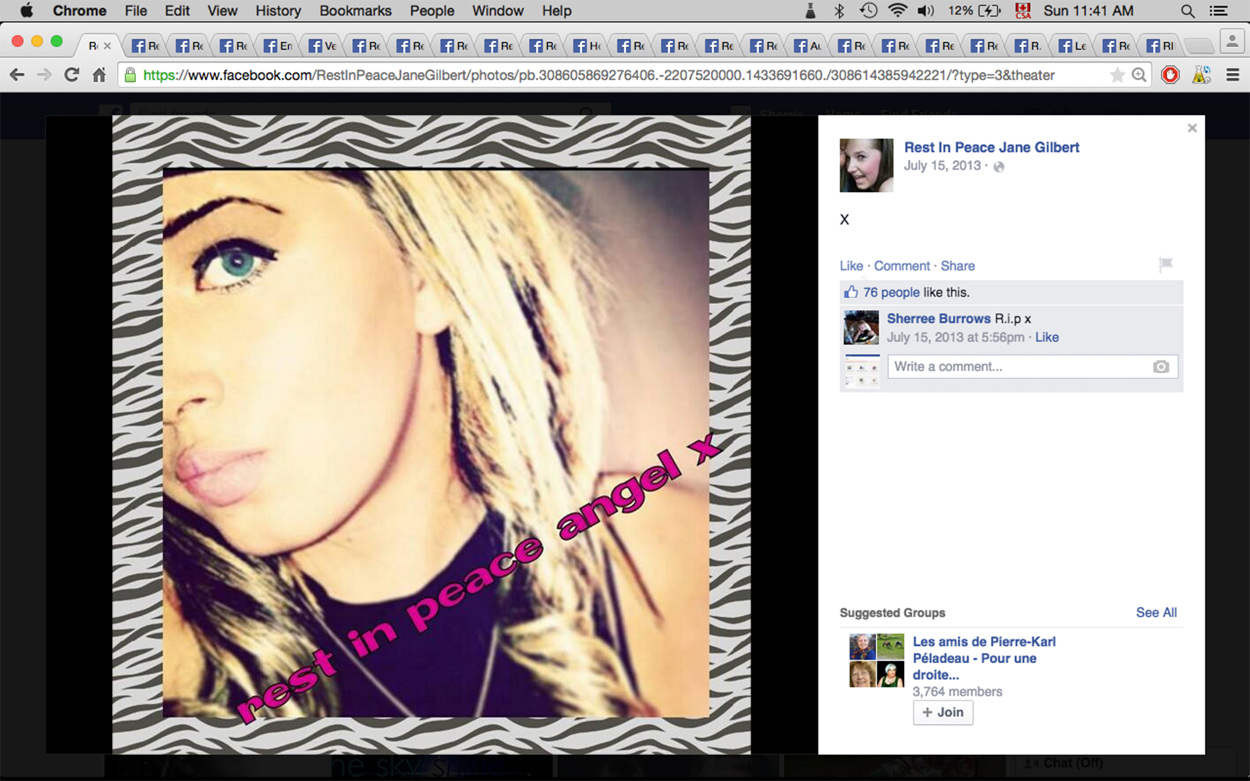
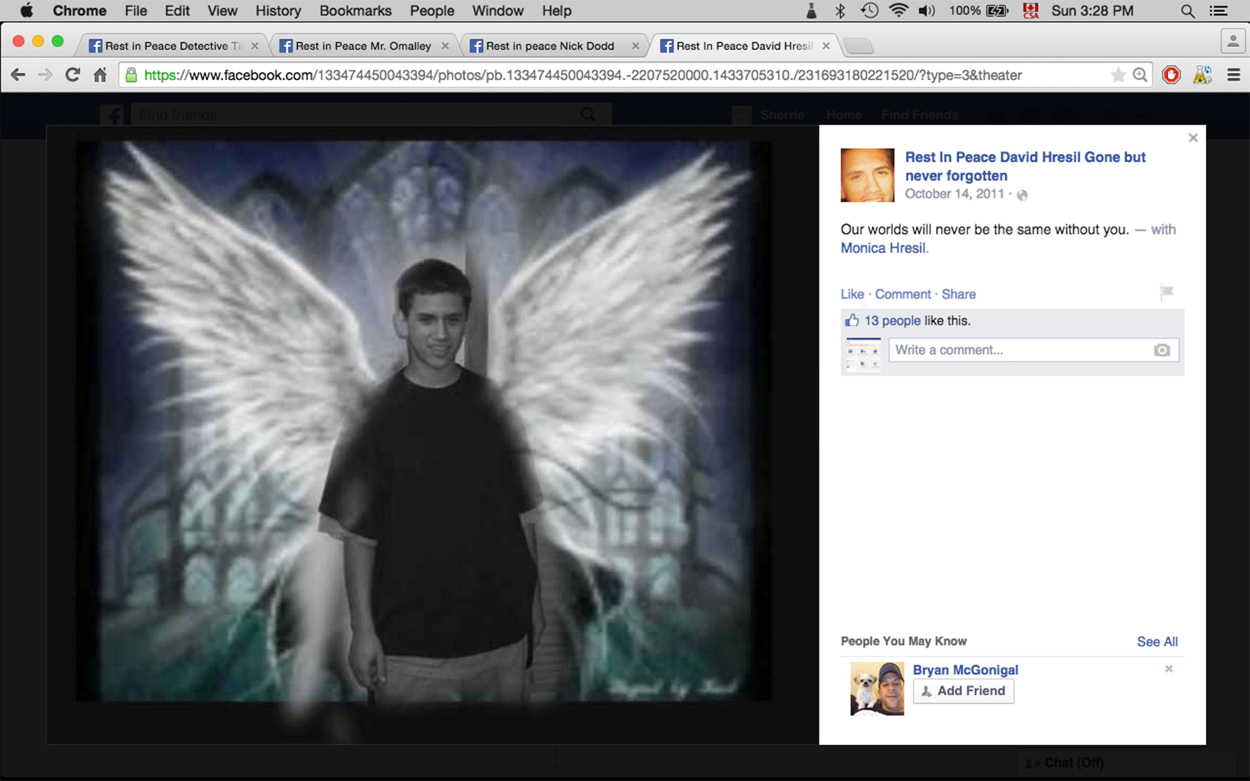
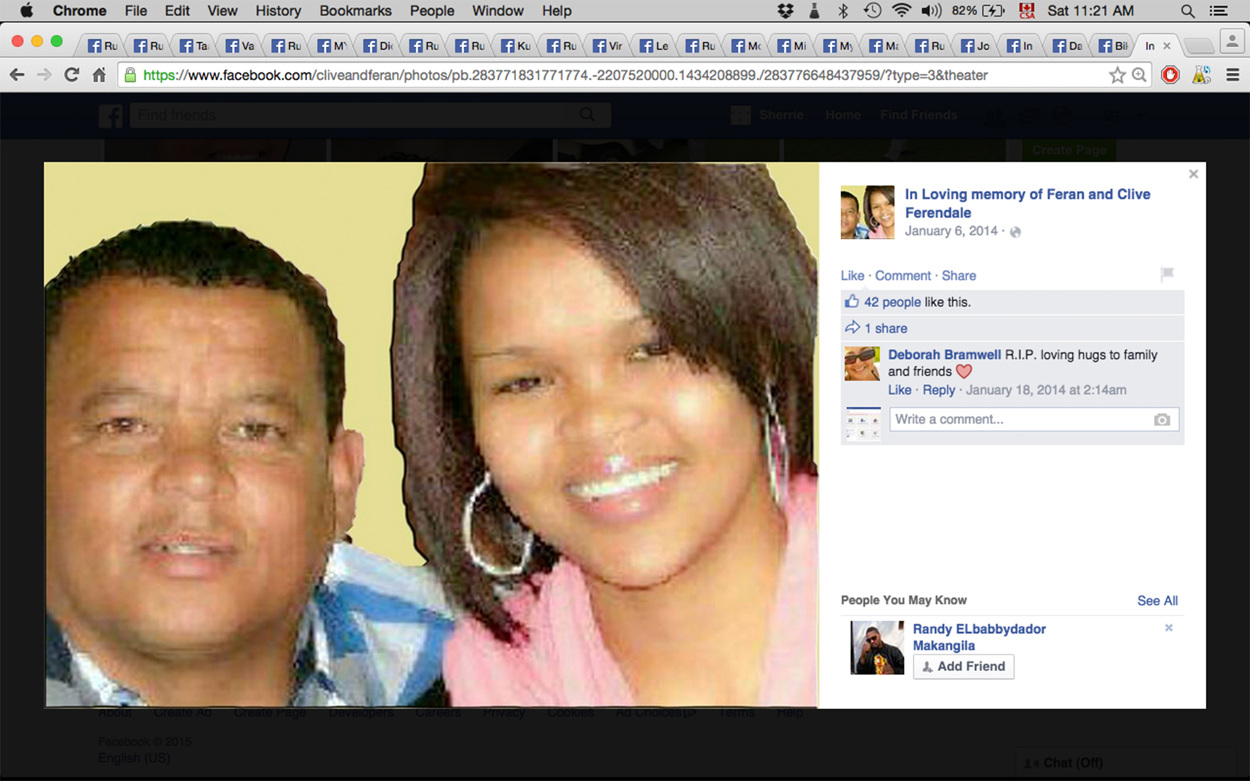
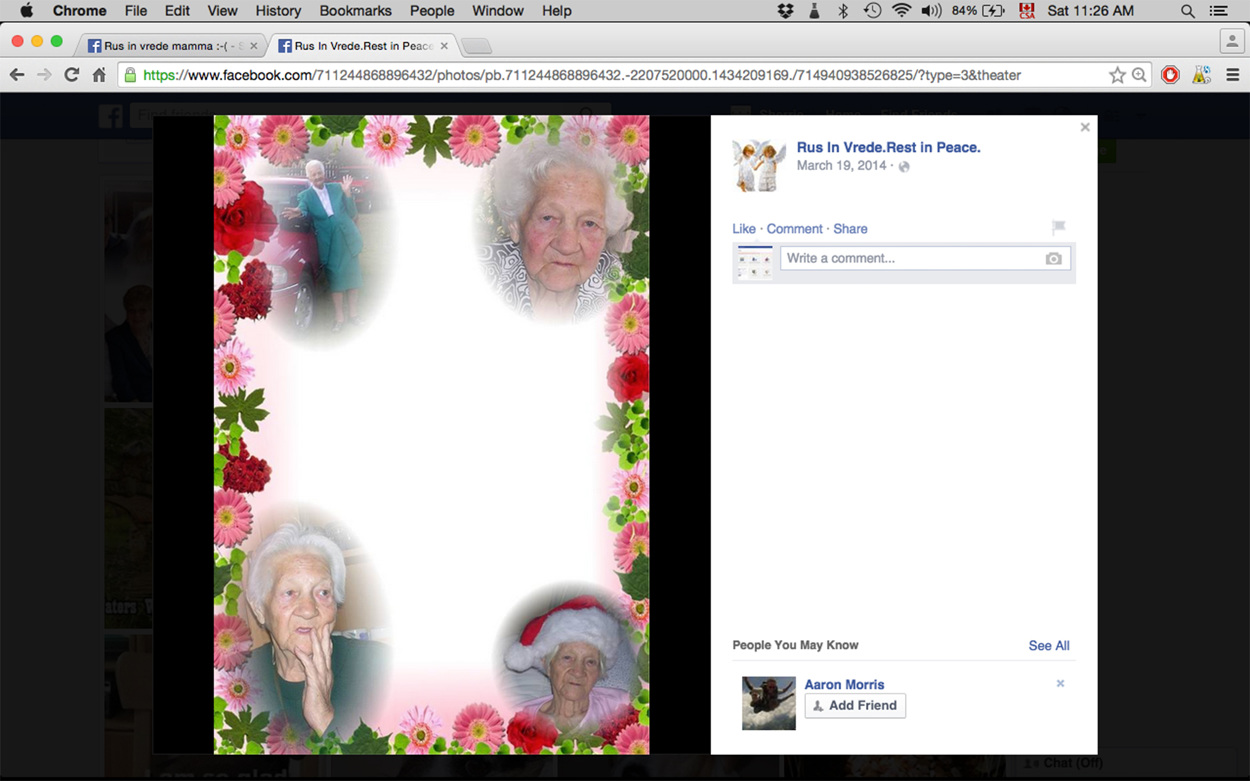
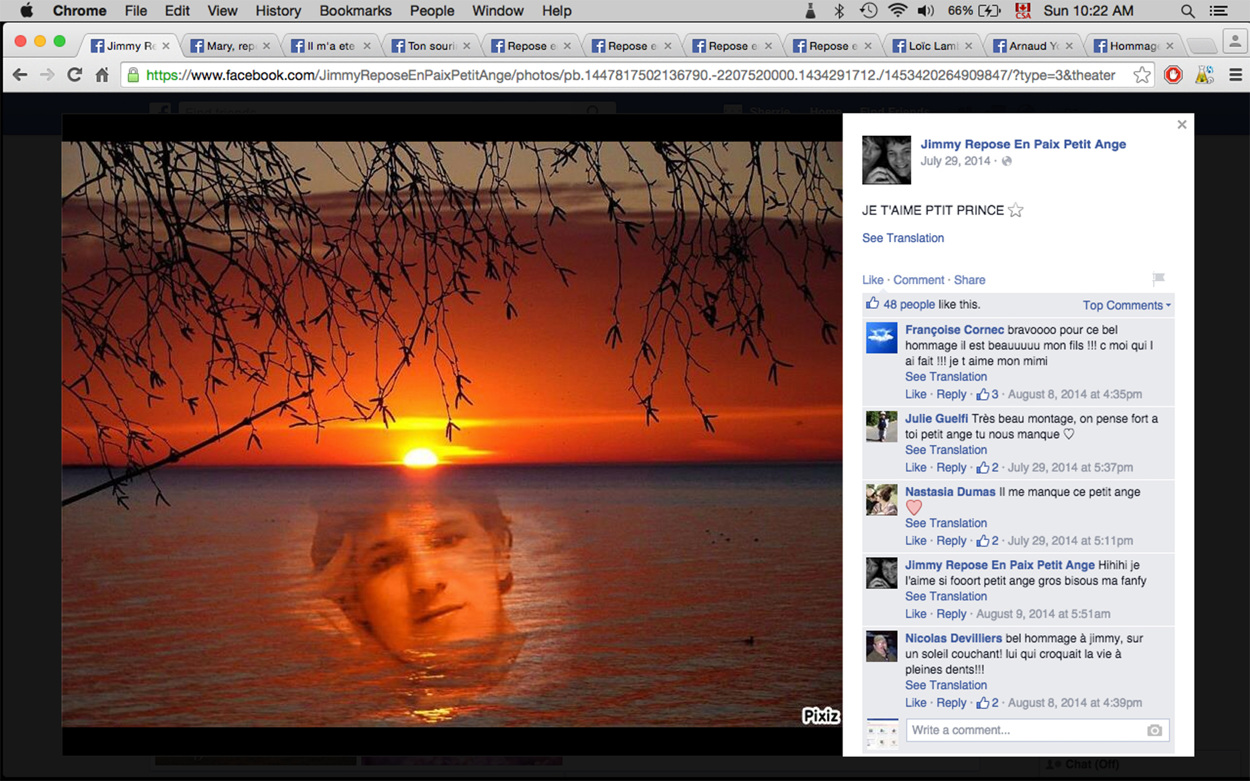
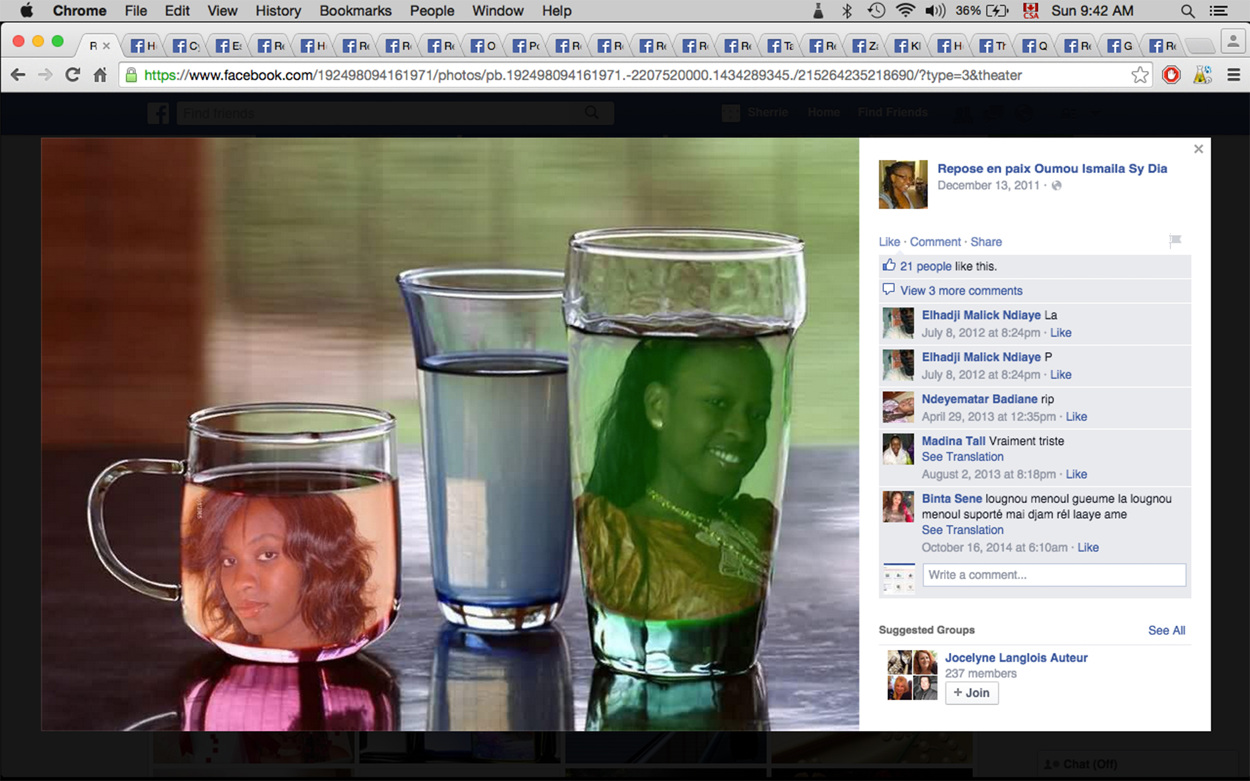
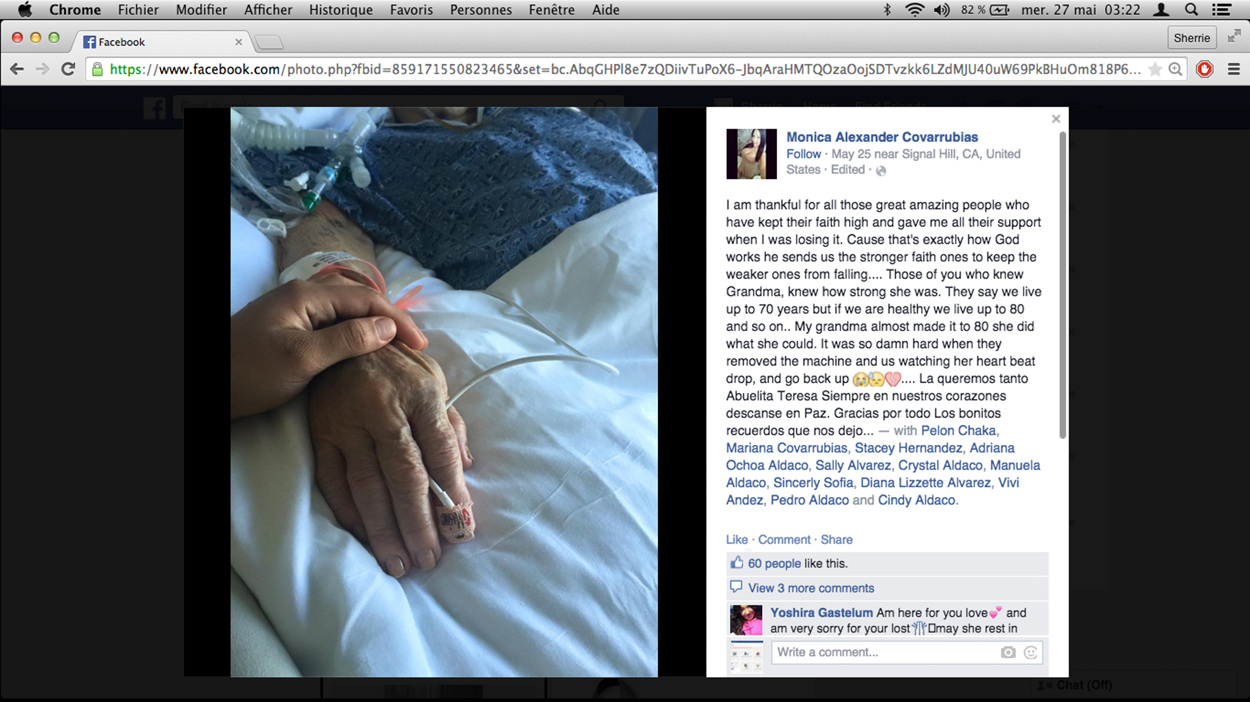
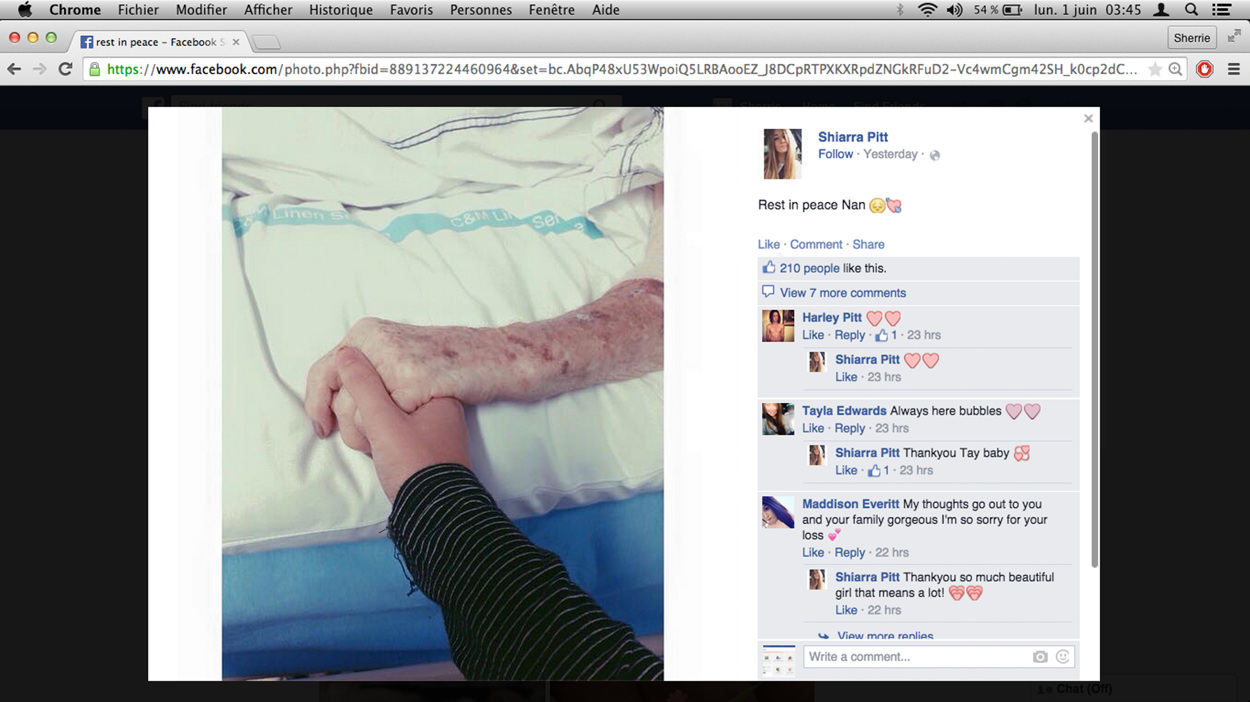
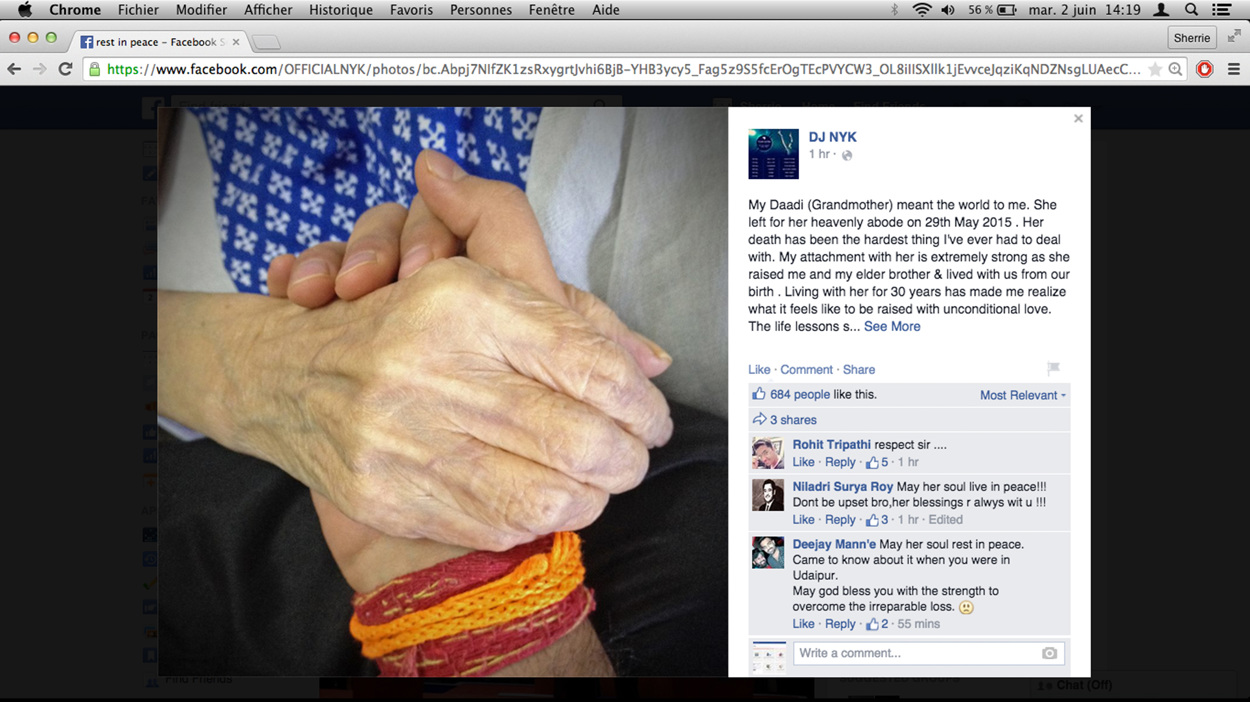
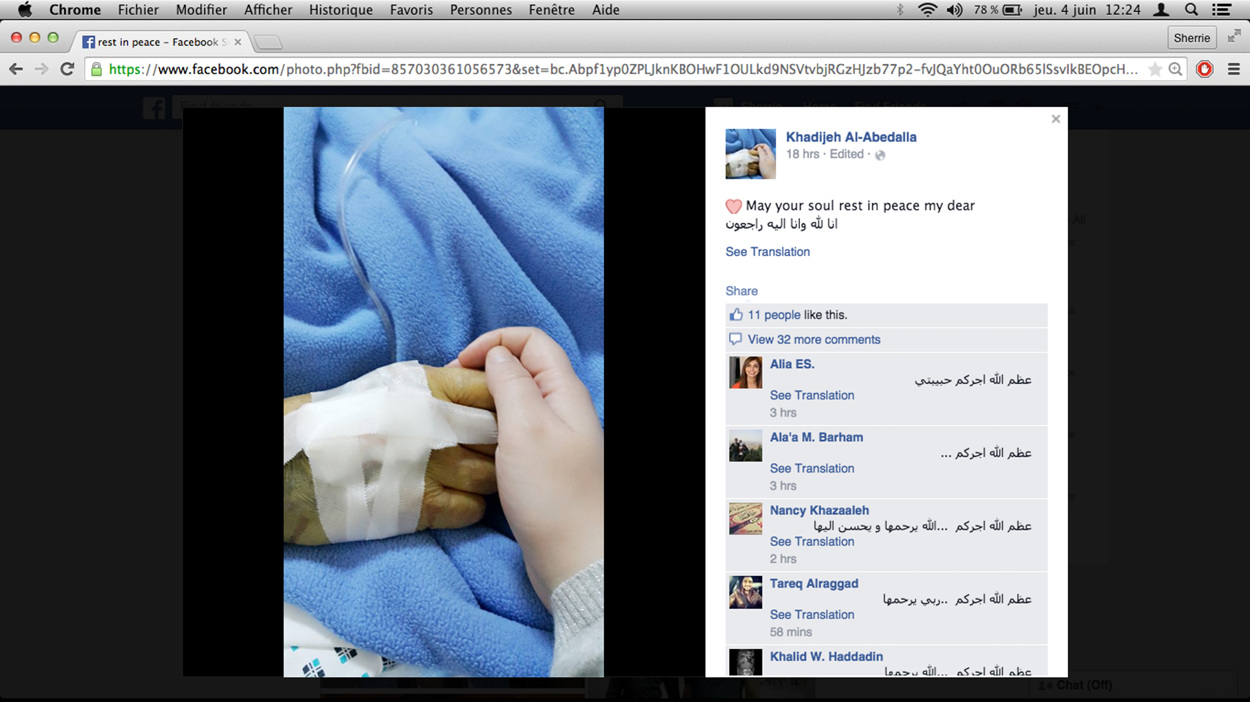

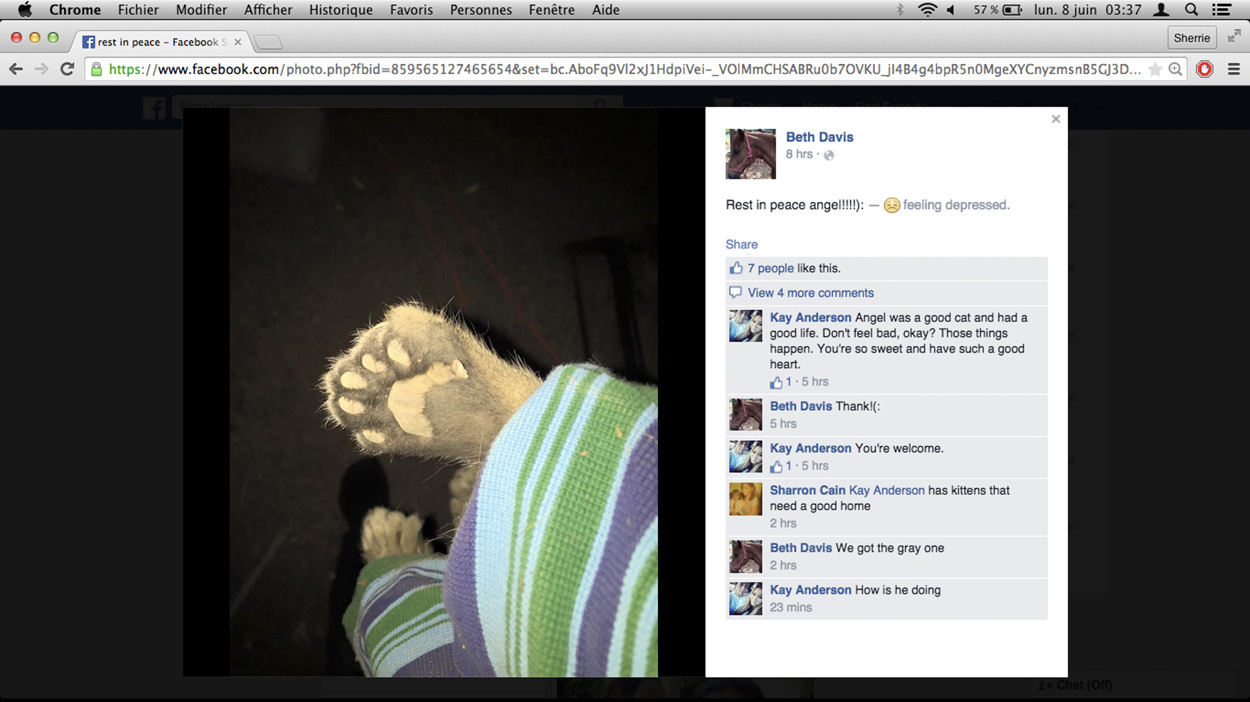
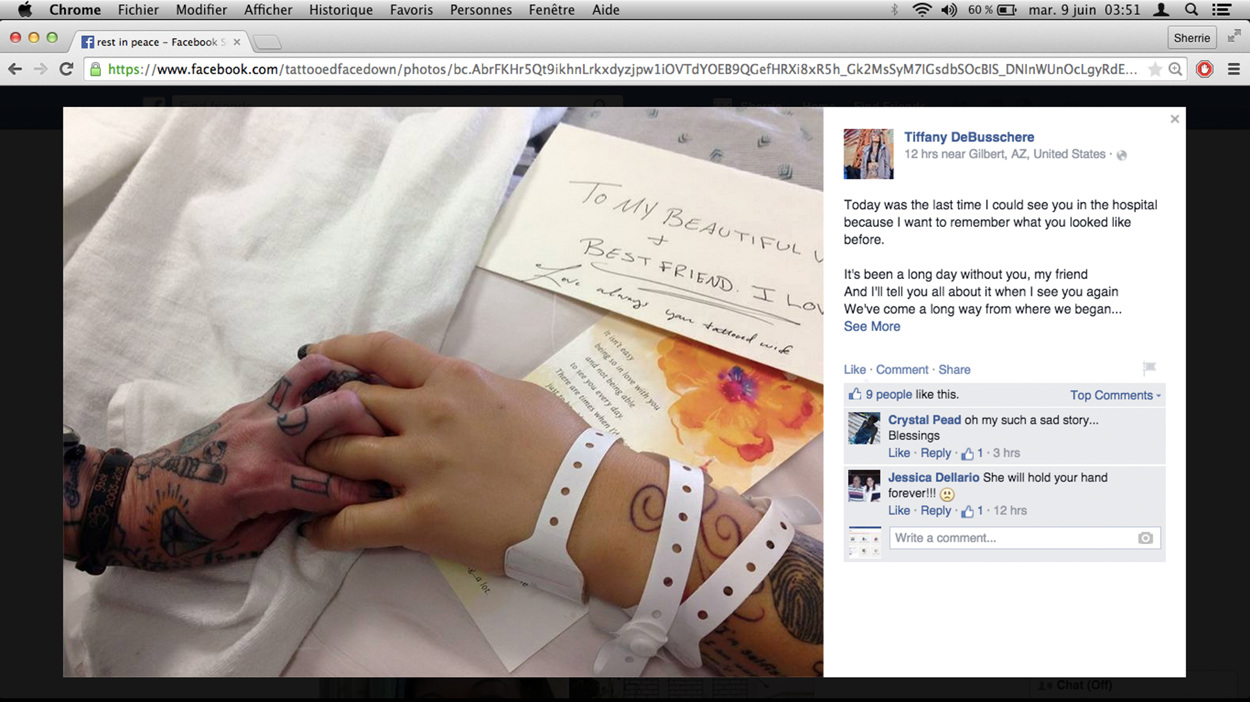

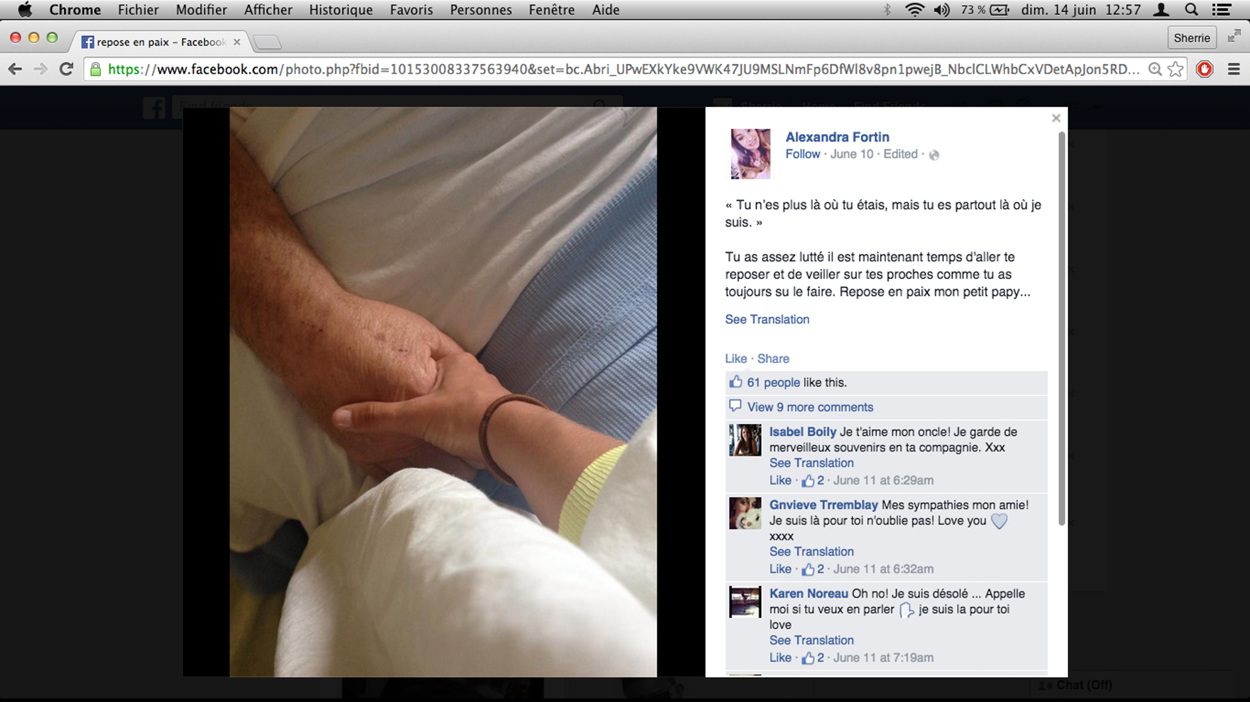
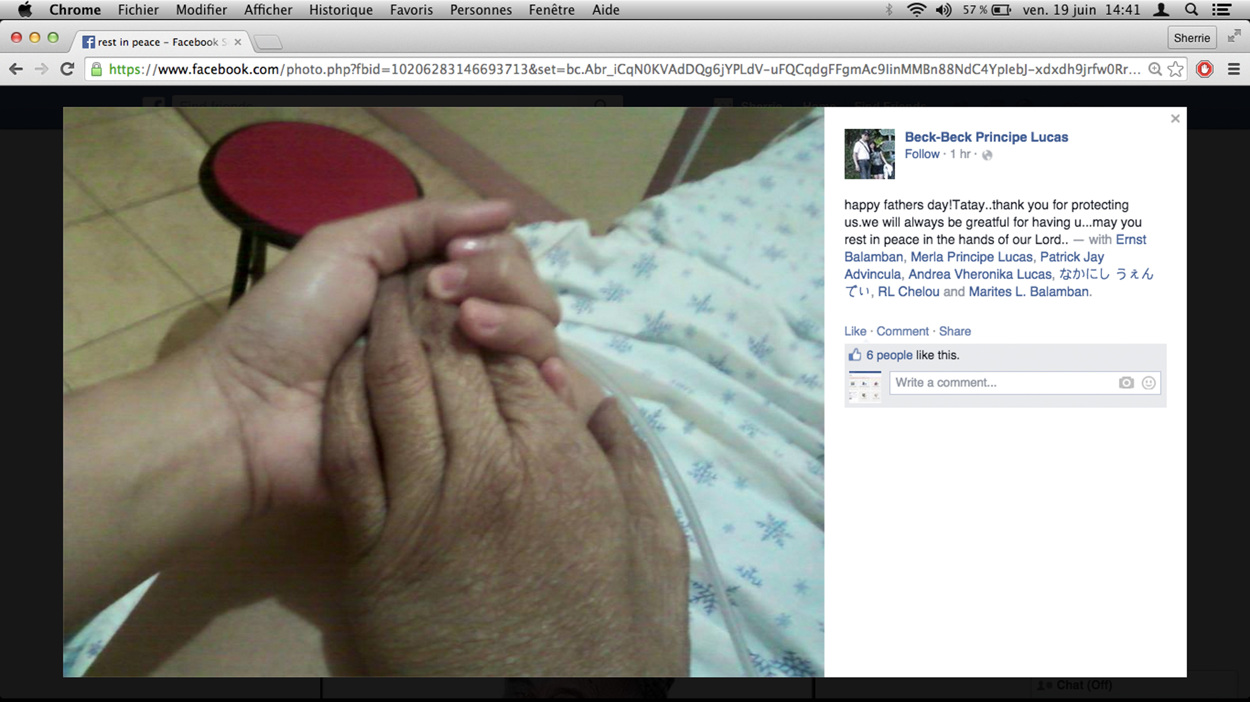
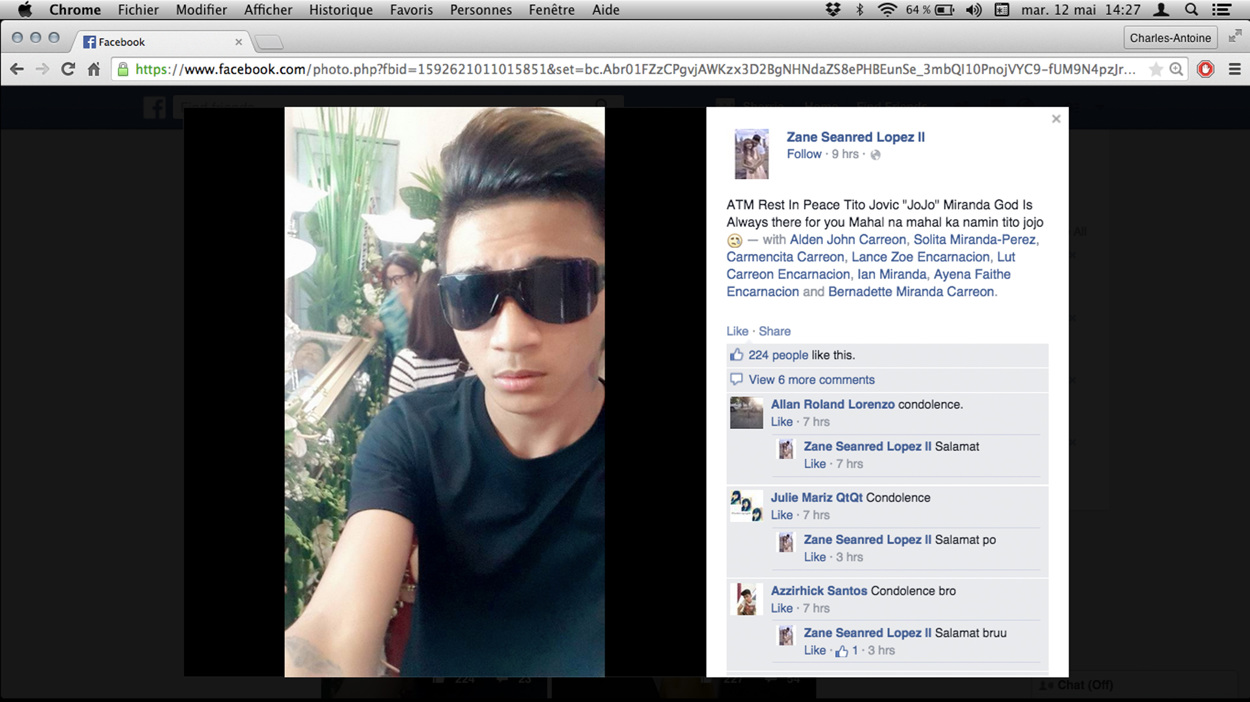
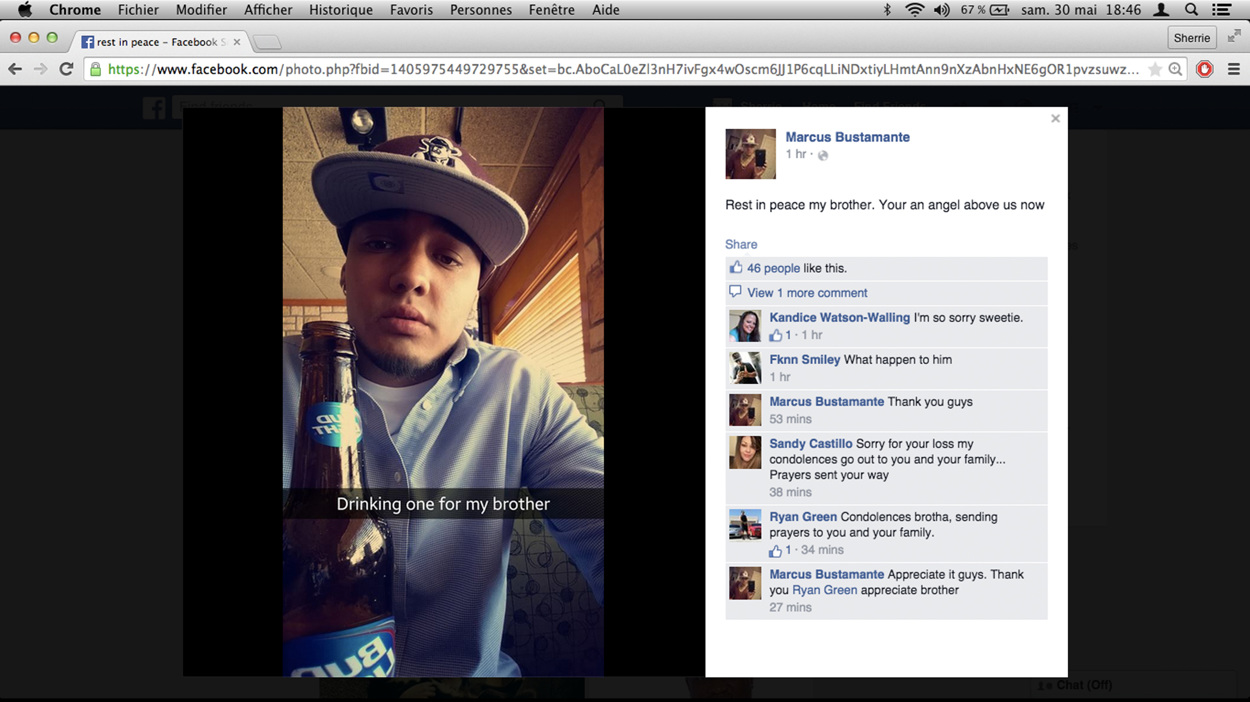
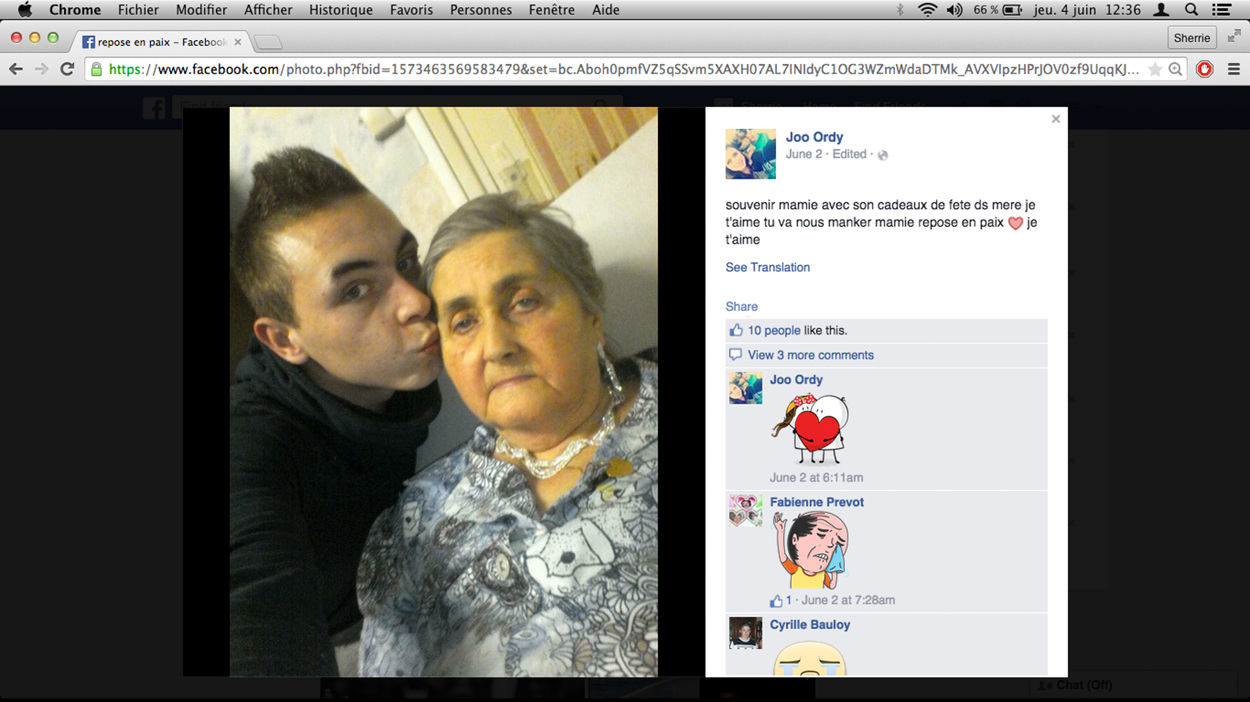
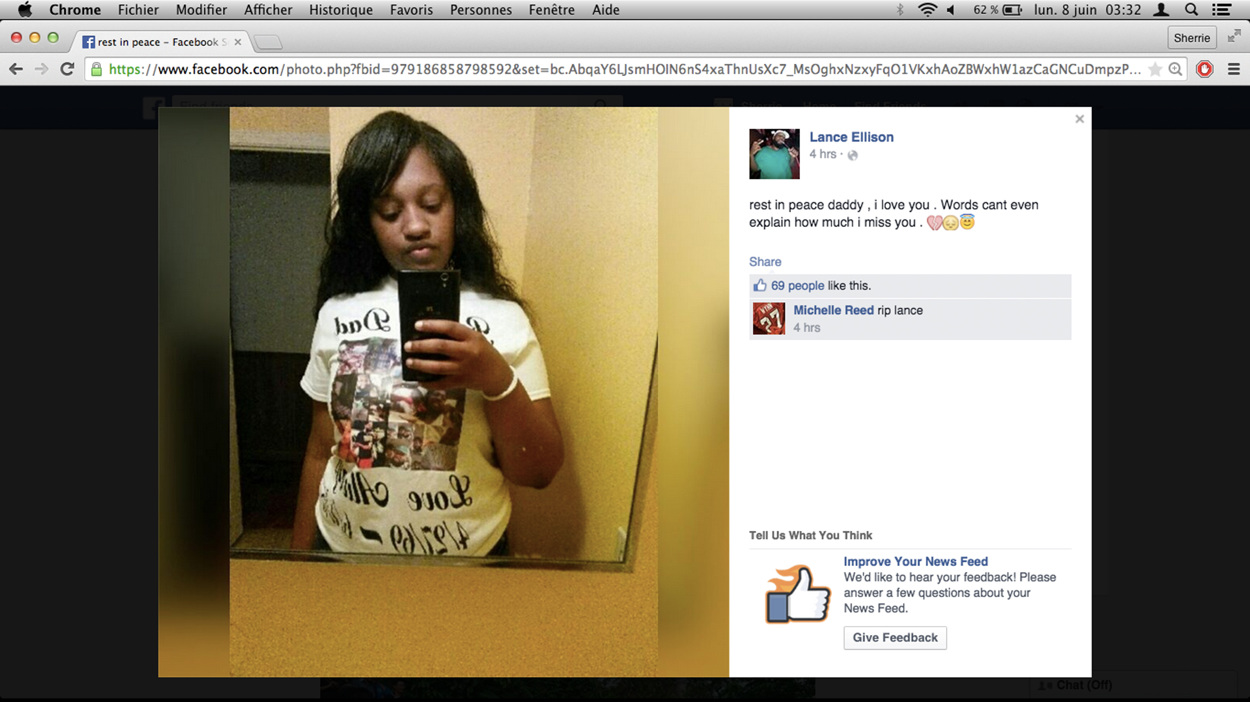
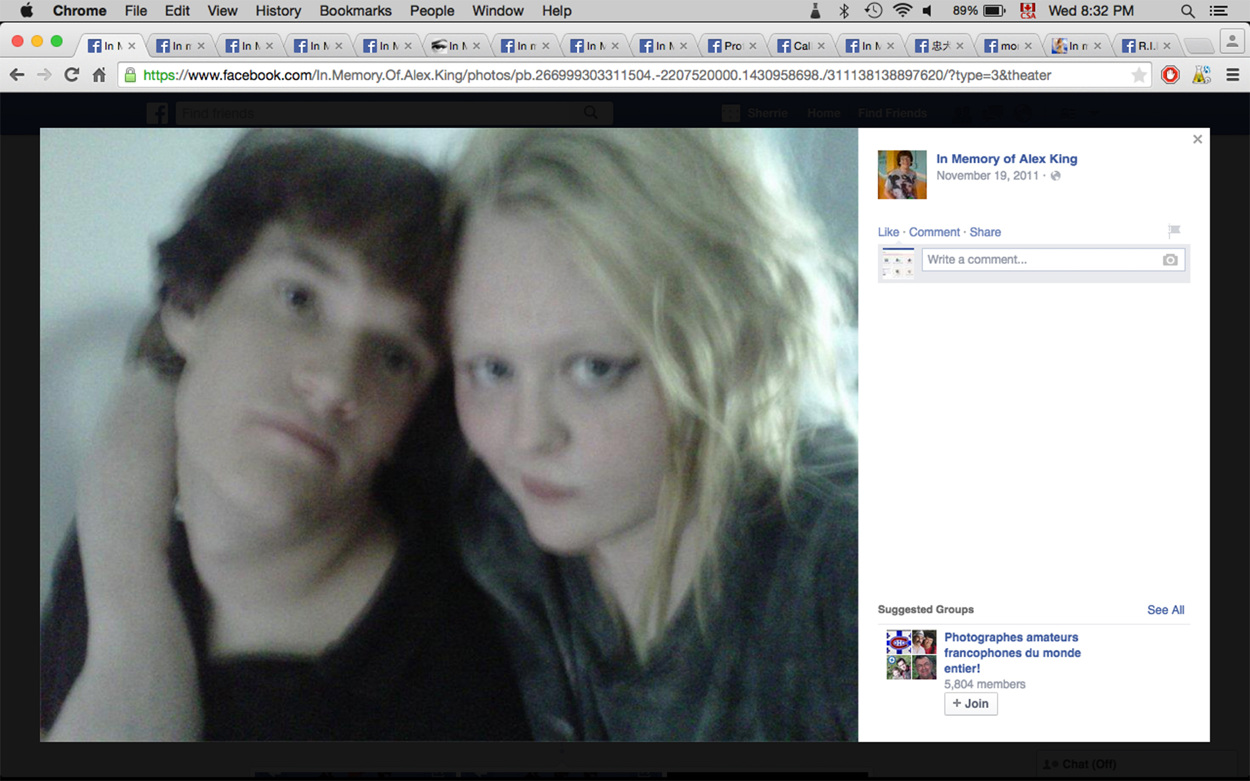
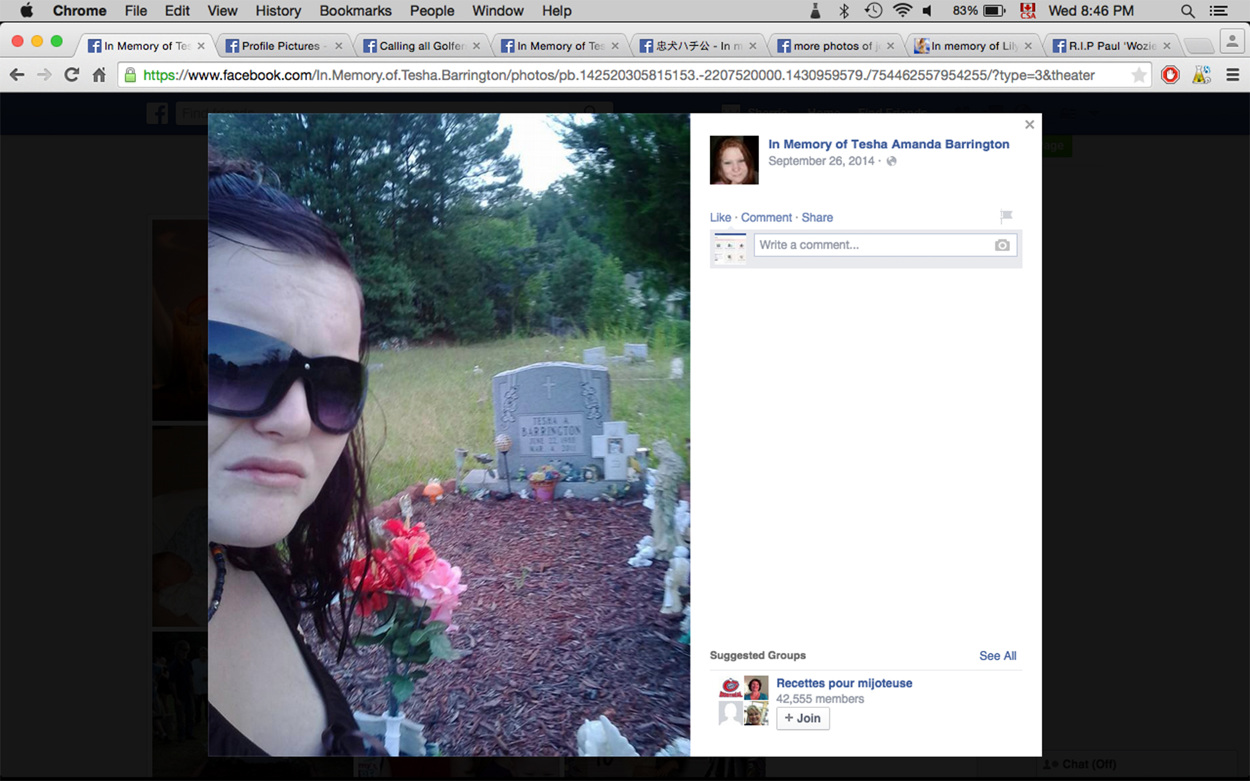
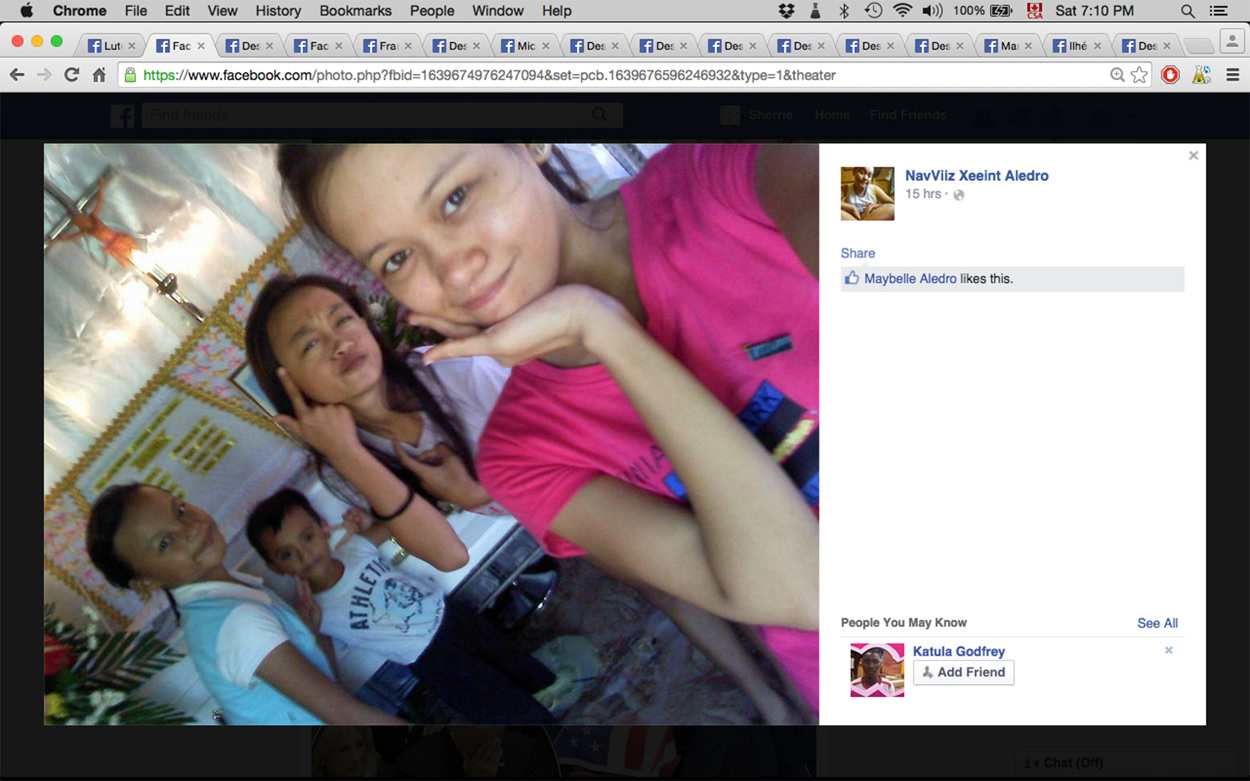
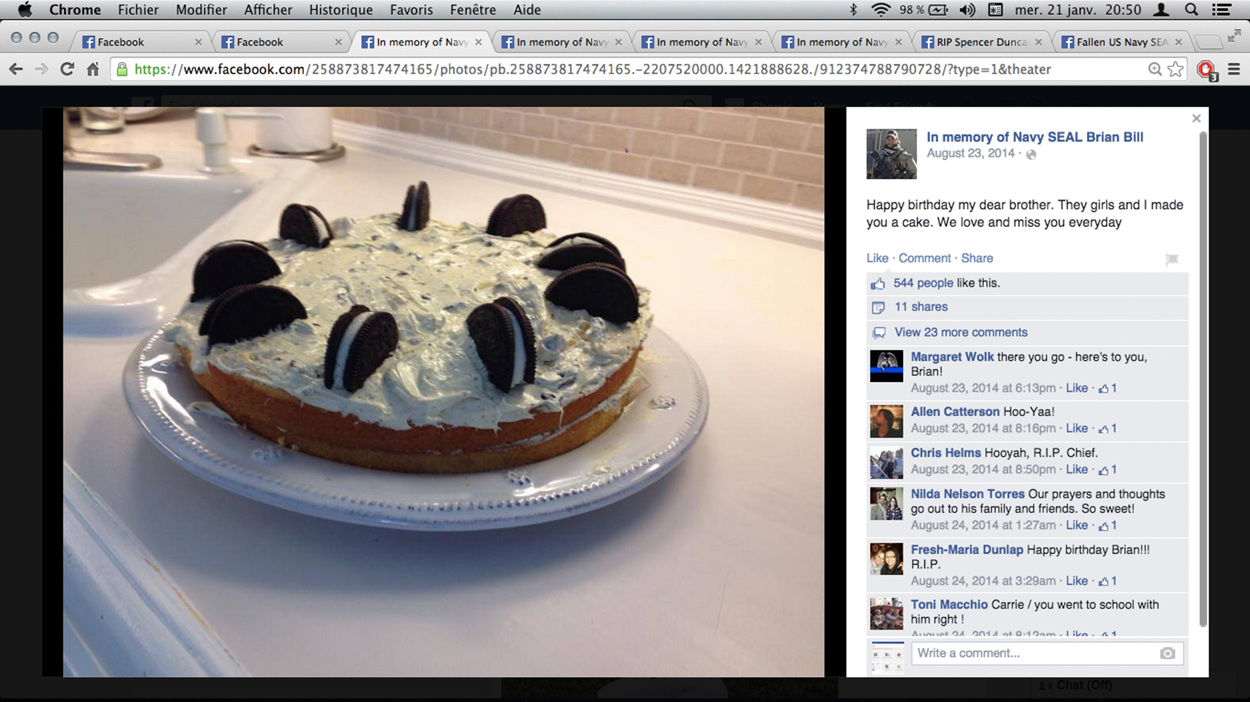
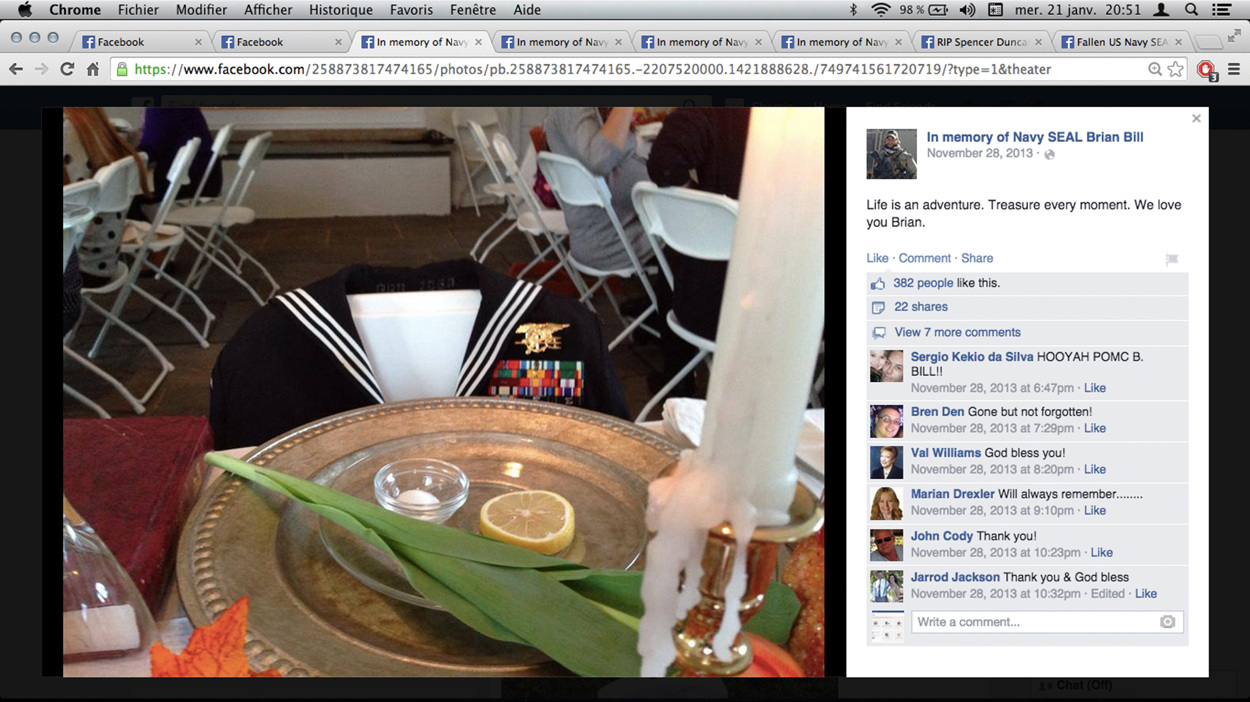
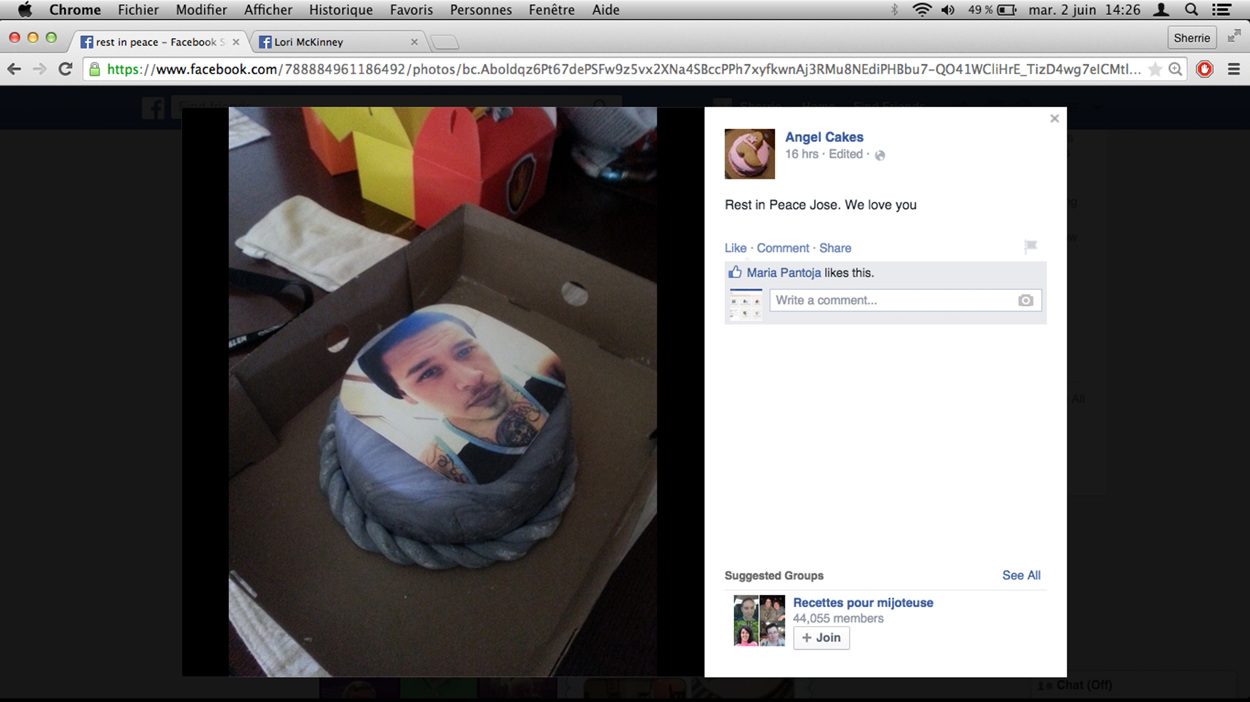
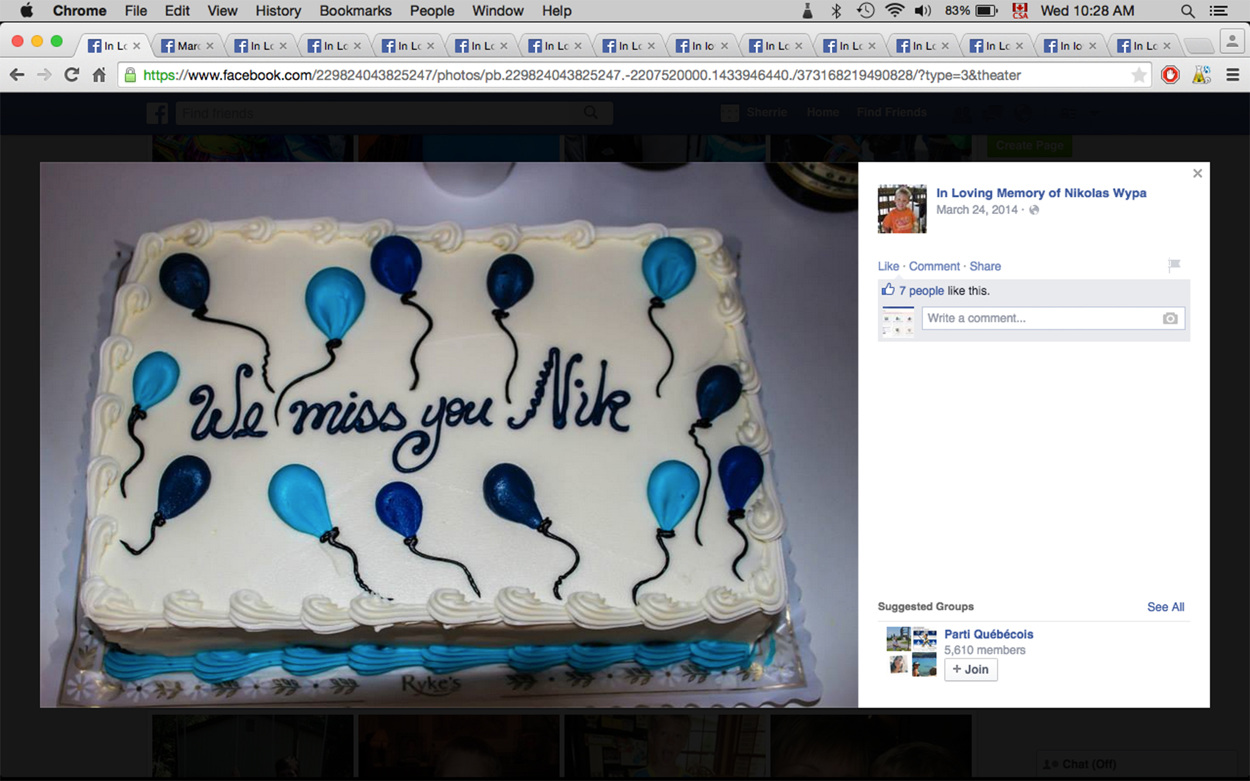
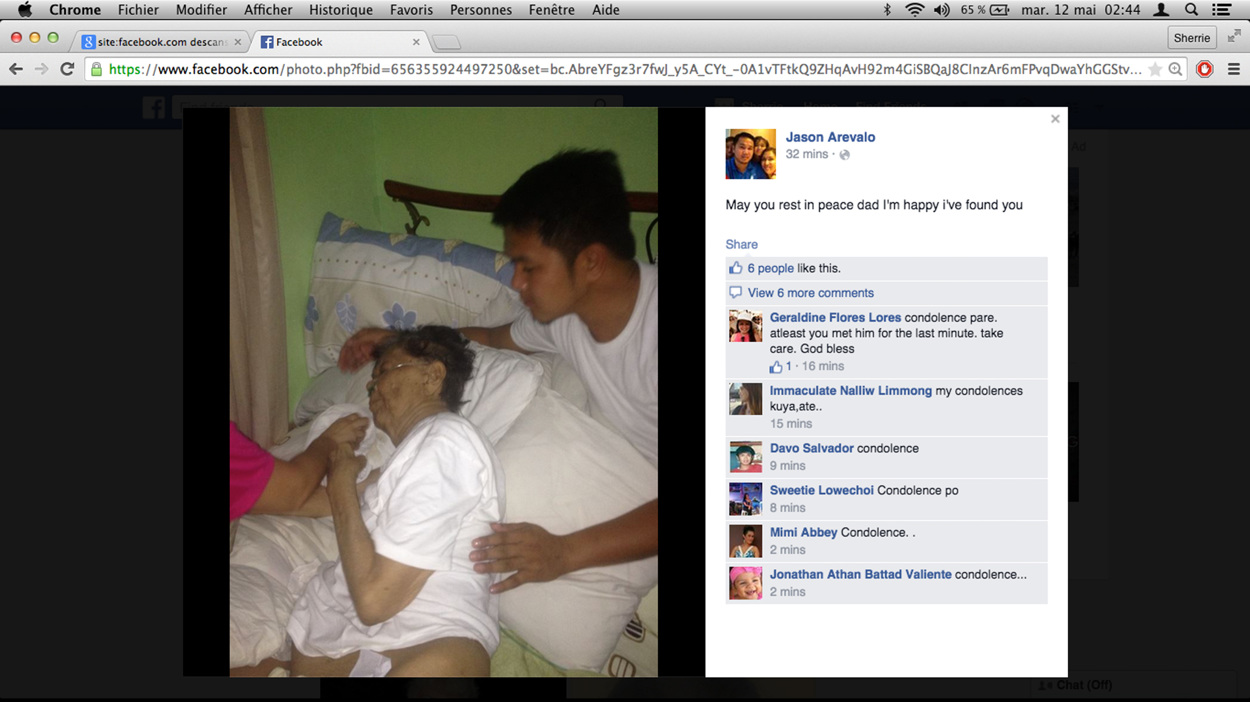
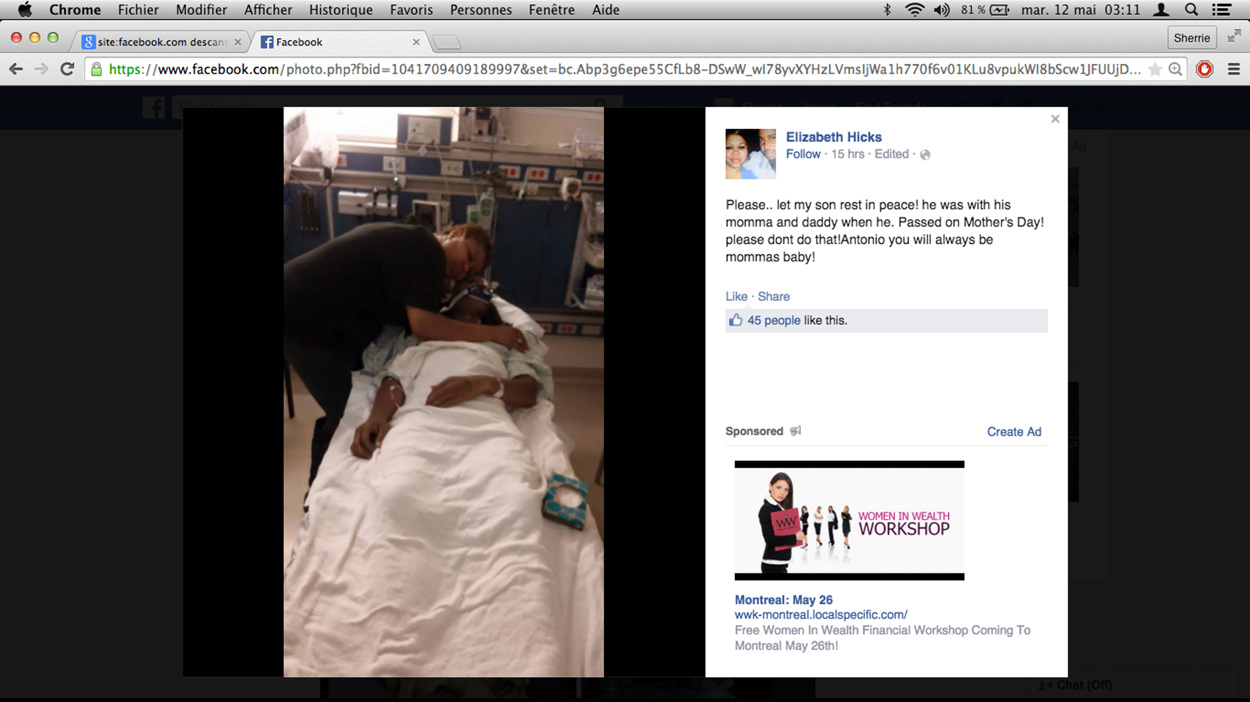
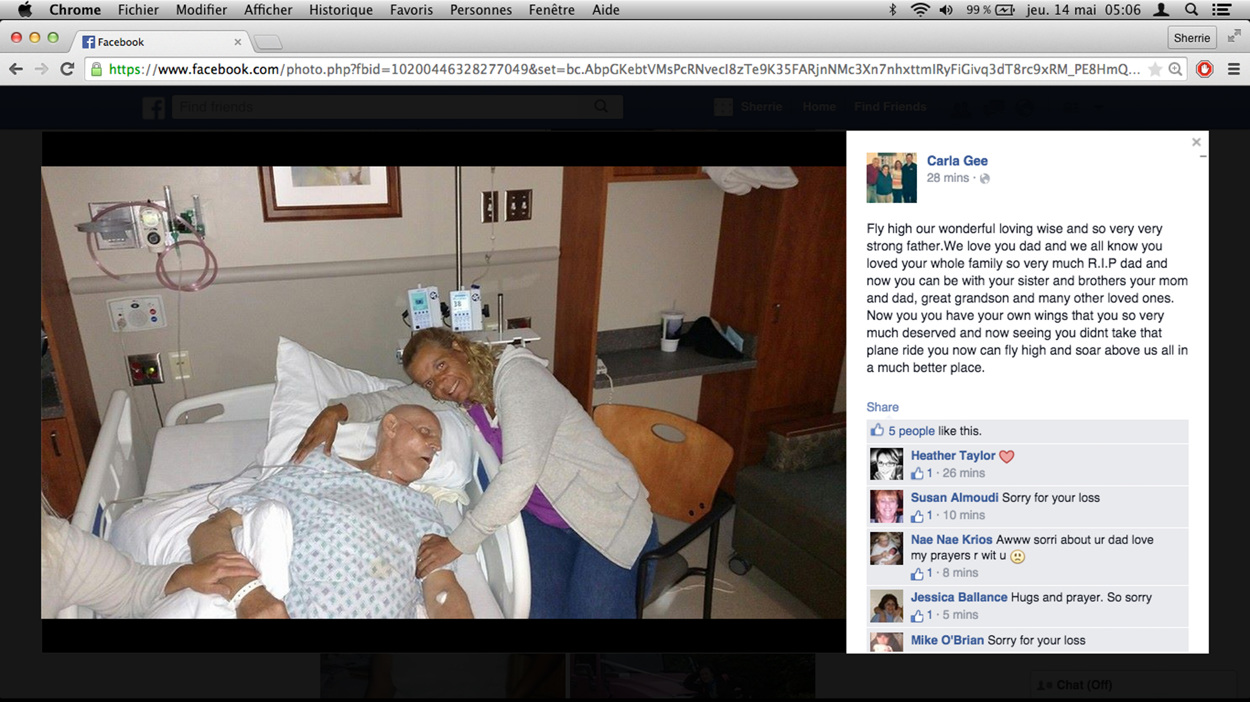
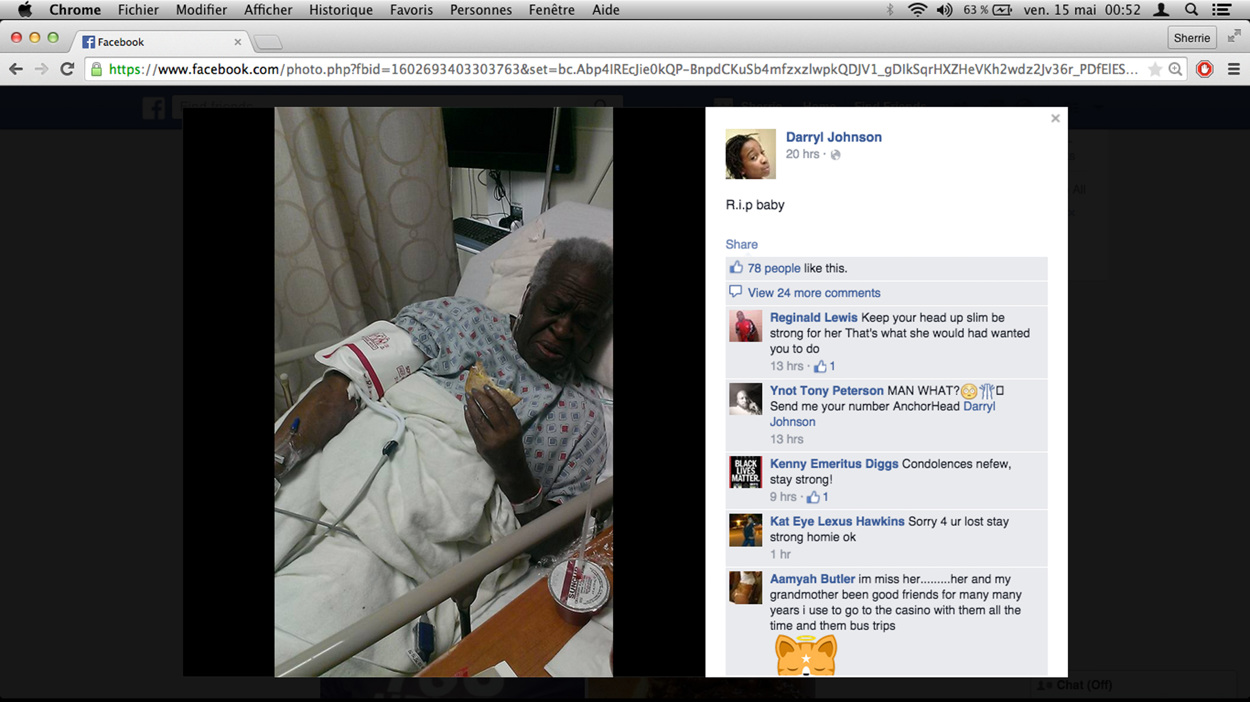
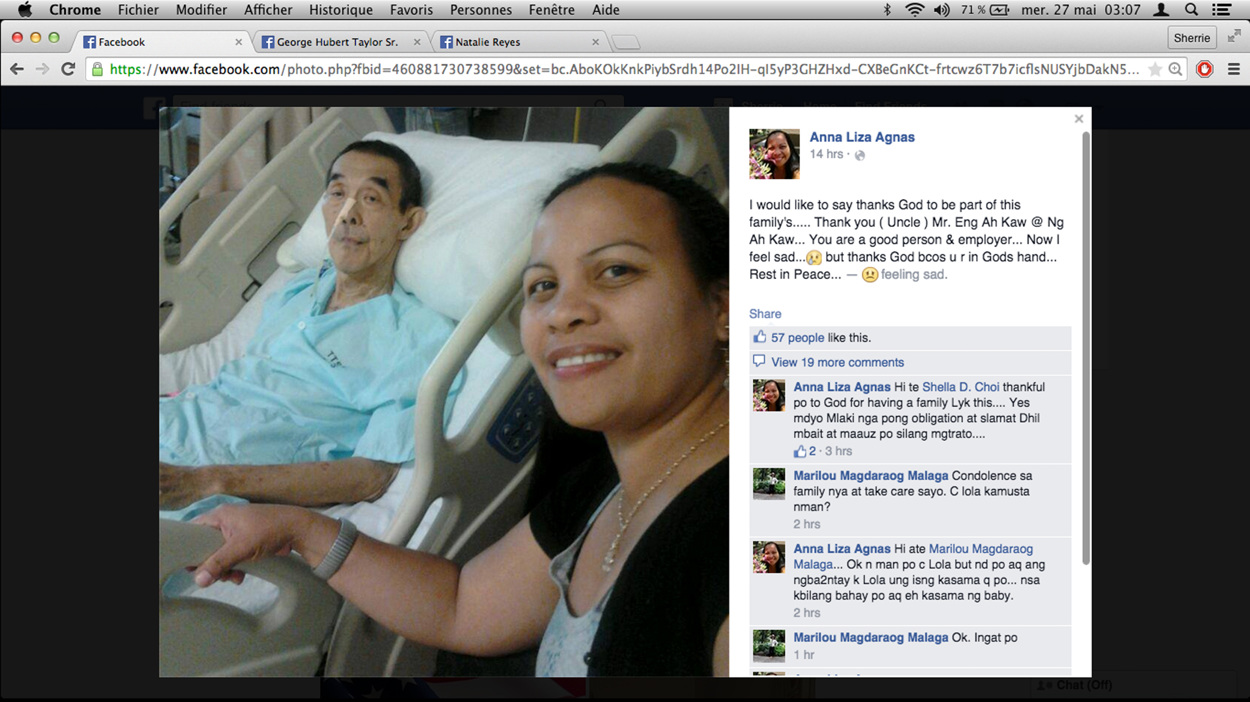
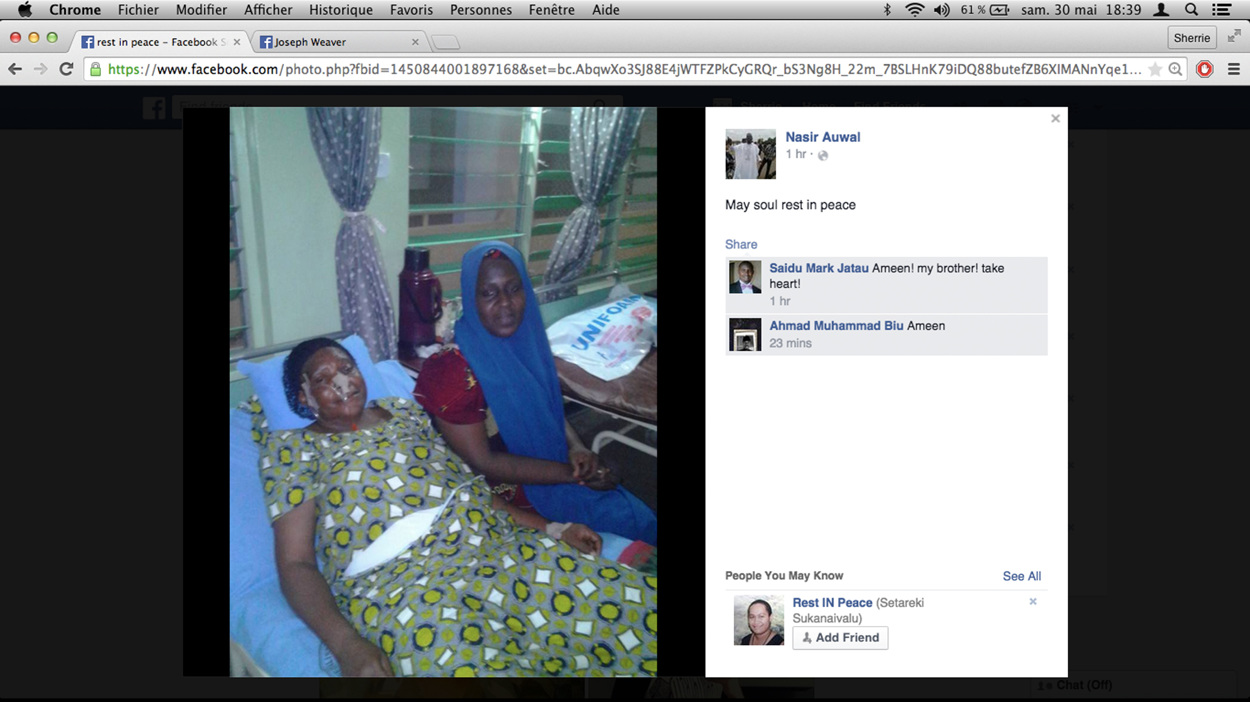
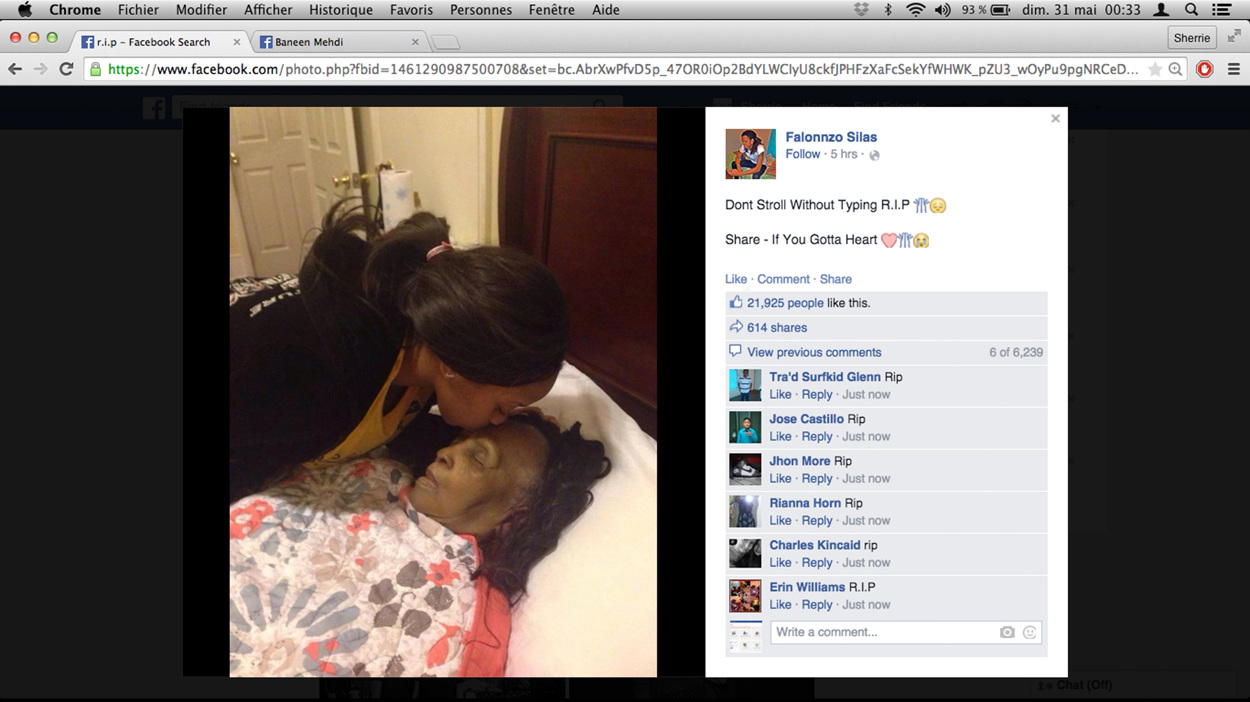


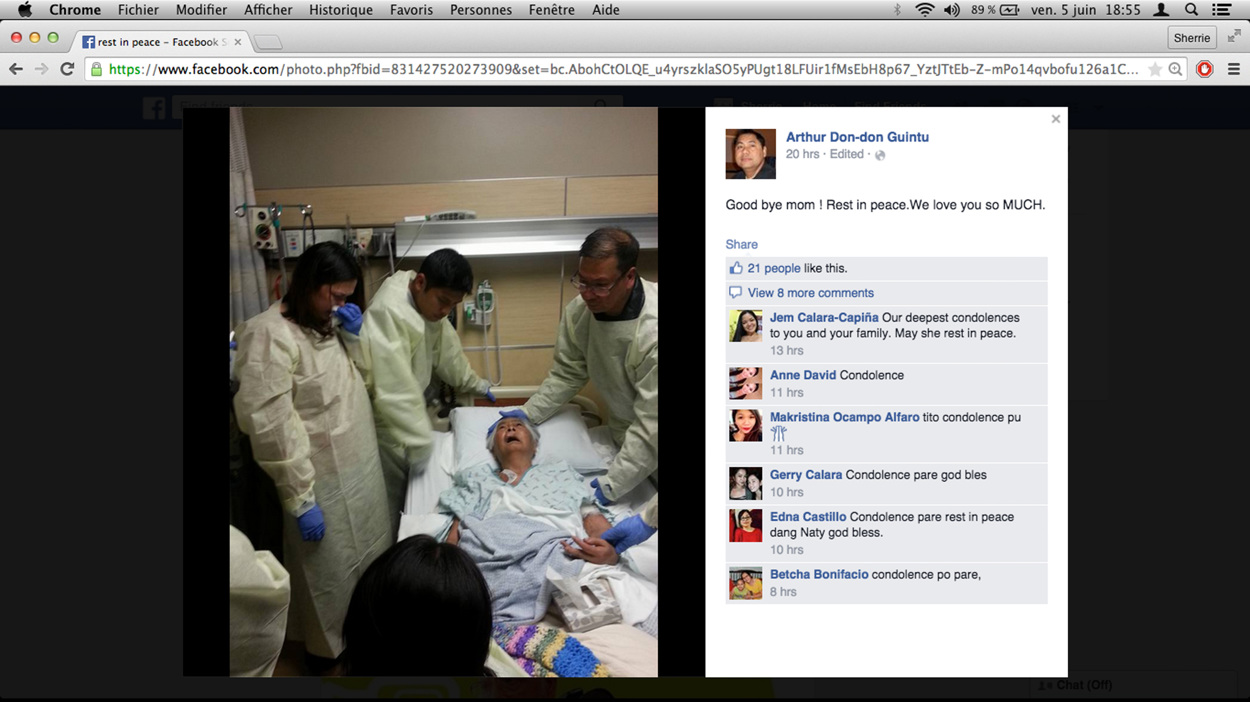

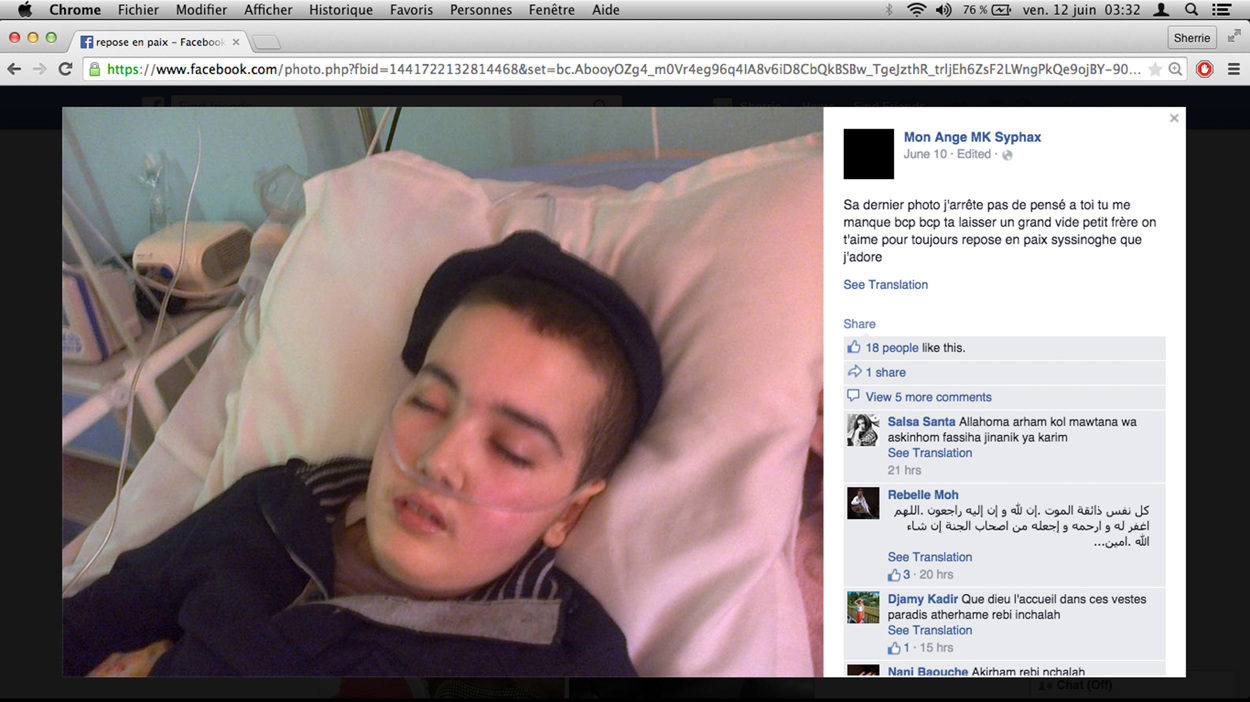


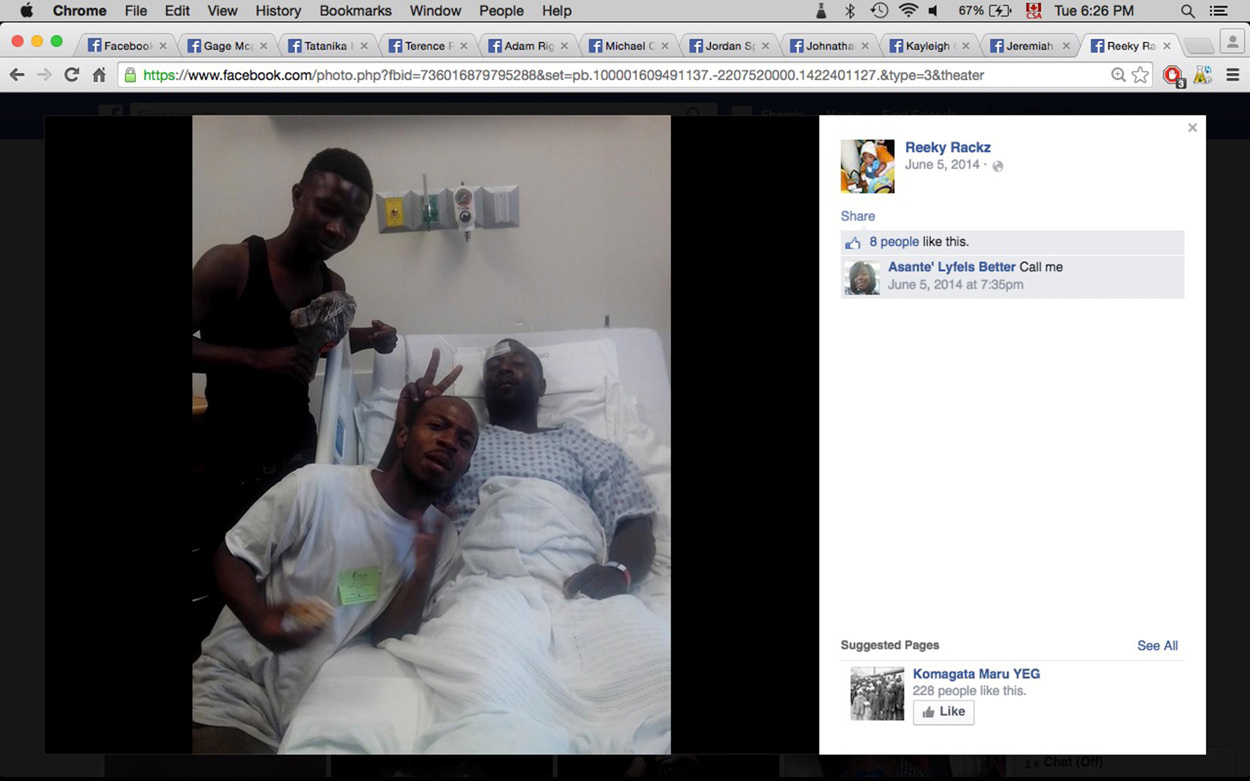
With Charles-Antoine Blais-Métivier
So many of our experiences are collected on social media that it is worth asking ourselves what will become of the huge quantity of personal data stored on such powerful servers after we die. The question brings to light both legal and moral considerations. The persistence of accounts of the deceased - Facebook, for example, does not allow profiles to be deleted, but gives them "commemorative" status - signifies that identity survives the death of the body. This concept of "virtual souls" therefore suggests the possibility of continued existence, or immortality, in digital media.
The After Faceb00k collective has developped IN LOVING MEMORY <3 (2015), an installation that pays tribute to this type of life after death and examines how grief is dealt with in the virtual world. In the eerie simulation of a cemetry with its graves, the headstones and funerary monuments are replaced with supposed mega-servers, which store every last bit of detailed information pertaining to our personalities. The screens show thousands of photos from memorial pages - images taken at funerals parlours and ceremonies to remember the deceased - constituting residual symbols that enable us to "keep in touch" with a given user who has passed away.
Joan Fontcuberta, The post-photographic condition, Kerber photo art, 2015.
So many of our experiences are collected on social media that it is worth asking ourselves what will become of the huge quantity of personal data stored on such powerful servers after we die. The question brings to light both legal and moral considerations. The persistence of accounts of the deceased - Facebook, for example, does not allow profiles to be deleted, but gives them "commemorative" status - signifies that identity survives the death of the body. This concept of "virtual souls" therefore suggests the possibility of continued existence, or immortality, in digital media.
The After Faceb00k collective has developped IN LOVING MEMORY <3 (2015), an installation that pays tribute to this type of life after death and examines how grief is dealt with in the virtual world. In the eerie simulation of a cemetry with its graves, the headstones and funerary monuments are replaced with supposed mega-servers, which store every last bit of detailed information pertaining to our personalities. The screens show thousands of photos from memorial pages - images taken at funerals parlours and ceremonies to remember the deceased - constituting residual symbols that enable us to "keep in touch" with a given user who has passed away.
Joan Fontcuberta, The post-photographic condition, Kerber photo art, 2015.
Fractures
Films + video installation (2 channels)



With groupeepopee.net
The Groupe d’action en cinéma Épopée presents the films Insurgence and Rupture, in the form of an installation entitled Fractures. Insurgence addresses the great social mobilisation of 2012, which accompanied the student struggle for access to education, while Rupture is made up of interviews with students injured and criminalised during the same strike. While the demonstrators filmed in Insurgence have a pure corporeal presence – a diverse multitude, momentarily fused in a stasis of political action – the students and activists interviewed in Rupture, despite their on-screen presence, are pure speech. Their faces, filmed in close-up against a neutral background, become the means to convey ideas before anything else.
Groupe Épopée, Manif d’art 7 résistance, 2014Distributed by Videographe
The Groupe d’action en cinéma Épopée presents the films Insurgence and Rupture, in the form of an installation entitled Fractures. Insurgence addresses the great social mobilisation of 2012, which accompanied the student struggle for access to education, while Rupture is made up of interviews with students injured and criminalised during the same strike. While the demonstrators filmed in Insurgence have a pure corporeal presence – a diverse multitude, momentarily fused in a stasis of political action – the students and activists interviewed in Rupture, despite their on-screen presence, are pure speech. Their faces, filmed in close-up against a neutral background, become the means to convey ideas before anything else.
Groupe Épopée, Manif d’art 7 résistance, 2014Distributed by Videographe
After Faceb00k : world tour
Multimedia installations







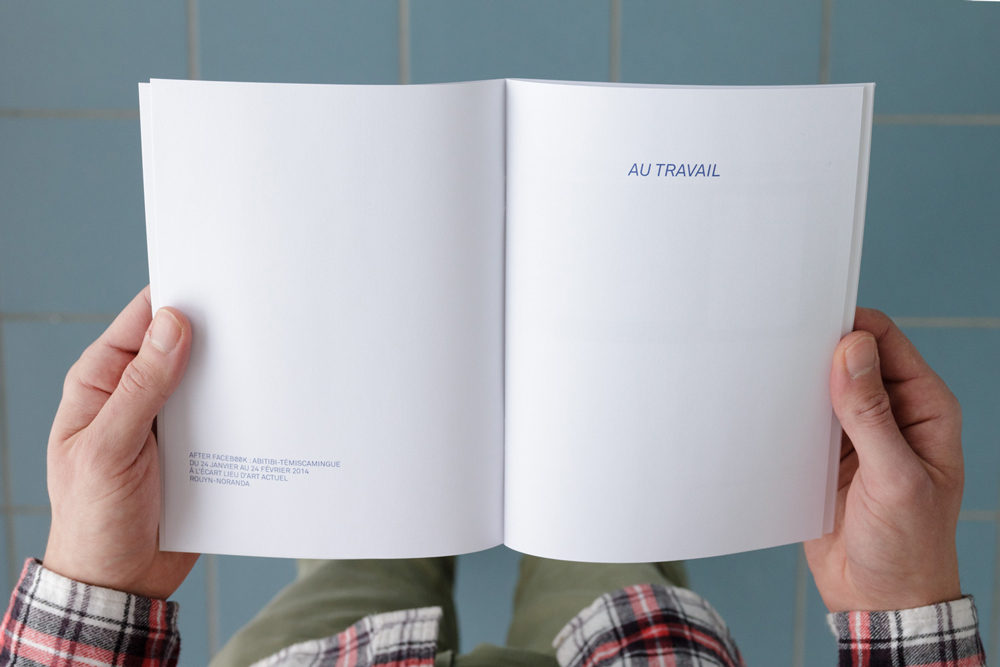
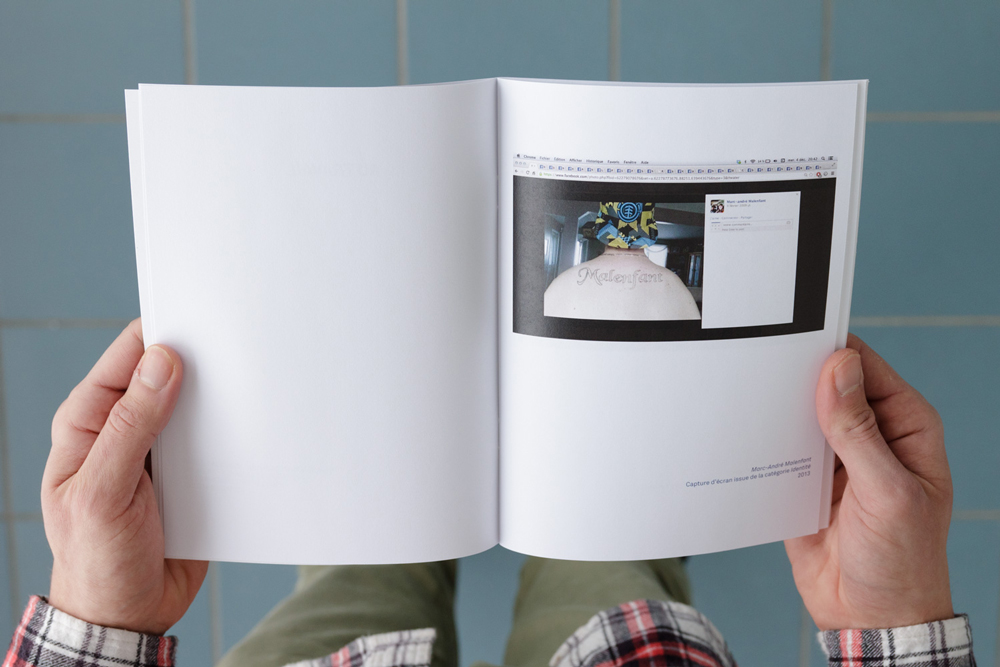



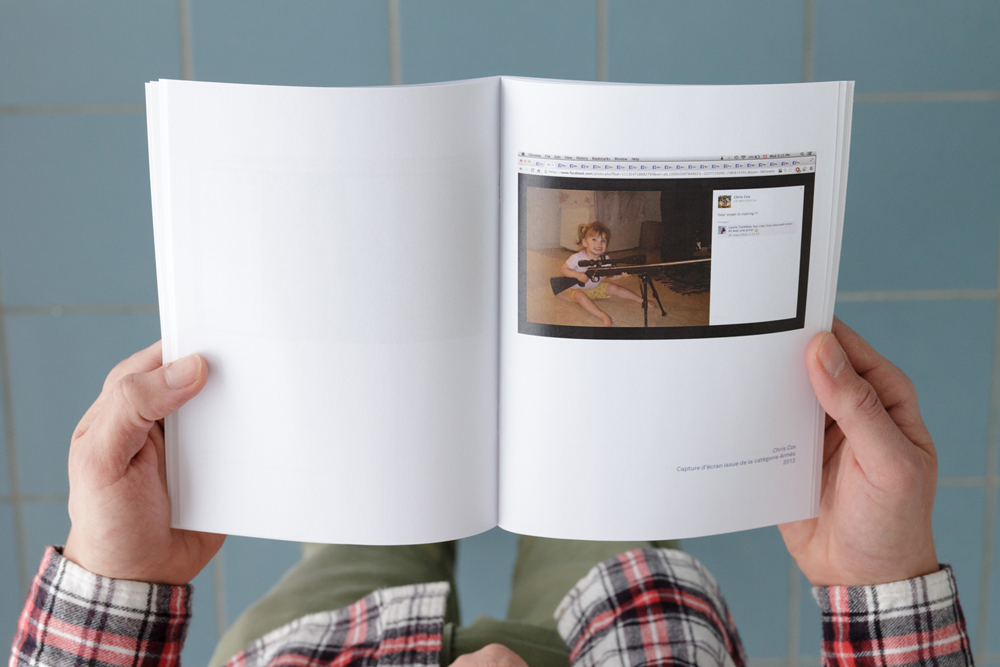

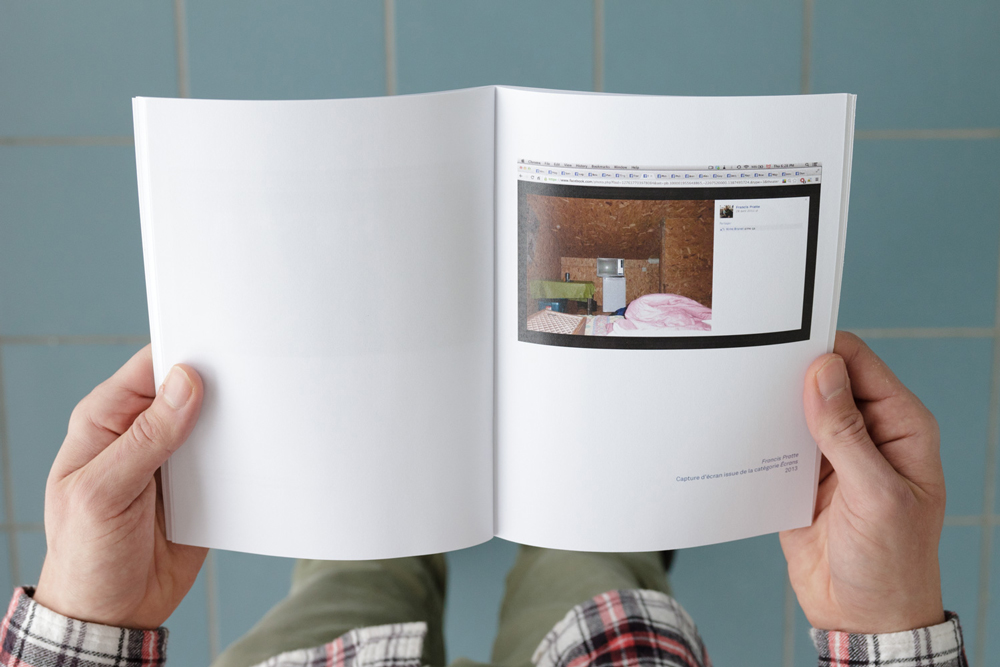
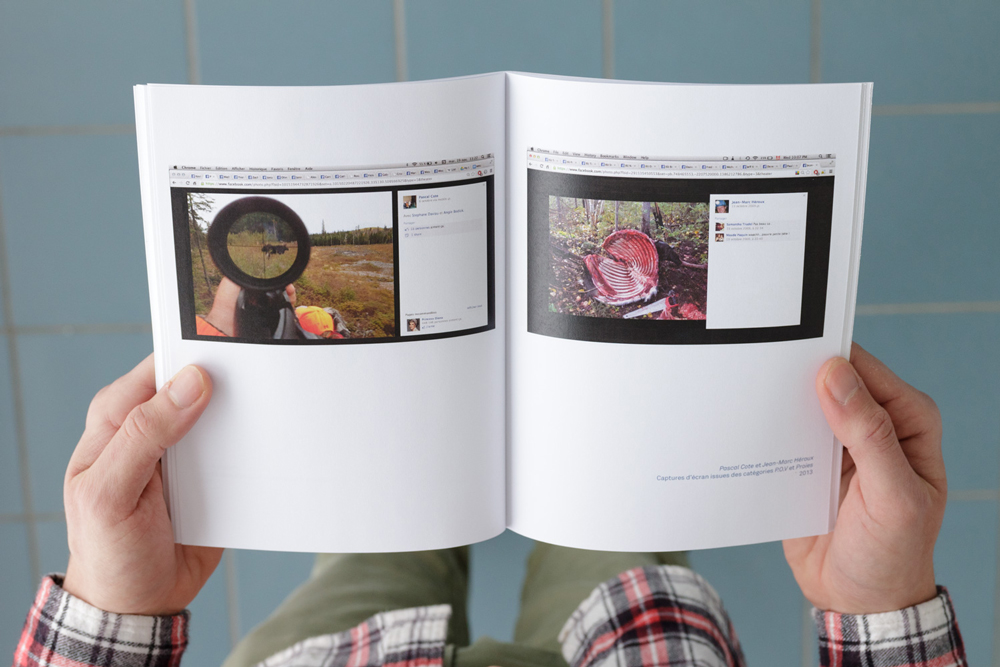


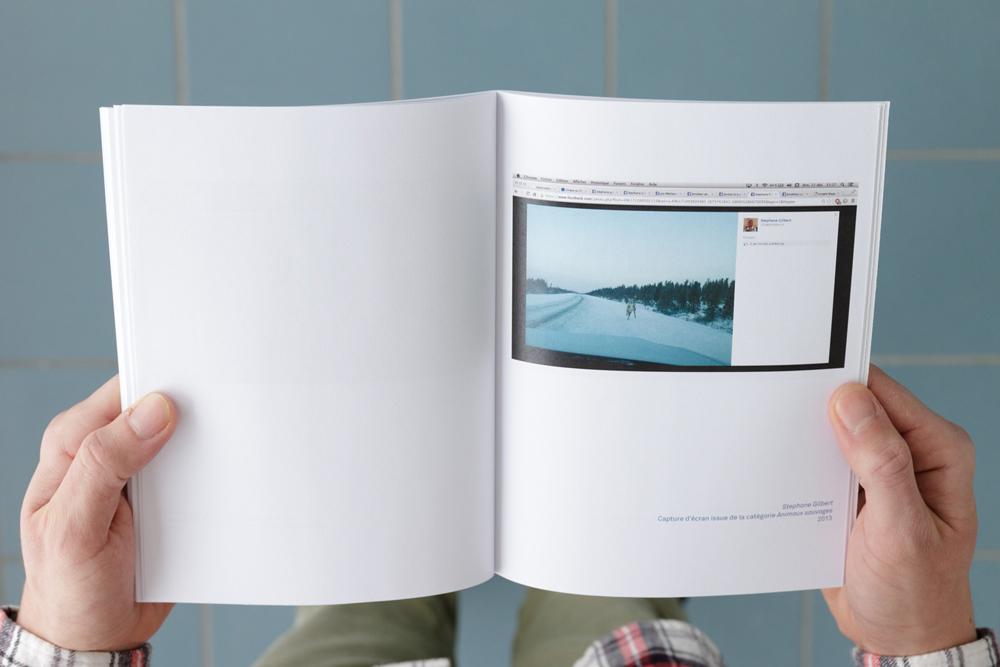
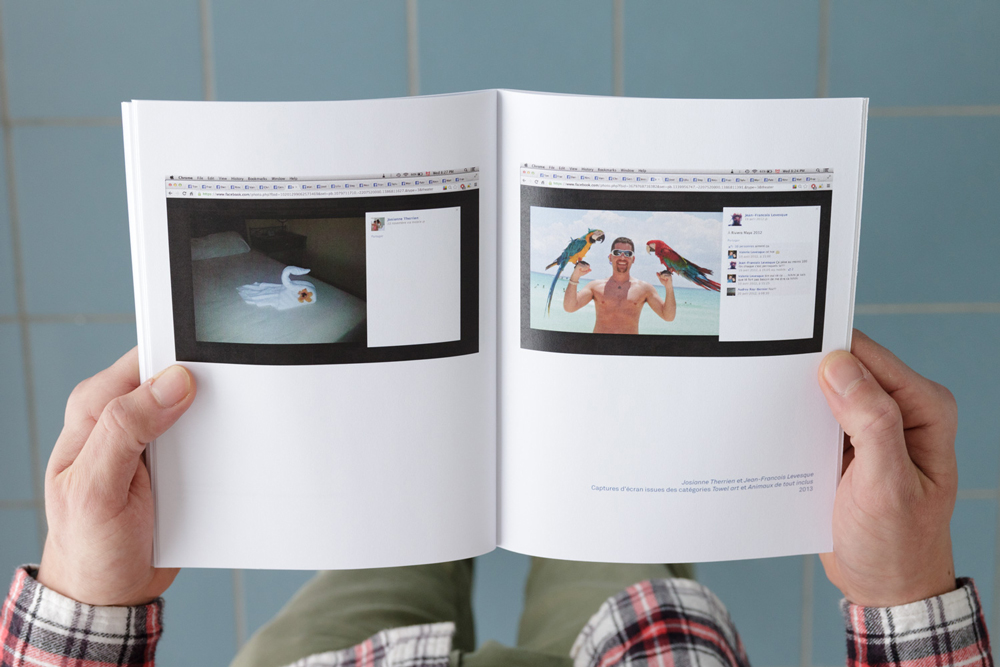

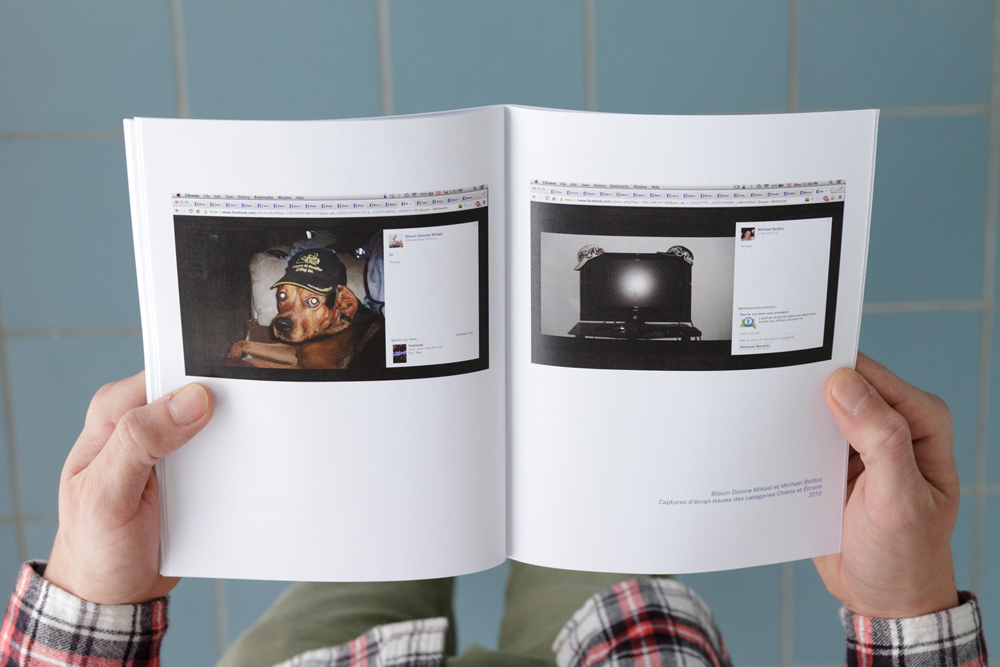
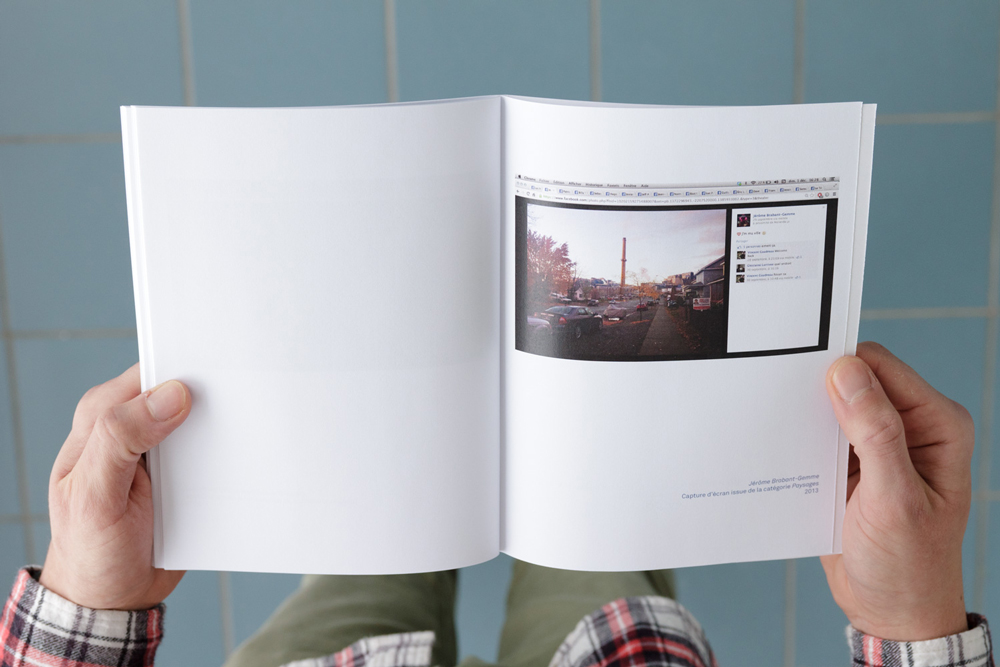

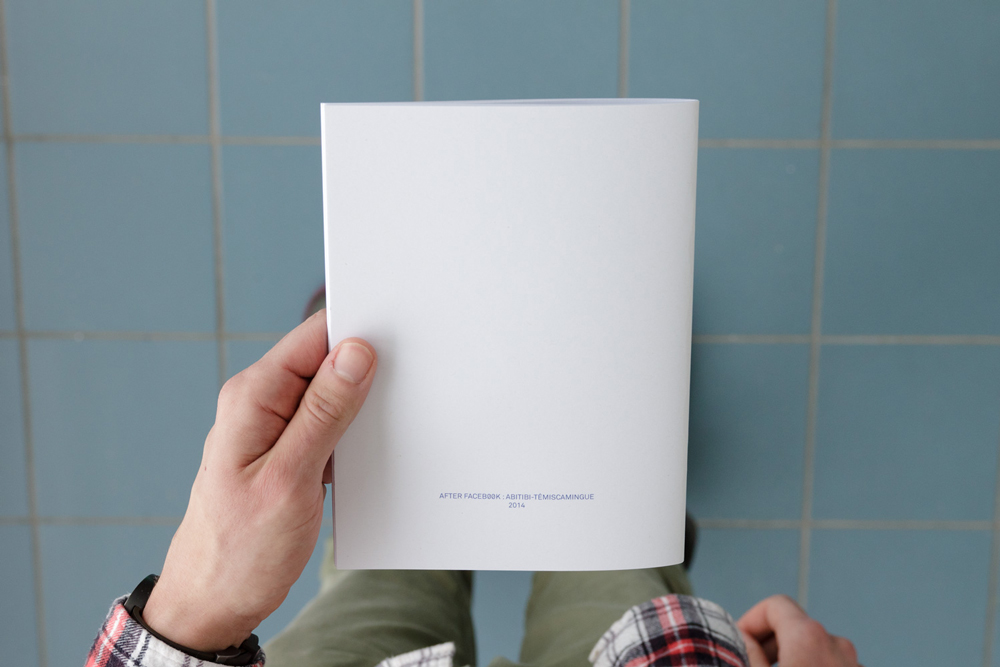
With Charles-Antoine Blais-Métivier
After Faceb00k is a project initiated in Montreal in 2012 by a group made up of two artist-researchers as part of a residency at the center of the current arts Skol. As the project's name suggests, it is about thinking of the social network as a historical object, doomed to disappear and which must be archived. Fascinated by the closeness and intimacy made available in the photographs shared on Facebook, the artists take images from "public" Facebook pages through the screenshot of a "friendless" profile forged for the occasion and then rearrange them. After Facebook's captures show the entire screen; we see the photograph shared in its environment, that is to say, the name of the individual who published the image, the metrics of appreciation, the comments, the URL address of the page where it was unearthed, the name of the web browser, the different open tabs, the date and time of the capture or even the battery level of the artists' laptops. Recurring themes on the project site first grouped these screenshots; then, specific themes were explored in greater depth and often well anchored in the region hosting the project during exhibitions. It, therefore, took different forms at the McCord Museum in 2016, and at the ARTsPLACE Gallery in Annapolis Royal in 2015, at Latitude 53 in Edmonton, at SetUp Art Fair in Bologna, at the Alternator Center for Contemporary Art in Kelowna, at L'Écart Lieu d 'Art Actuel at Rouyn-Noranda in 2014 and at Espace F in Matane in 2013.
Christelle Proulx, l’art et le site, 2015
After Faceb00k is a project initiated in Montreal in 2012 by a group made up of two artist-researchers as part of a residency at the center of the current arts Skol. As the project's name suggests, it is about thinking of the social network as a historical object, doomed to disappear and which must be archived. Fascinated by the closeness and intimacy made available in the photographs shared on Facebook, the artists take images from "public" Facebook pages through the screenshot of a "friendless" profile forged for the occasion and then rearrange them. After Facebook's captures show the entire screen; we see the photograph shared in its environment, that is to say, the name of the individual who published the image, the metrics of appreciation, the comments, the URL address of the page where it was unearthed, the name of the web browser, the different open tabs, the date and time of the capture or even the battery level of the artists' laptops. Recurring themes on the project site first grouped these screenshots; then, specific themes were explored in greater depth and often well anchored in the region hosting the project during exhibitions. It, therefore, took different forms at the McCord Museum in 2016, and at the ARTsPLACE Gallery in Annapolis Royal in 2015, at Latitude 53 in Edmonton, at SetUp Art Fair in Bologna, at the Alternator Center for Contemporary Art in Kelowna, at L'Écart Lieu d 'Art Actuel at Rouyn-Noranda in 2014 and at Espace F in Matane in 2013.
Christelle Proulx, l’art et le site, 2015
You can’t change something that’s sick
Video (1 channel)





20:28, HD, 2013
You can't change something that's sick is an immersive experience in user-generated content of the Military, Liveleak, and YouTube websites during a controversial time, between 2012 and 2013, regarding a secret program of "targeted" assassinations by US government drones. All the presented video materials (vlogs, screen recording in video games, drone footage and their remix) were shared on these digital social networks during this period and tagged with the keyword "drone".
You can't change something that's sick is an immersive experience in user-generated content of the Military, Liveleak, and YouTube websites during a controversial time, between 2012 and 2013, regarding a secret program of "targeted" assassinations by US government drones. All the presented video materials (vlogs, screen recording in video games, drone footage and their remix) were shared on these digital social networks during this period and tagged with the keyword "drone".